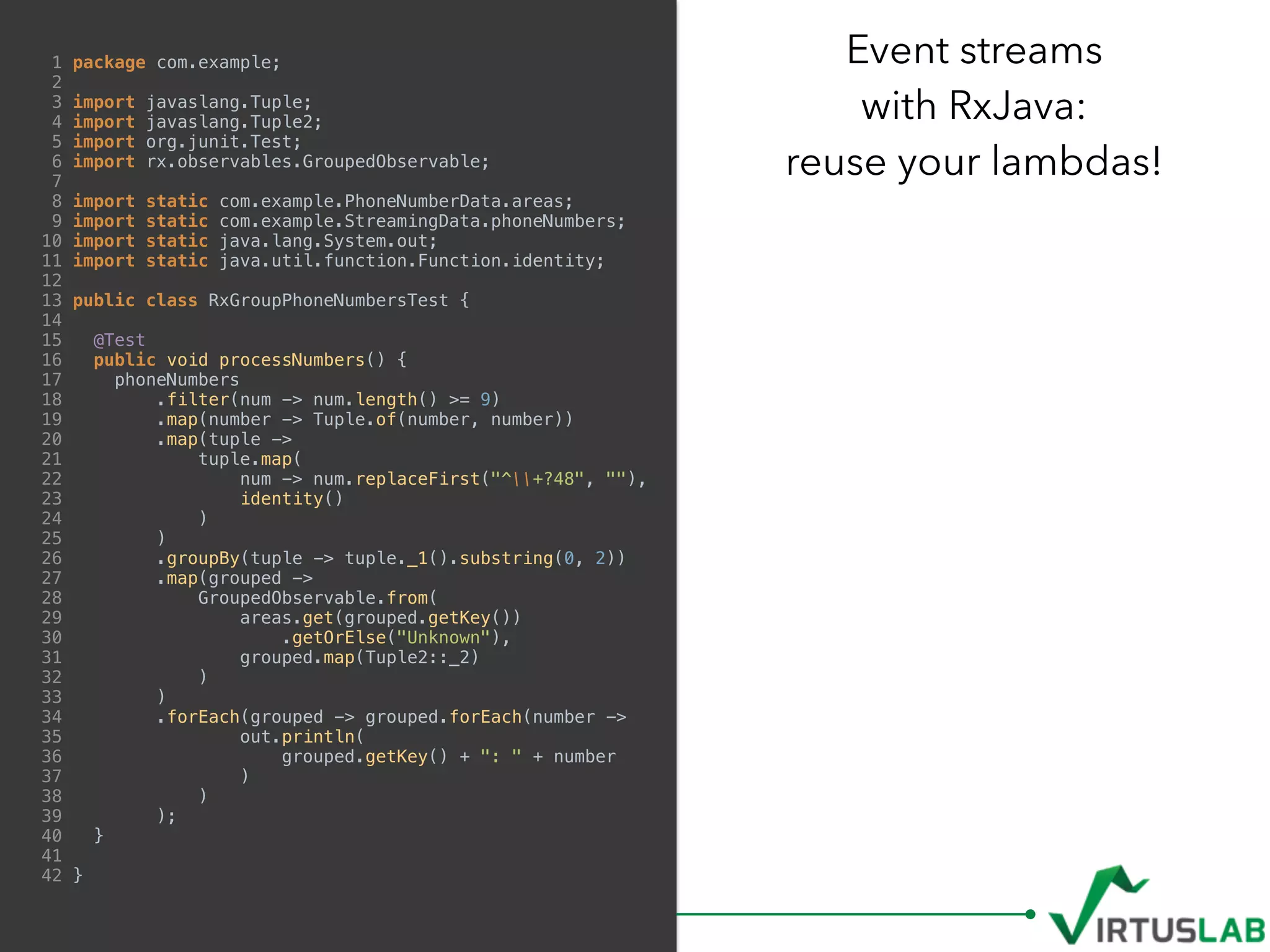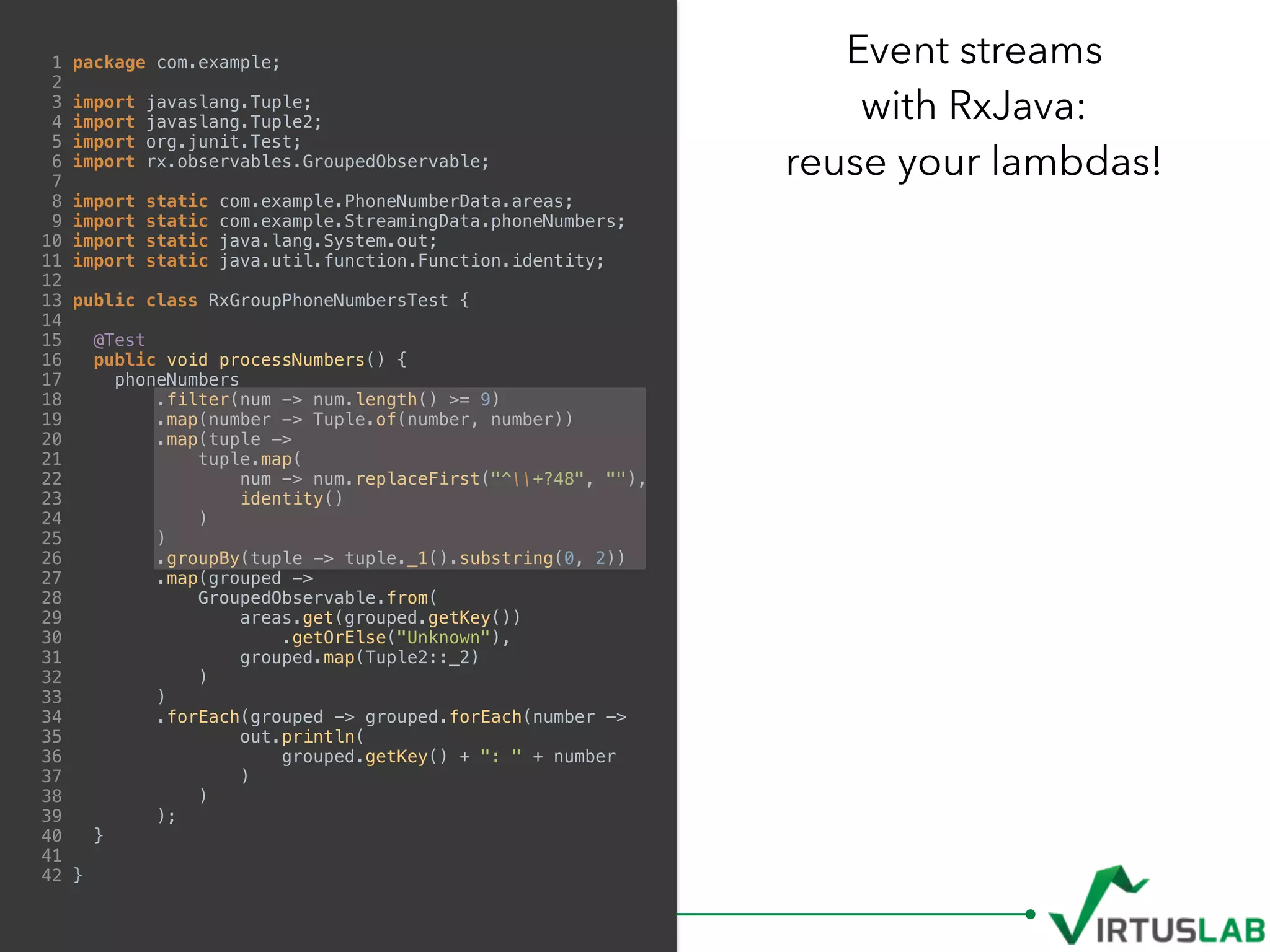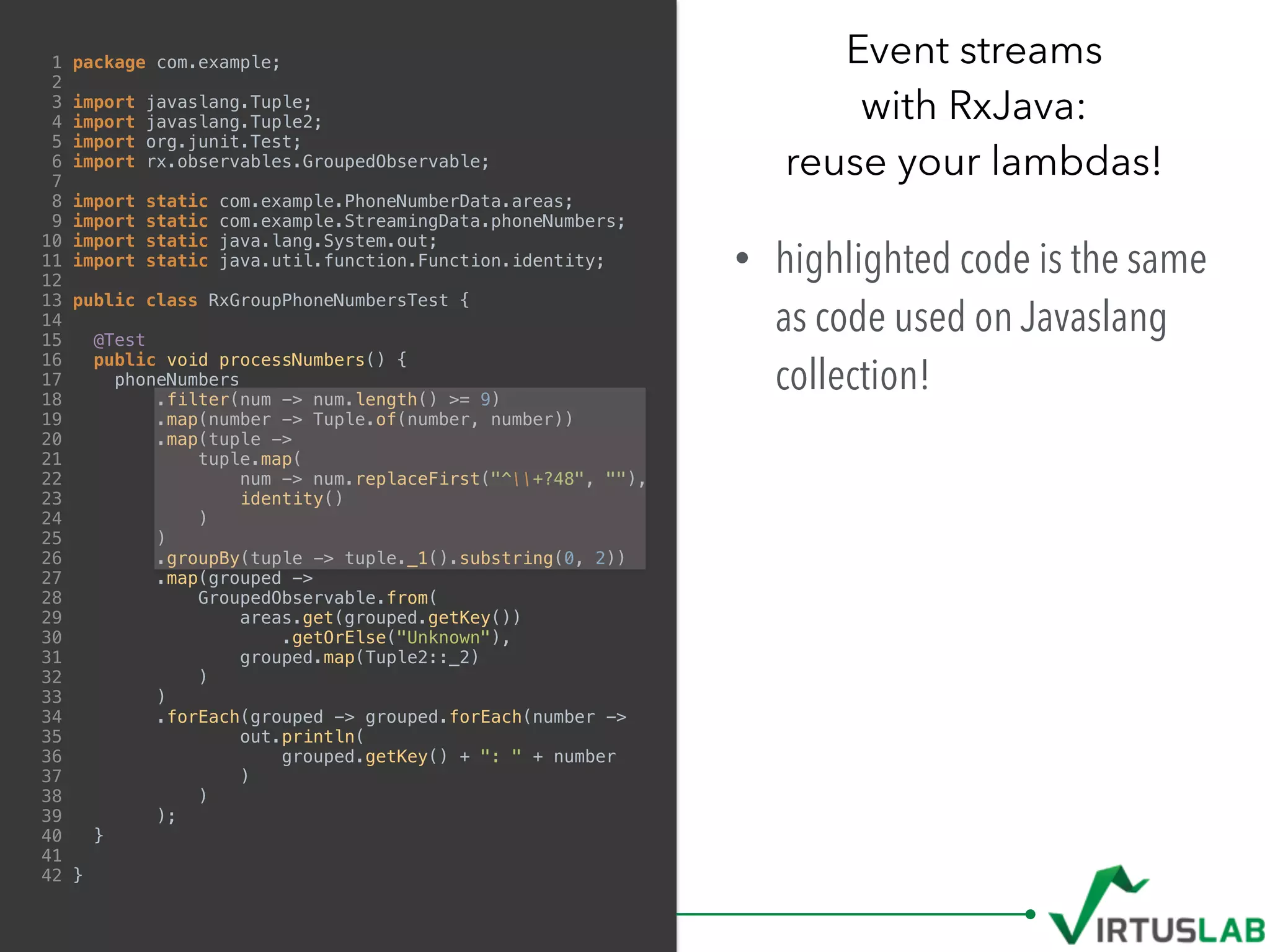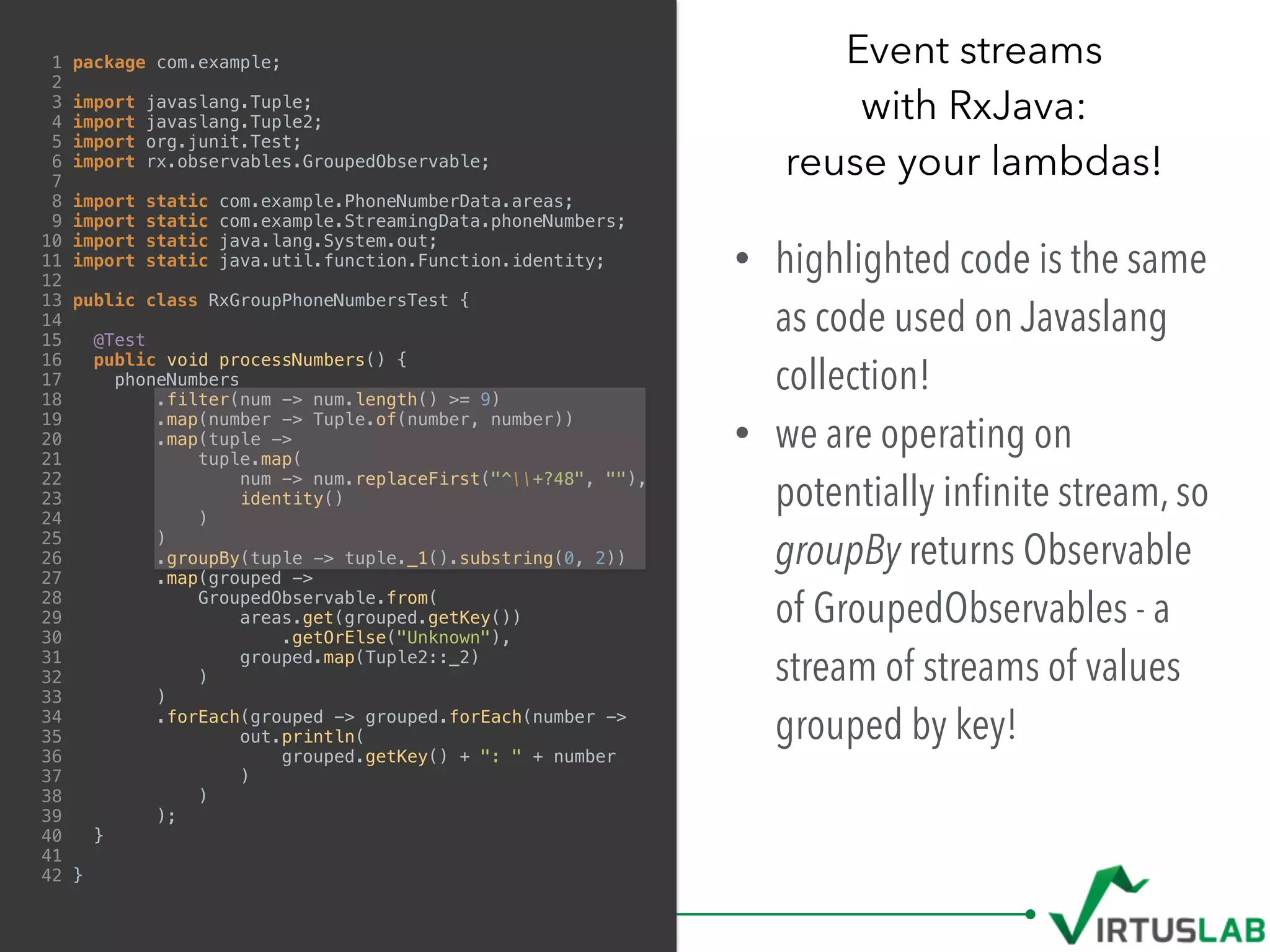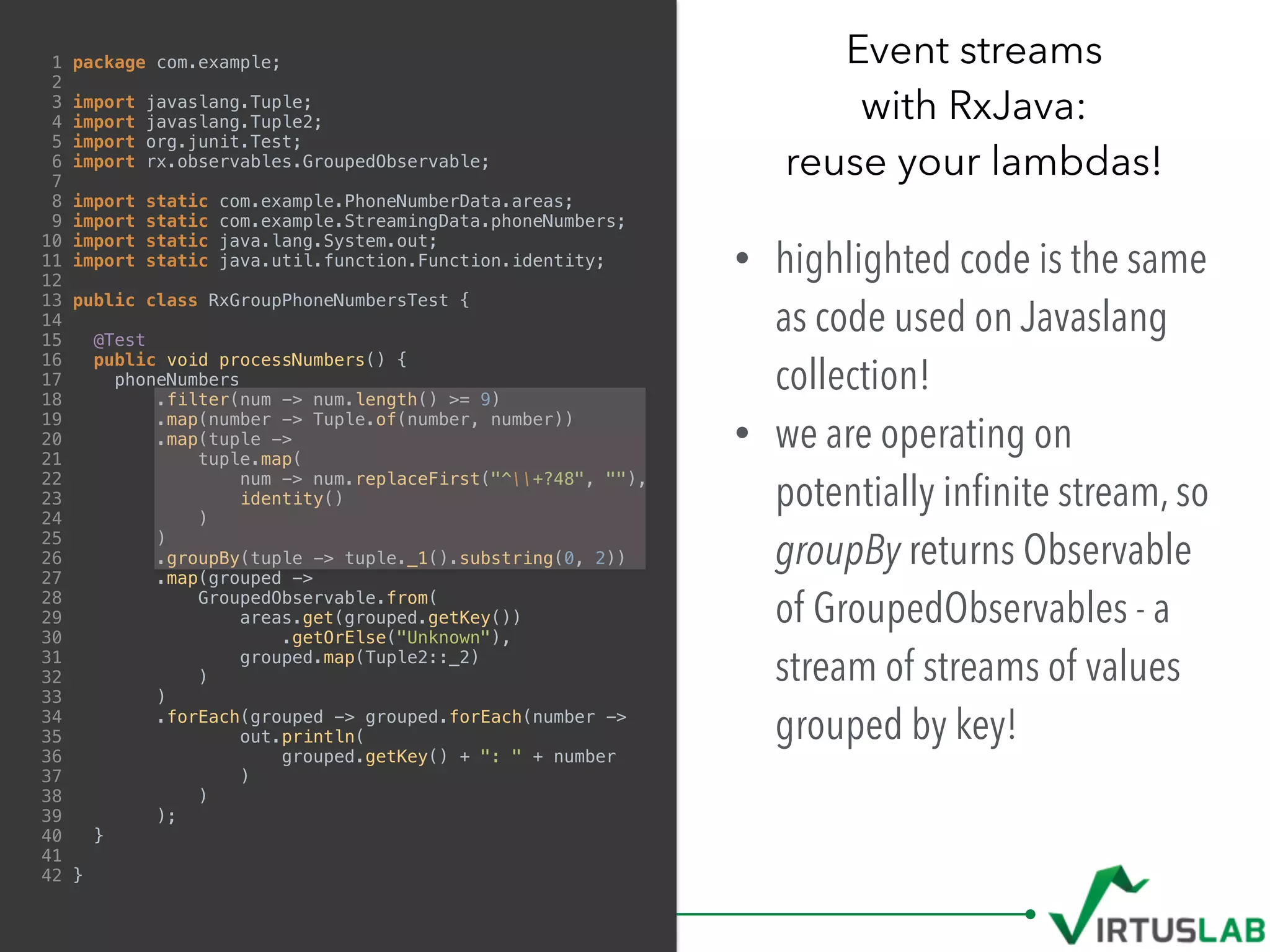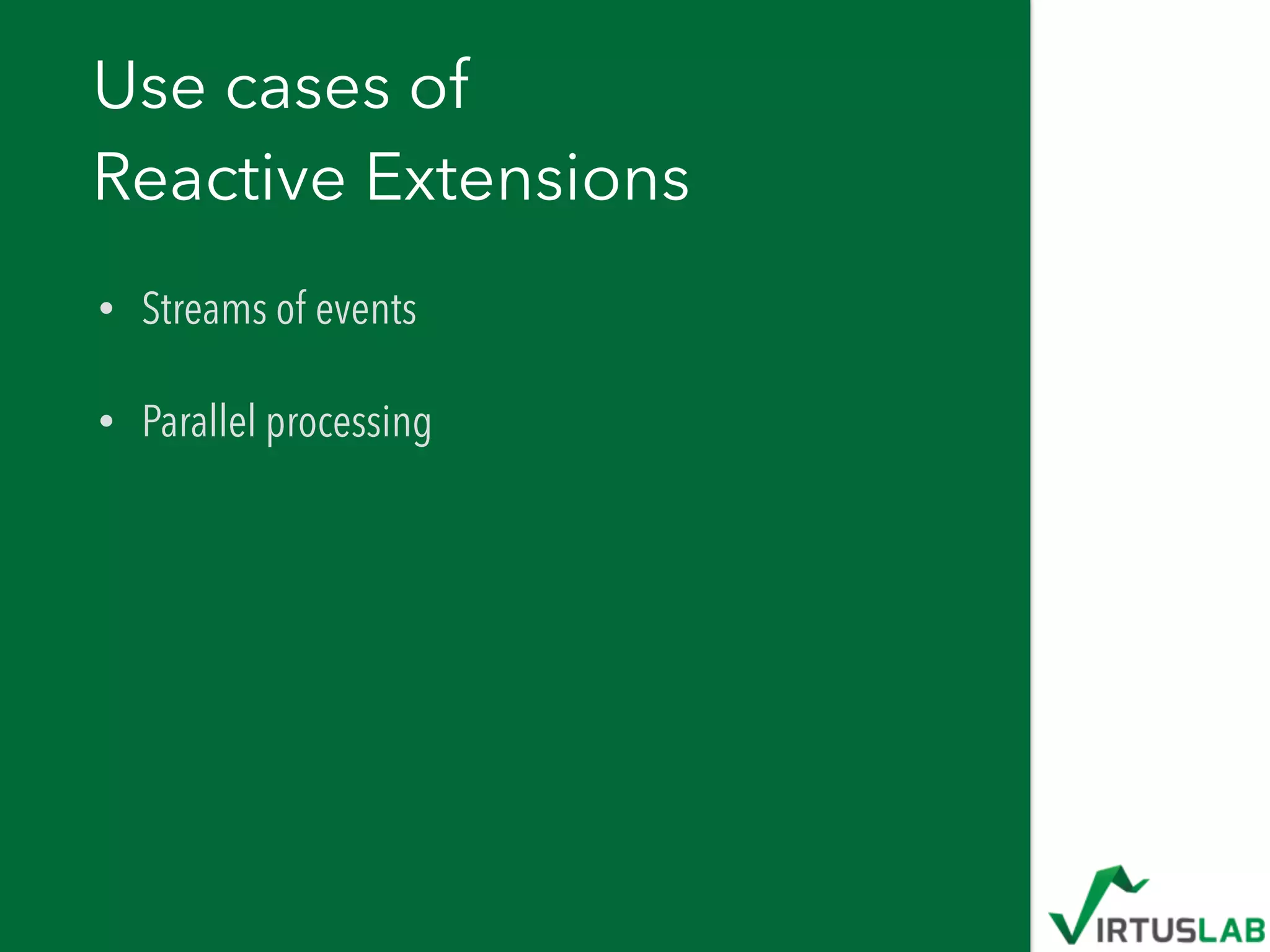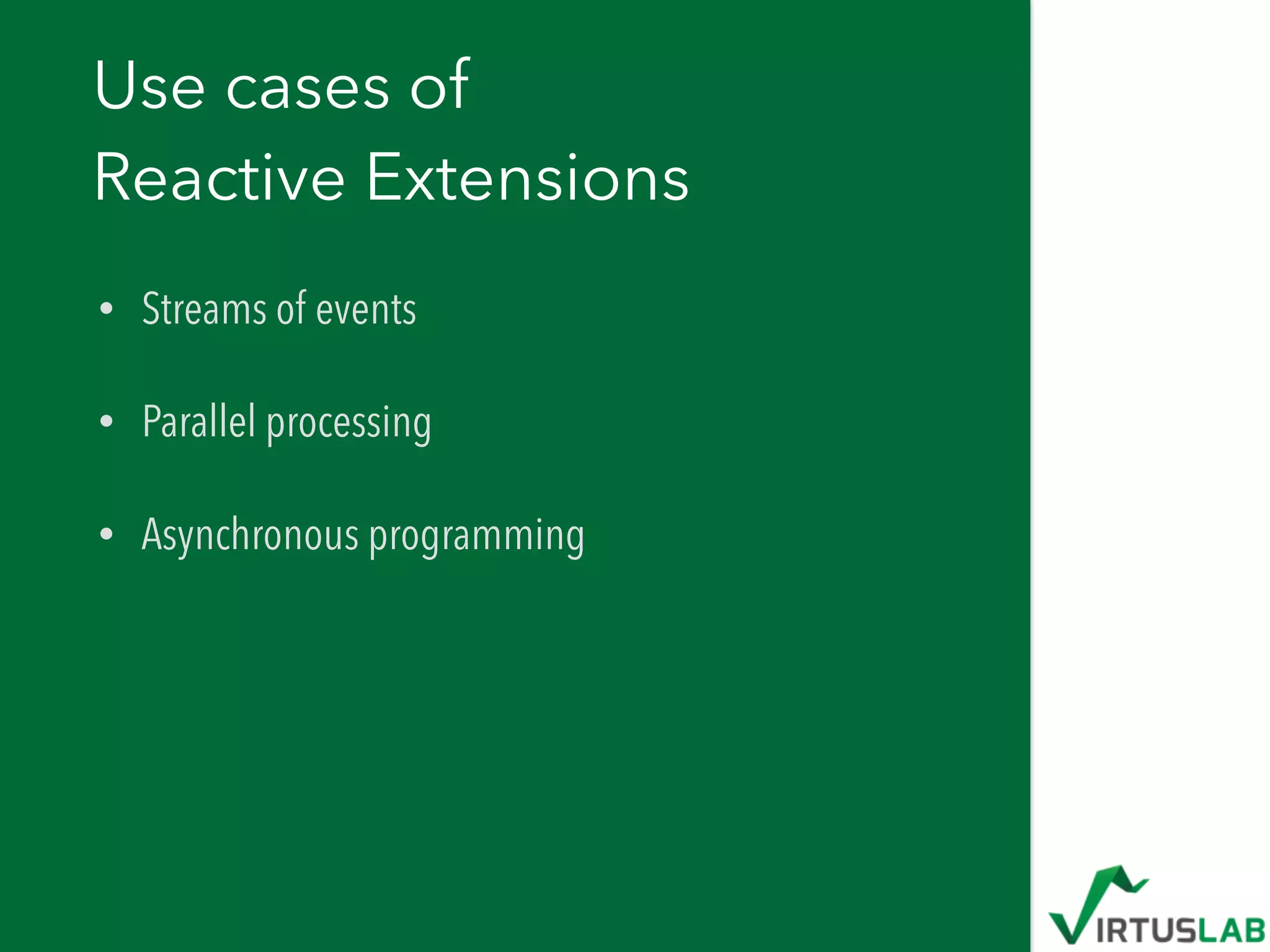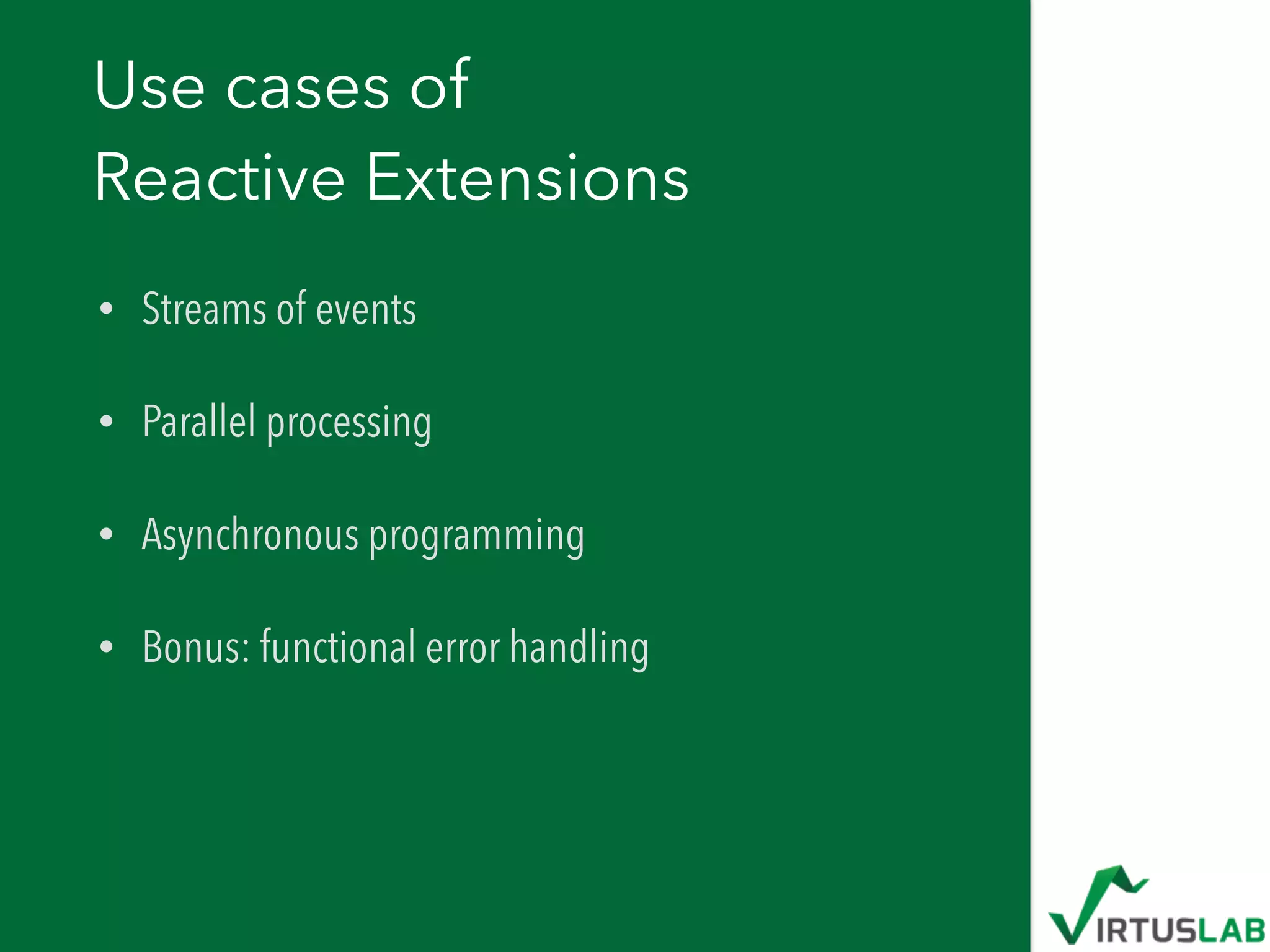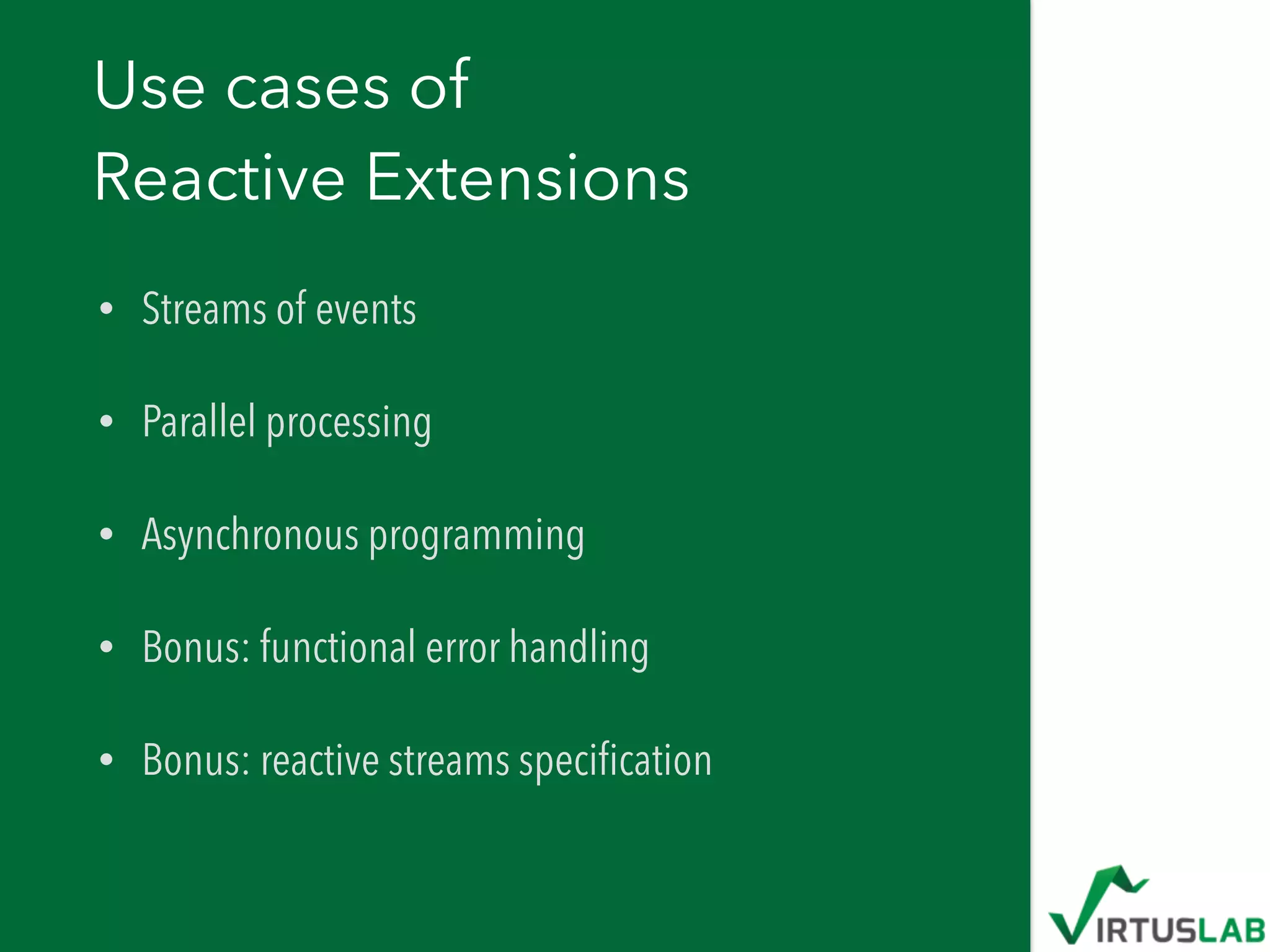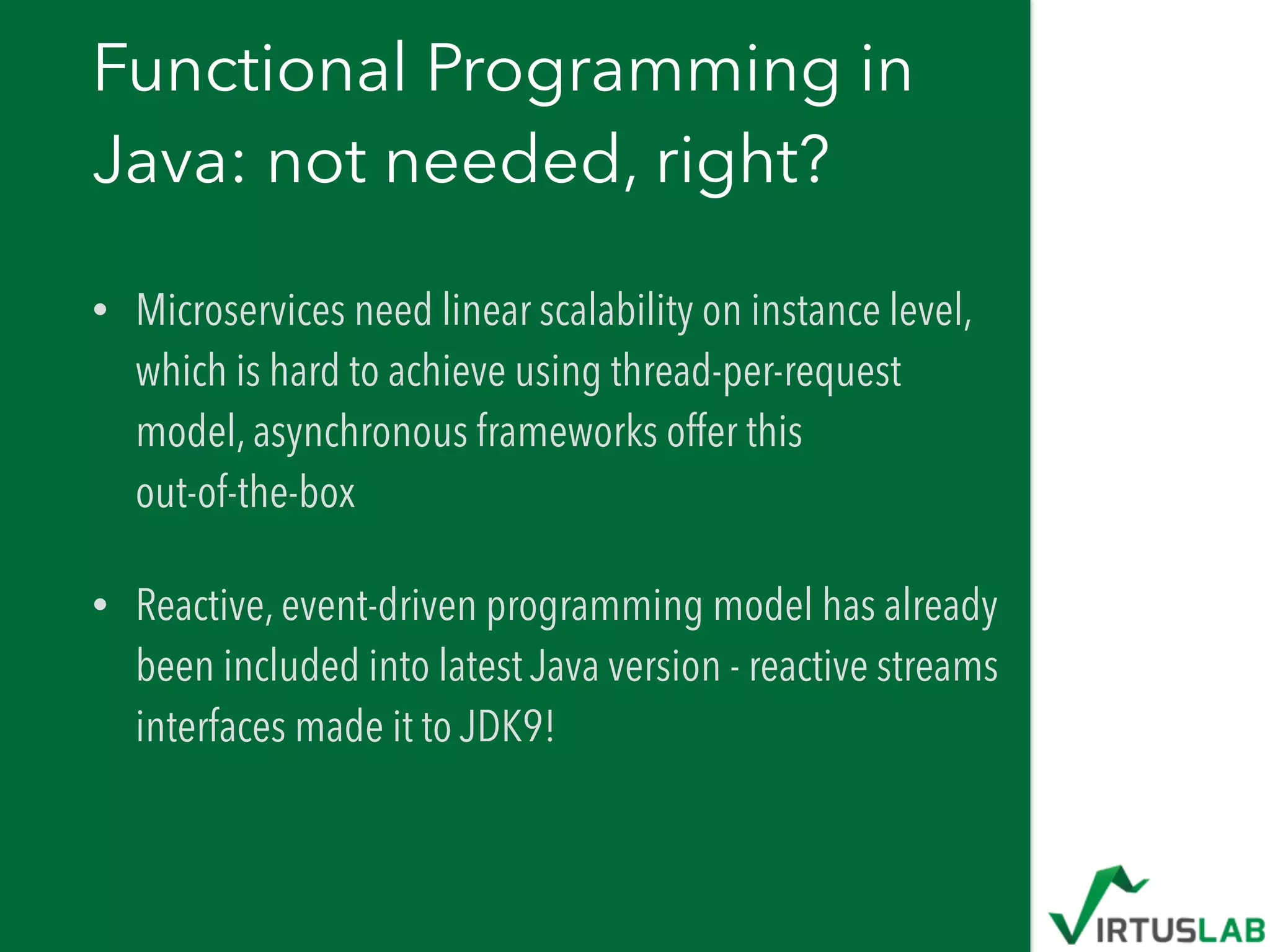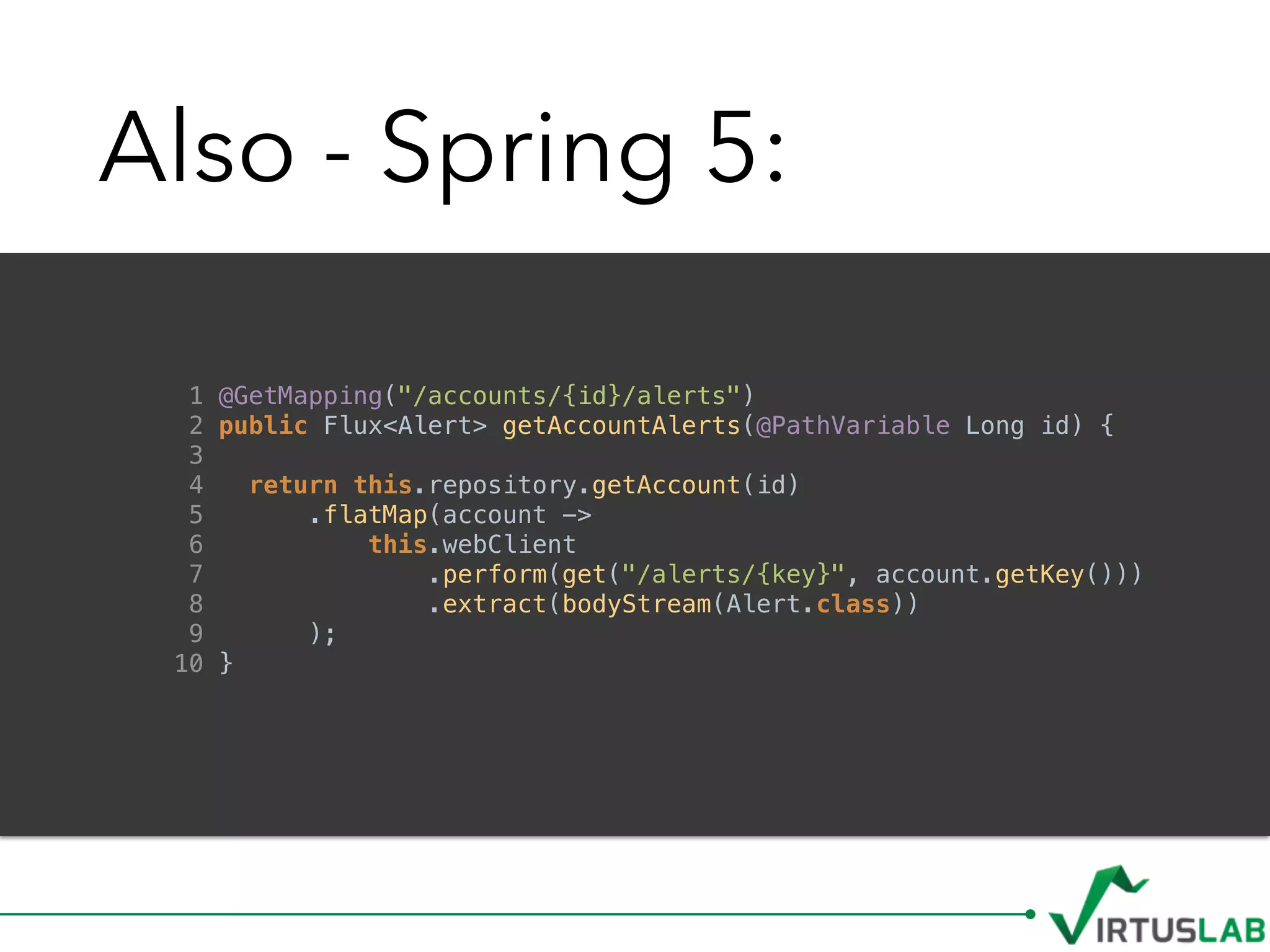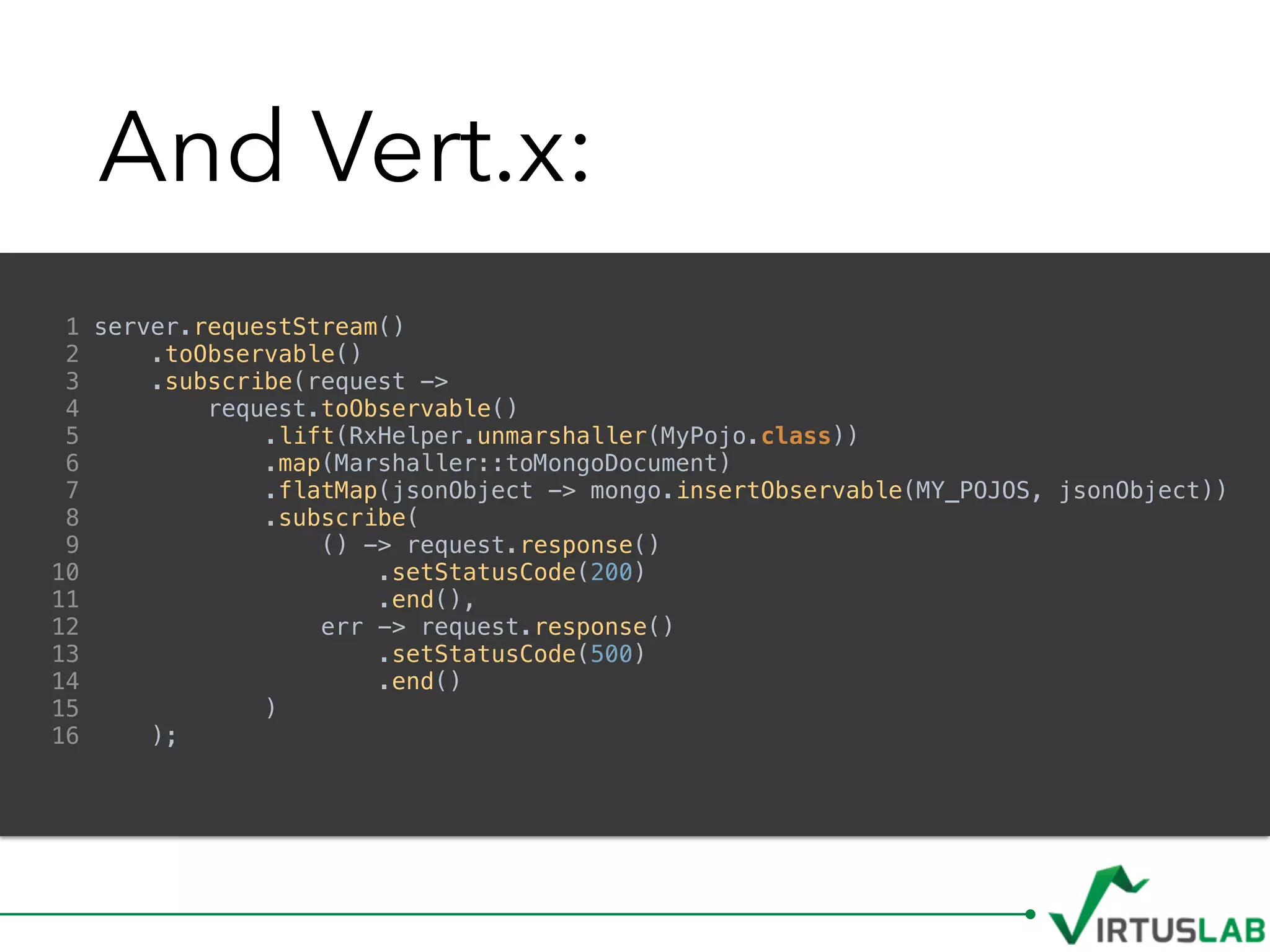The document discusses functional programming in Java, highlighting its principles such as pure functions, immutability, and referential transparency, which lead to predictable execution and reduced bugs. It also addresses common Java exceptions, specifically NullPointerExceptions, and emphasizes how functional programming can help avoid such errors by clarifying code through explicit rules. Additionally, it uses coding examples to illustrate the challenges of optionality of values and the importance of composability in functional programming.
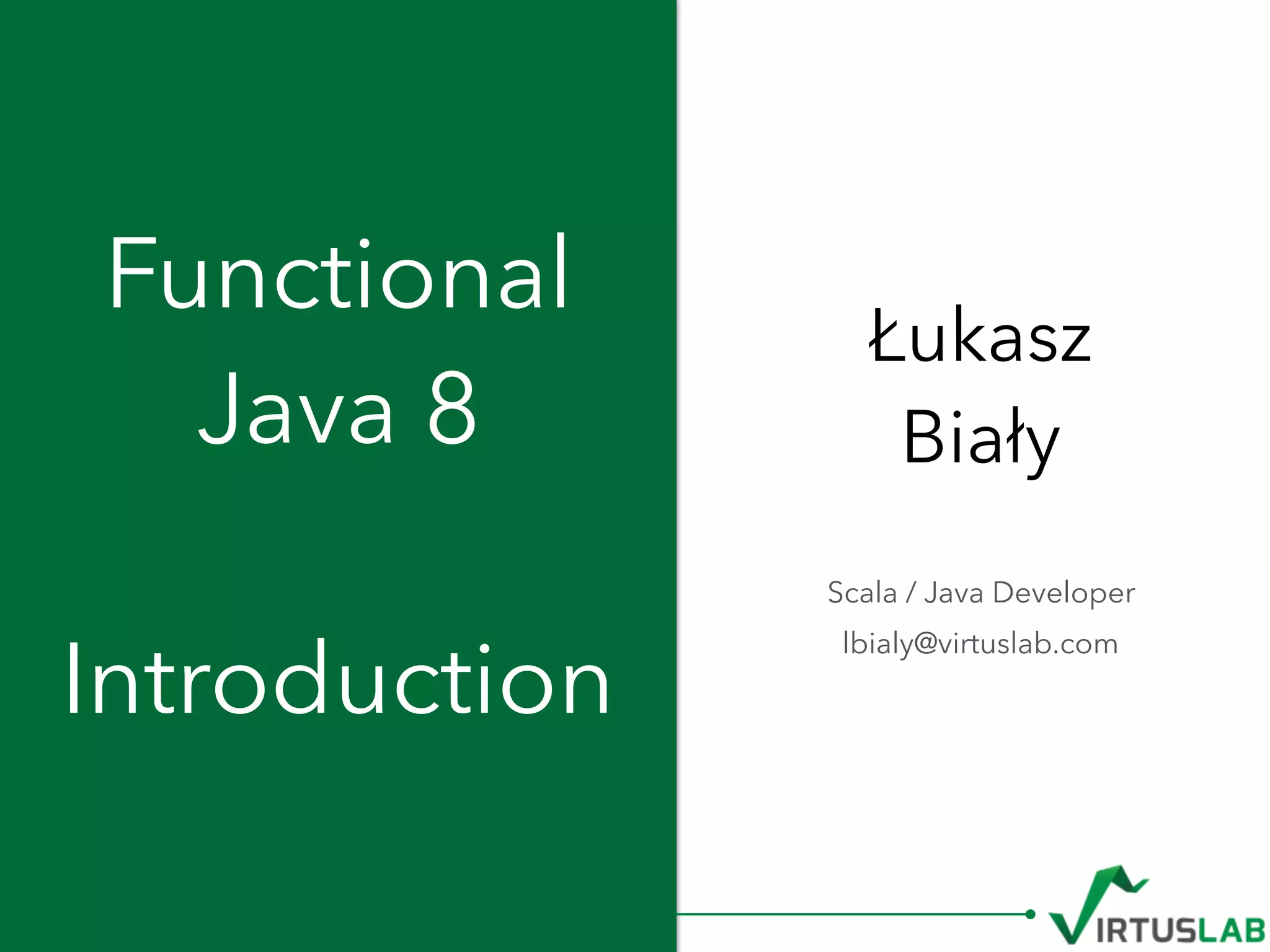




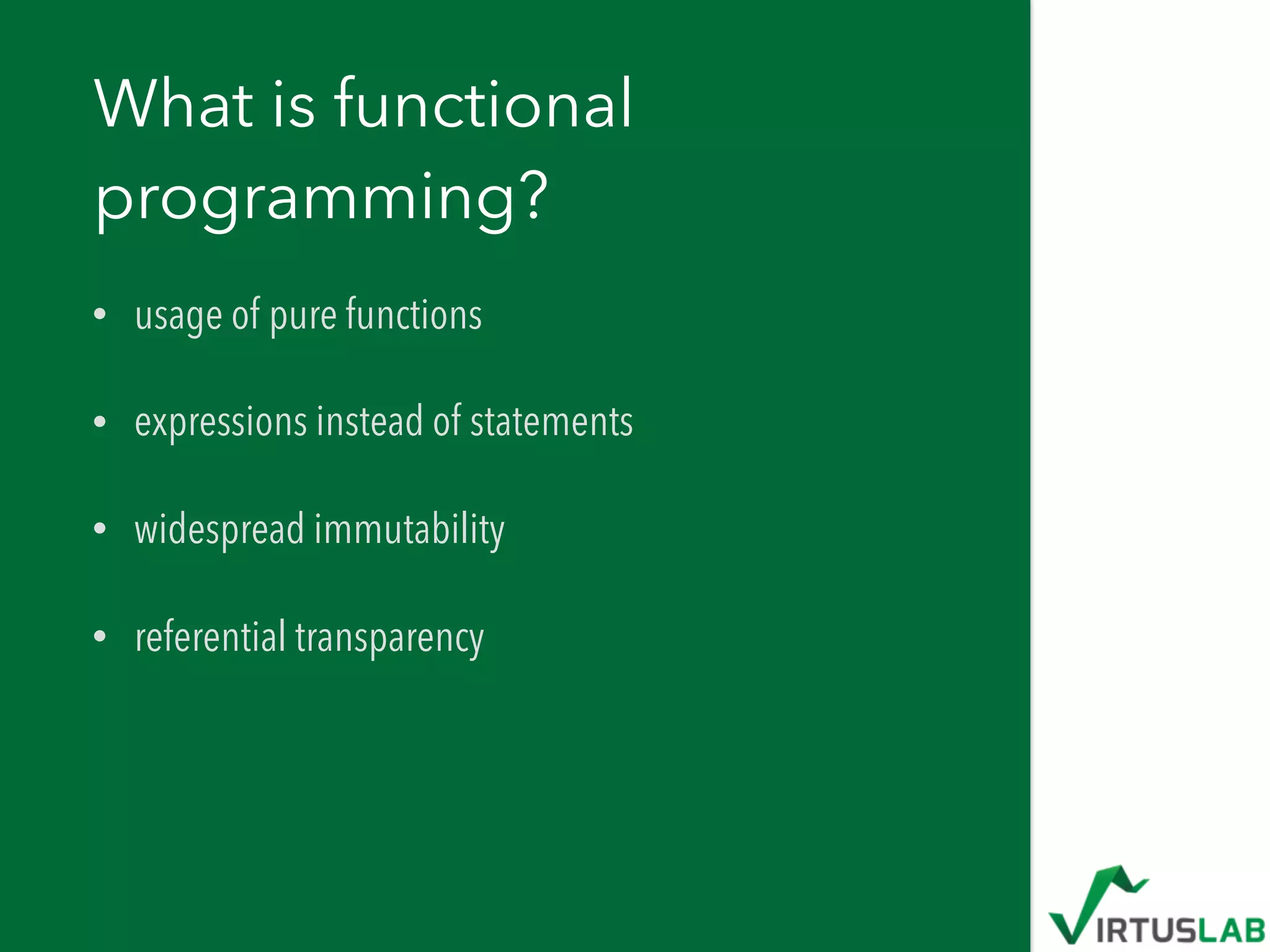
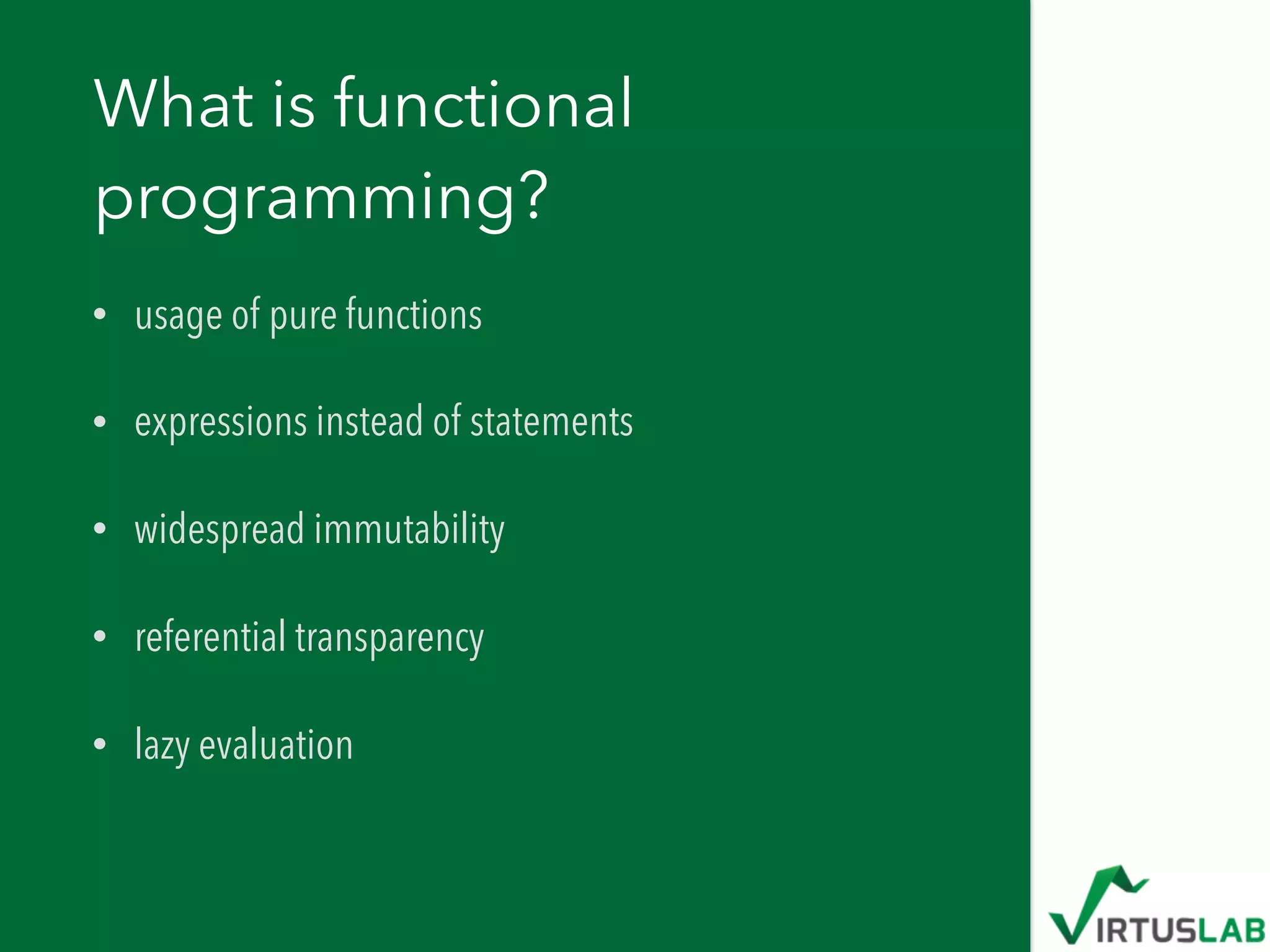





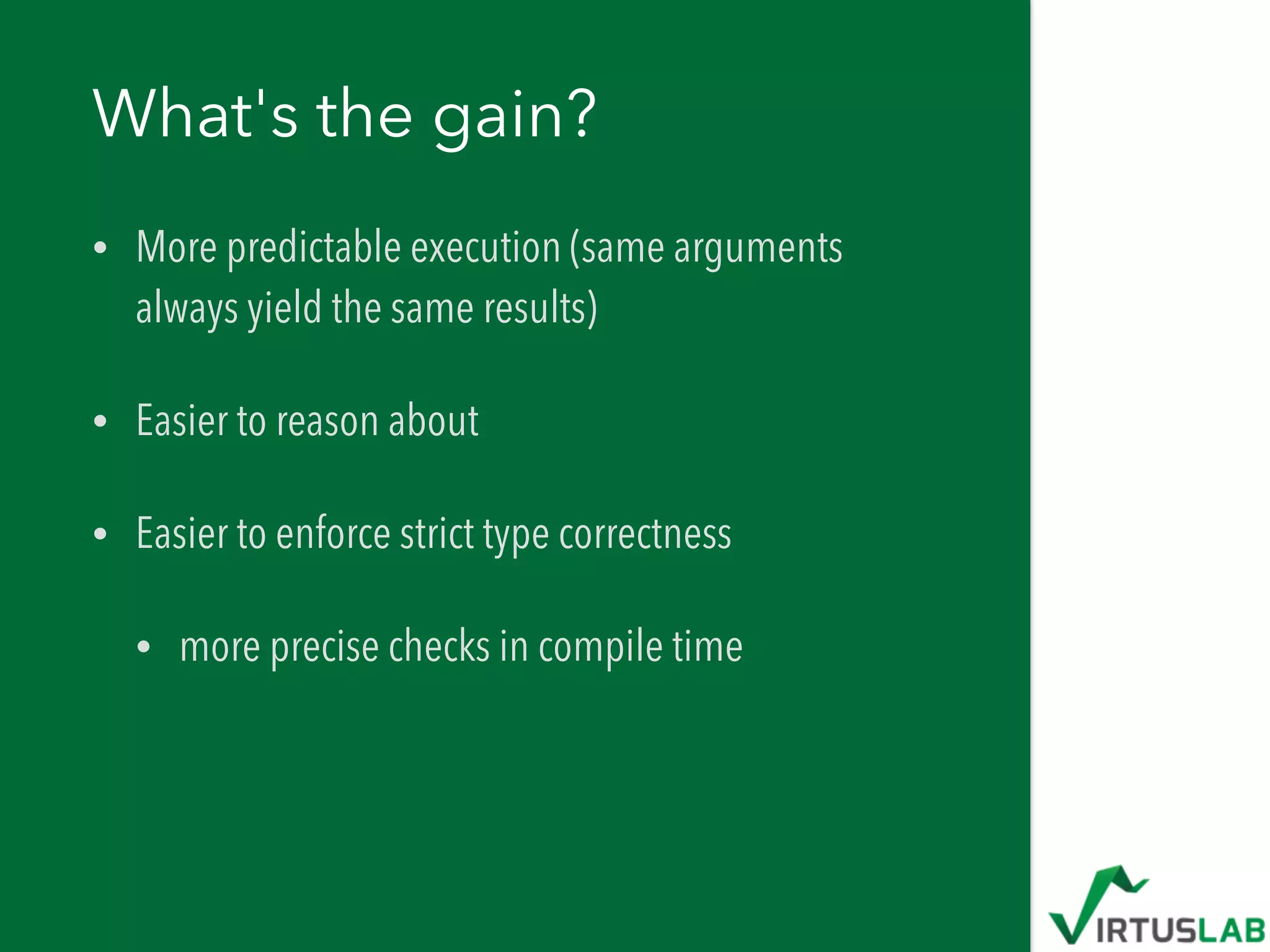
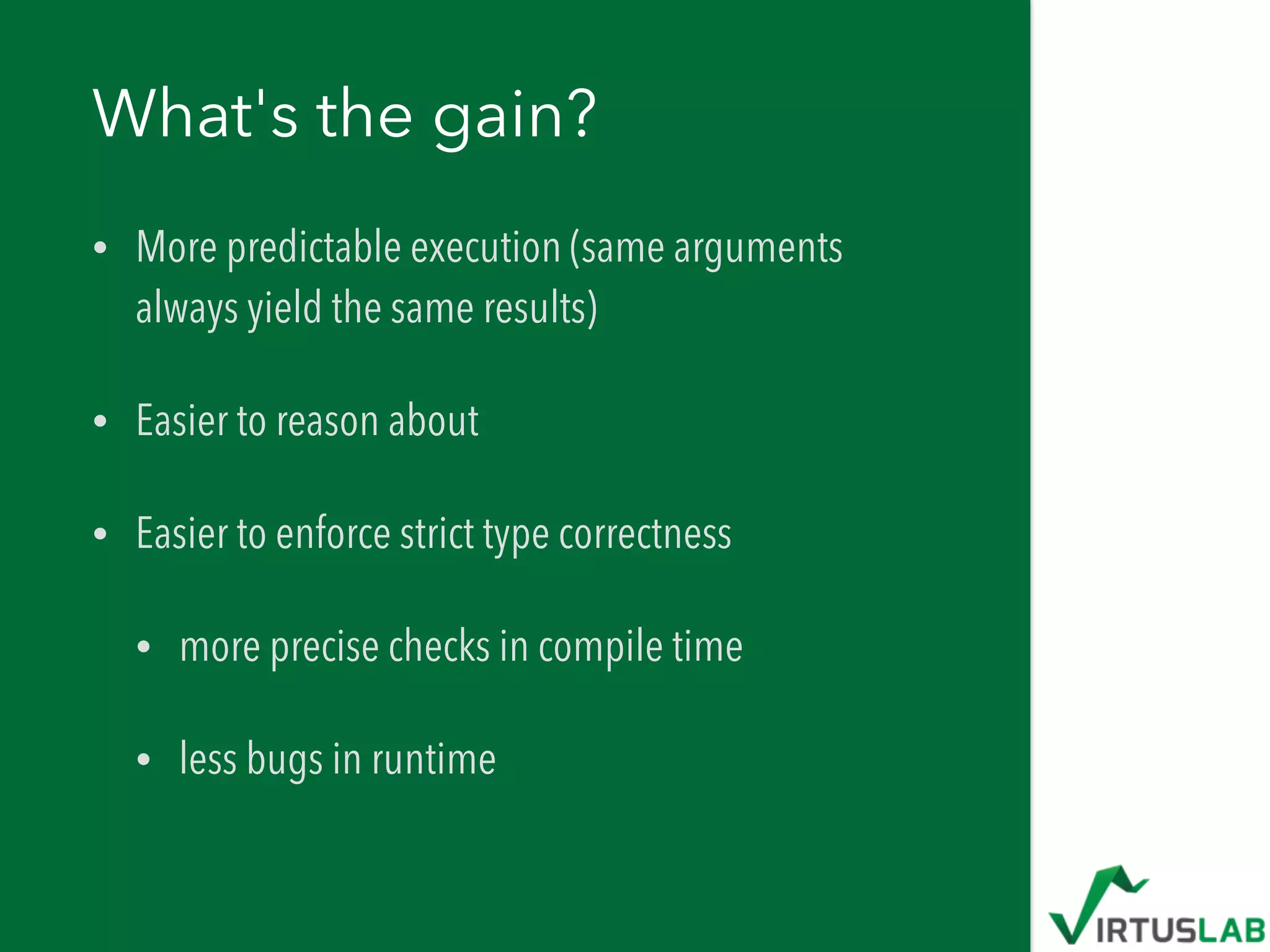
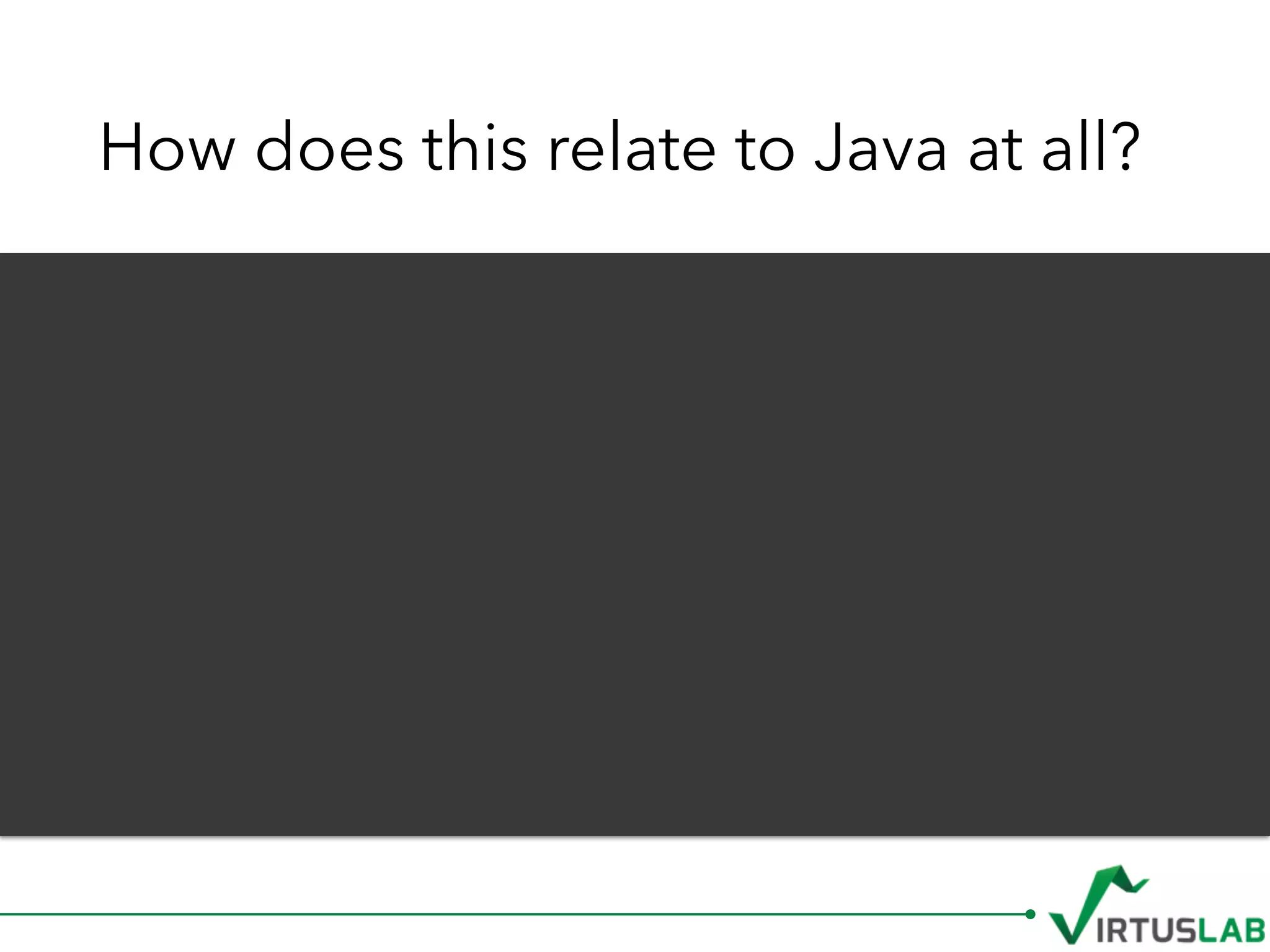
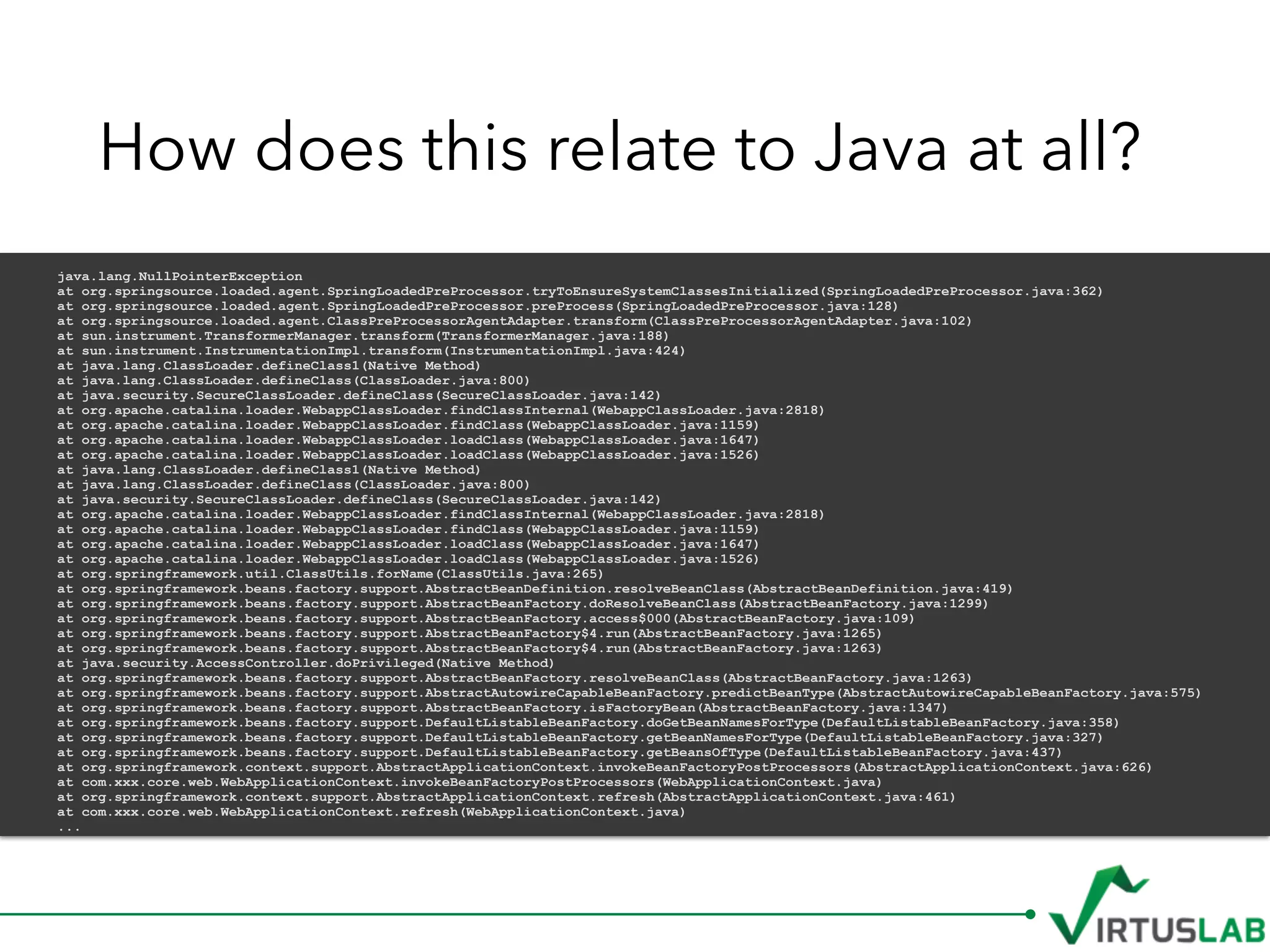
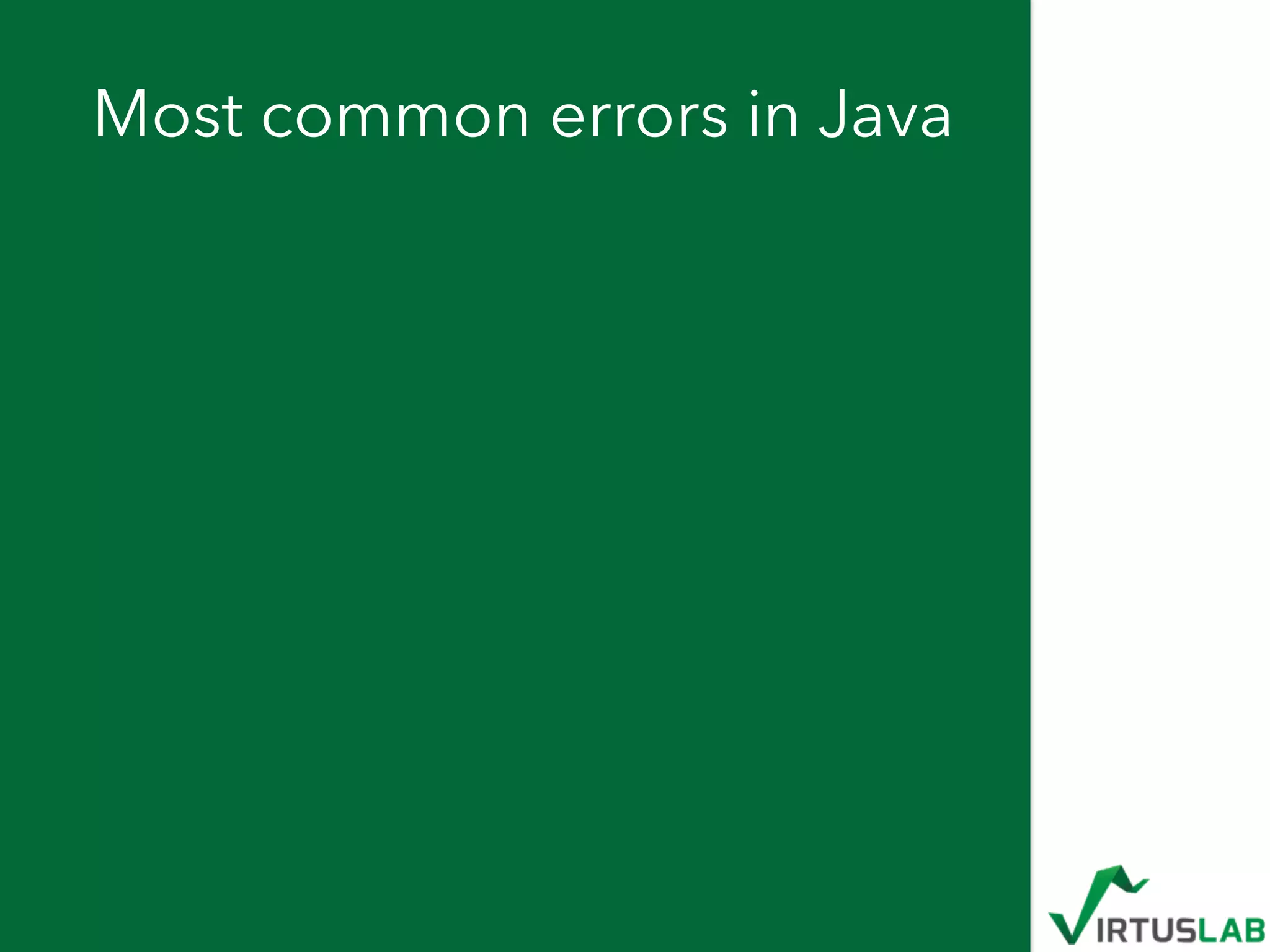
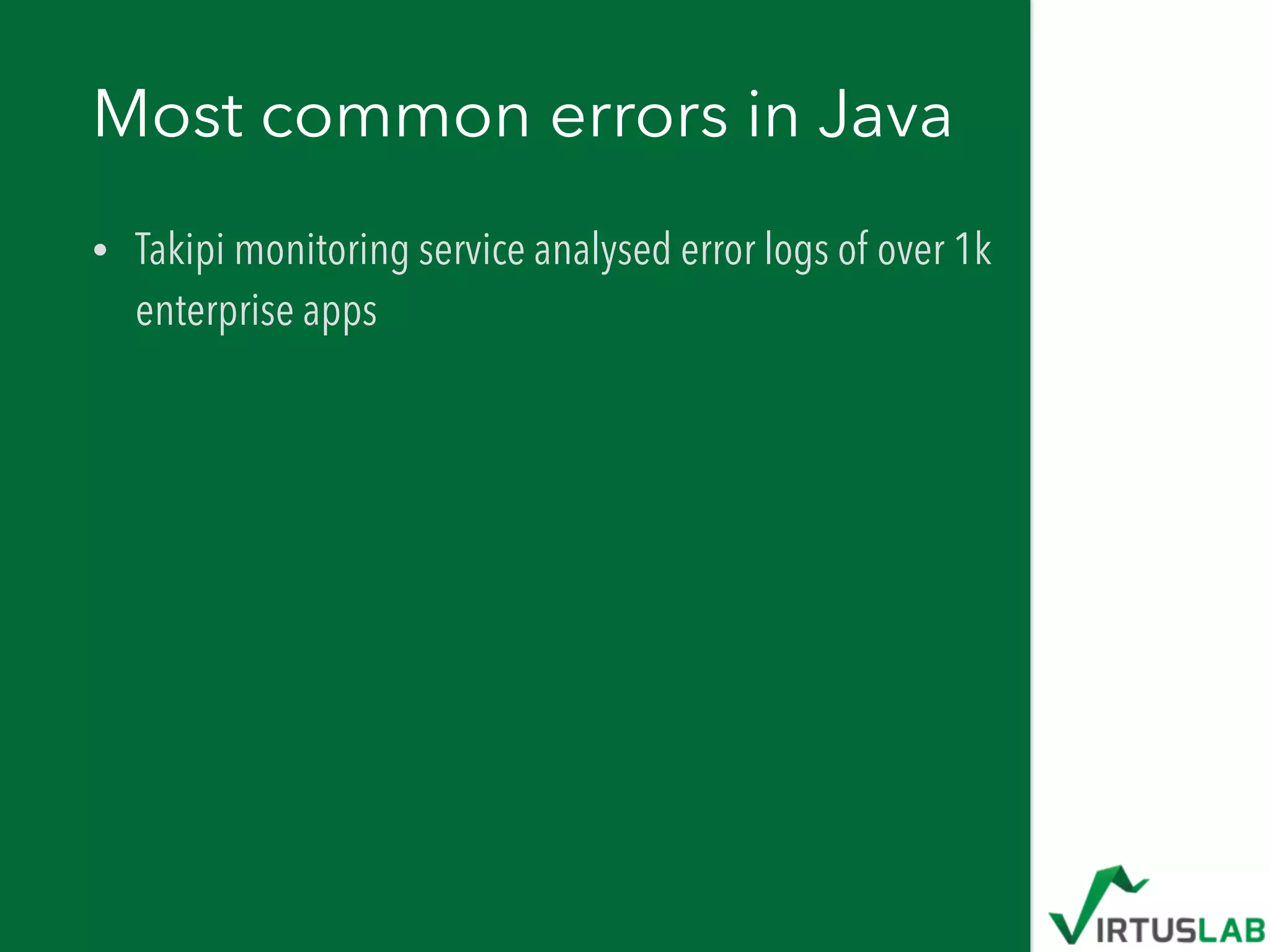
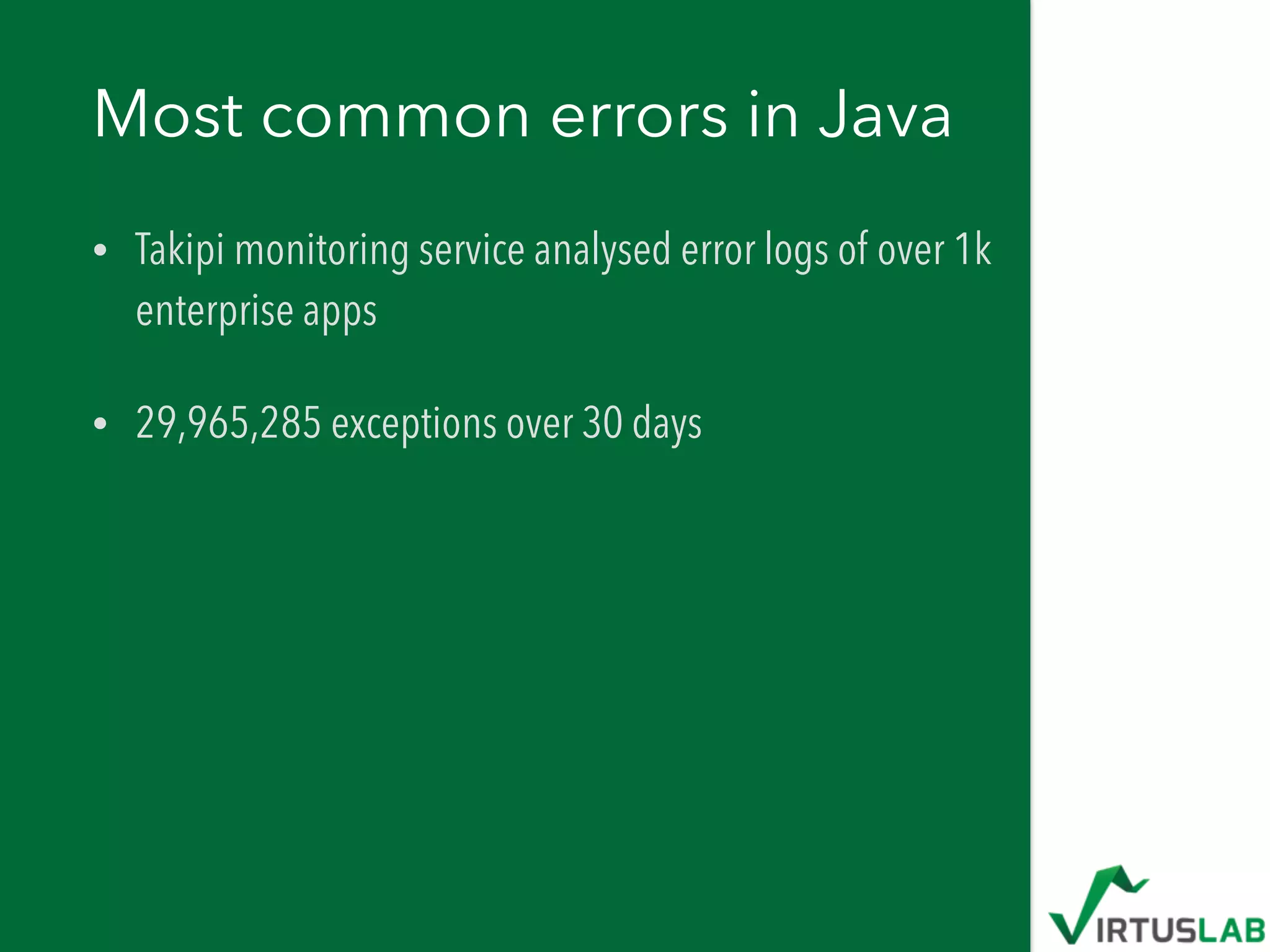
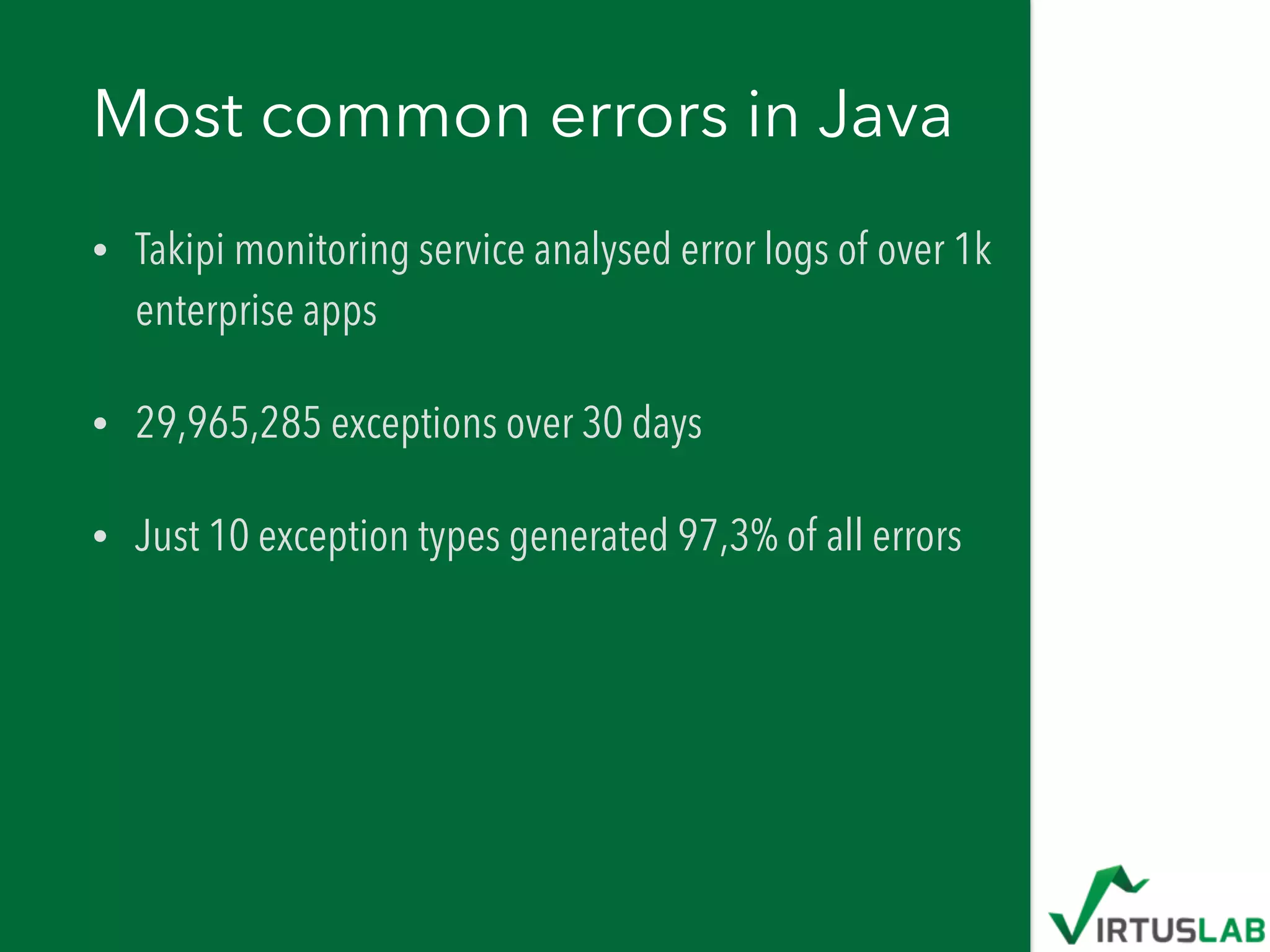
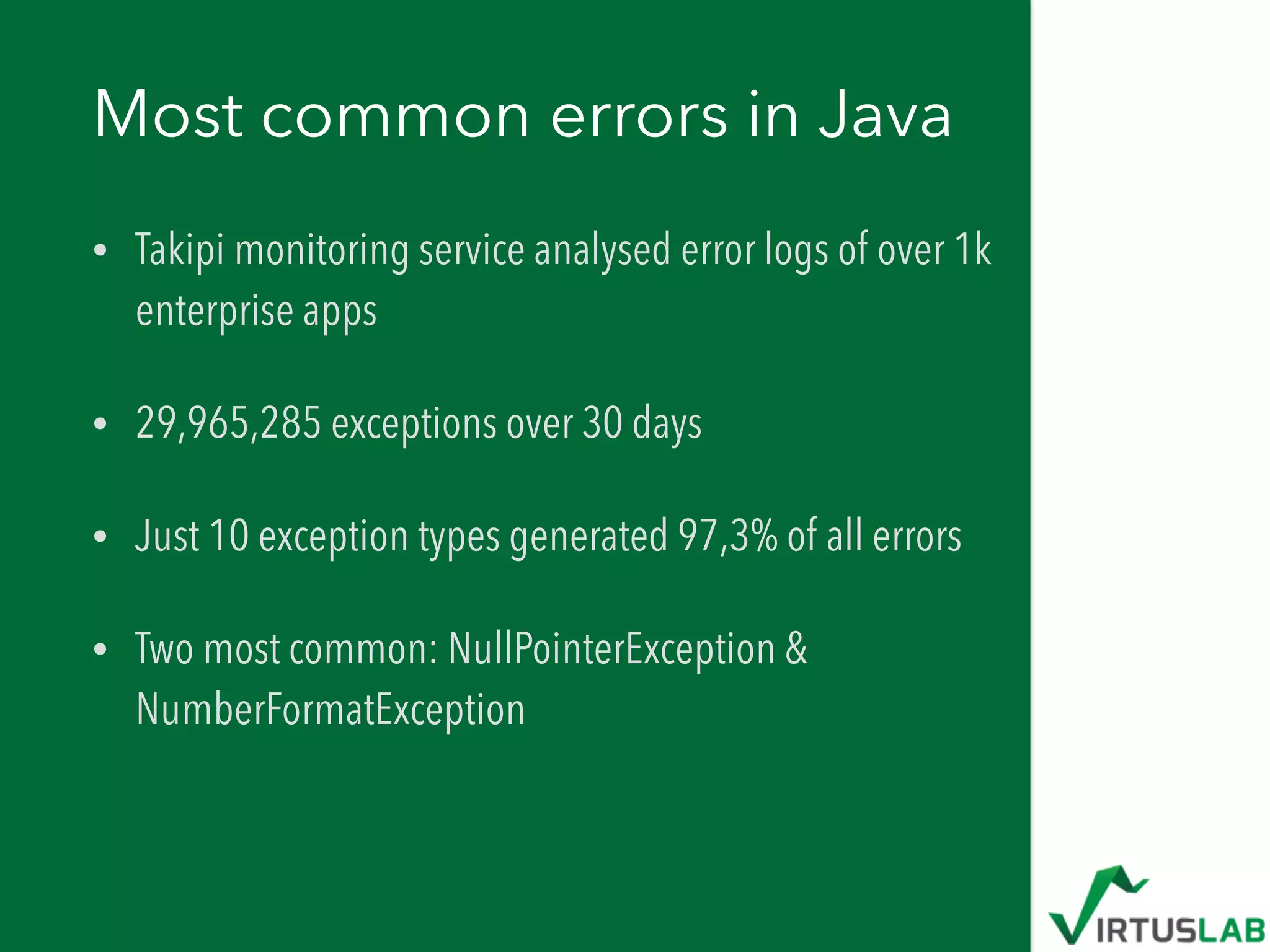
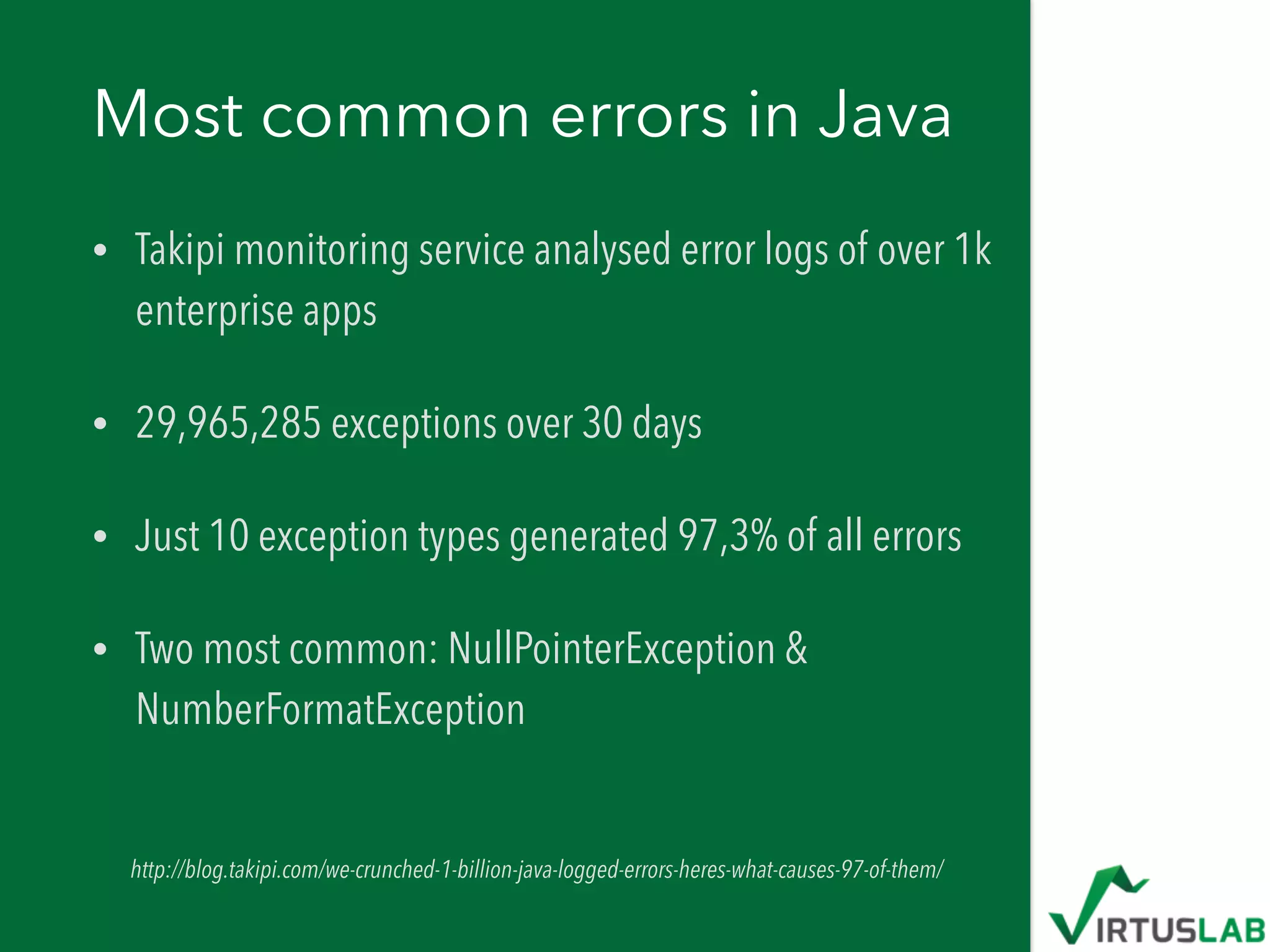




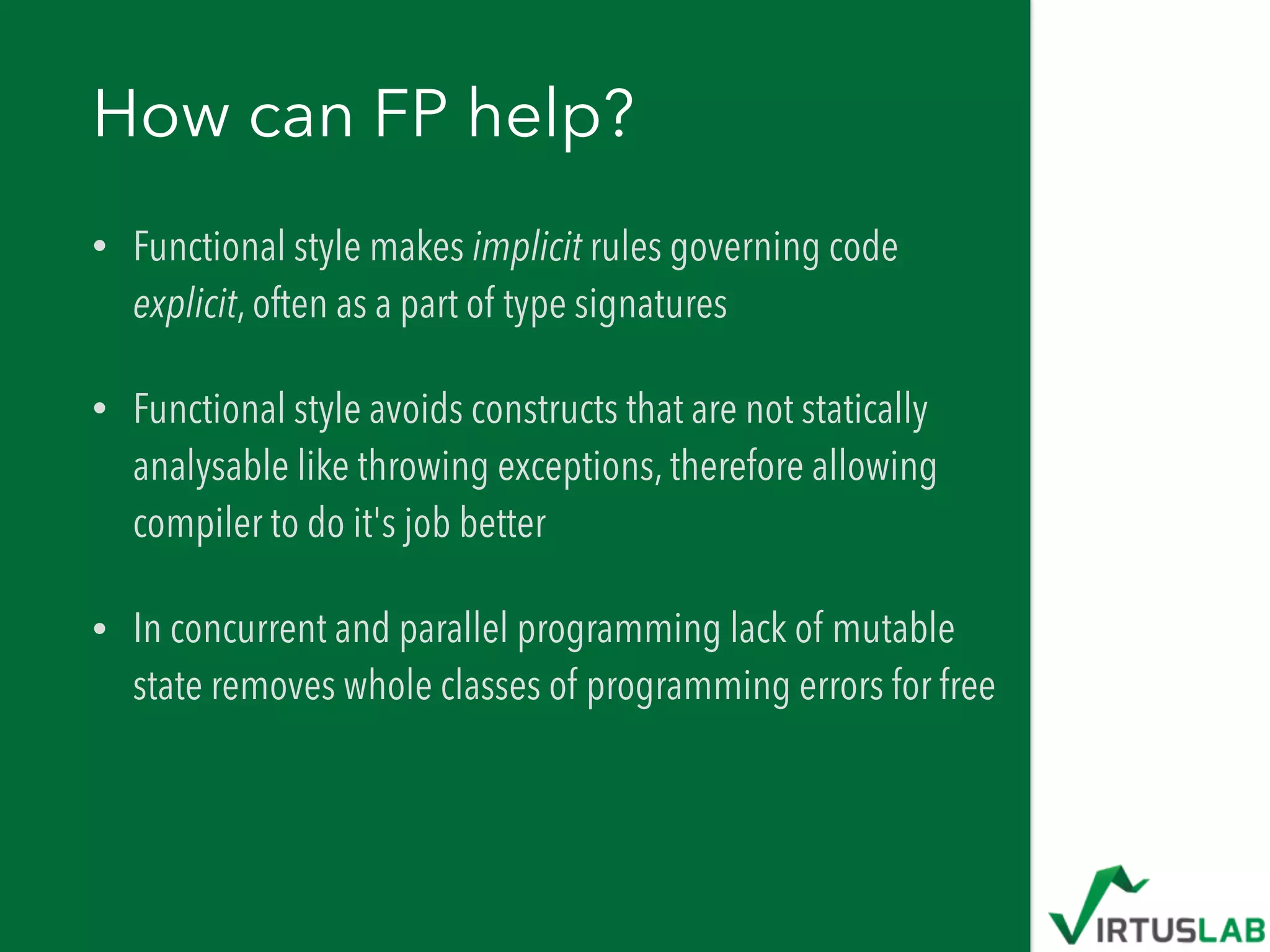
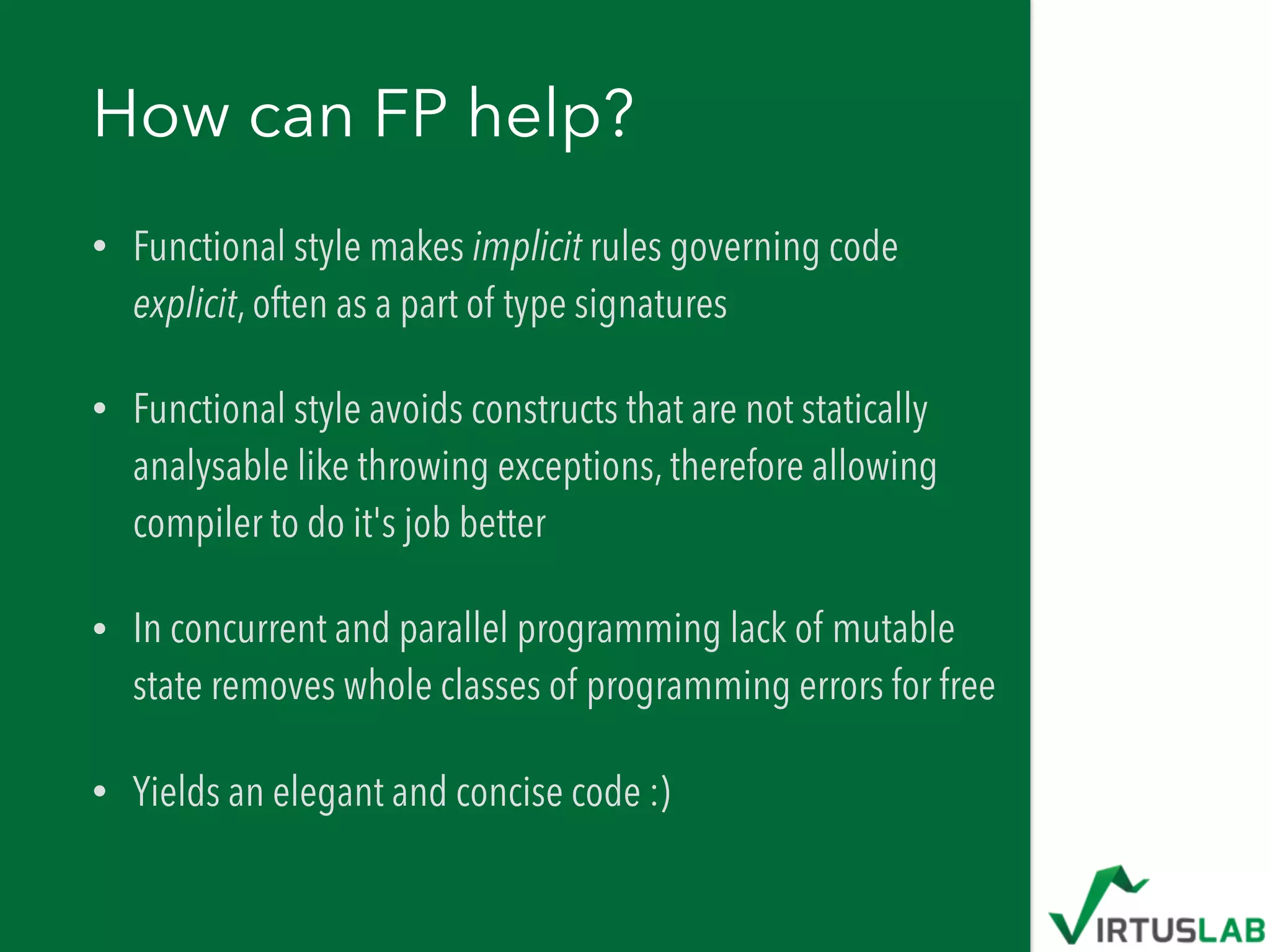
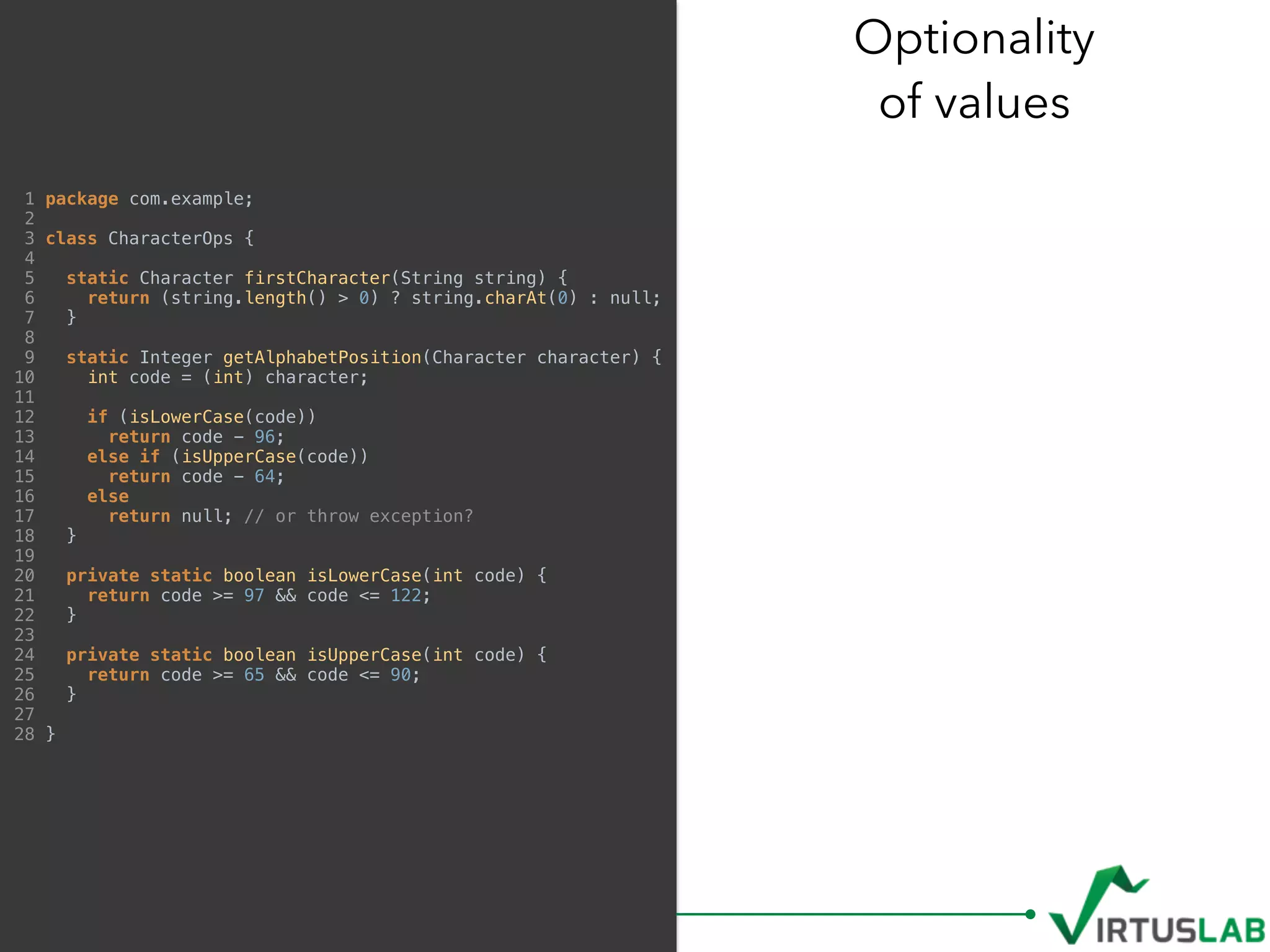
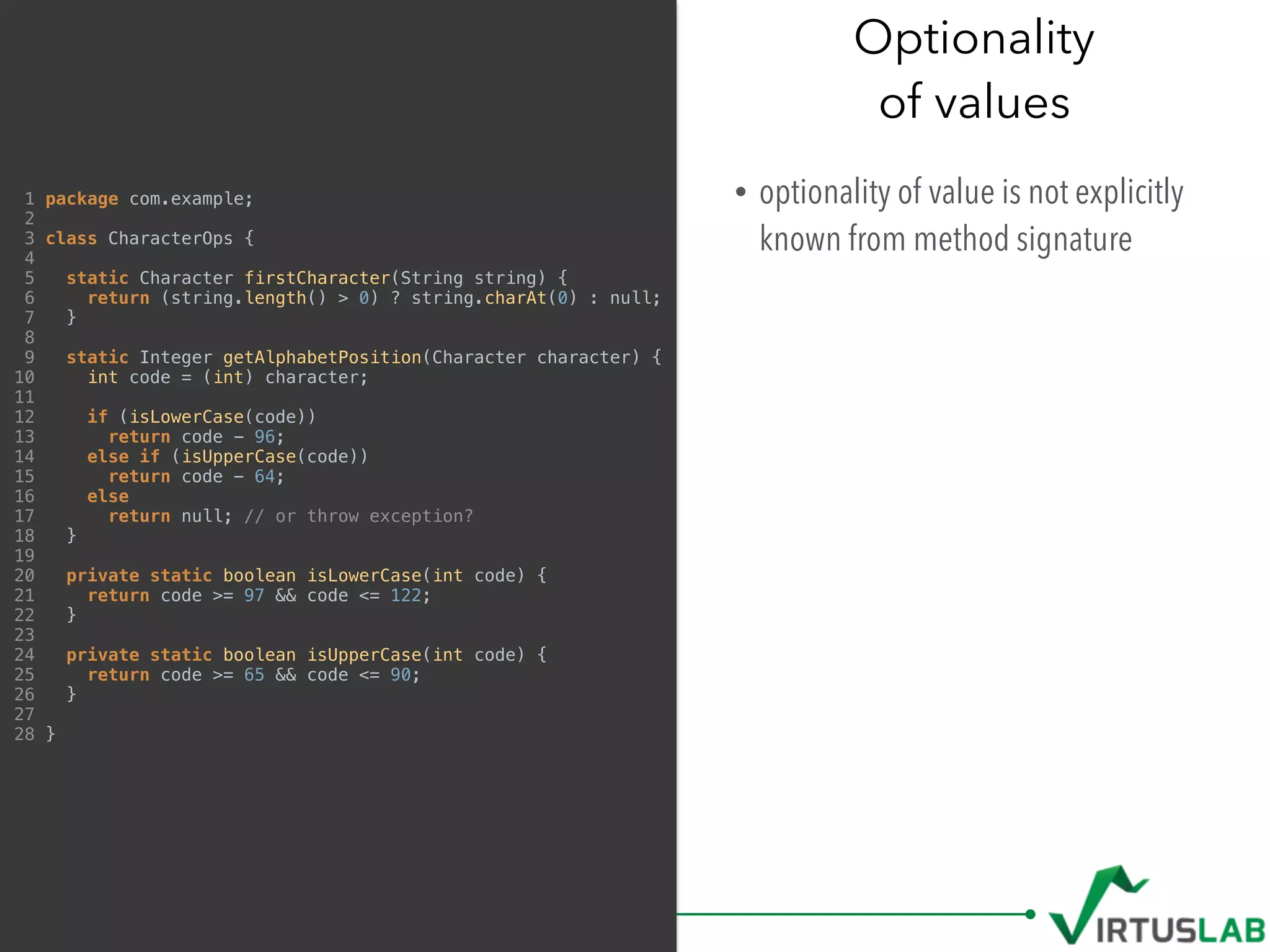
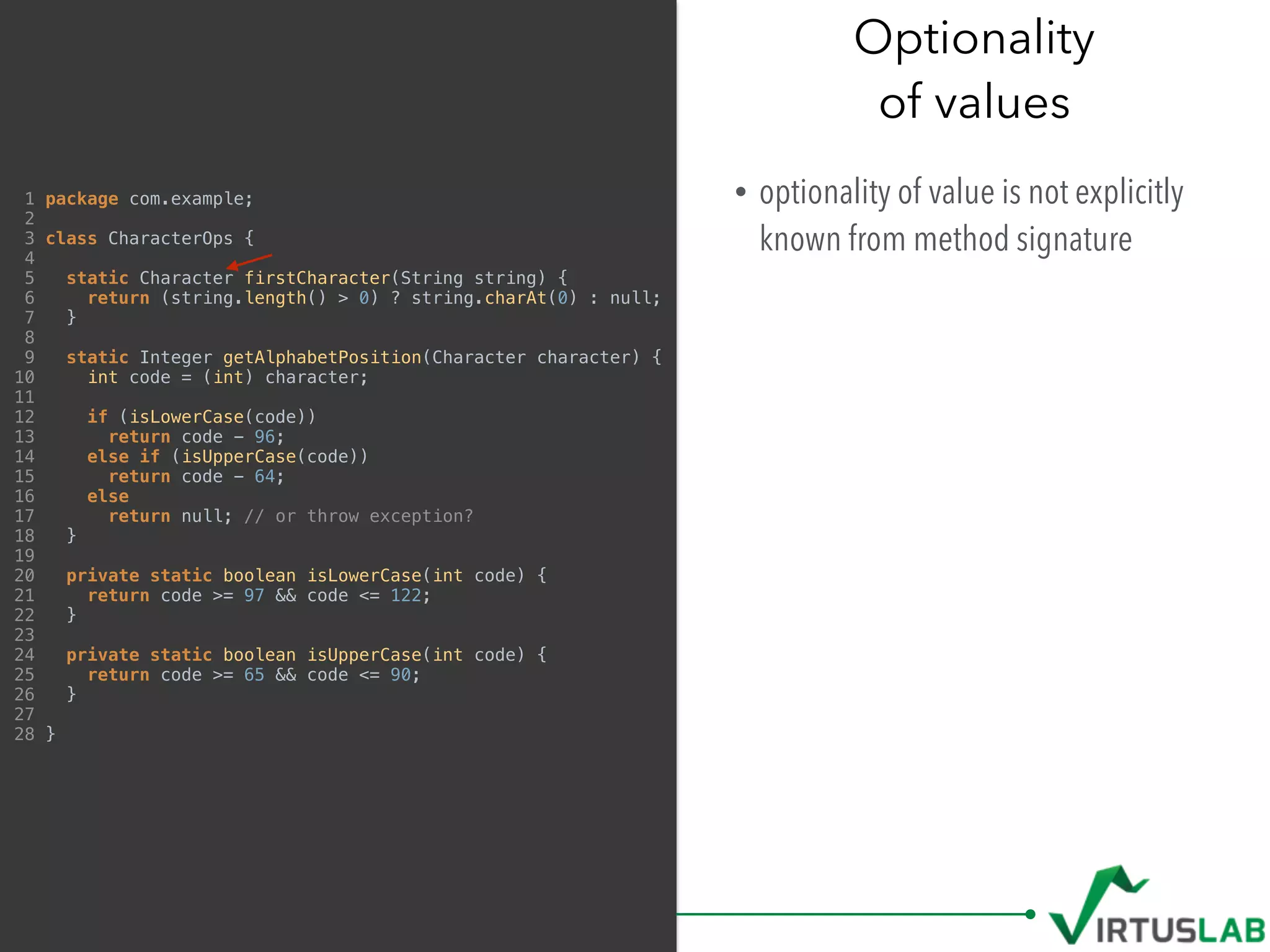
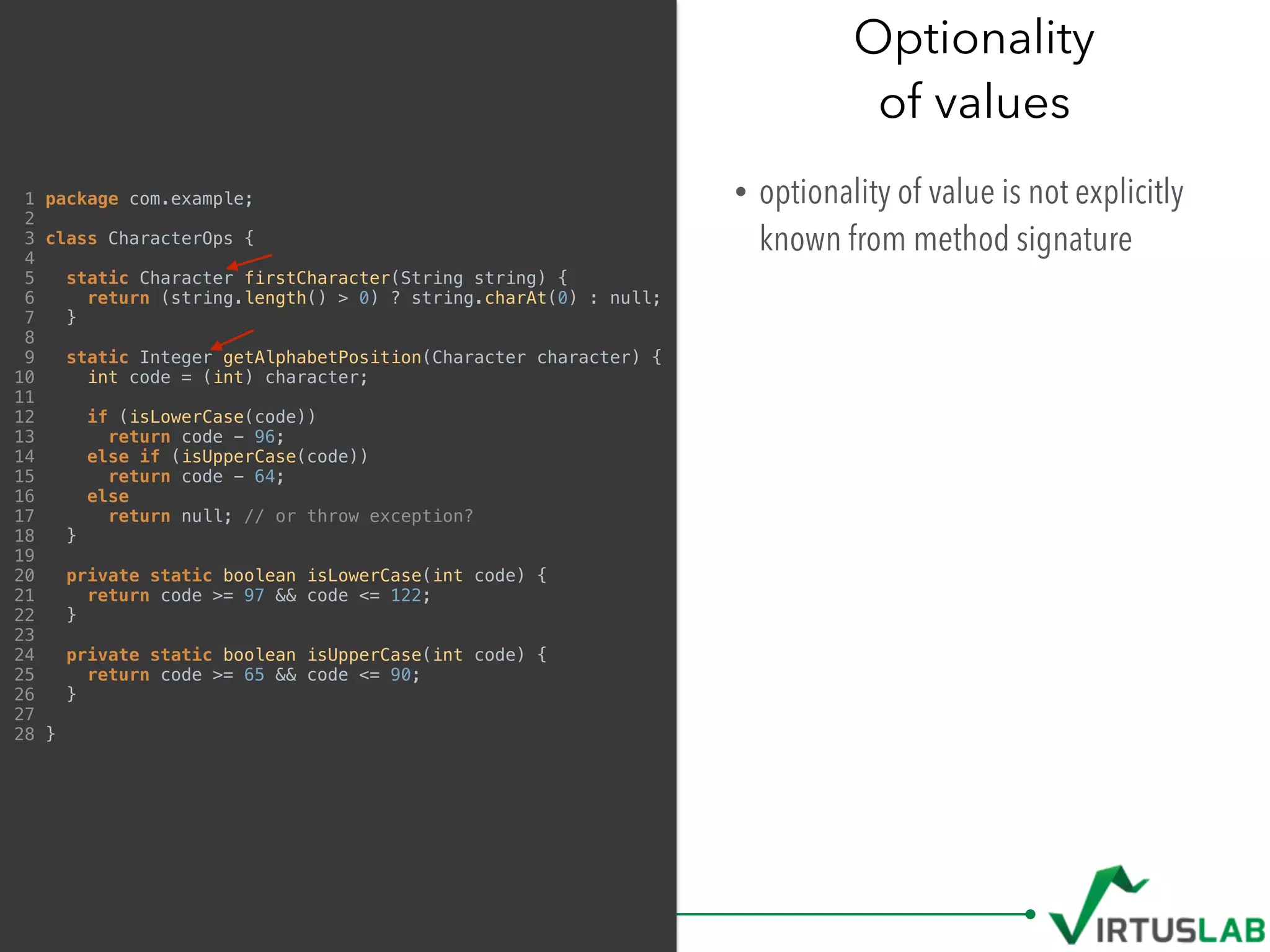
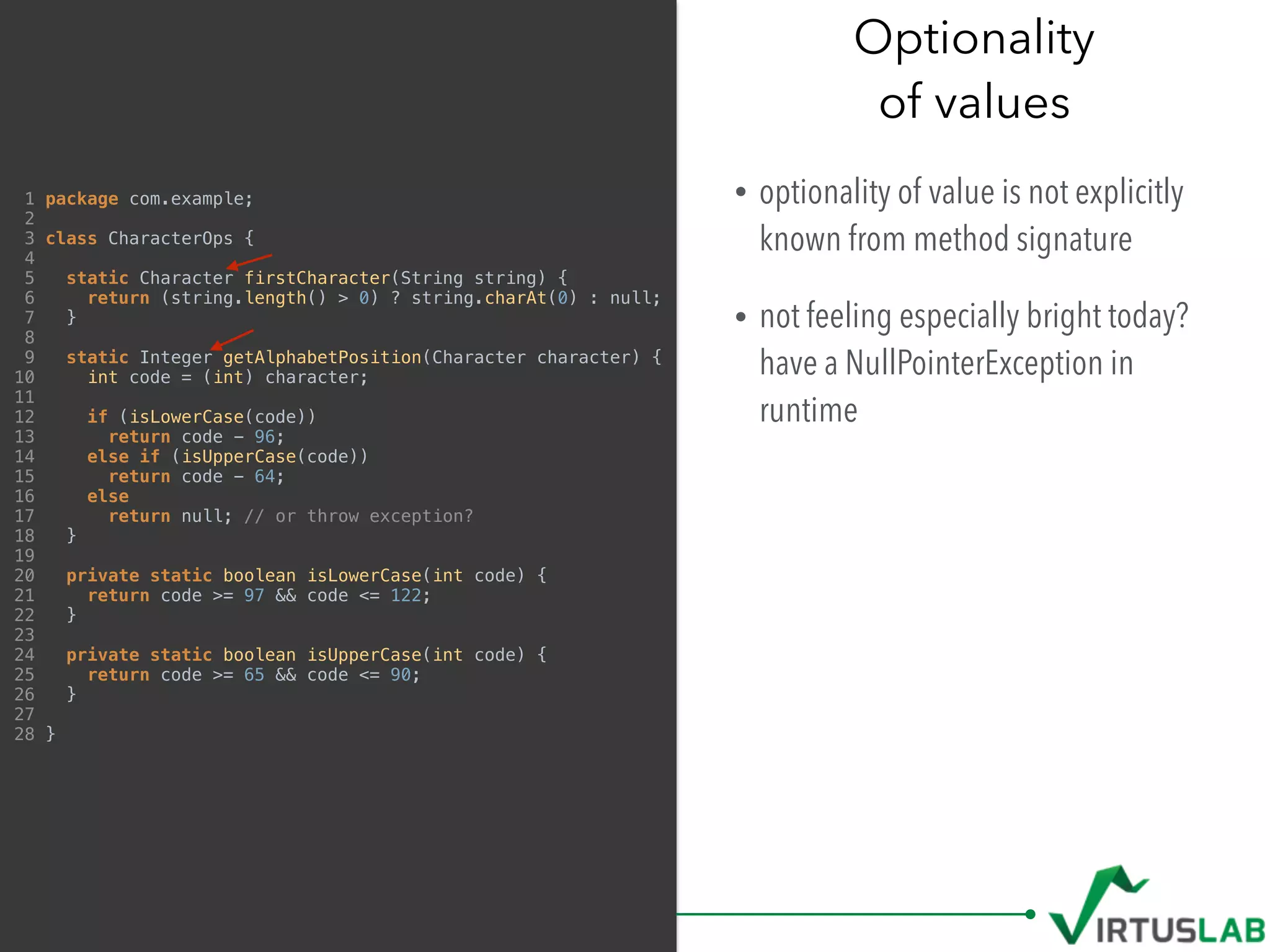
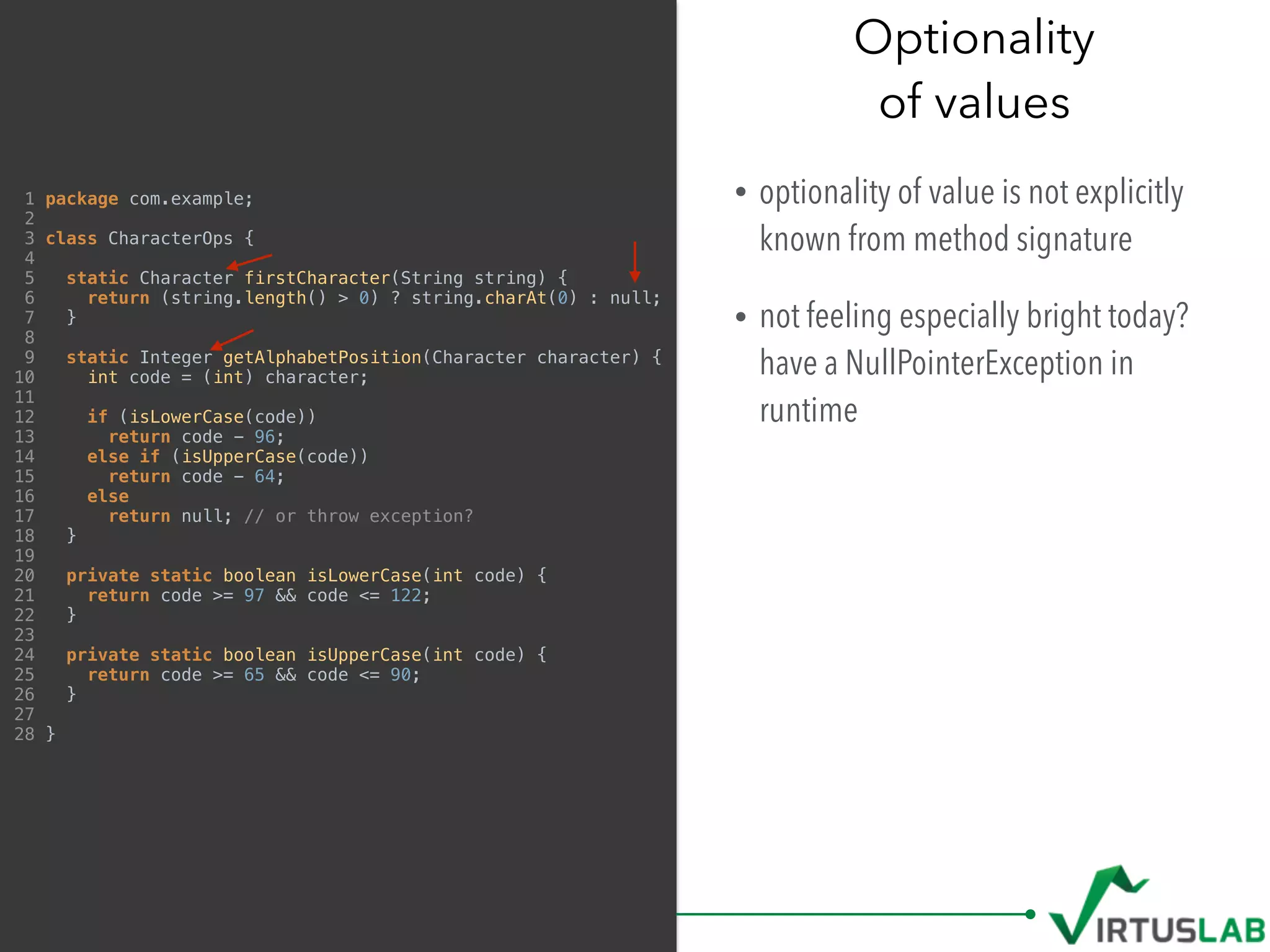
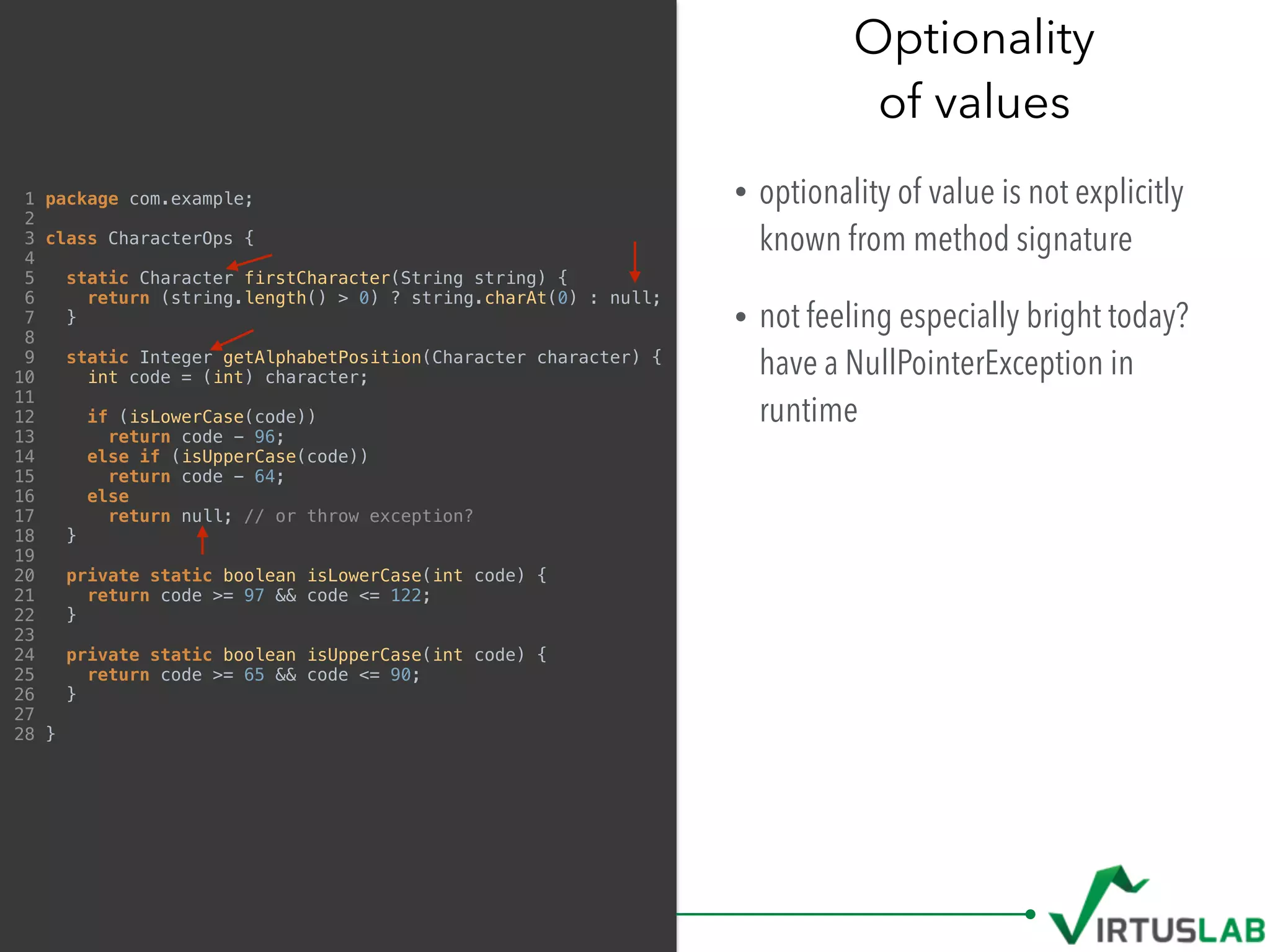

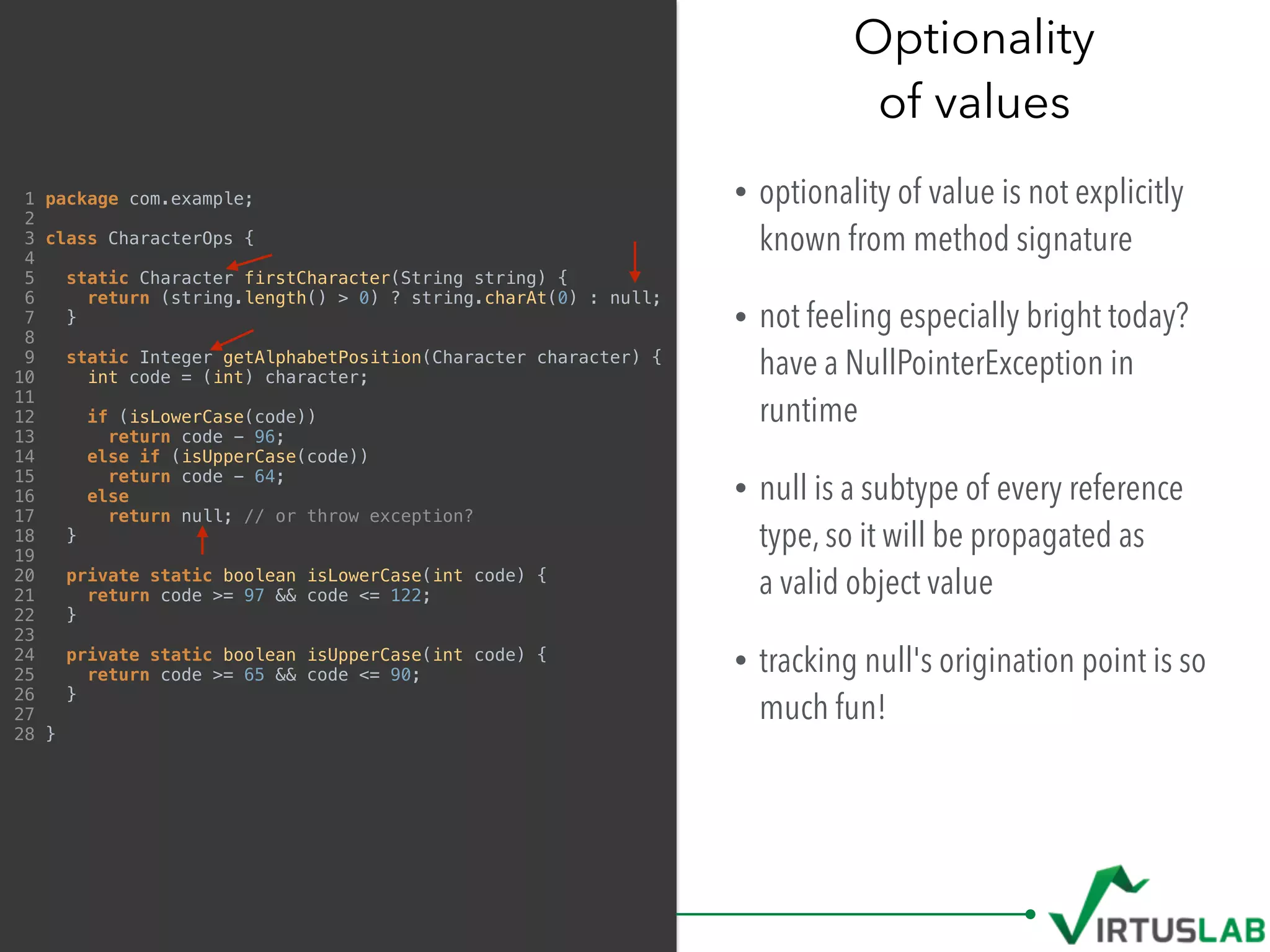
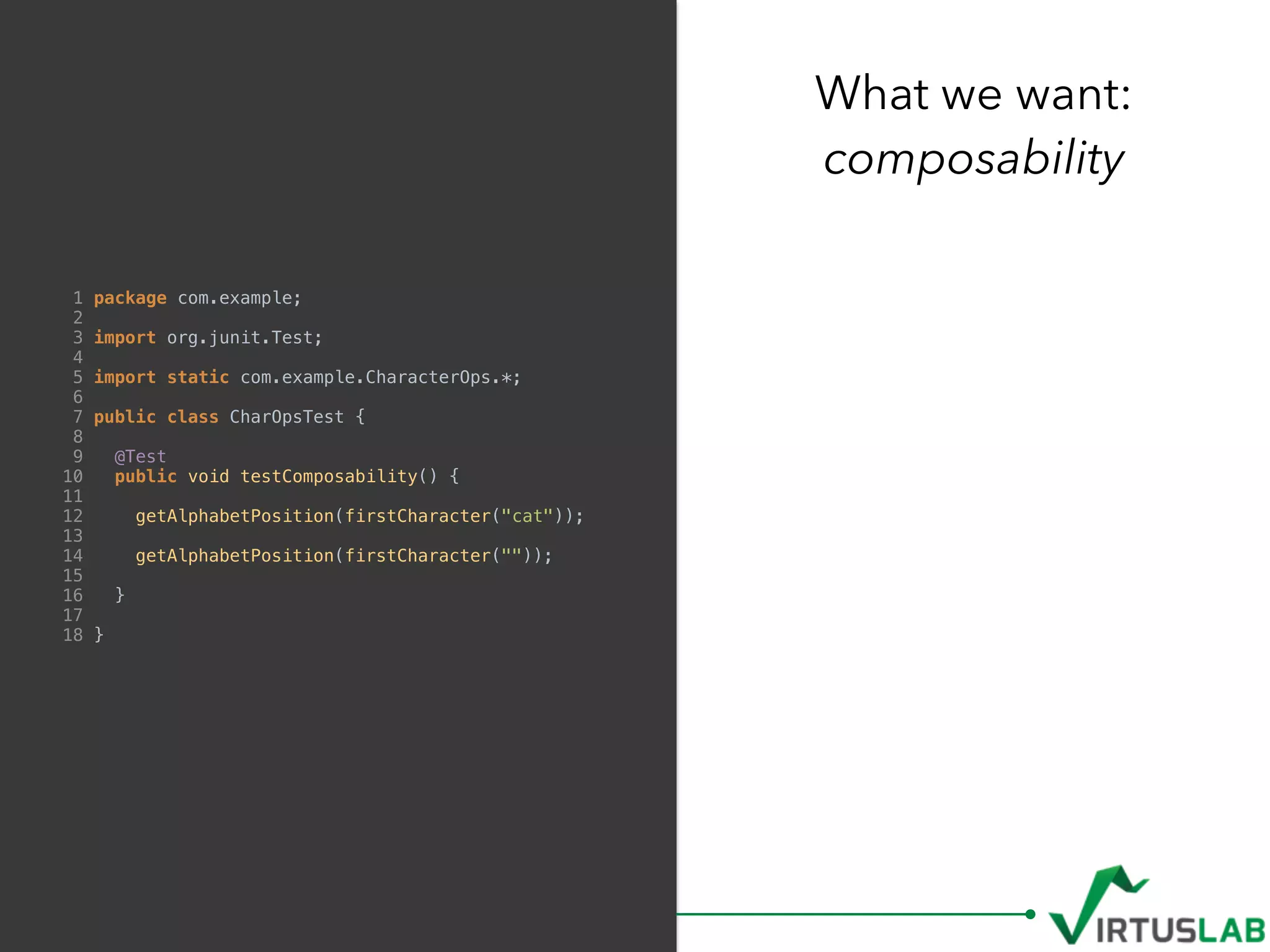
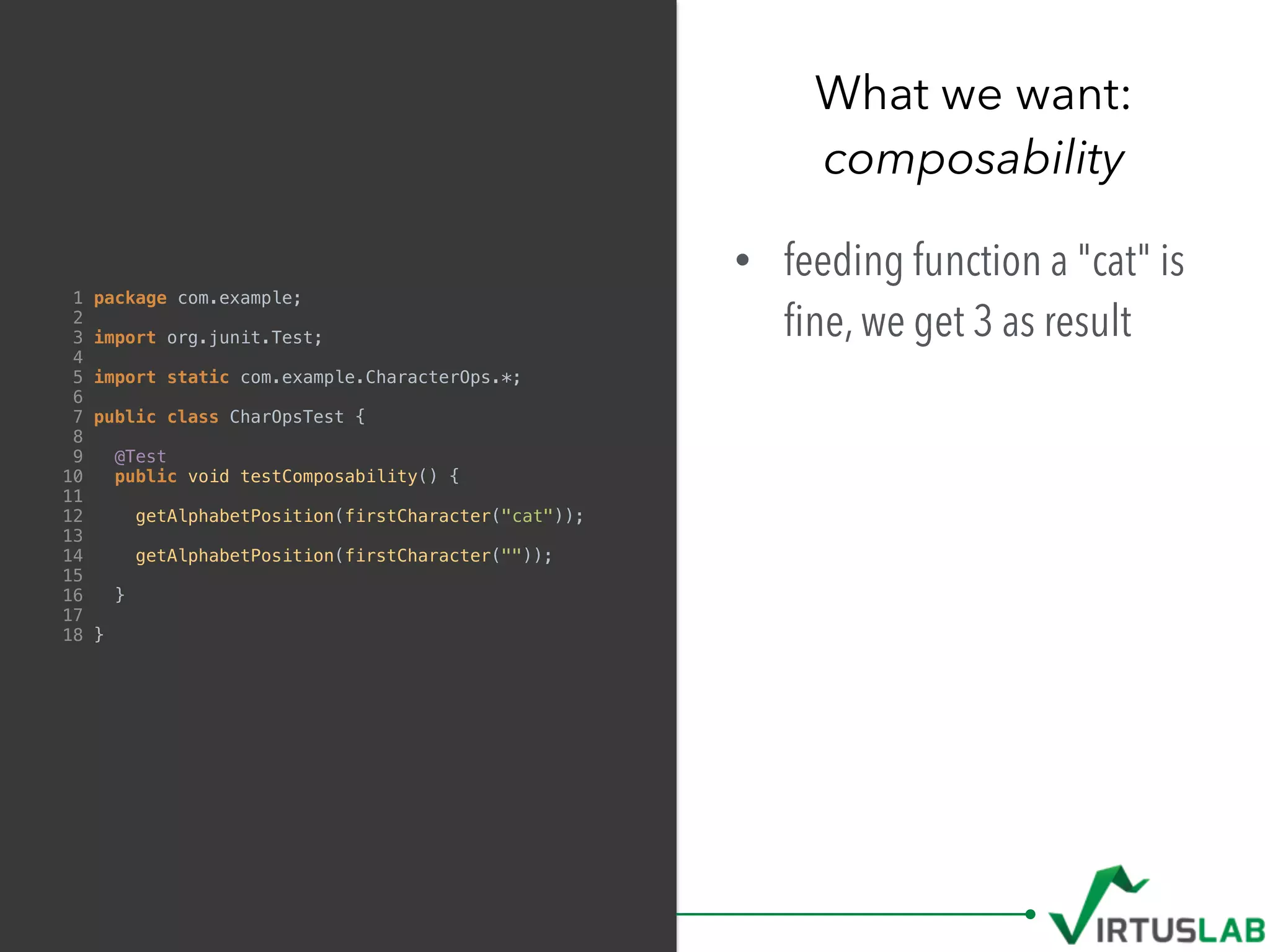
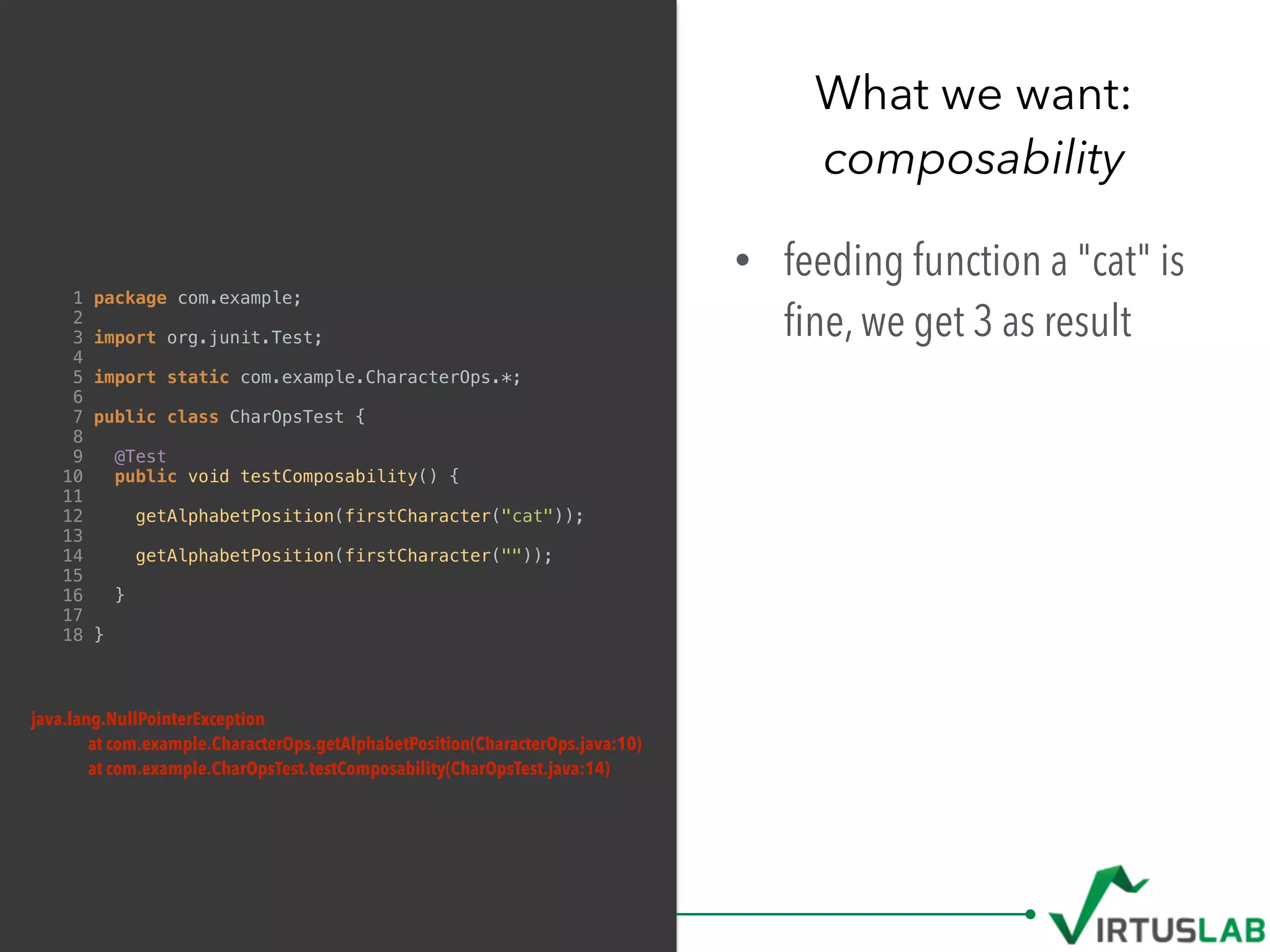
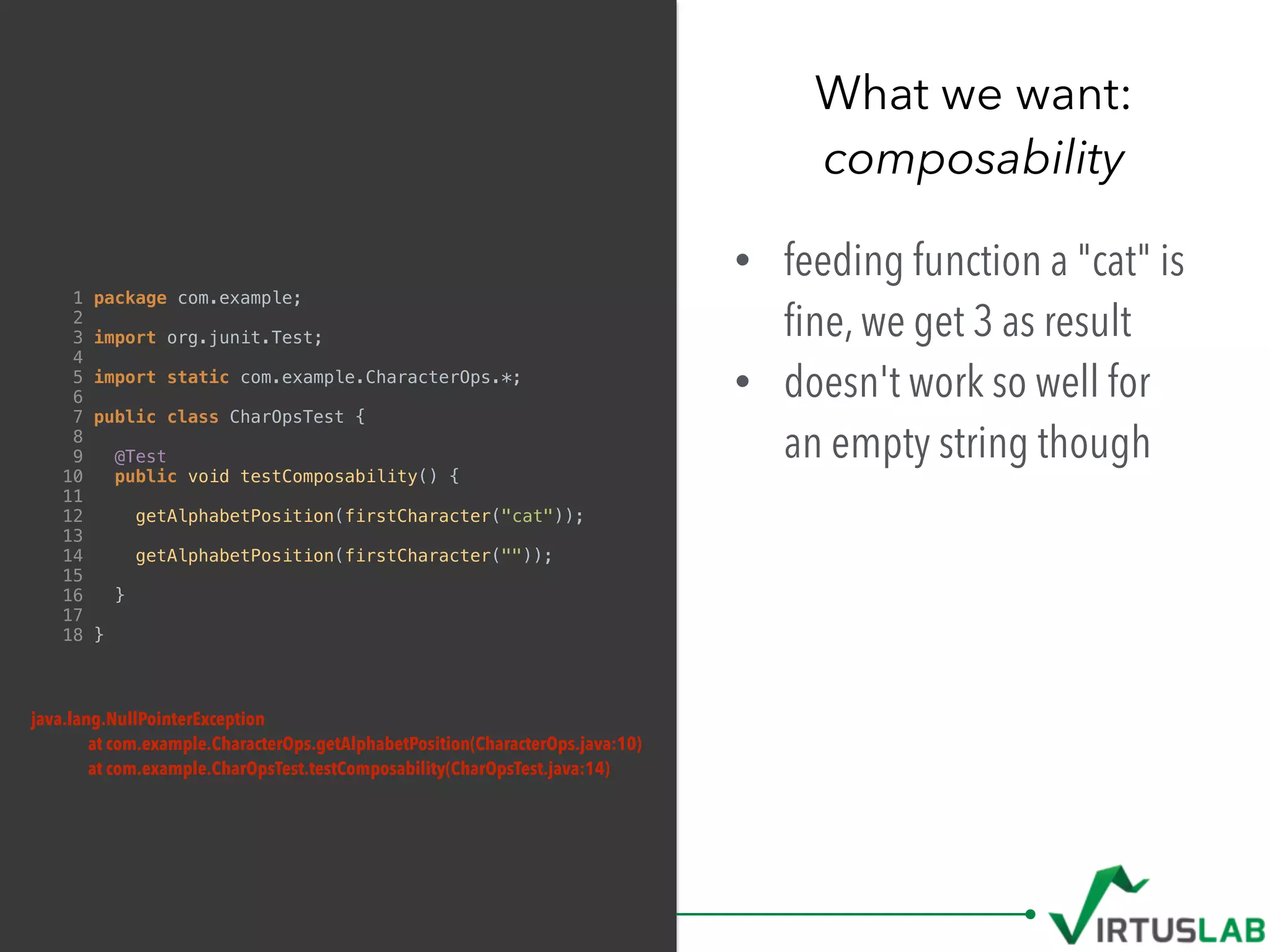
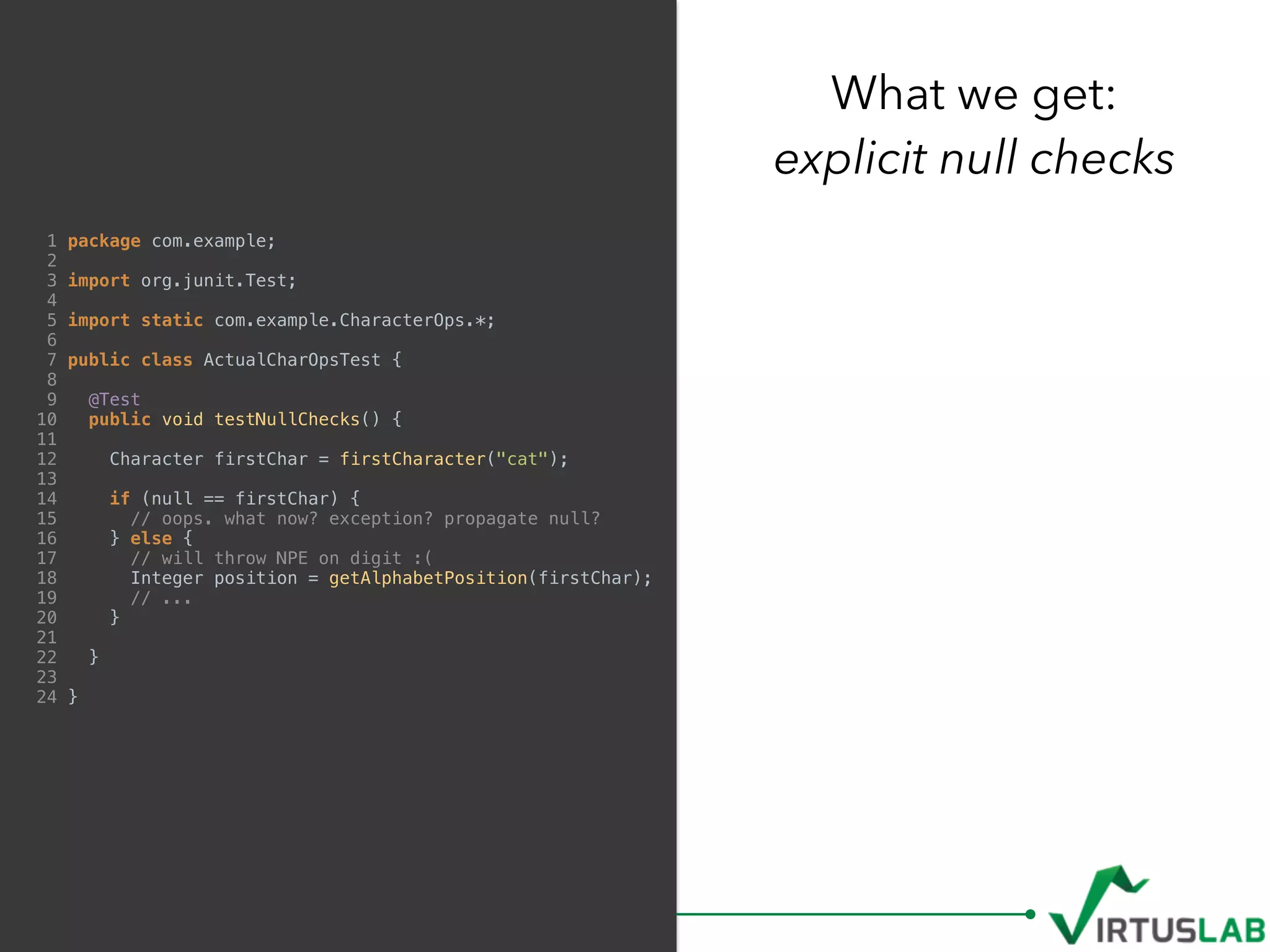
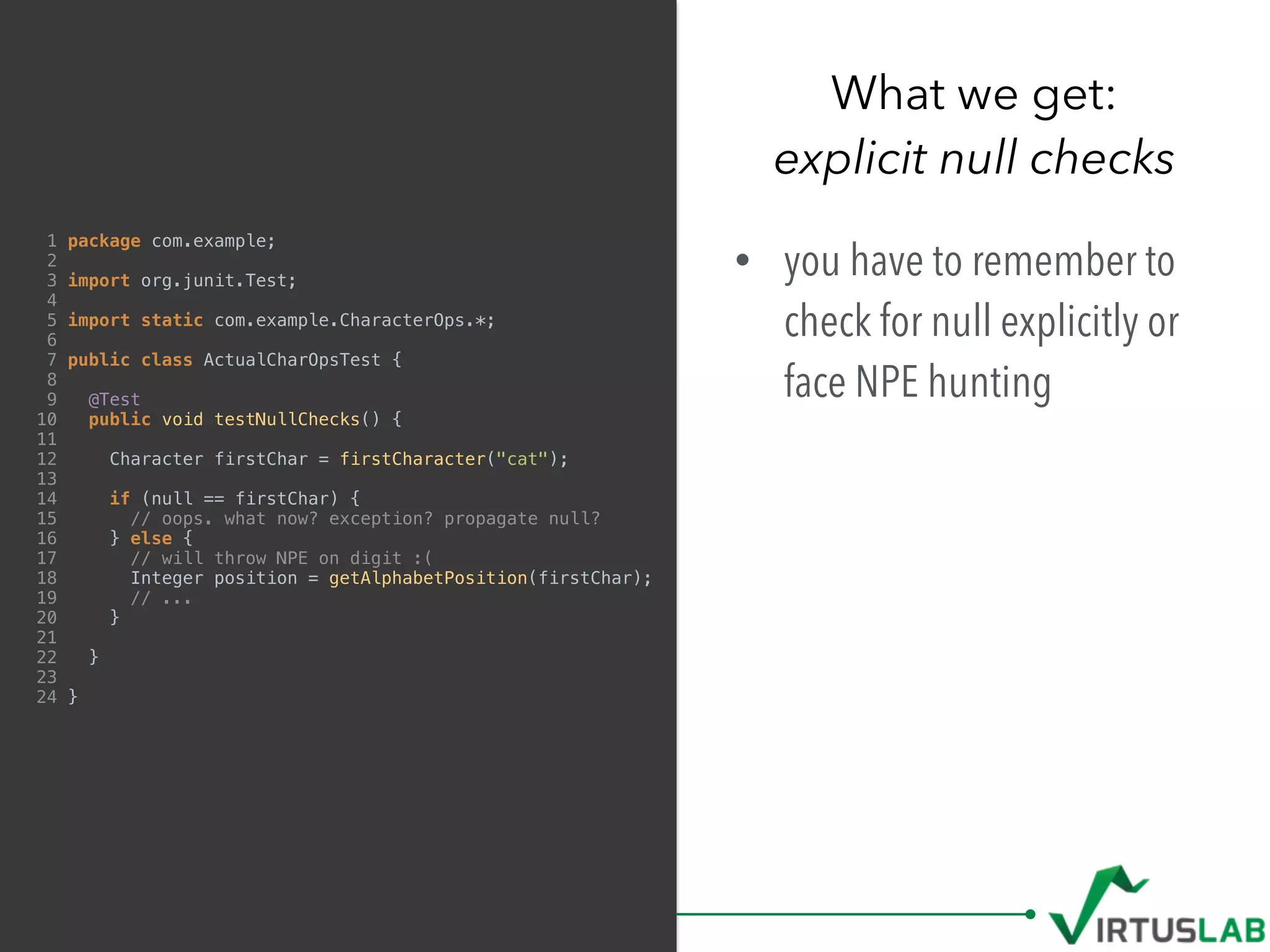
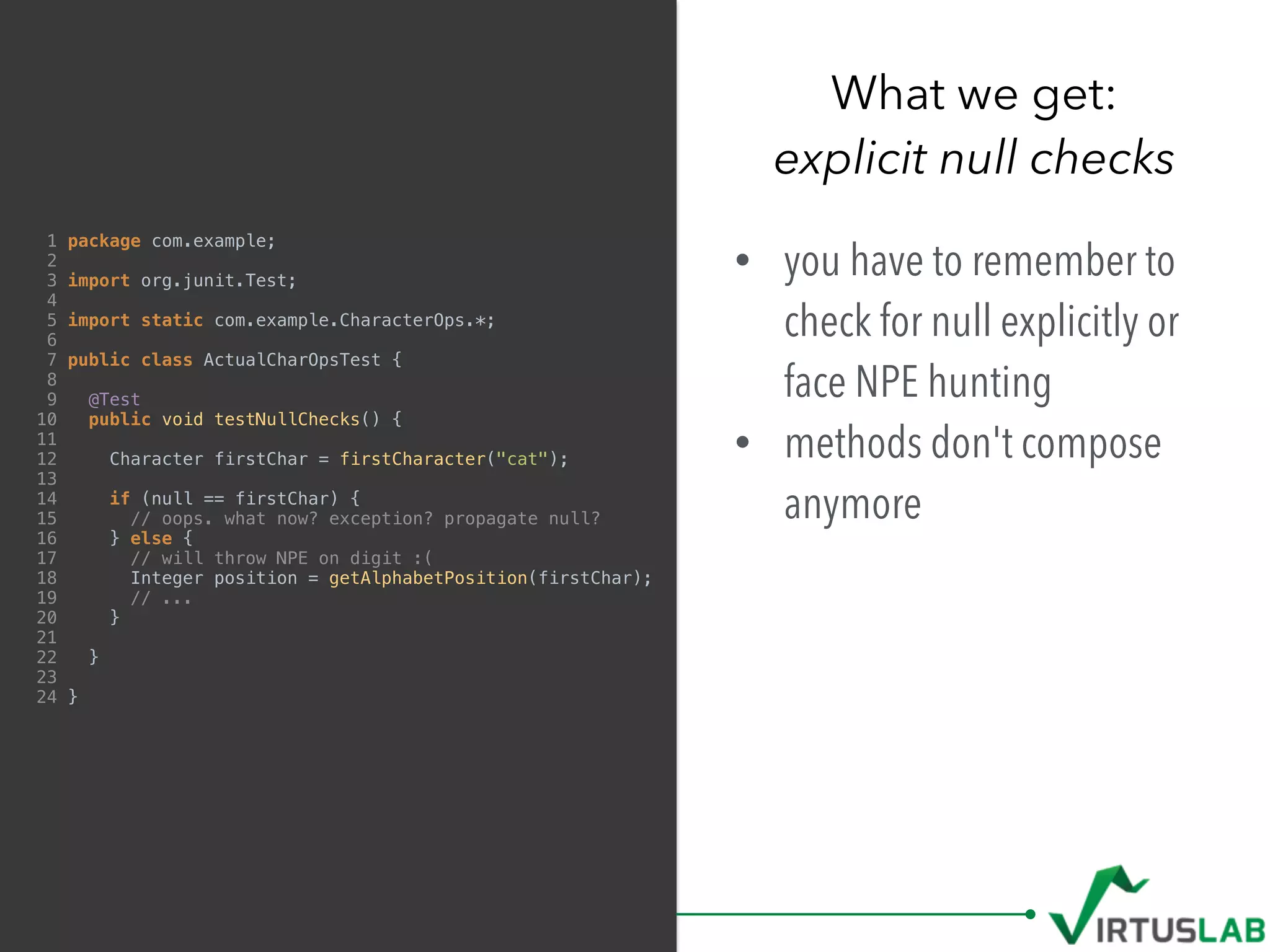
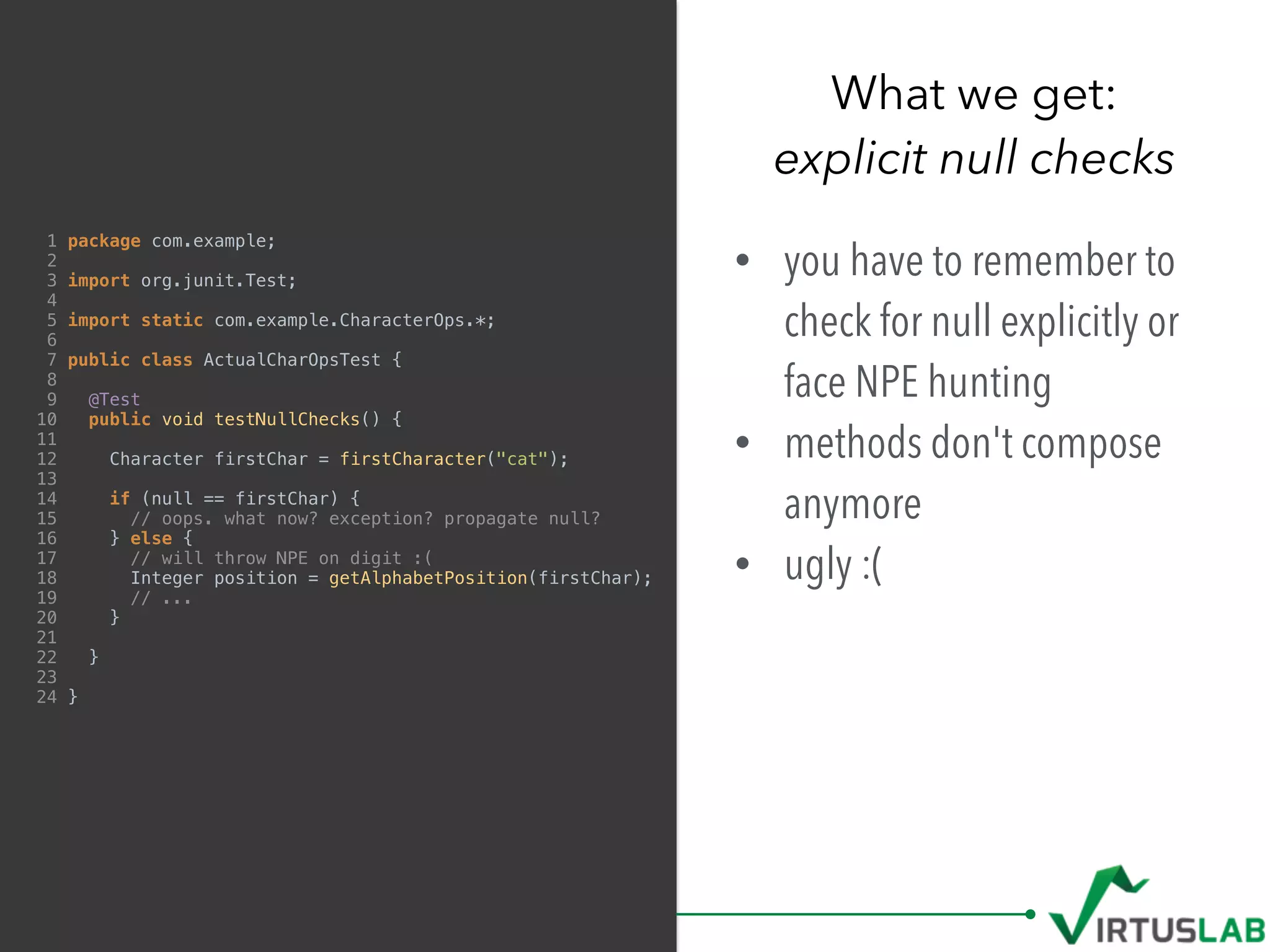
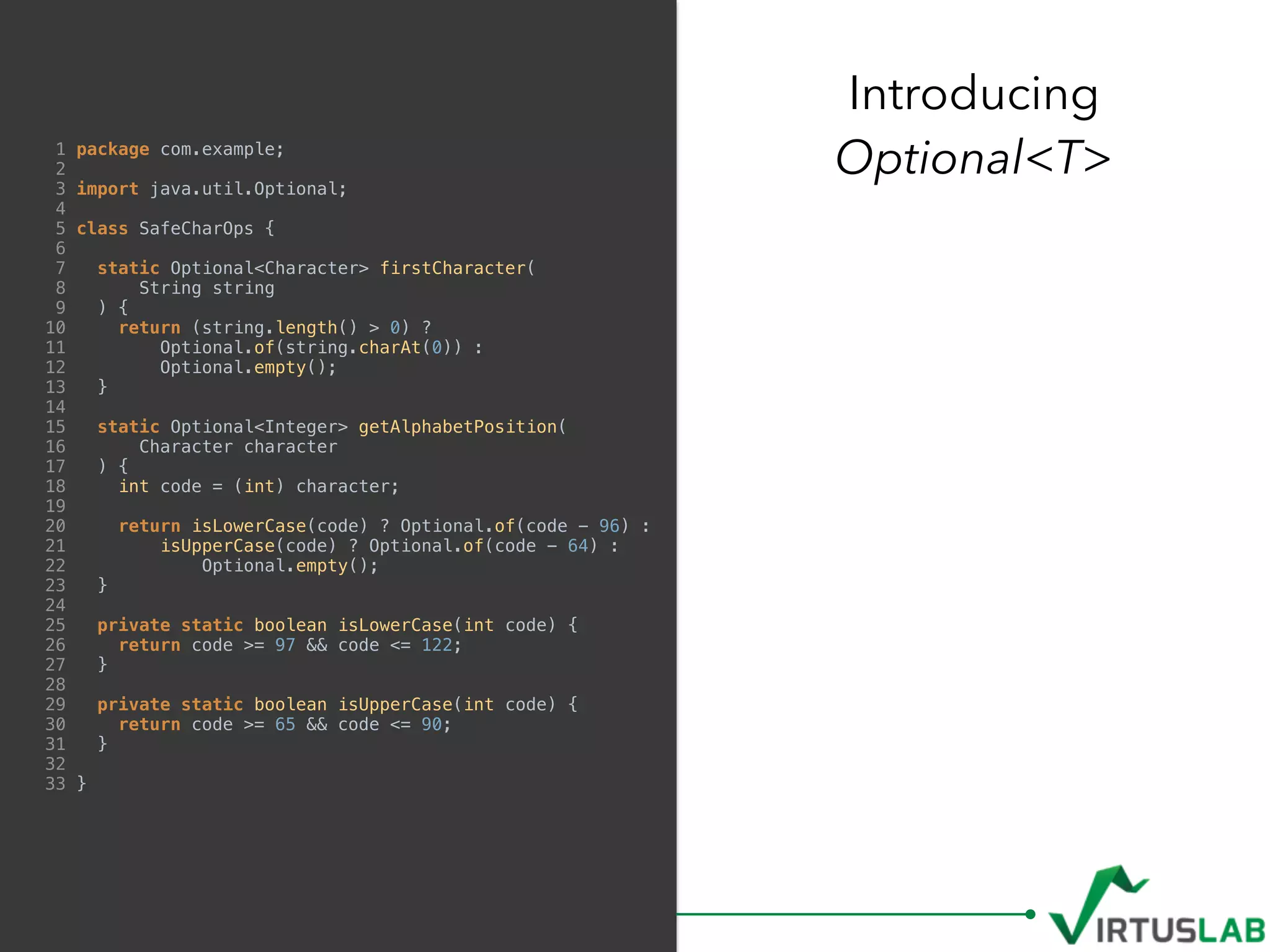
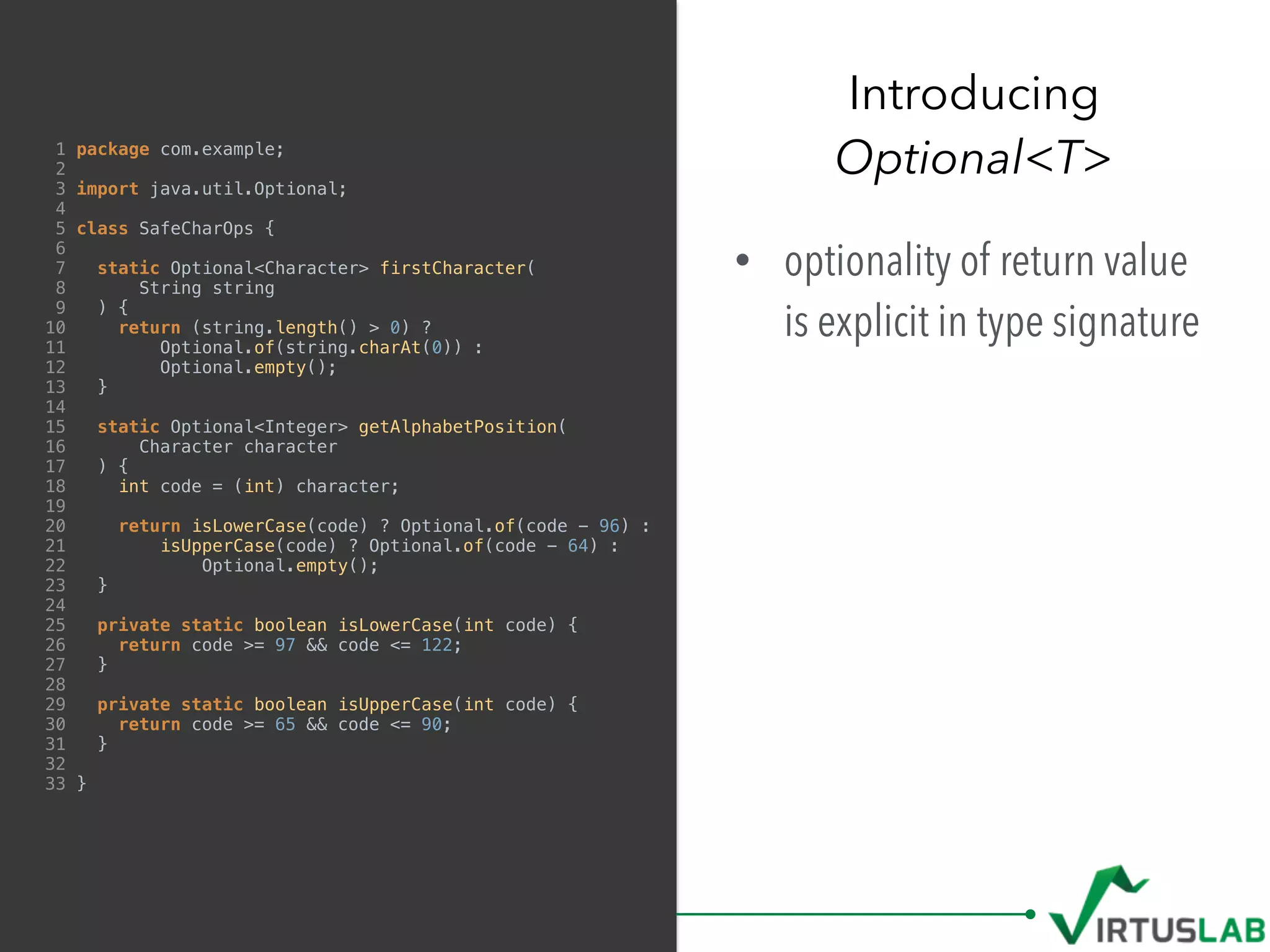
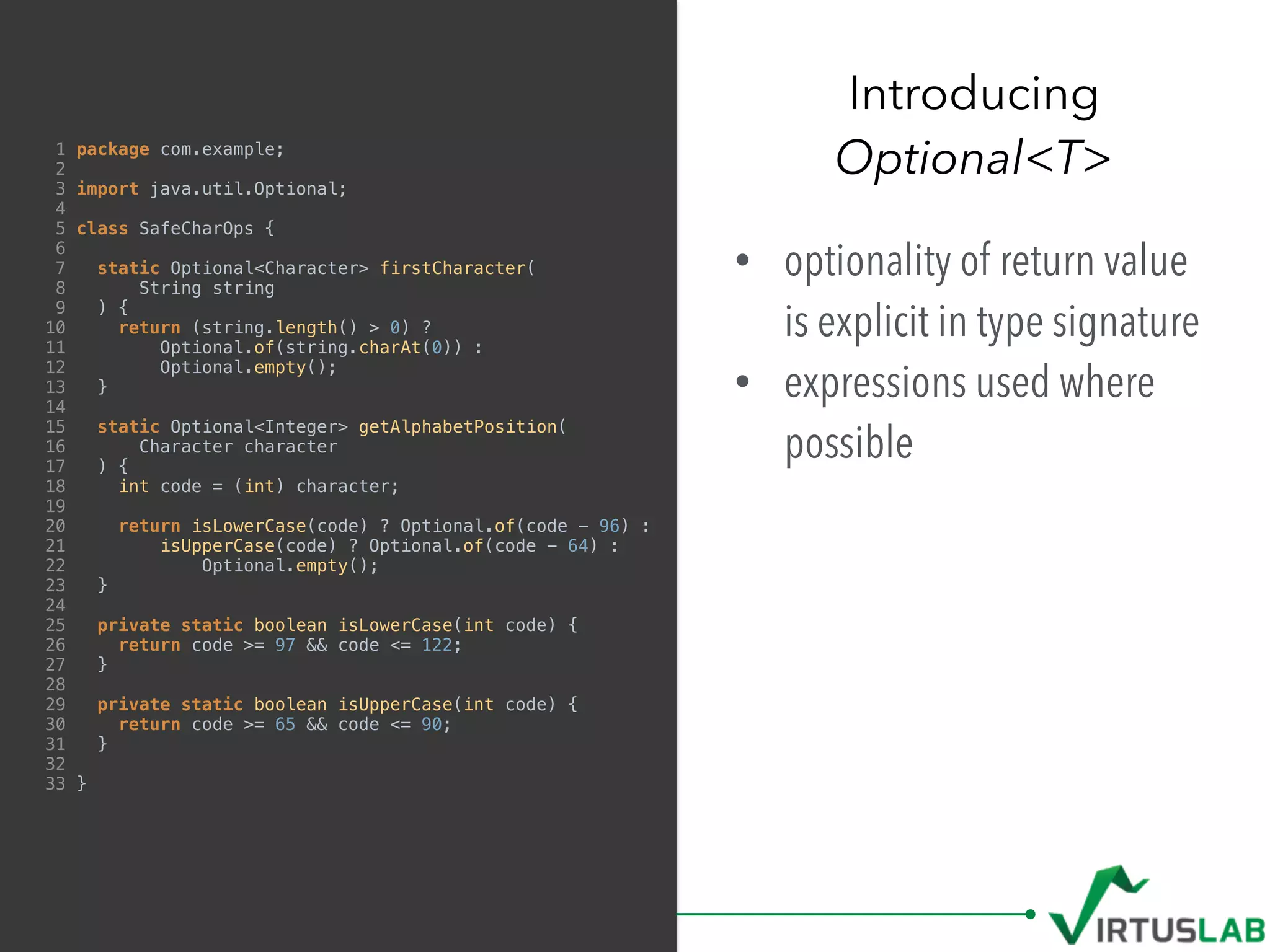
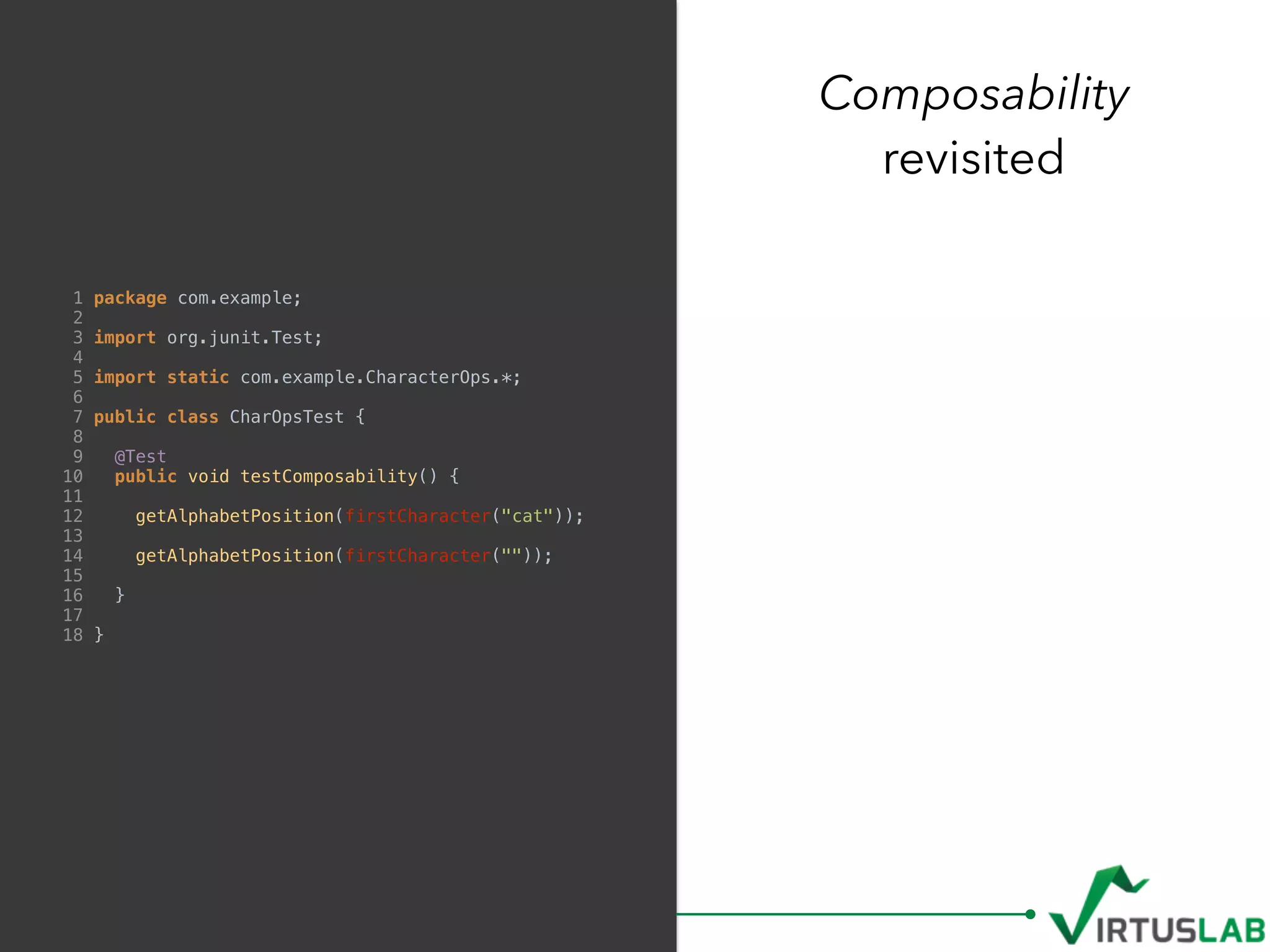
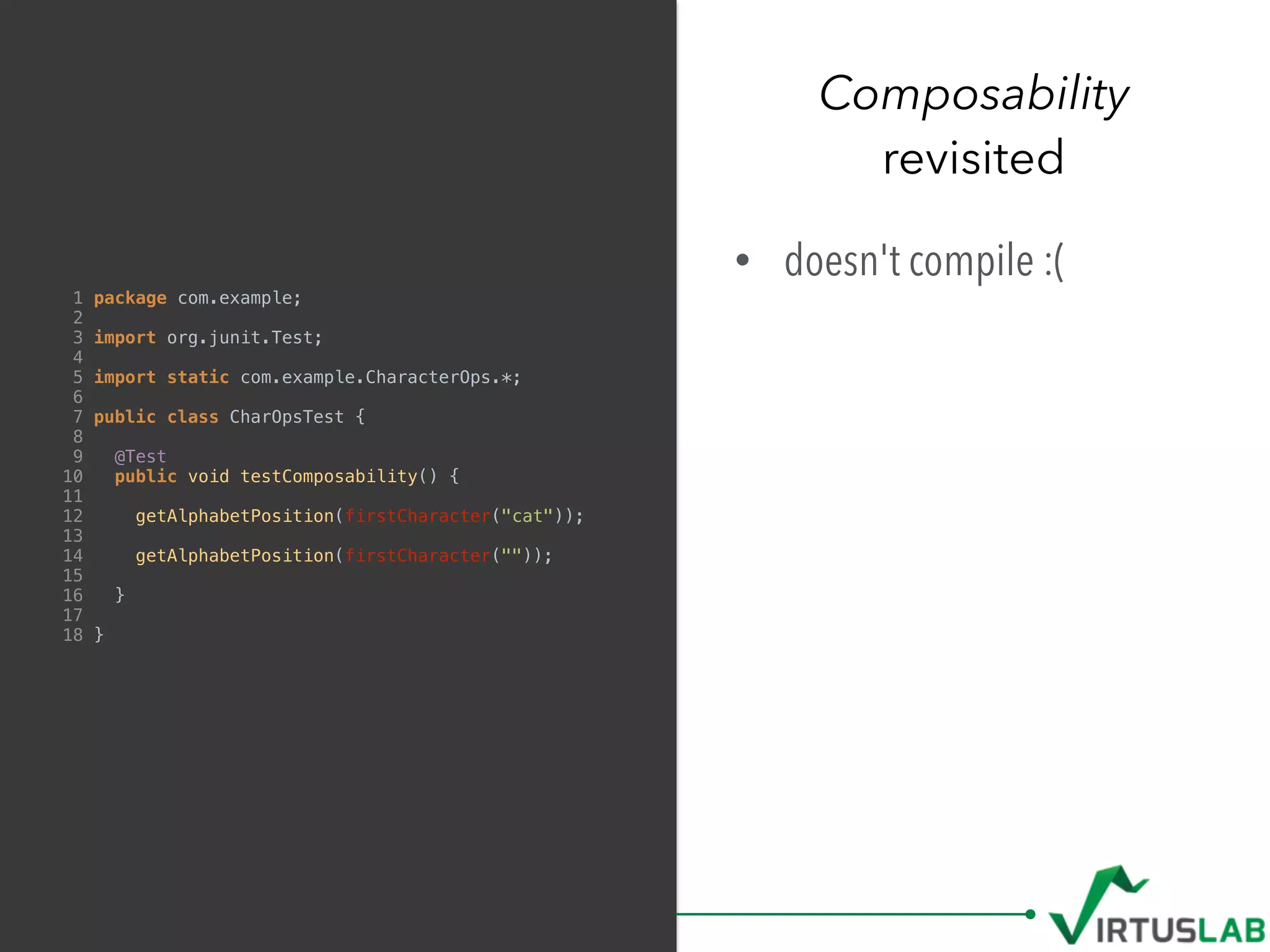
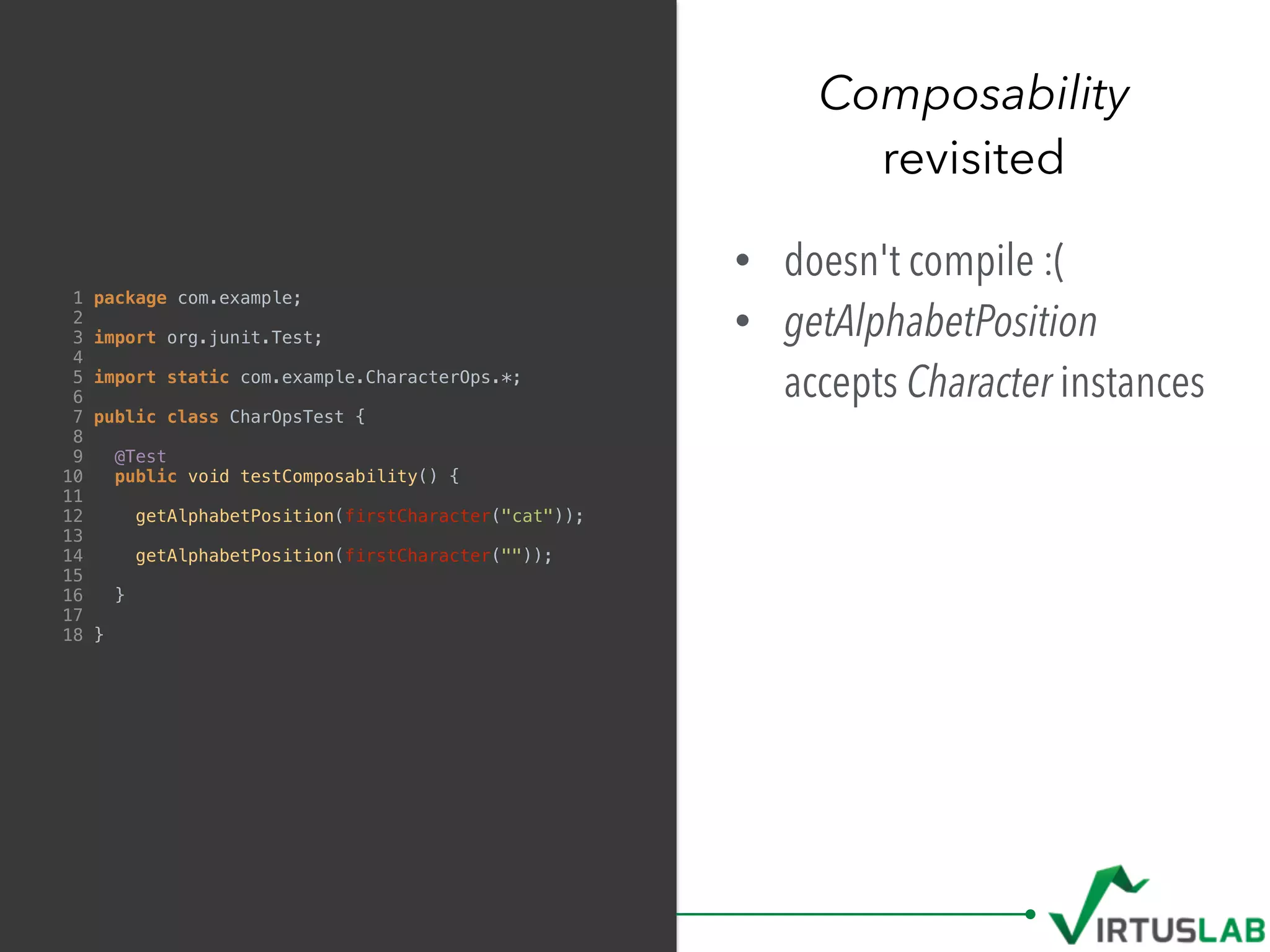
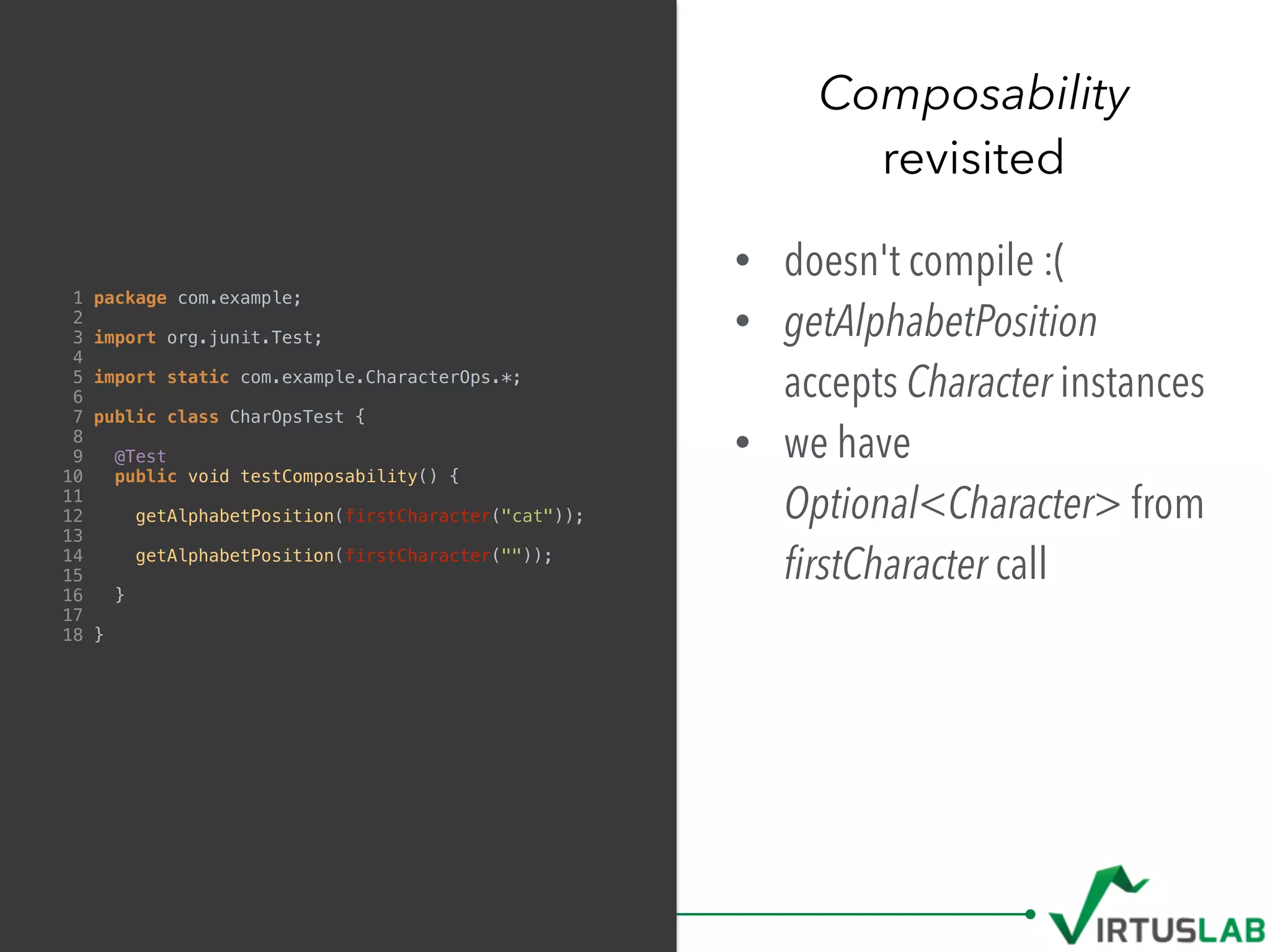
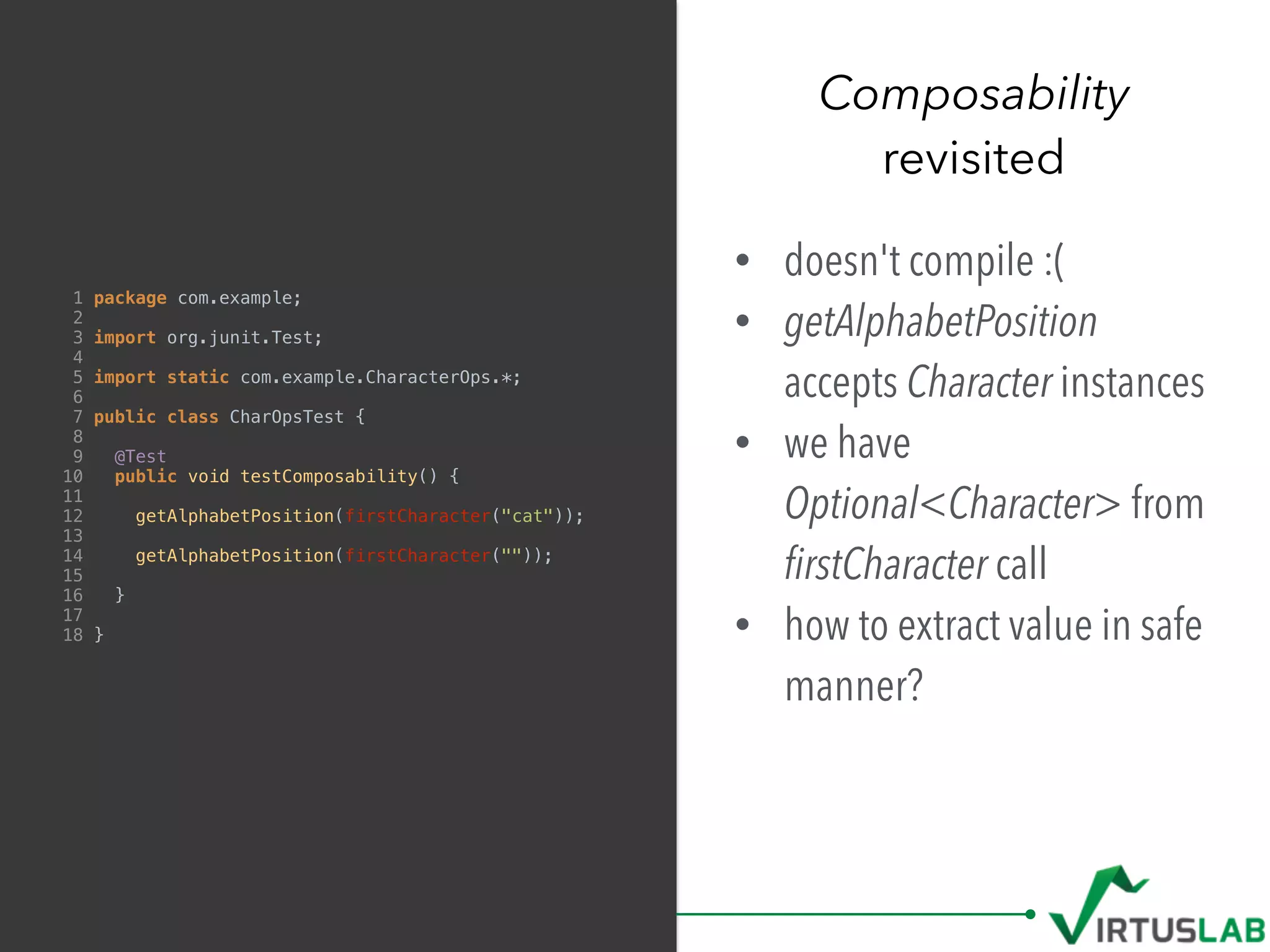
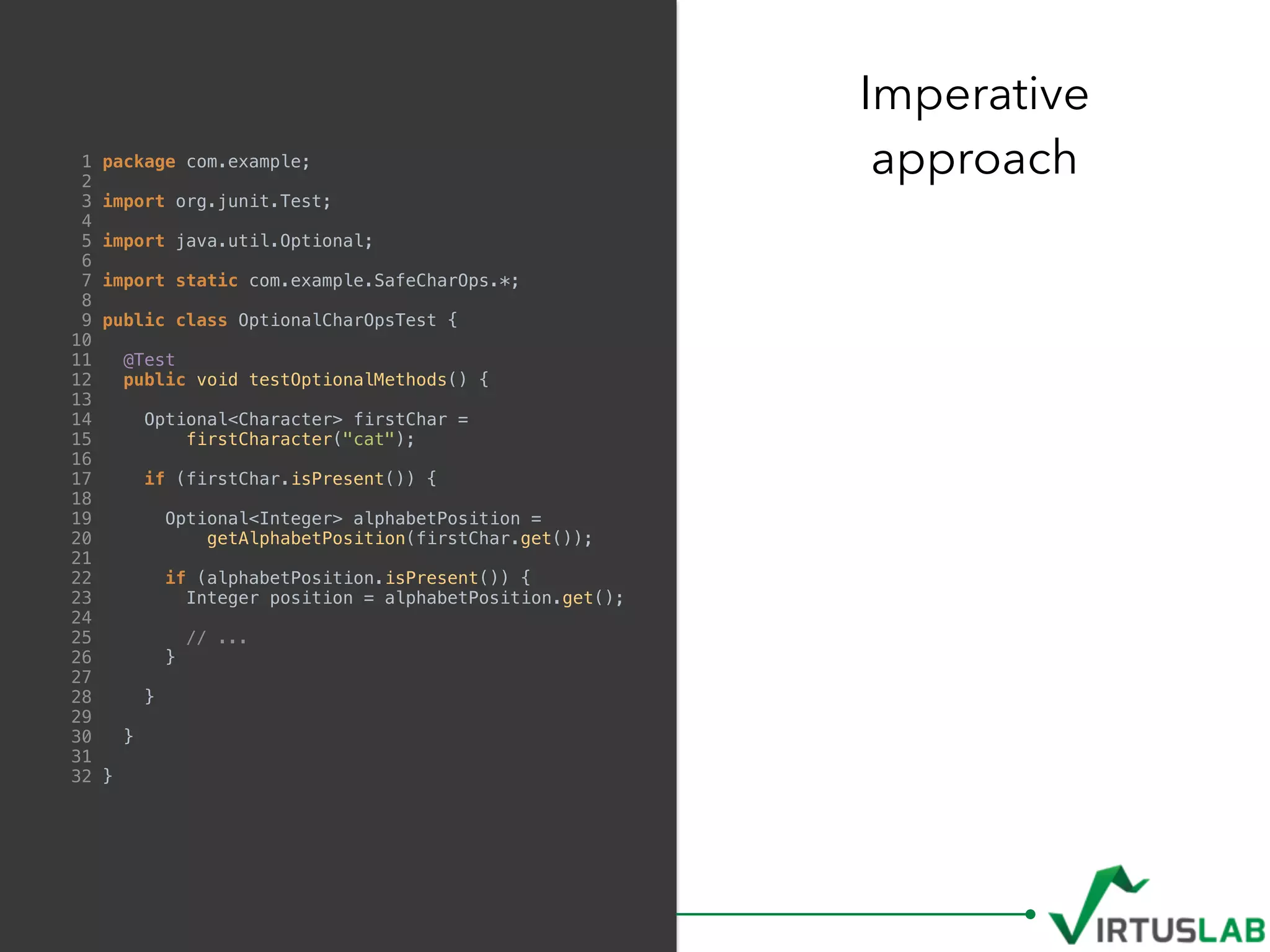
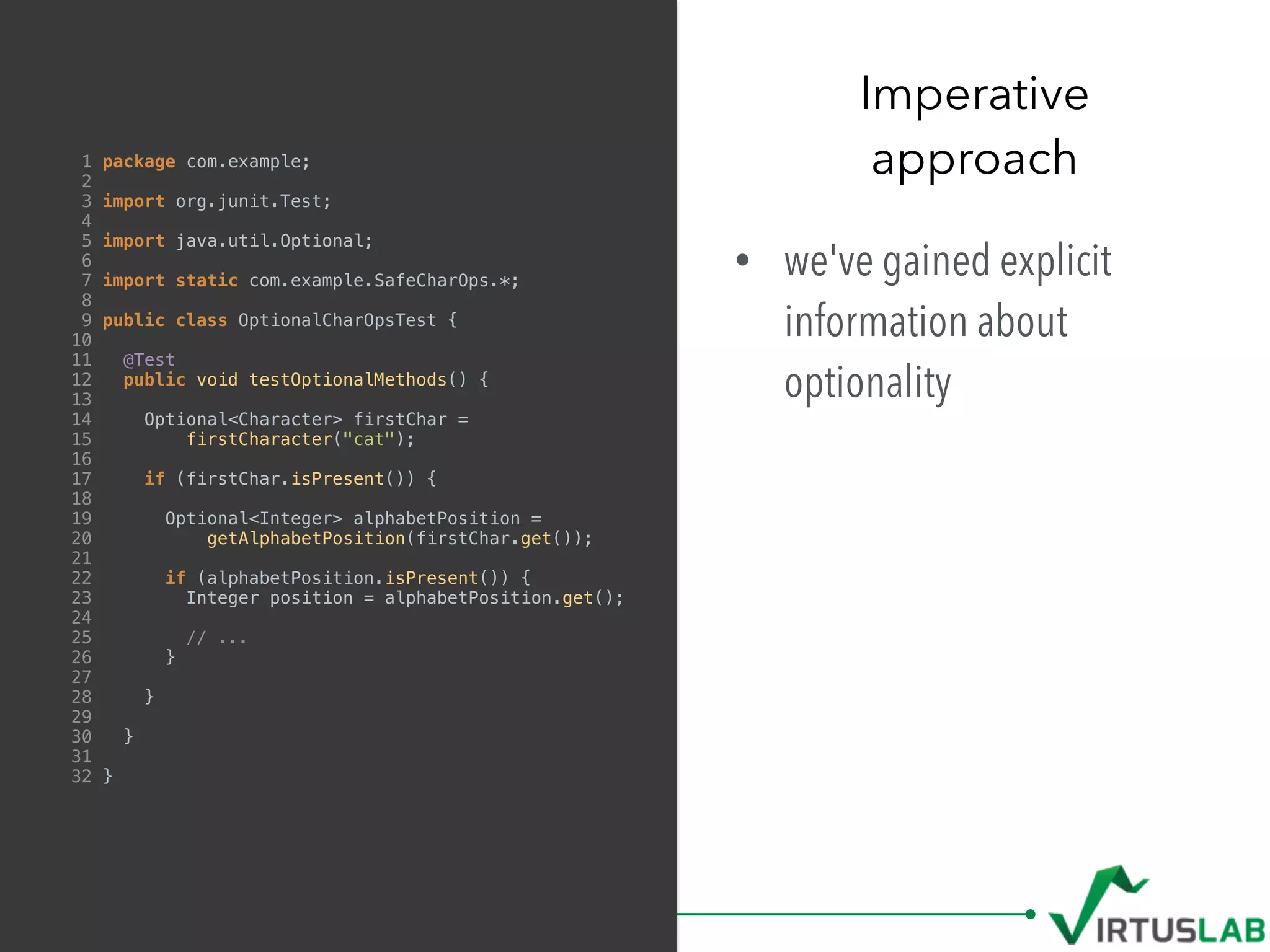
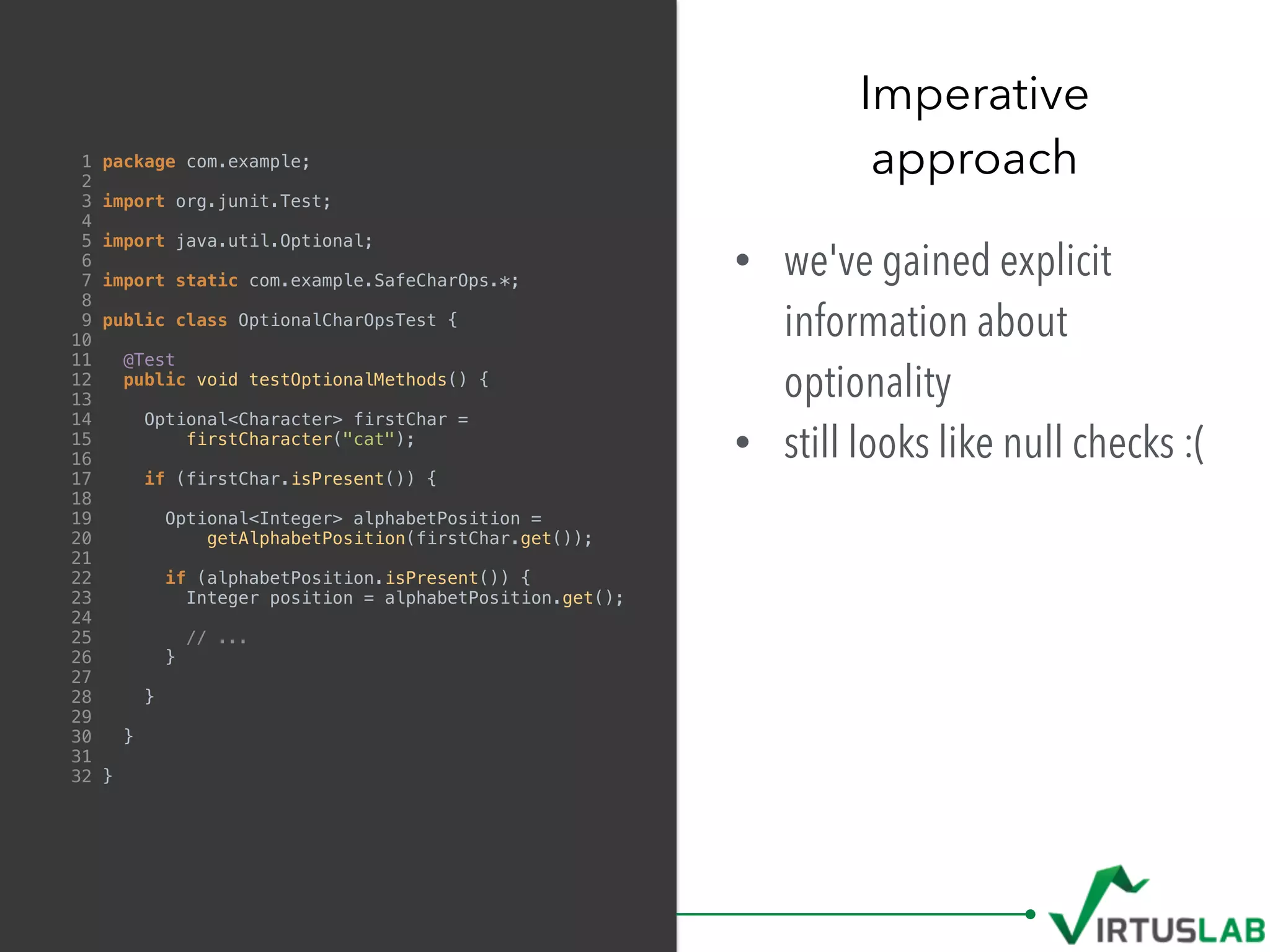
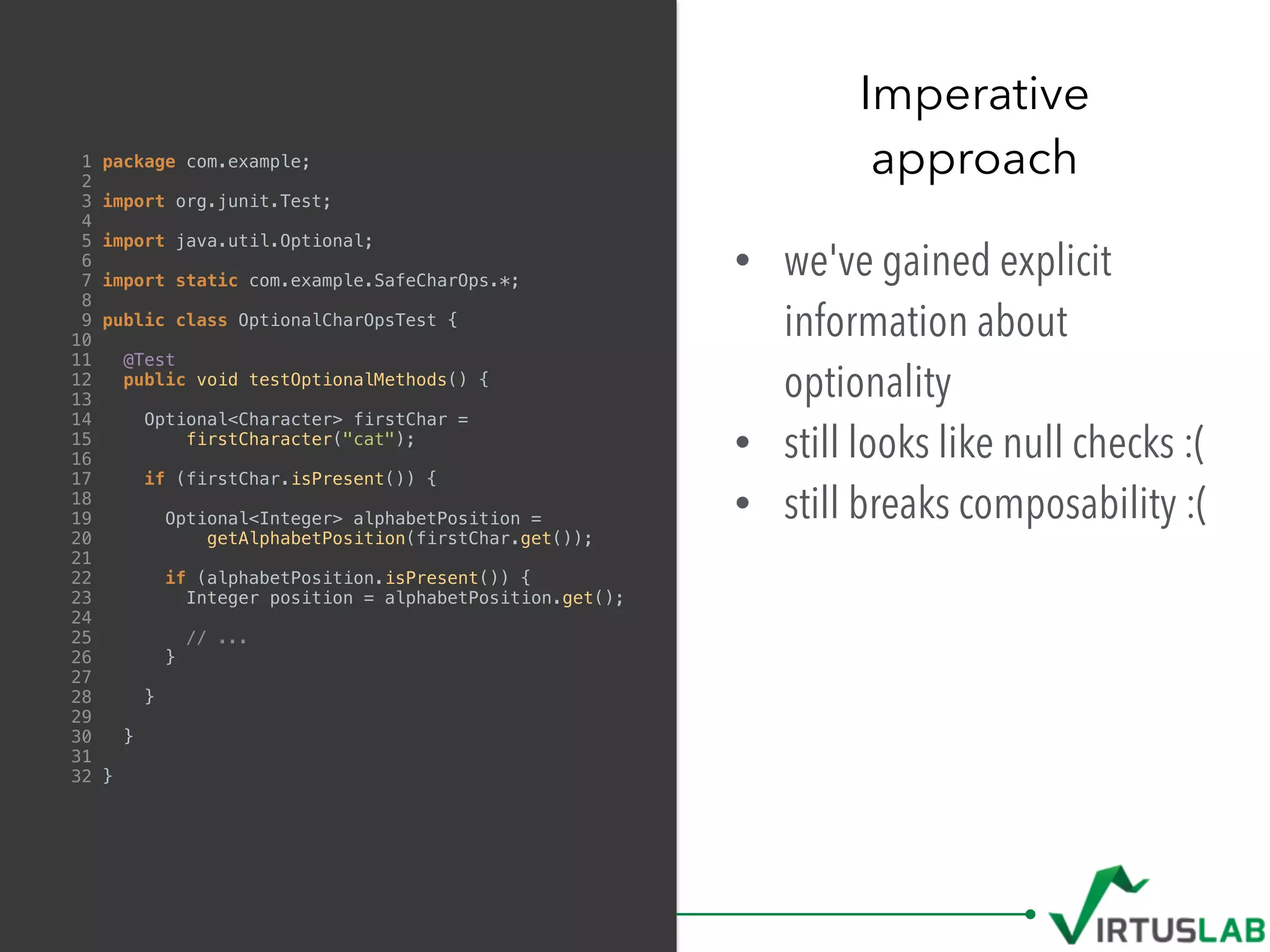
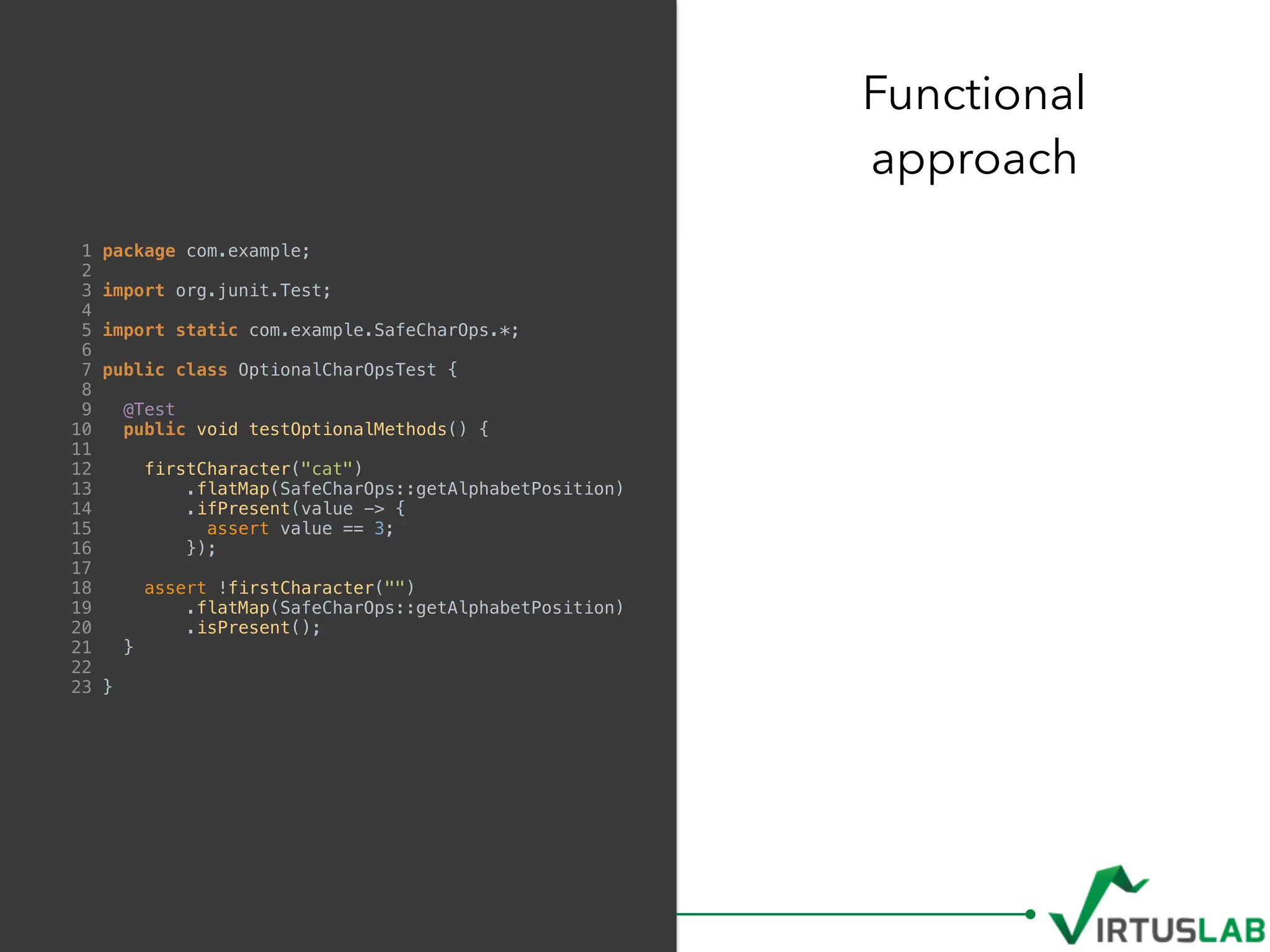
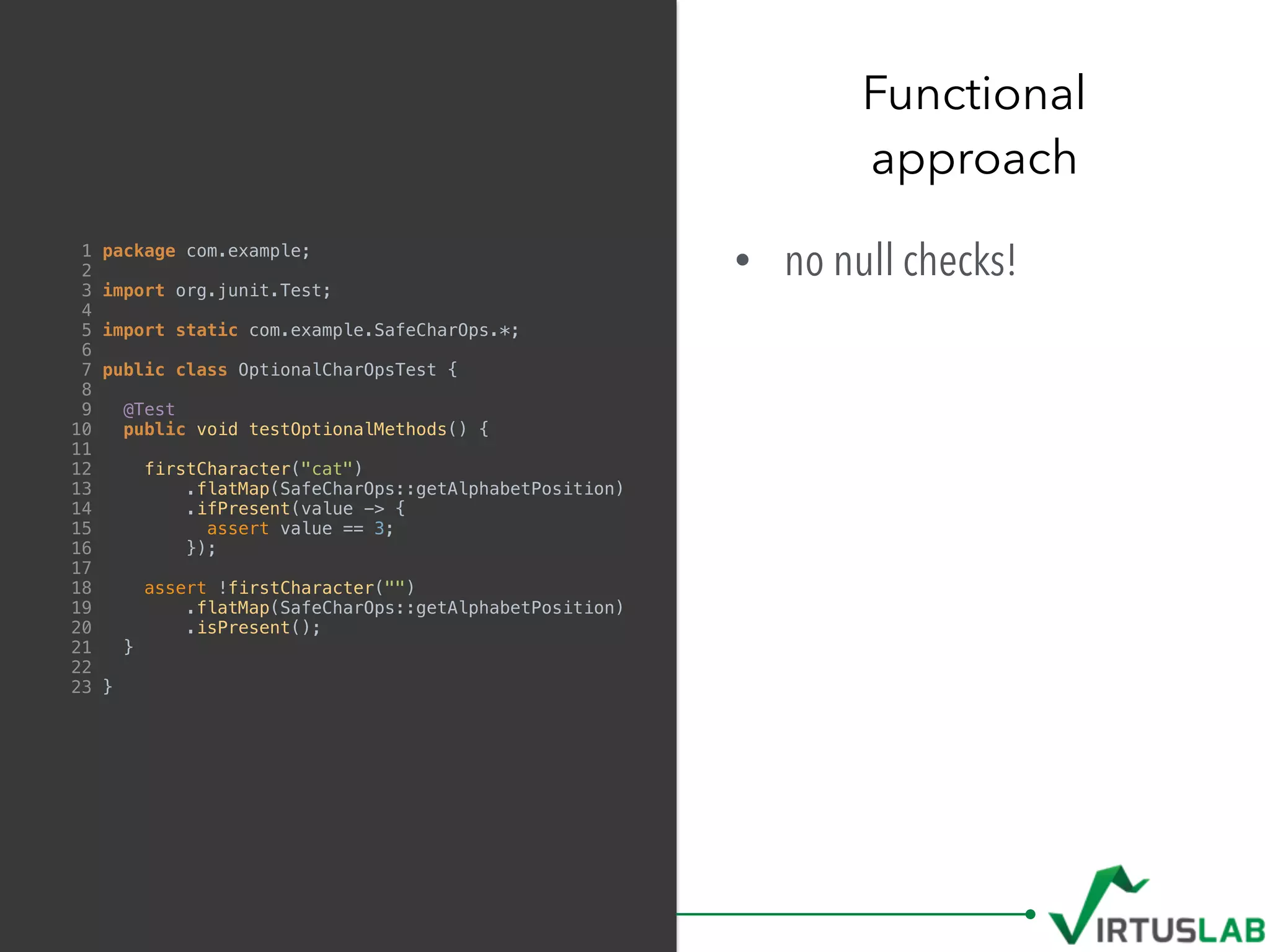
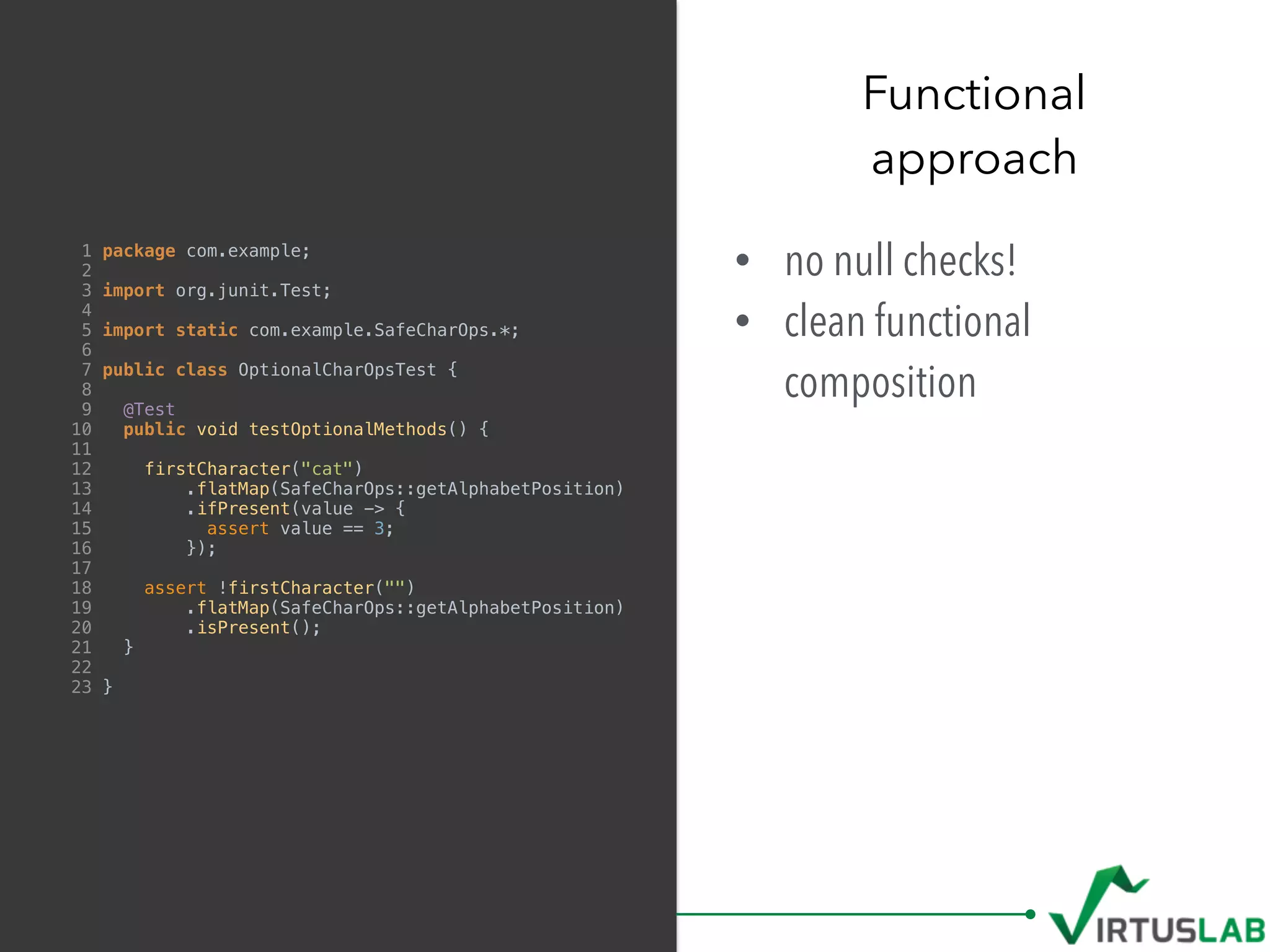
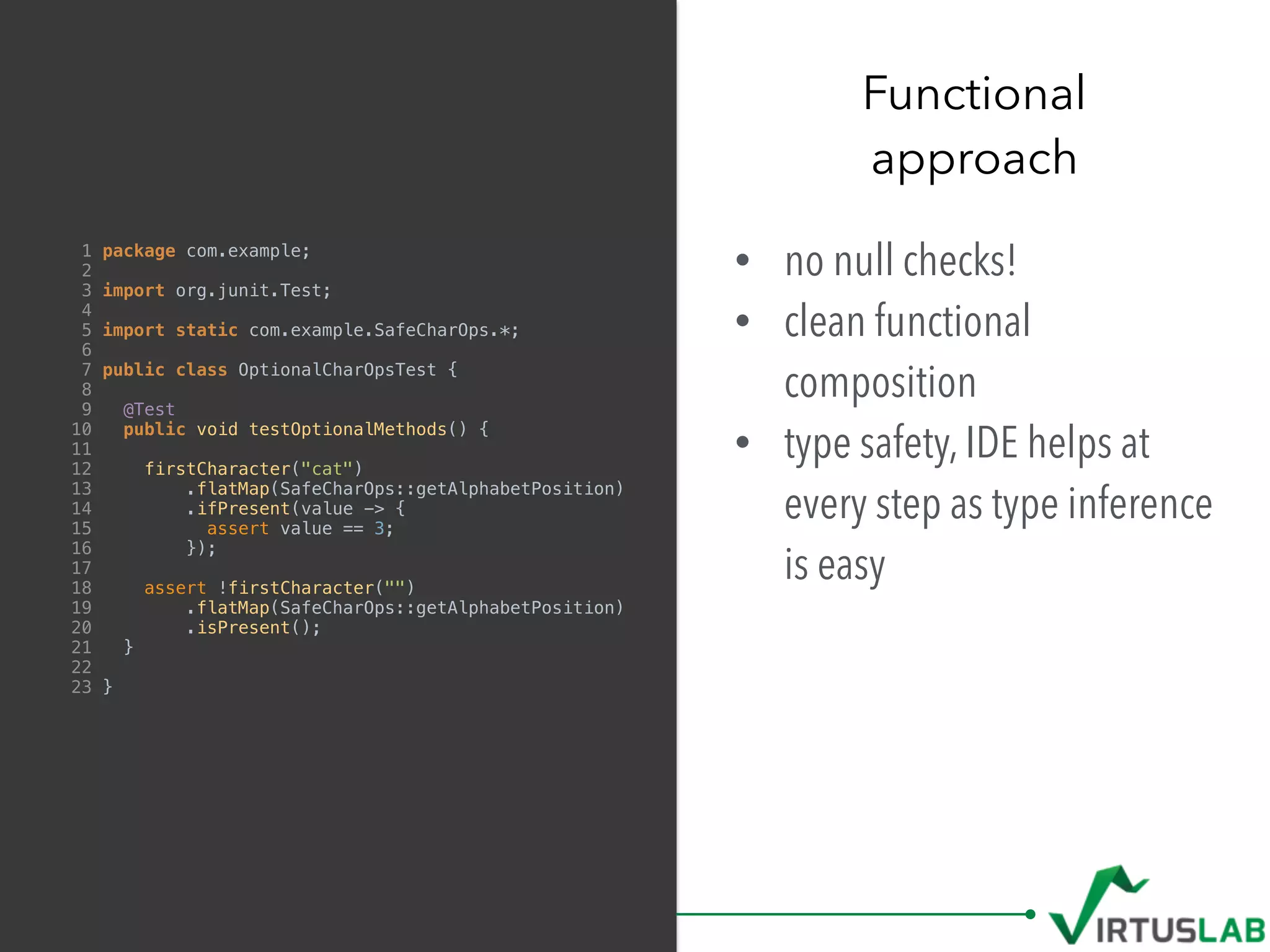
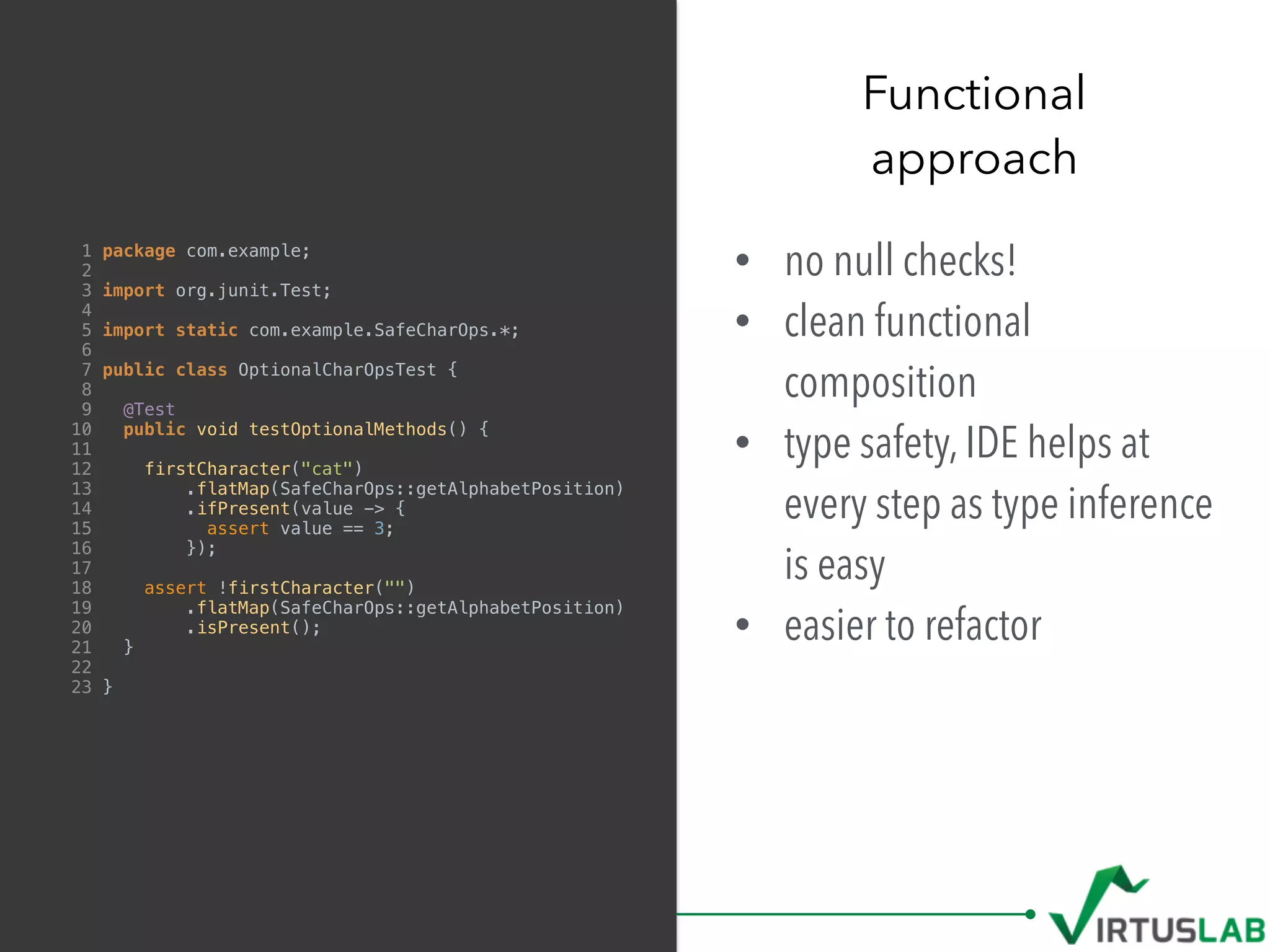
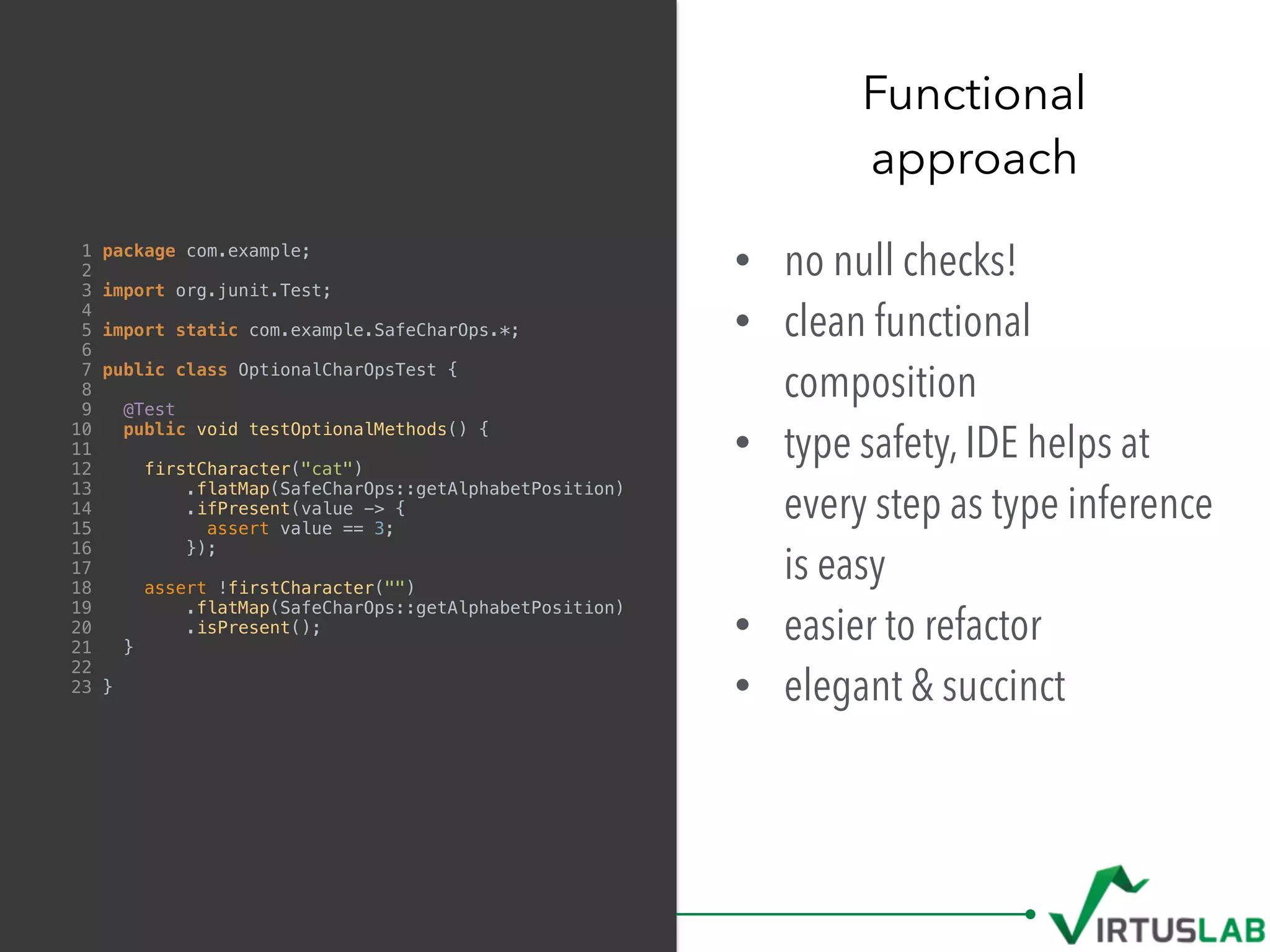
![1 package com.example;
2
3 import java.util.List;
4 import java.util.stream.Collectors;
5
6 class StreamsAndErrors {
7
8 static List<Integer> toNumbers(List<String> strings) {
9 return strings.stream()
10 .map(Integer::parseInt)
11 .collect(Collectors.toList());
12 }
13
14 }
Streams API
revisited: errors
1 package com.example;
2
3 import org.junit.Test;
4
5 import java.util.List;
6
7 import static java.lang.System.out;
8 import static java.util.Arrays.asList;
9
10 public class StreamsTest {
11
12 @Test
13 public void testNumberConversion() {
14 List<String> strings = asList("1", "2", "3");
15 out.println(StreamsAndErrors.toNumbers(strings));
16 // prints '[1, 2, 3]'
17
18 List<String> itsaTrap = asList("1", "a", "3");
19 out.println(StreamsAndErrors.toNumbers(itsaTrap));
20 // NumberFormatException: For input string: "a"
21 }
22
23 }](https://image.slidesharecdn.com/functionaljava8-170318115728/75/Functional-Java-8-Introduction-64-2048.jpg)
![1 package com.example;
2
3 import java.util.List;
4 import java.util.stream.Collectors;
5
6 class StreamsAndErrors {
7
8 static List<Integer> toNumbers(List<String> strings) {
9 return strings.stream()
10 .map(Integer::parseInt)
11 .collect(Collectors.toList());
12 }
13
14 }
• generic string to integer
conversion on collection level
Streams API
revisited: errors
1 package com.example;
2
3 import org.junit.Test;
4
5 import java.util.List;
6
7 import static java.lang.System.out;
8 import static java.util.Arrays.asList;
9
10 public class StreamsTest {
11
12 @Test
13 public void testNumberConversion() {
14 List<String> strings = asList("1", "2", "3");
15 out.println(StreamsAndErrors.toNumbers(strings));
16 // prints '[1, 2, 3]'
17
18 List<String> itsaTrap = asList("1", "a", "3");
19 out.println(StreamsAndErrors.toNumbers(itsaTrap));
20 // NumberFormatException: For input string: "a"
21 }
22
23 }](https://image.slidesharecdn.com/functionaljava8-170318115728/75/Functional-Java-8-Introduction-65-2048.jpg)
![1 package com.example;
2
3 import java.util.List;
4 import java.util.stream.Collectors;
5
6 class StreamsAndErrors {
7
8 static List<Integer> toNumbers(List<String> strings) {
9 return strings.stream()
10 .map(Integer::parseInt)
11 .collect(Collectors.toList());
12 }
13
14 }
• generic string to integer
conversion on collection level
• type signature tells nothing
about possible of failure
Streams API
revisited: errors
1 package com.example;
2
3 import org.junit.Test;
4
5 import java.util.List;
6
7 import static java.lang.System.out;
8 import static java.util.Arrays.asList;
9
10 public class StreamsTest {
11
12 @Test
13 public void testNumberConversion() {
14 List<String> strings = asList("1", "2", "3");
15 out.println(StreamsAndErrors.toNumbers(strings));
16 // prints '[1, 2, 3]'
17
18 List<String> itsaTrap = asList("1", "a", "3");
19 out.println(StreamsAndErrors.toNumbers(itsaTrap));
20 // NumberFormatException: For input string: "a"
21 }
22
23 }](https://image.slidesharecdn.com/functionaljava8-170318115728/75/Functional-Java-8-Introduction-66-2048.jpg)
![1 package com.example;
2
3 import java.util.List;
4 import java.util.stream.Collectors;
5
6 class StreamsAndErrors {
7
8 static List<Integer> toNumbers(List<String> strings) {
9 return strings.stream()
10 .map(Integer::parseInt)
11 .collect(Collectors.toList());
12 }
13
14 }
• generic string to integer
conversion on collection level
• type signature tells nothing
about possible of failure
• programmer knows (let's
hope so) about possibility of
failure and has to deal with it
explicitly
Streams API
revisited: errors
1 package com.example;
2
3 import org.junit.Test;
4
5 import java.util.List;
6
7 import static java.lang.System.out;
8 import static java.util.Arrays.asList;
9
10 public class StreamsTest {
11
12 @Test
13 public void testNumberConversion() {
14 List<String> strings = asList("1", "2", "3");
15 out.println(StreamsAndErrors.toNumbers(strings));
16 // prints '[1, 2, 3]'
17
18 List<String> itsaTrap = asList("1", "a", "3");
19 out.println(StreamsAndErrors.toNumbers(itsaTrap));
20 // NumberFormatException: For input string: "a"
21 }
22
23 }](https://image.slidesharecdn.com/functionaljava8-170318115728/75/Functional-Java-8-Introduction-67-2048.jpg)
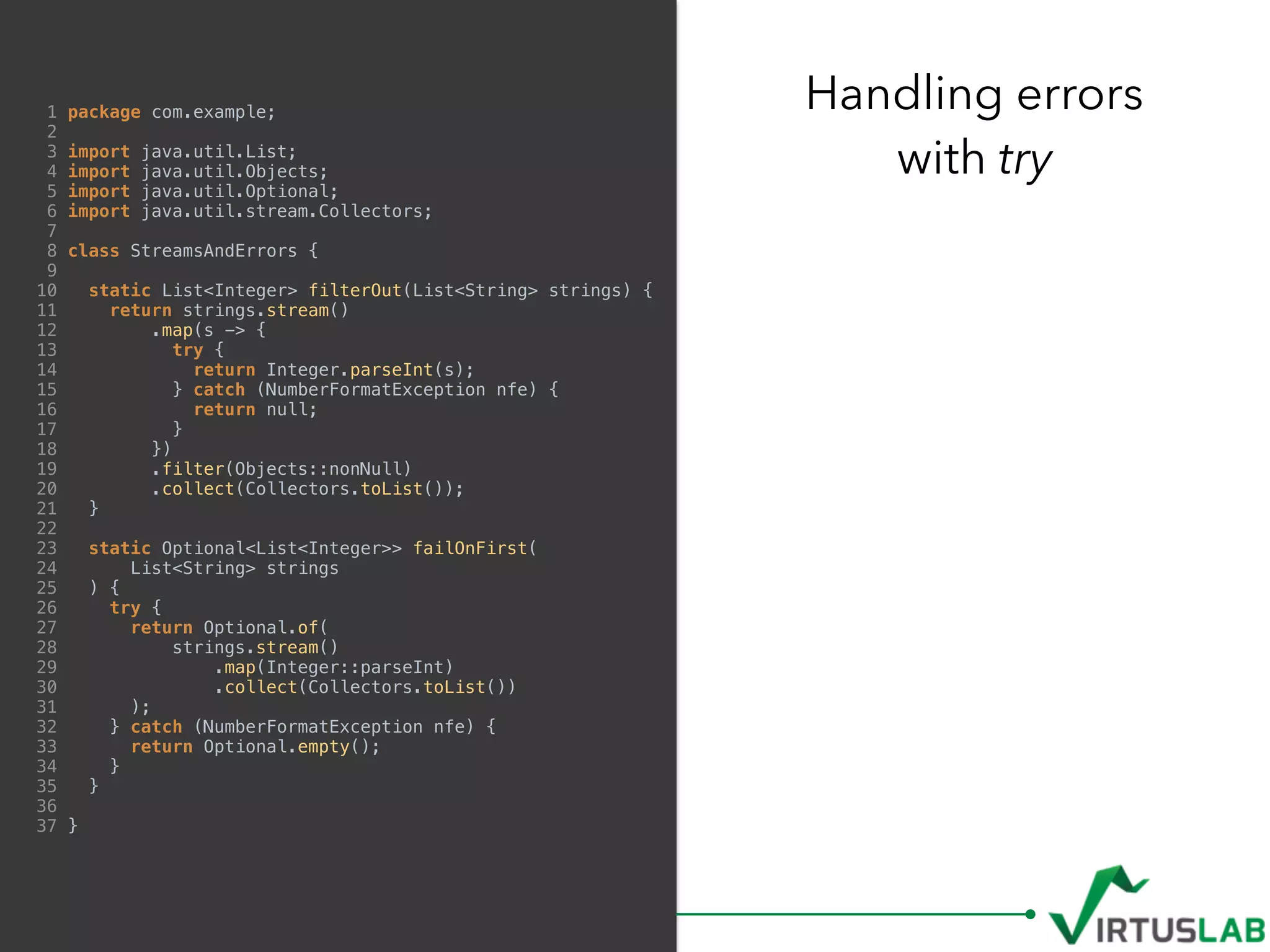
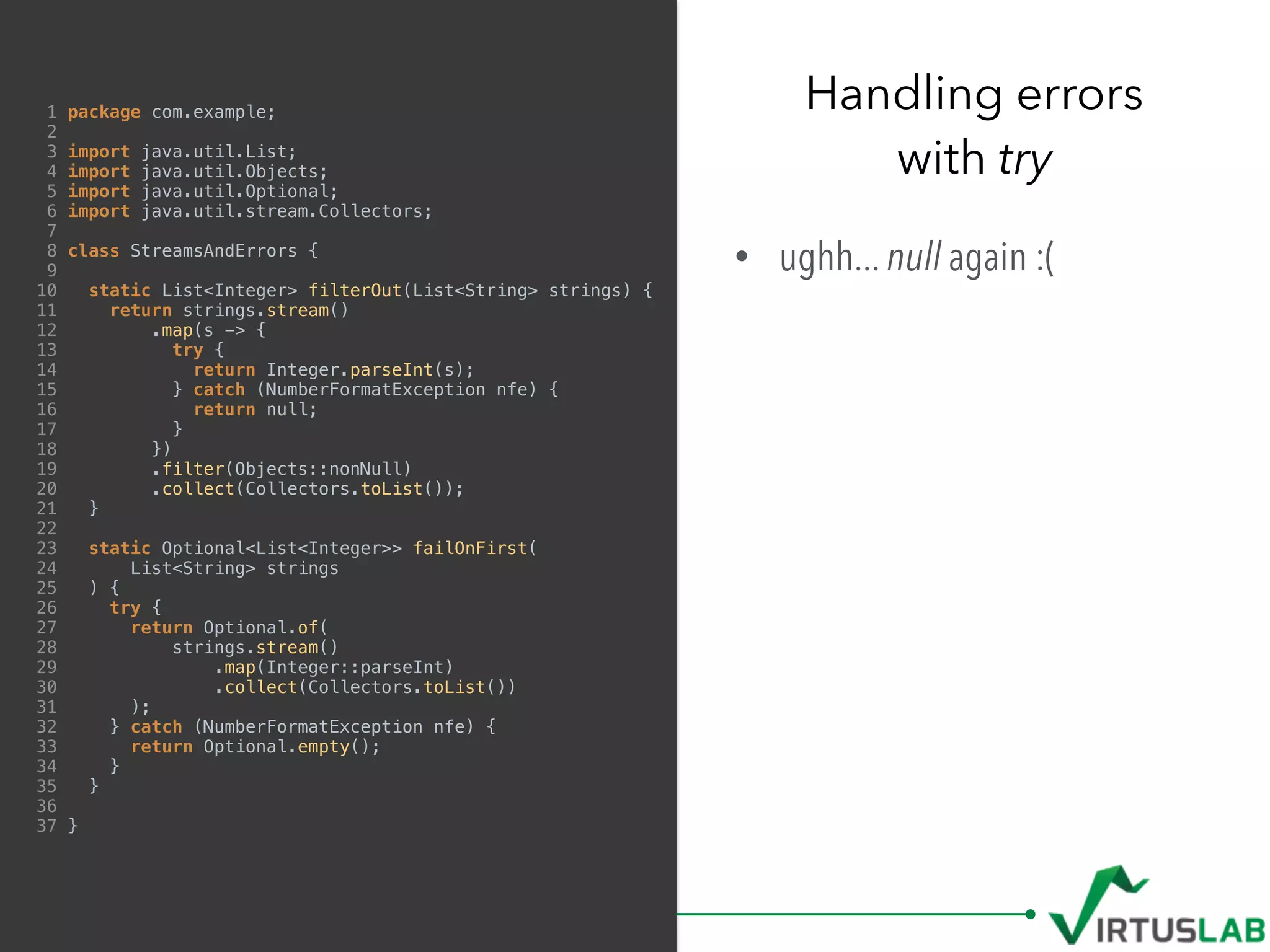
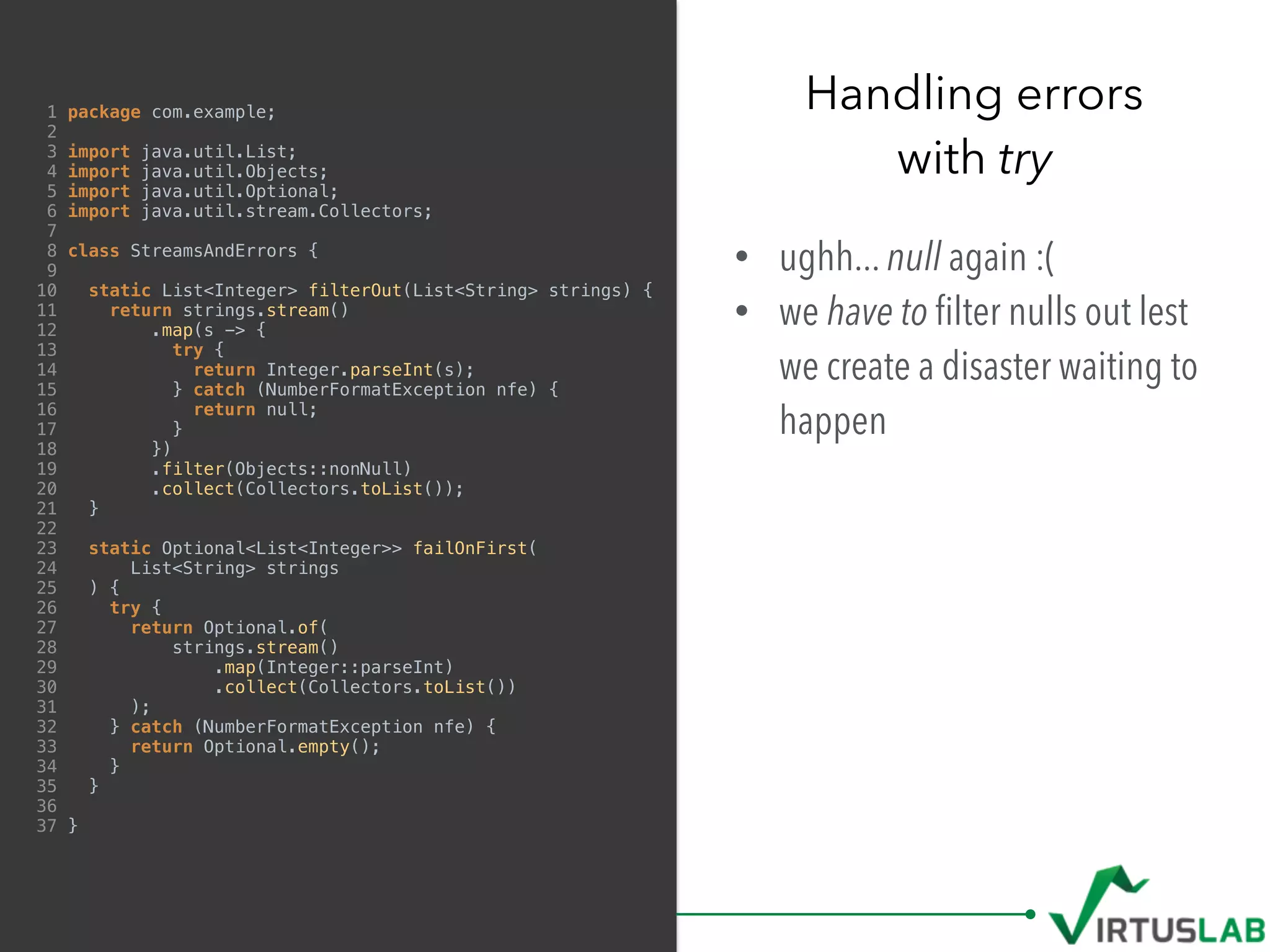
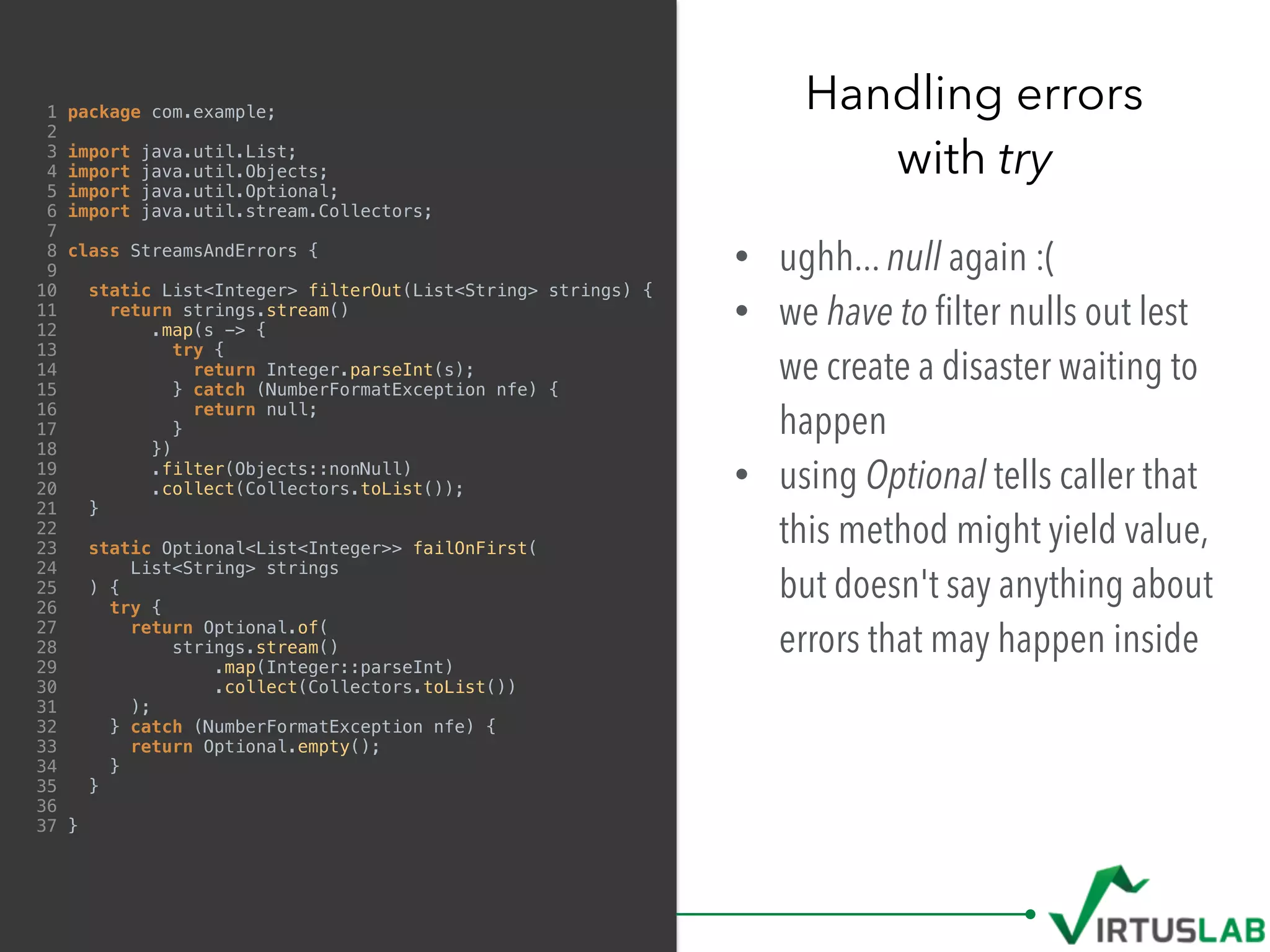
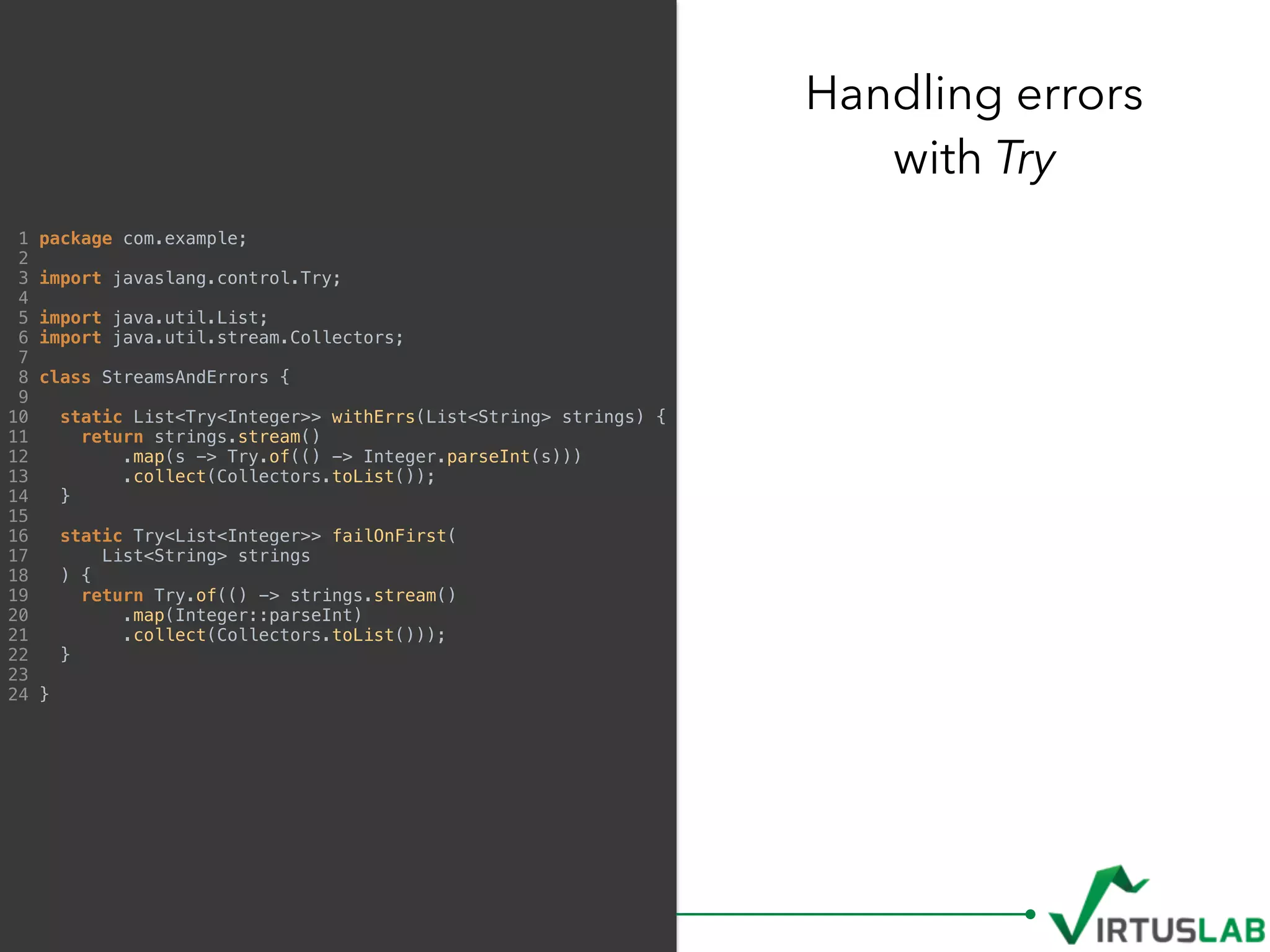
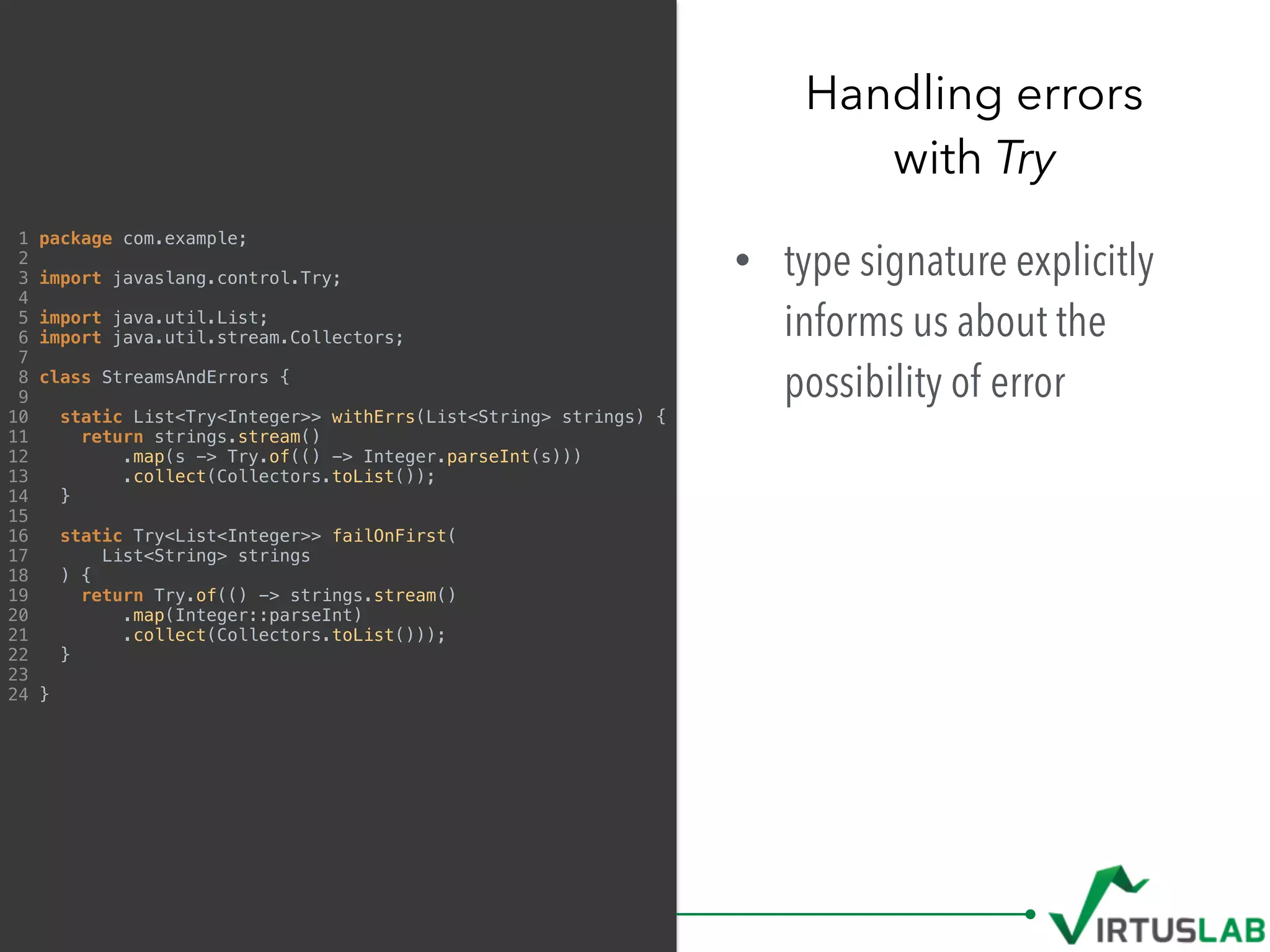
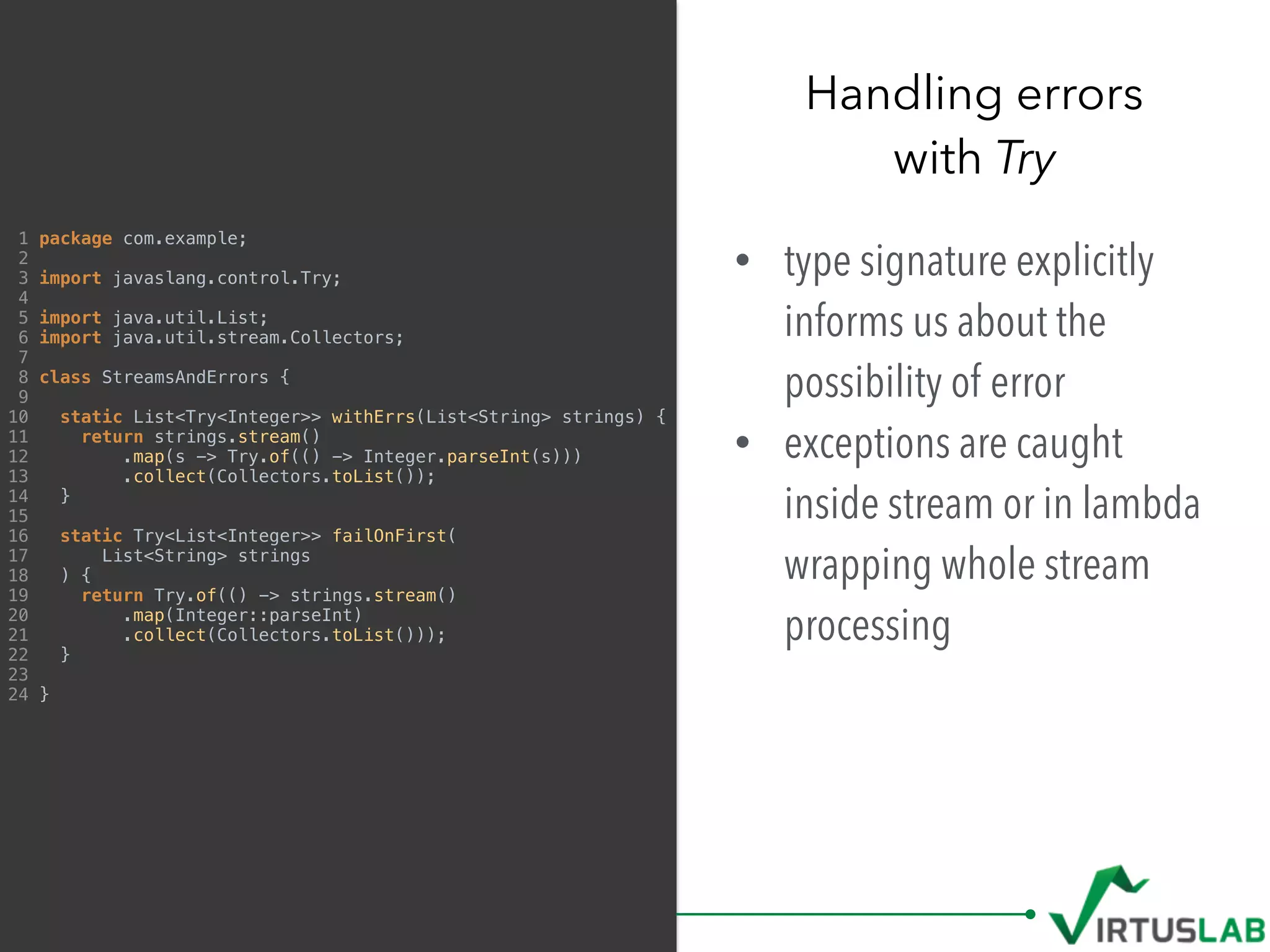
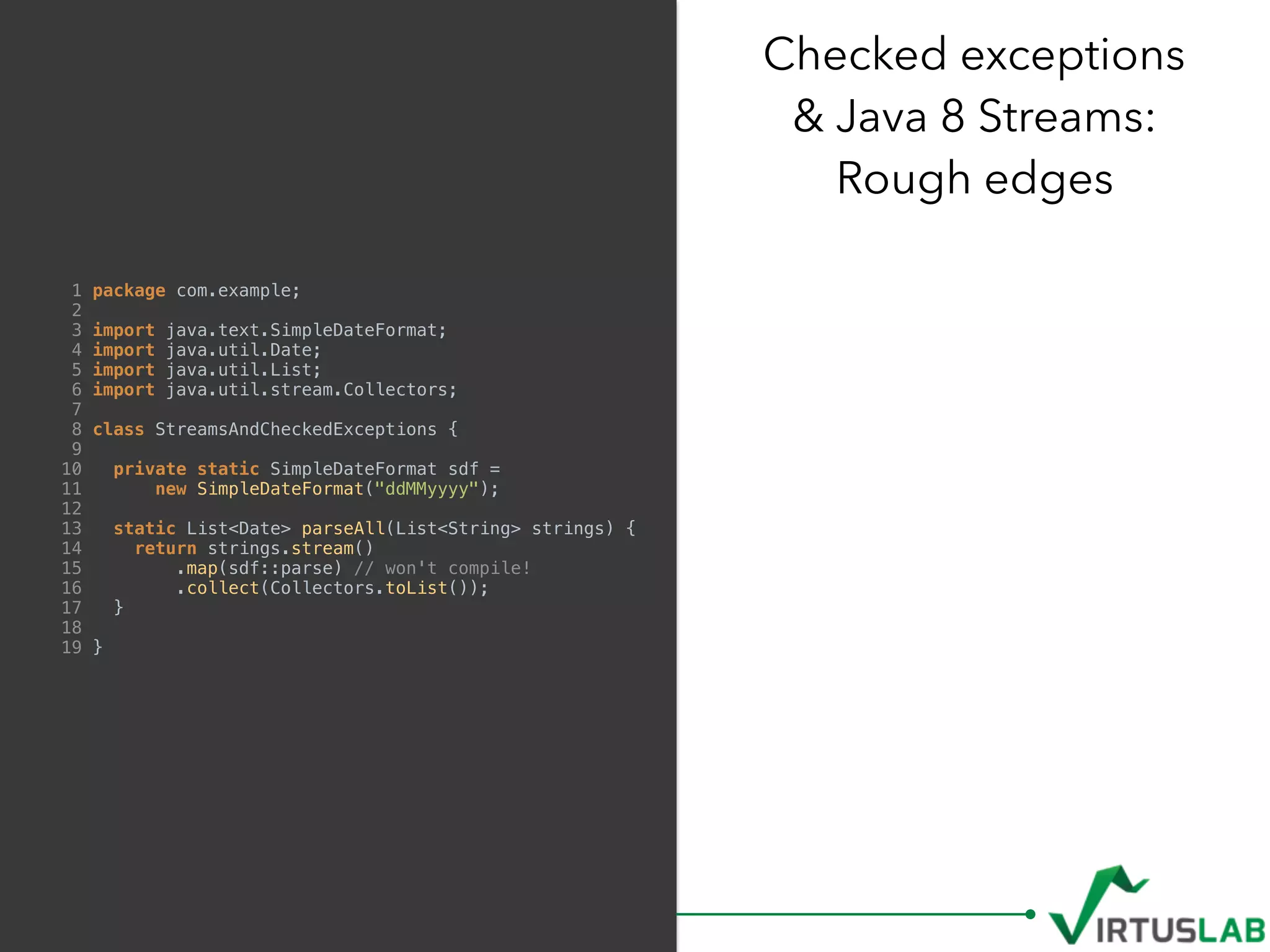
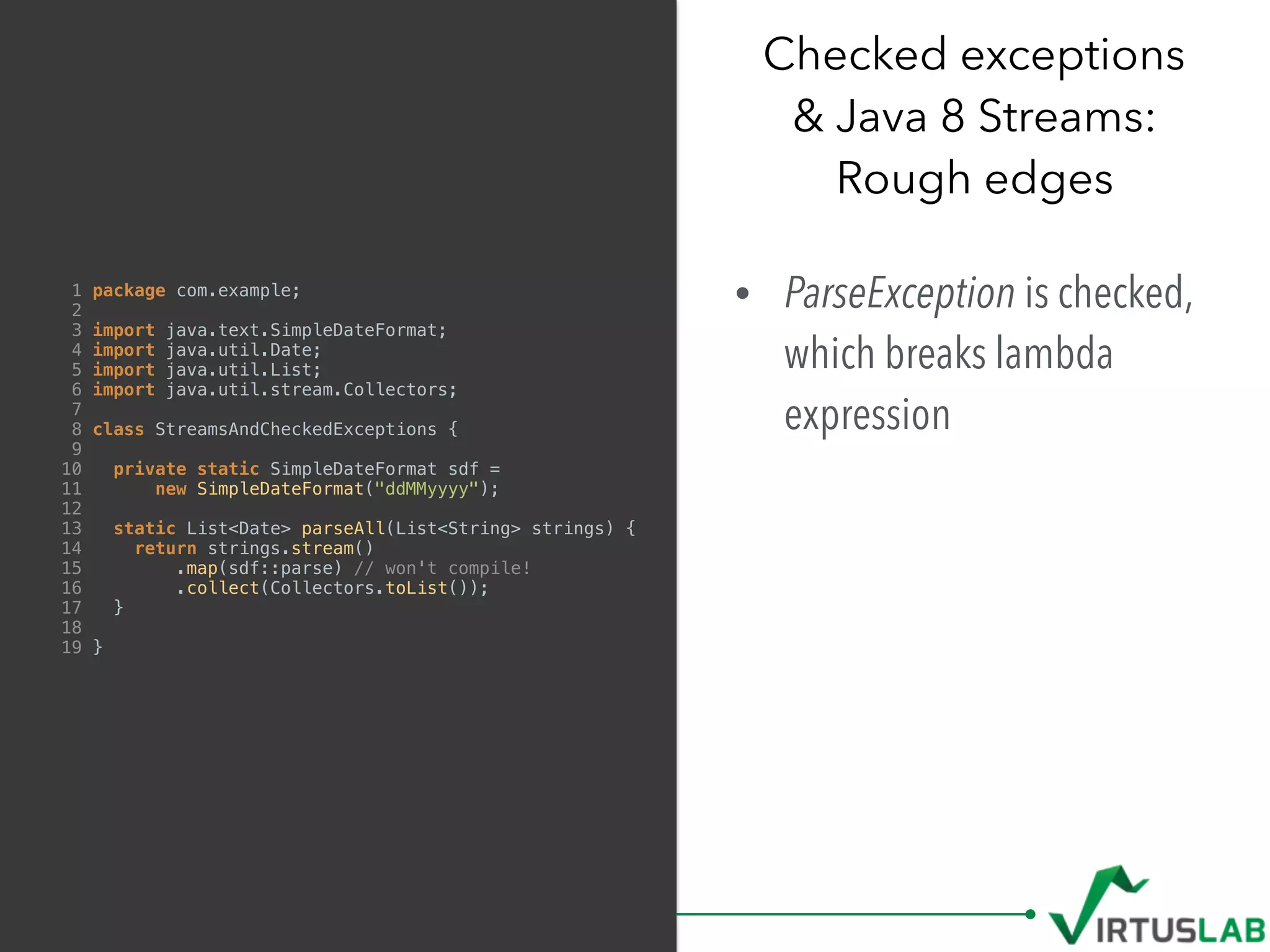
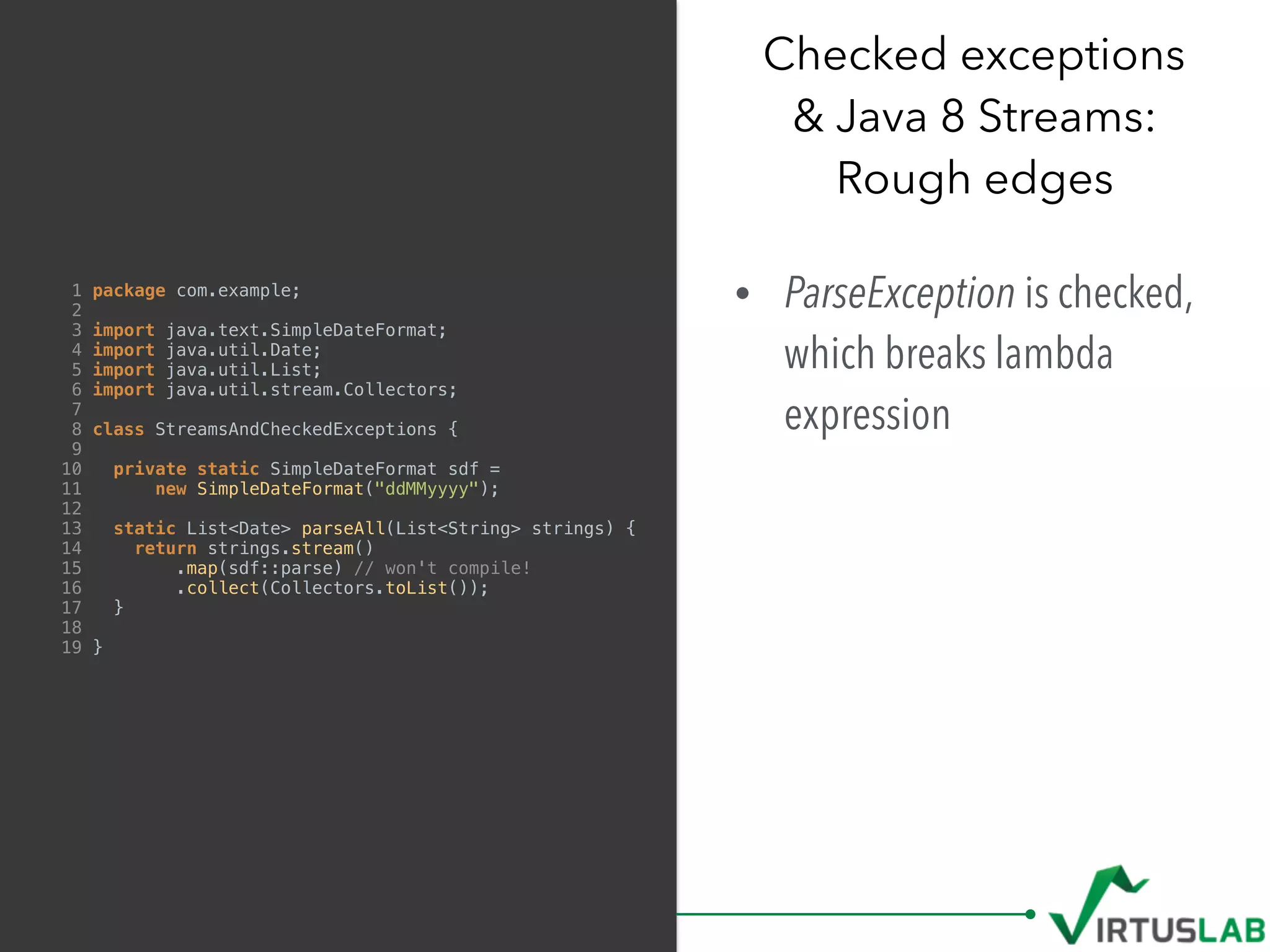
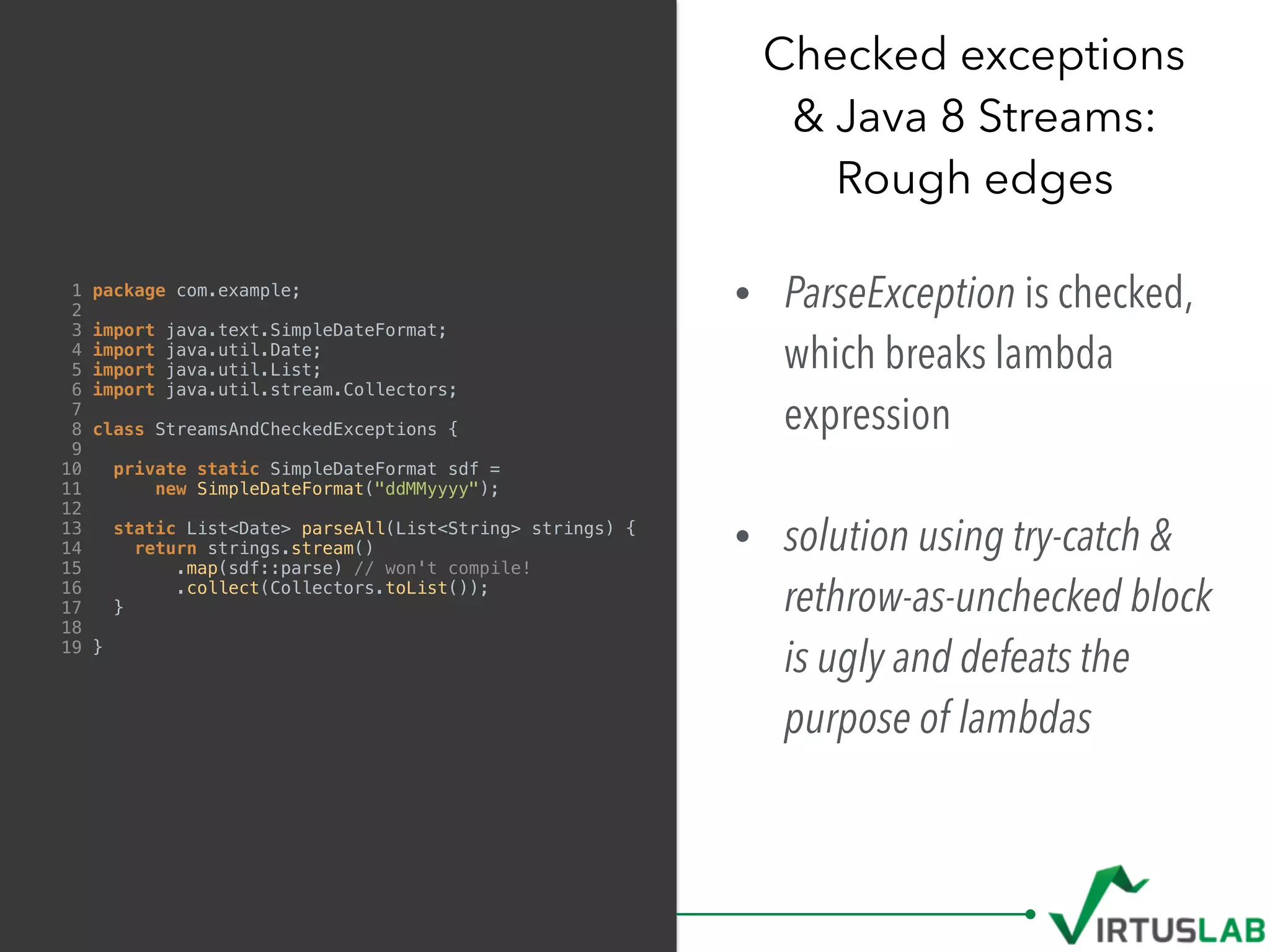
![Checked exceptions
& Java 8 Streams:
Try to the rescue
1 package com.example;
2
3 import javaslang.control.Try;
4
5 import java.text.SimpleDateFormat;
6 import java.util.Date;
7 import java.util.List;
8 import java.util.stream.Collectors;
9
10 class StreamsAndCheckedExceptions {
11
12 private static SimpleDateFormat sdf =
13 new SimpleDateFormat("ddMMyyyy");
14
15 static List<Try<Date>> parseAll(List<String> strings) {
16 return strings.stream()
17 .map(s -> Try.of(() -> sdf.parse(s)))
18 .collect(Collectors.toList());
19 }
20
21 }
1 package com.example;
2
3 import org.junit.Test;
4
5 import java.util.List;
6
7 import static java.lang.System.out;
8 import static java.util.Arrays.asList;
9
10 public class StreamsTest {
11
12 @Test
13 public void testNumberConversion() {
14 List<String> strings = asList("10042017", "23");
15 out.println(
16 StreamsAndCheckedExceptions.parseAll(strings)
17 );
18
19 // [
20 // Success(Mon Apr 10 00:00:00 CEST 2017),
21 // Failure(ParseException: Unparseable date: "23")
22 // ]
23 }
24
25 }](https://image.slidesharecdn.com/functionaljava8-170318115728/75/Functional-Java-8-Introduction-79-2048.jpg)
![• problem of checked
exceptions solved
Checked exceptions
& Java 8 Streams:
Try to the rescue
1 package com.example;
2
3 import javaslang.control.Try;
4
5 import java.text.SimpleDateFormat;
6 import java.util.Date;
7 import java.util.List;
8 import java.util.stream.Collectors;
9
10 class StreamsAndCheckedExceptions {
11
12 private static SimpleDateFormat sdf =
13 new SimpleDateFormat("ddMMyyyy");
14
15 static List<Try<Date>> parseAll(List<String> strings) {
16 return strings.stream()
17 .map(s -> Try.of(() -> sdf.parse(s)))
18 .collect(Collectors.toList());
19 }
20
21 }
1 package com.example;
2
3 import org.junit.Test;
4
5 import java.util.List;
6
7 import static java.lang.System.out;
8 import static java.util.Arrays.asList;
9
10 public class StreamsTest {
11
12 @Test
13 public void testNumberConversion() {
14 List<String> strings = asList("10042017", "23");
15 out.println(
16 StreamsAndCheckedExceptions.parseAll(strings)
17 );
18
19 // [
20 // Success(Mon Apr 10 00:00:00 CEST 2017),
21 // Failure(ParseException: Unparseable date: "23")
22 // ]
23 }
24
25 }](https://image.slidesharecdn.com/functionaljava8-170318115728/75/Functional-Java-8-Introduction-80-2048.jpg)
![• problem of checked
exceptions solved
• we also gained explicit
information of possibility of
failure
Checked exceptions
& Java 8 Streams:
Try to the rescue
1 package com.example;
2
3 import javaslang.control.Try;
4
5 import java.text.SimpleDateFormat;
6 import java.util.Date;
7 import java.util.List;
8 import java.util.stream.Collectors;
9
10 class StreamsAndCheckedExceptions {
11
12 private static SimpleDateFormat sdf =
13 new SimpleDateFormat("ddMMyyyy");
14
15 static List<Try<Date>> parseAll(List<String> strings) {
16 return strings.stream()
17 .map(s -> Try.of(() -> sdf.parse(s)))
18 .collect(Collectors.toList());
19 }
20
21 }
1 package com.example;
2
3 import org.junit.Test;
4
5 import java.util.List;
6
7 import static java.lang.System.out;
8 import static java.util.Arrays.asList;
9
10 public class StreamsTest {
11
12 @Test
13 public void testNumberConversion() {
14 List<String> strings = asList("10042017", "23");
15 out.println(
16 StreamsAndCheckedExceptions.parseAll(strings)
17 );
18
19 // [
20 // Success(Mon Apr 10 00:00:00 CEST 2017),
21 // Failure(ParseException: Unparseable date: "23")
22 // ]
23 }
24
25 }](https://image.slidesharecdn.com/functionaljava8-170318115728/75/Functional-Java-8-Introduction-81-2048.jpg)


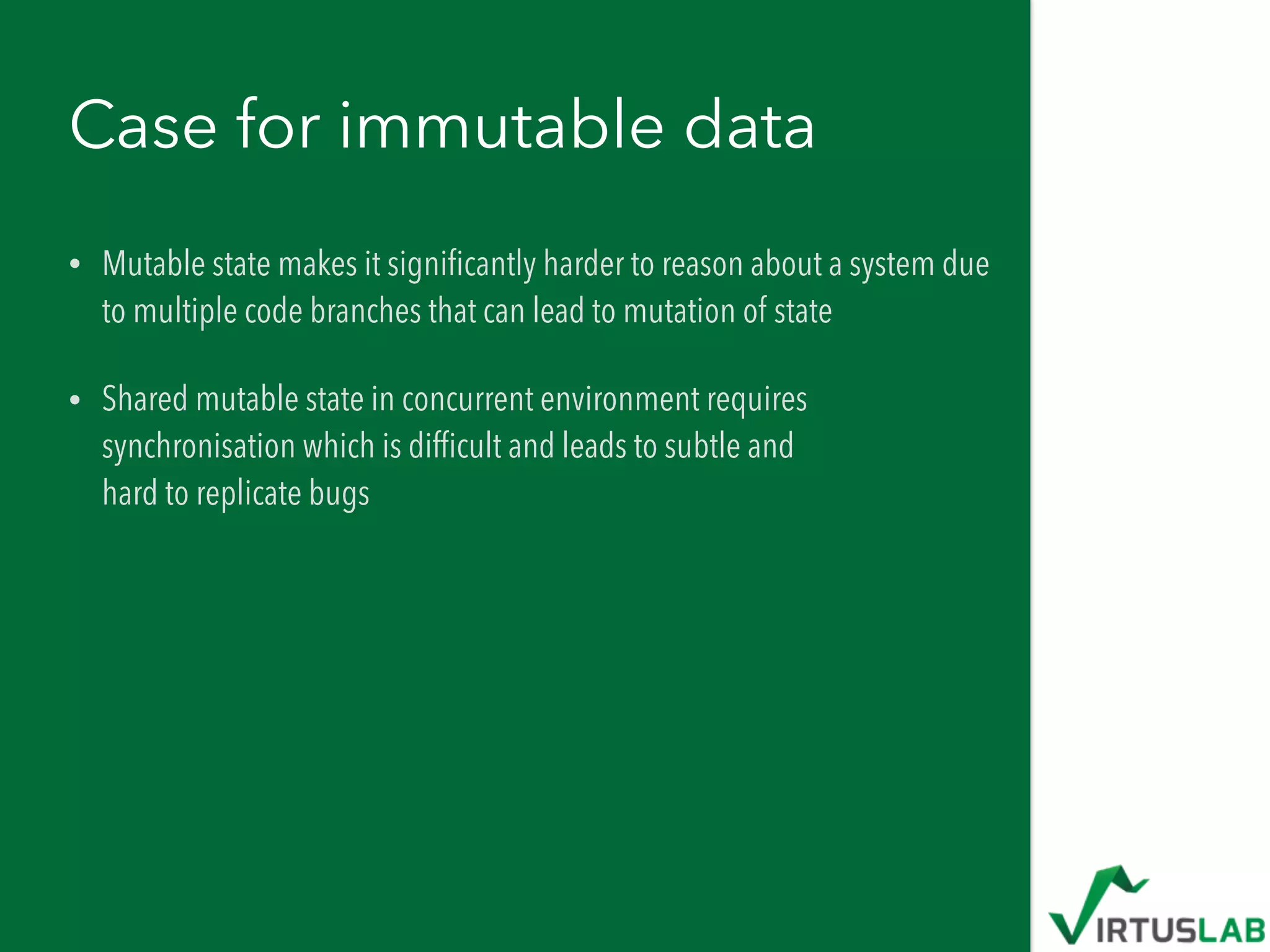
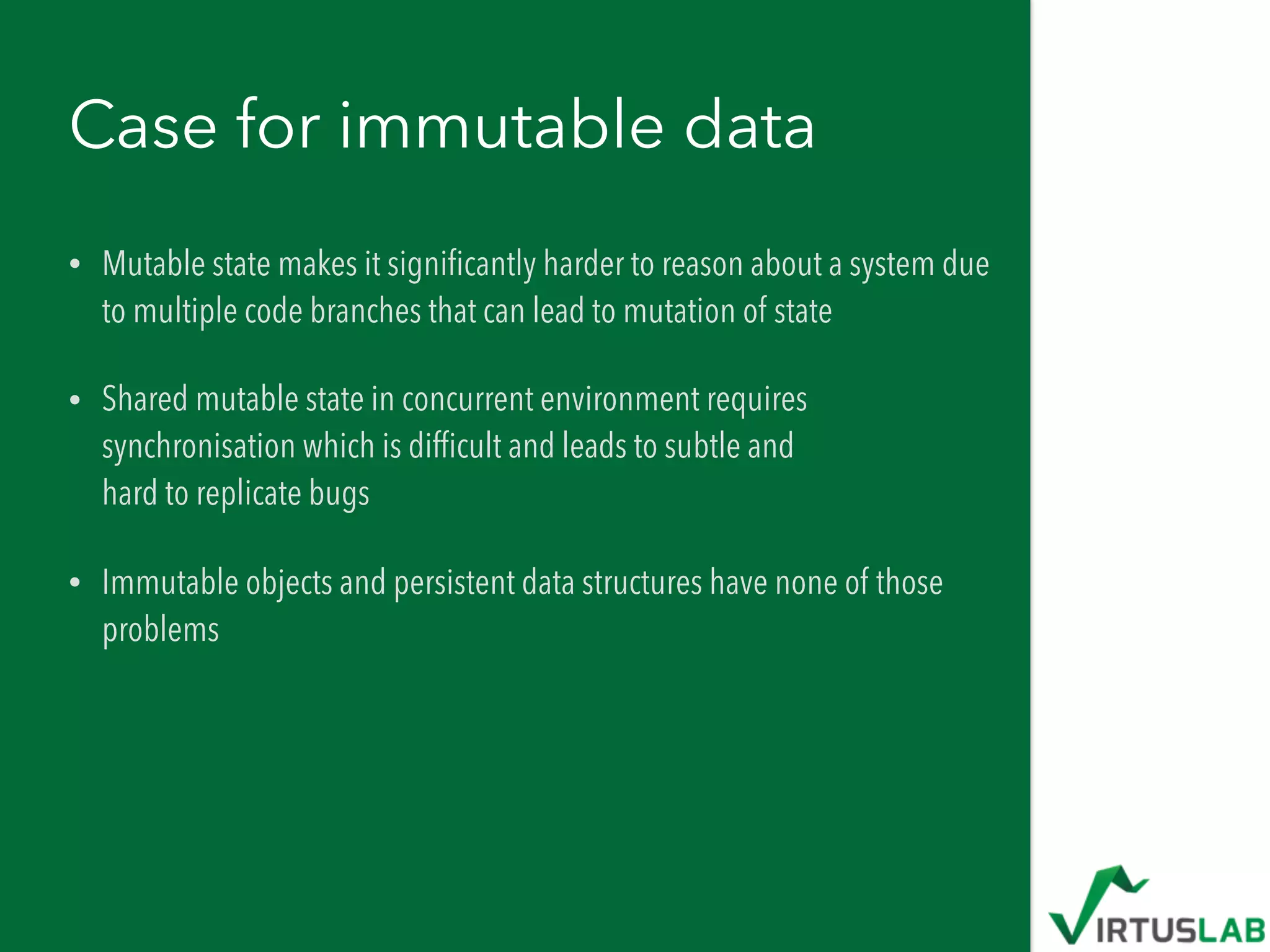
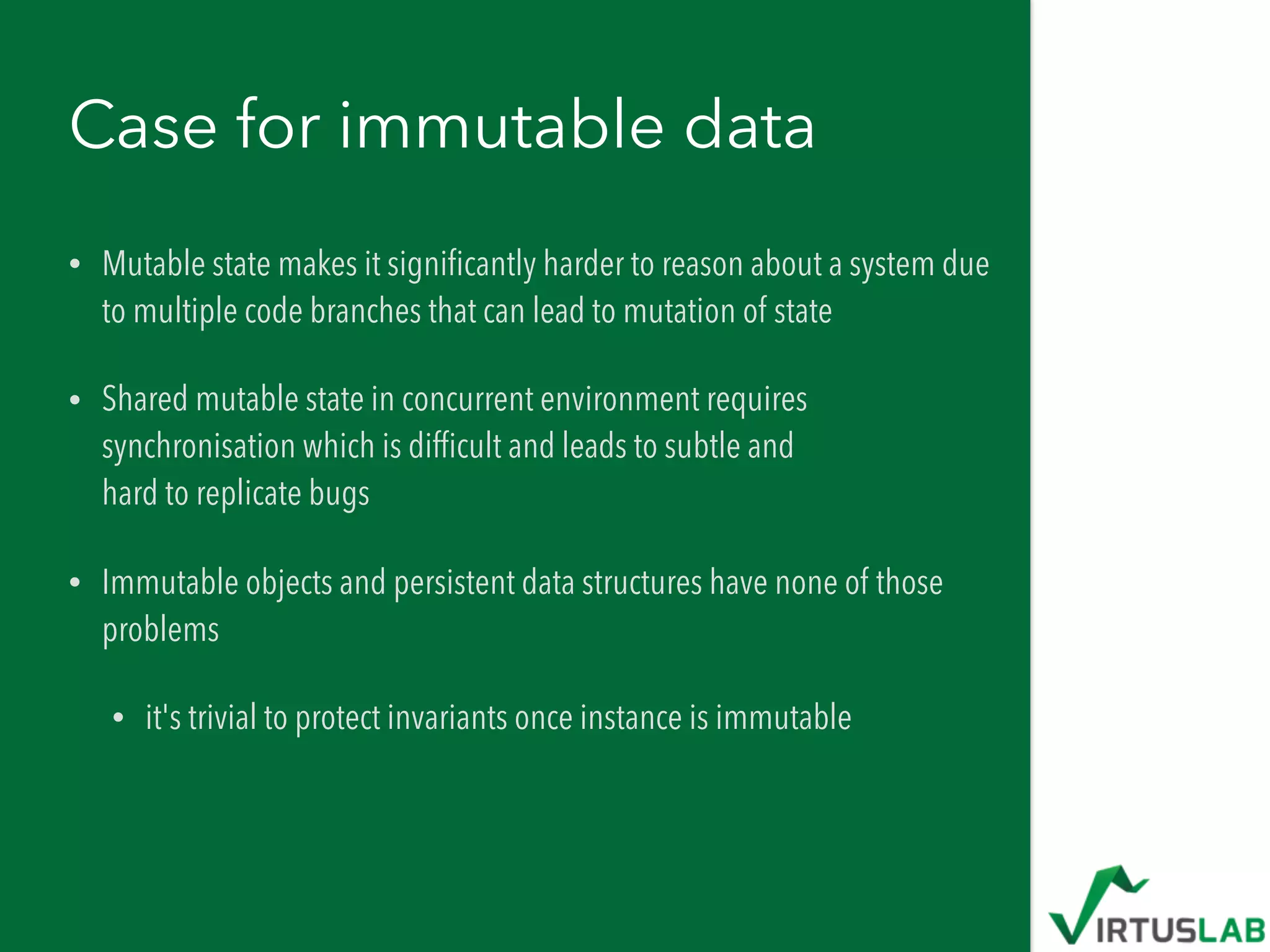
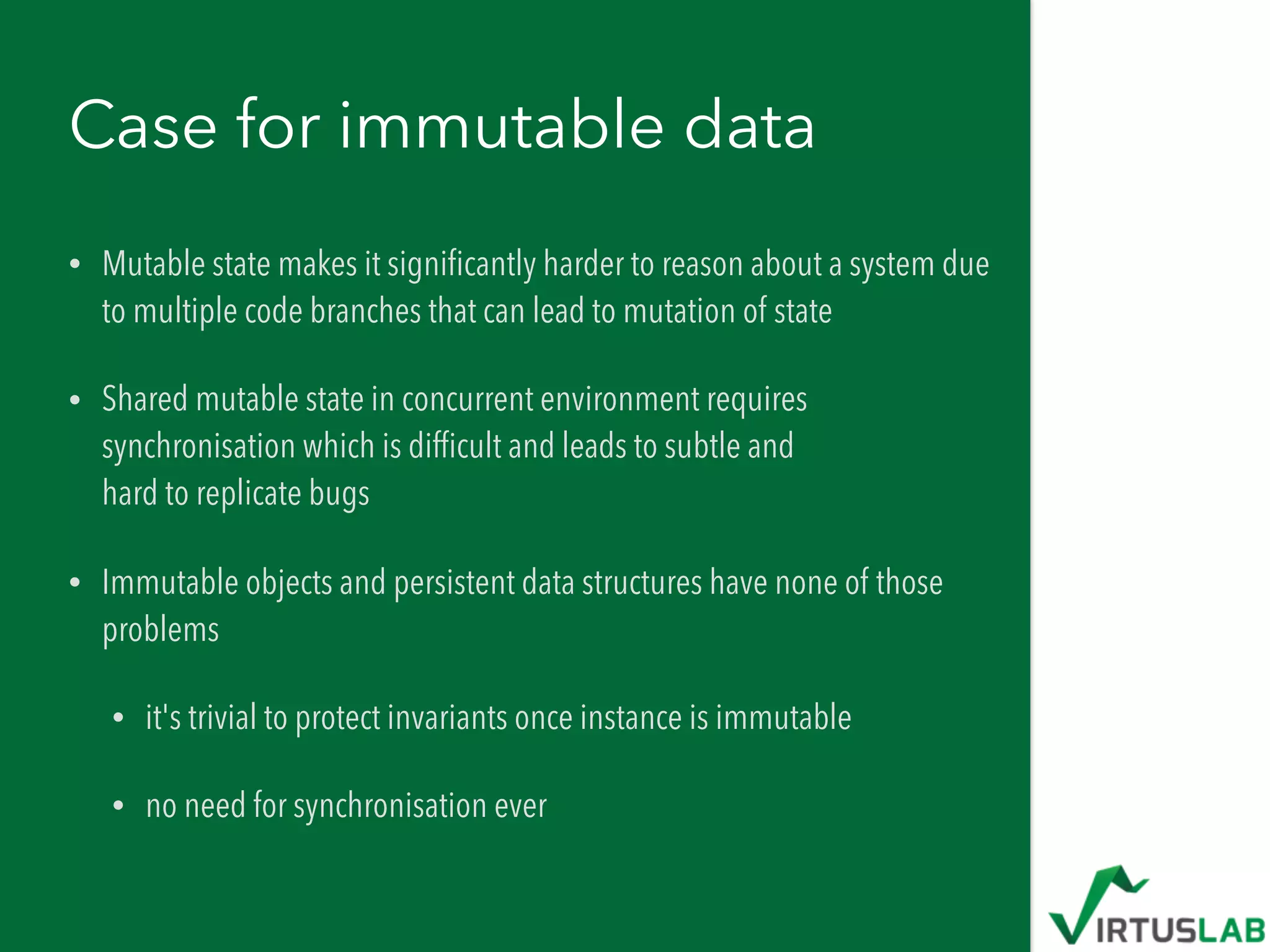
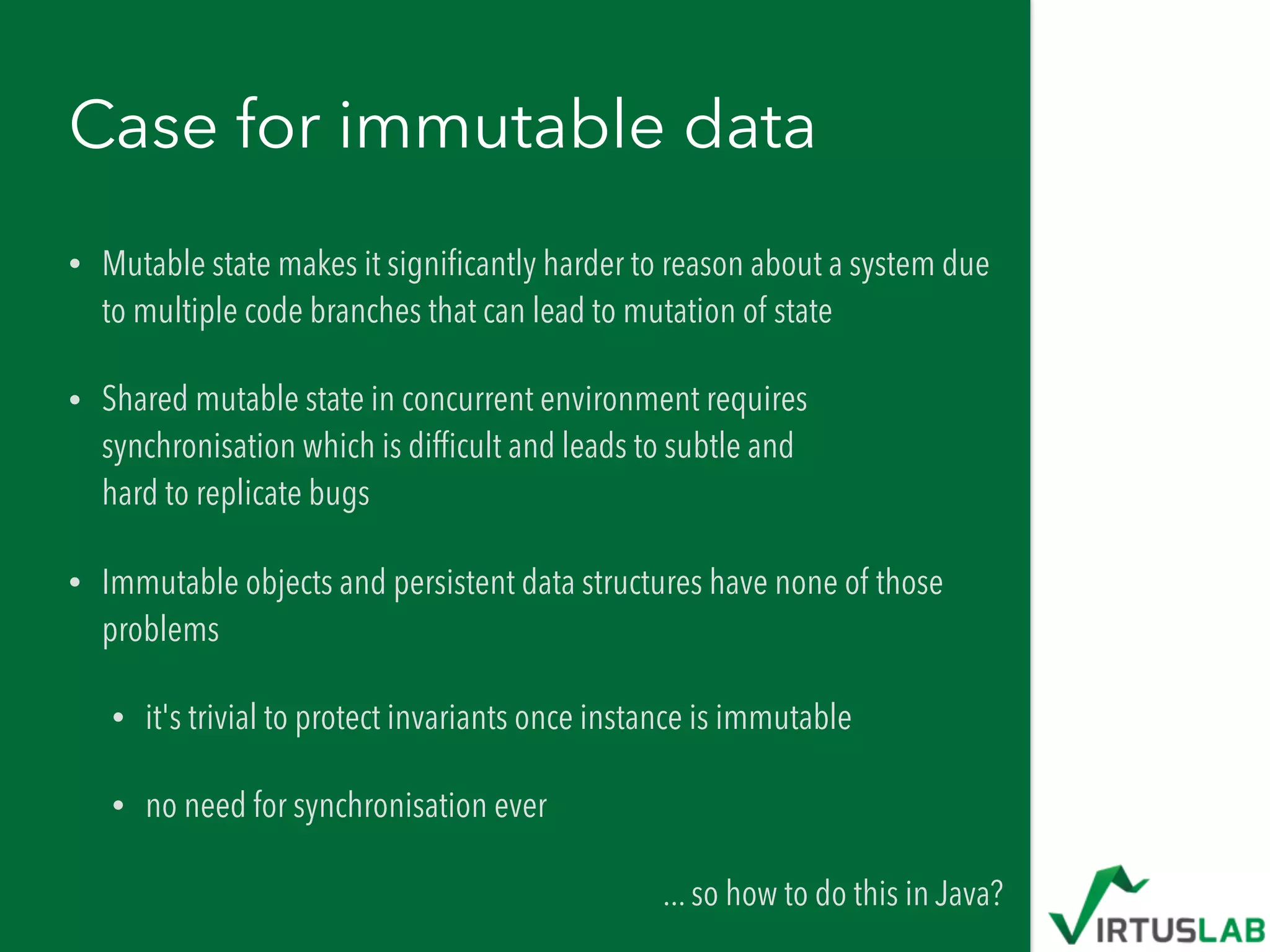
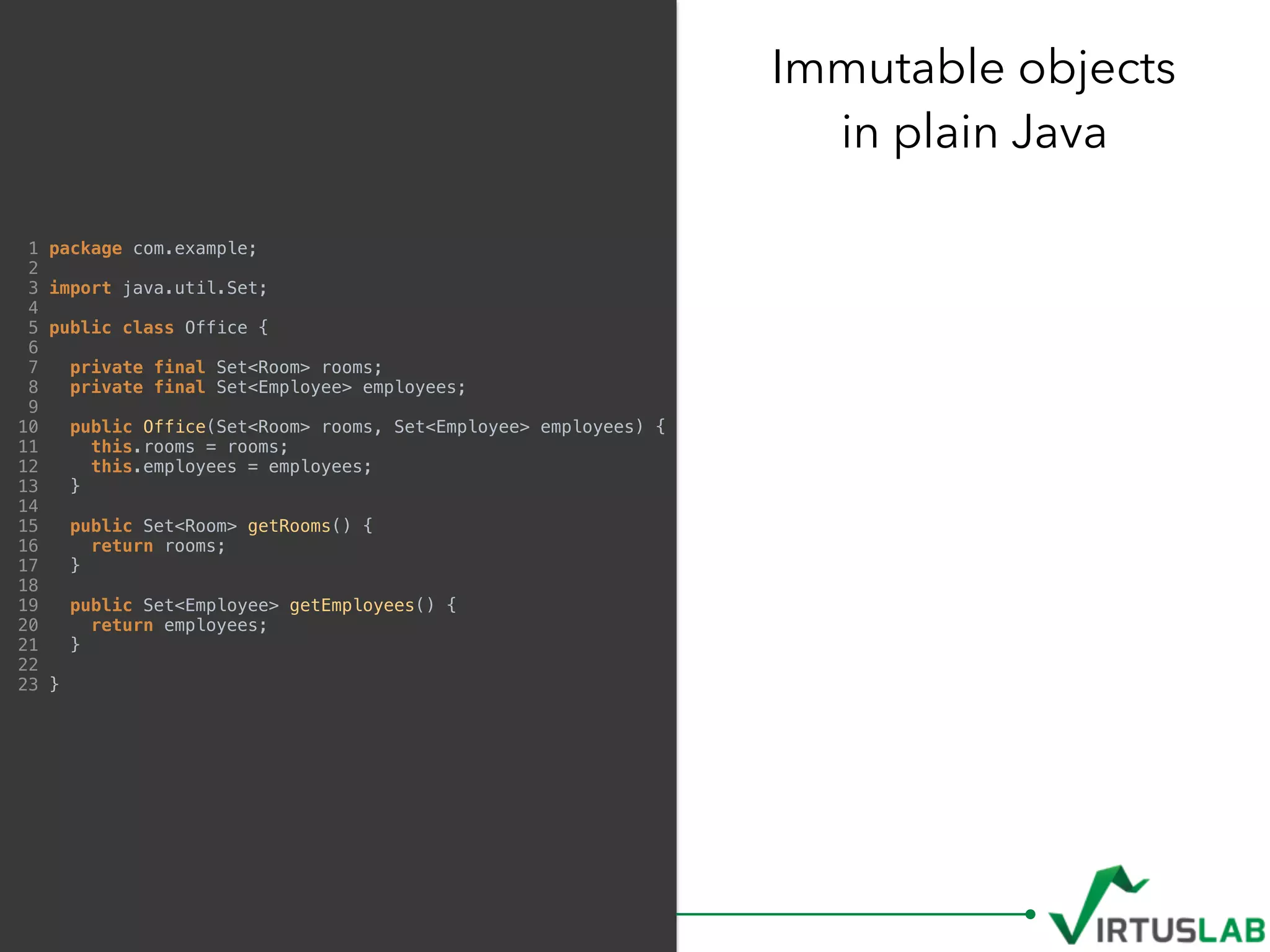
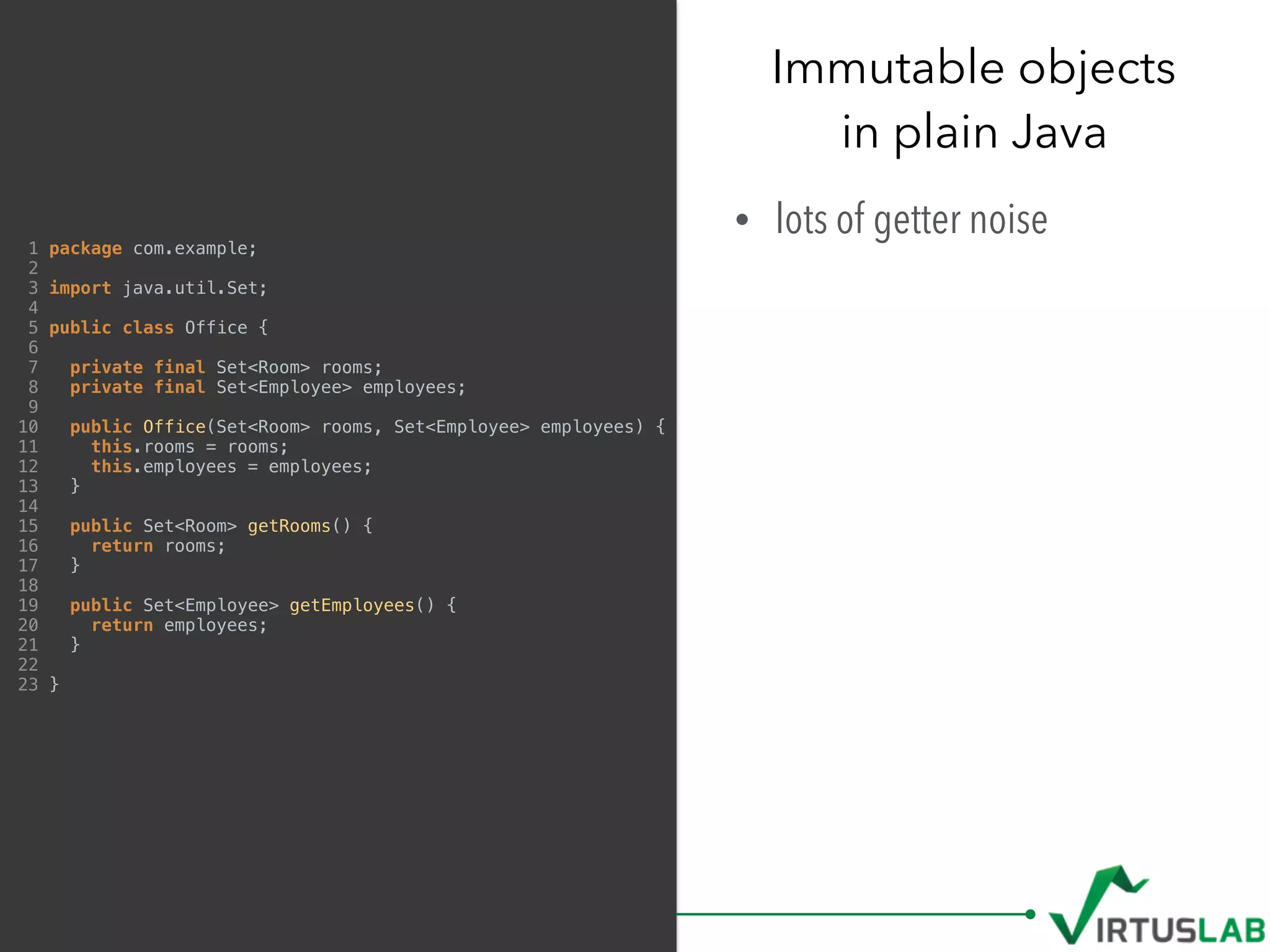
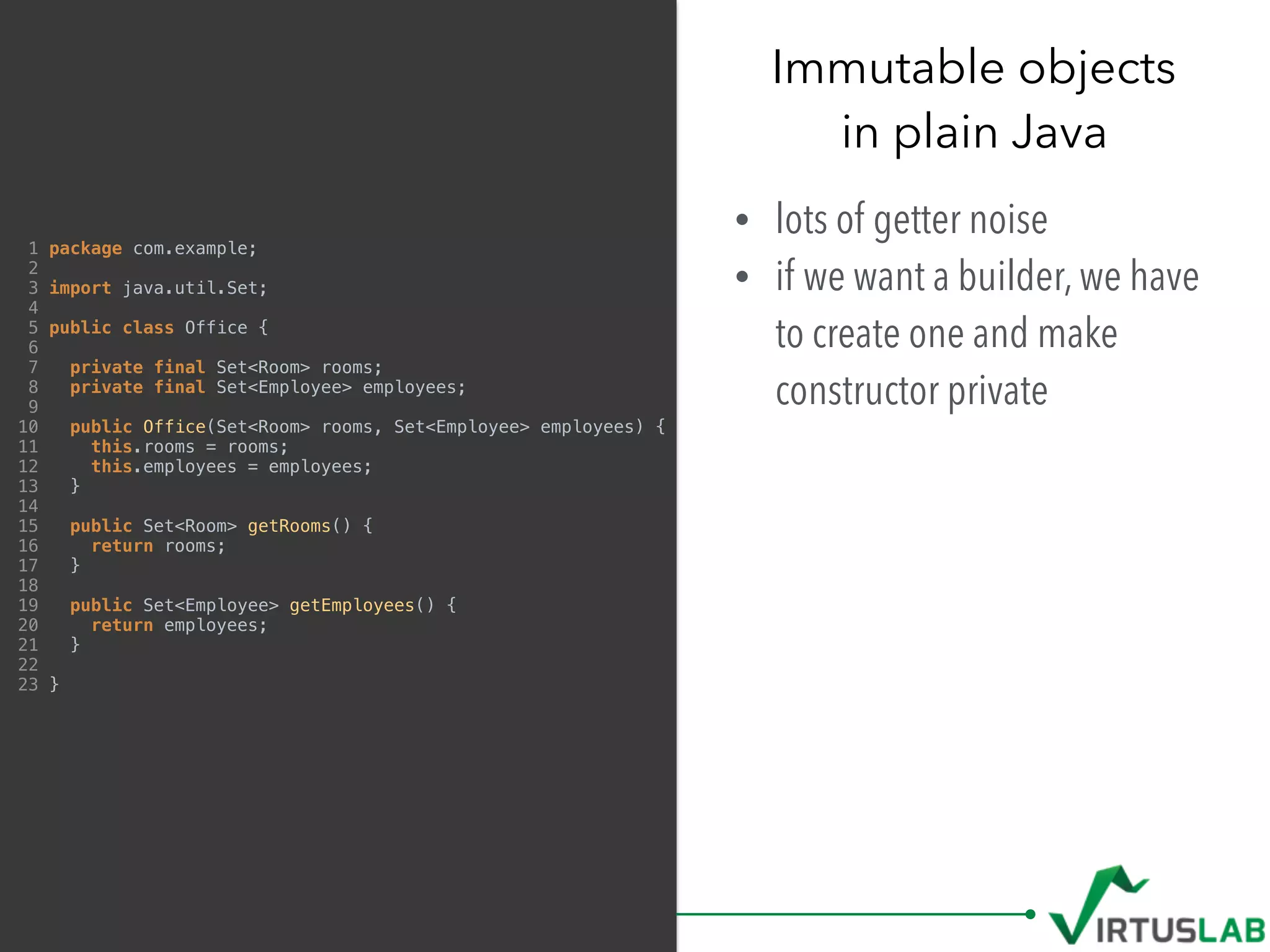
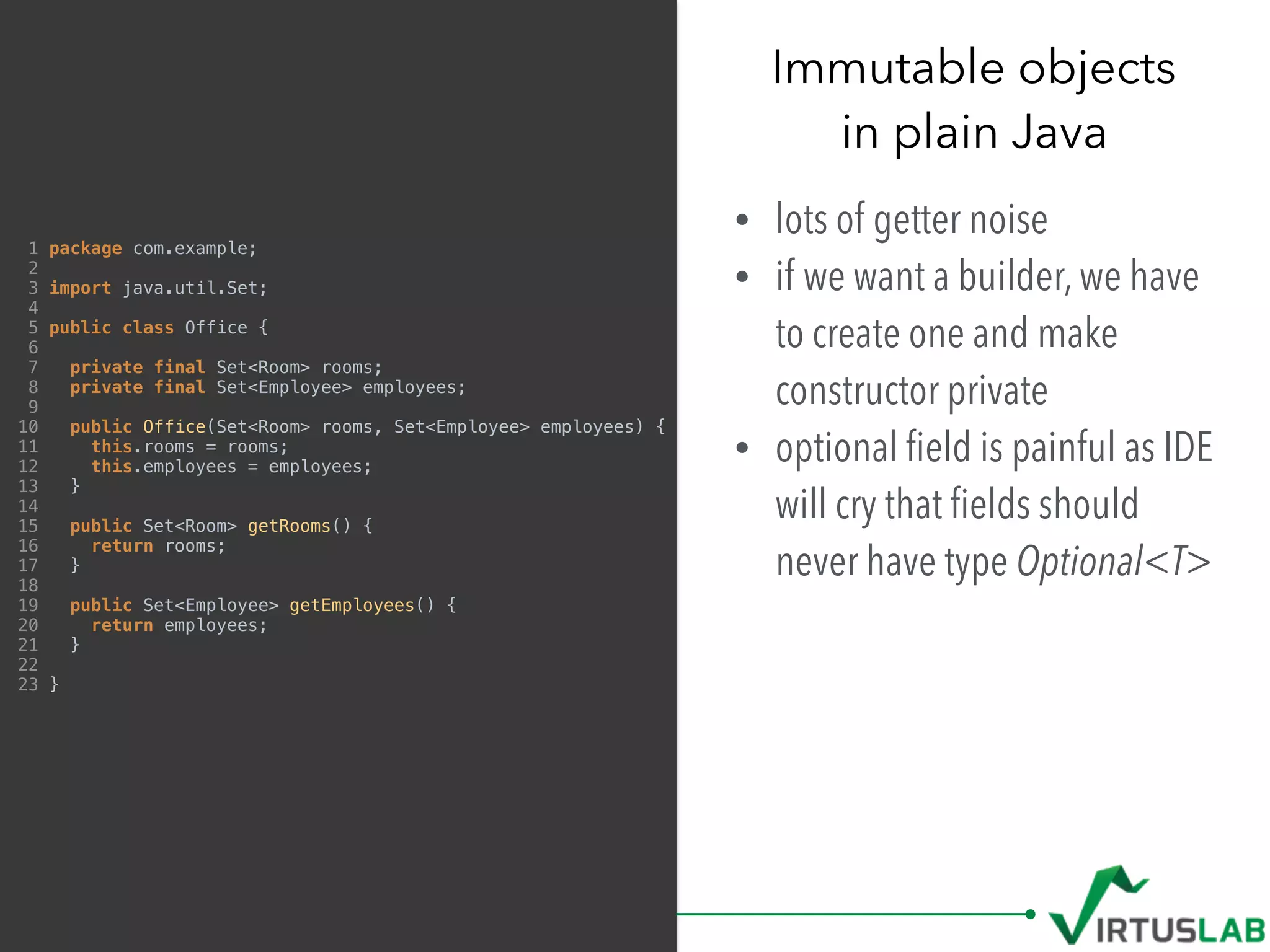
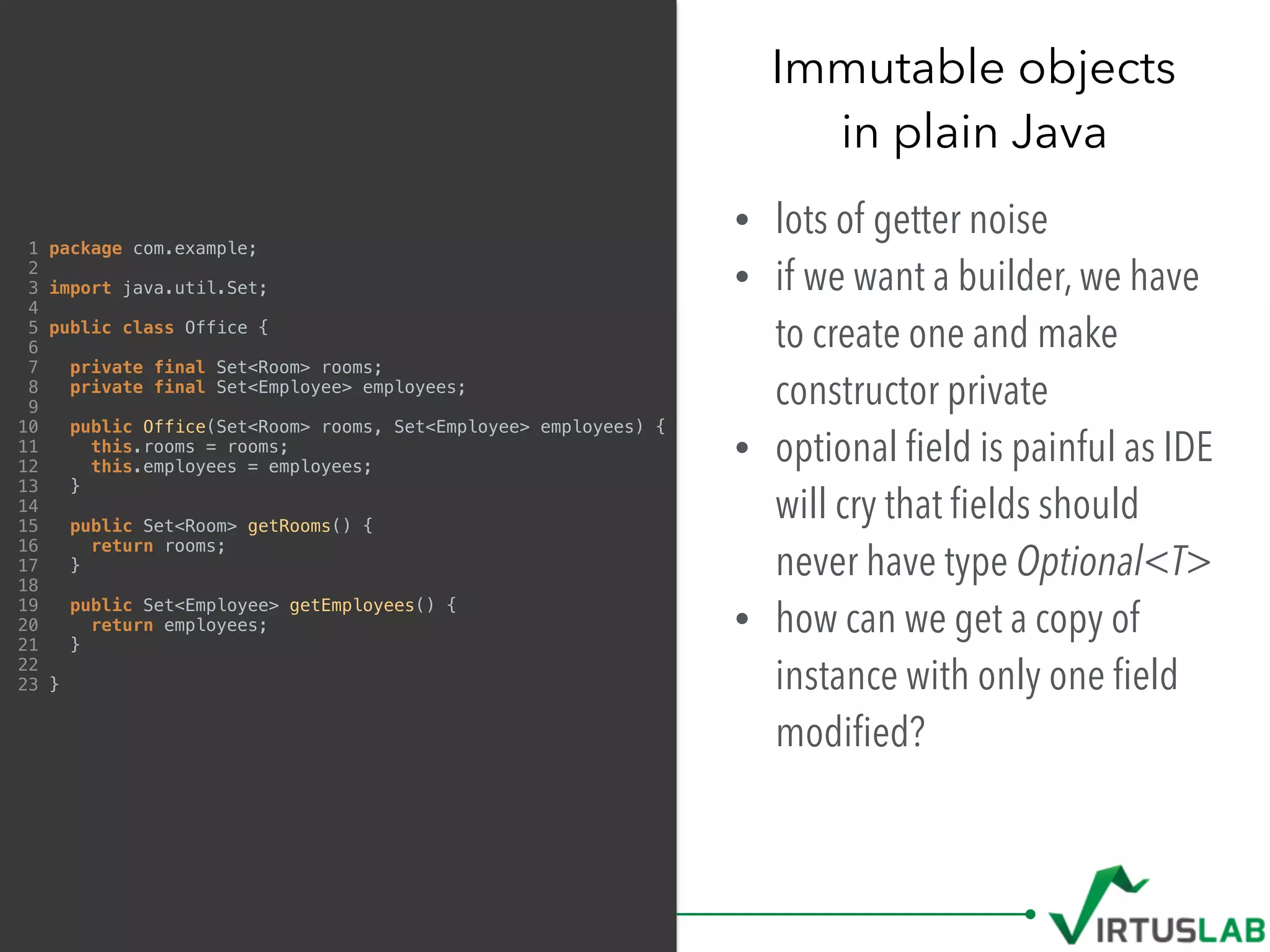
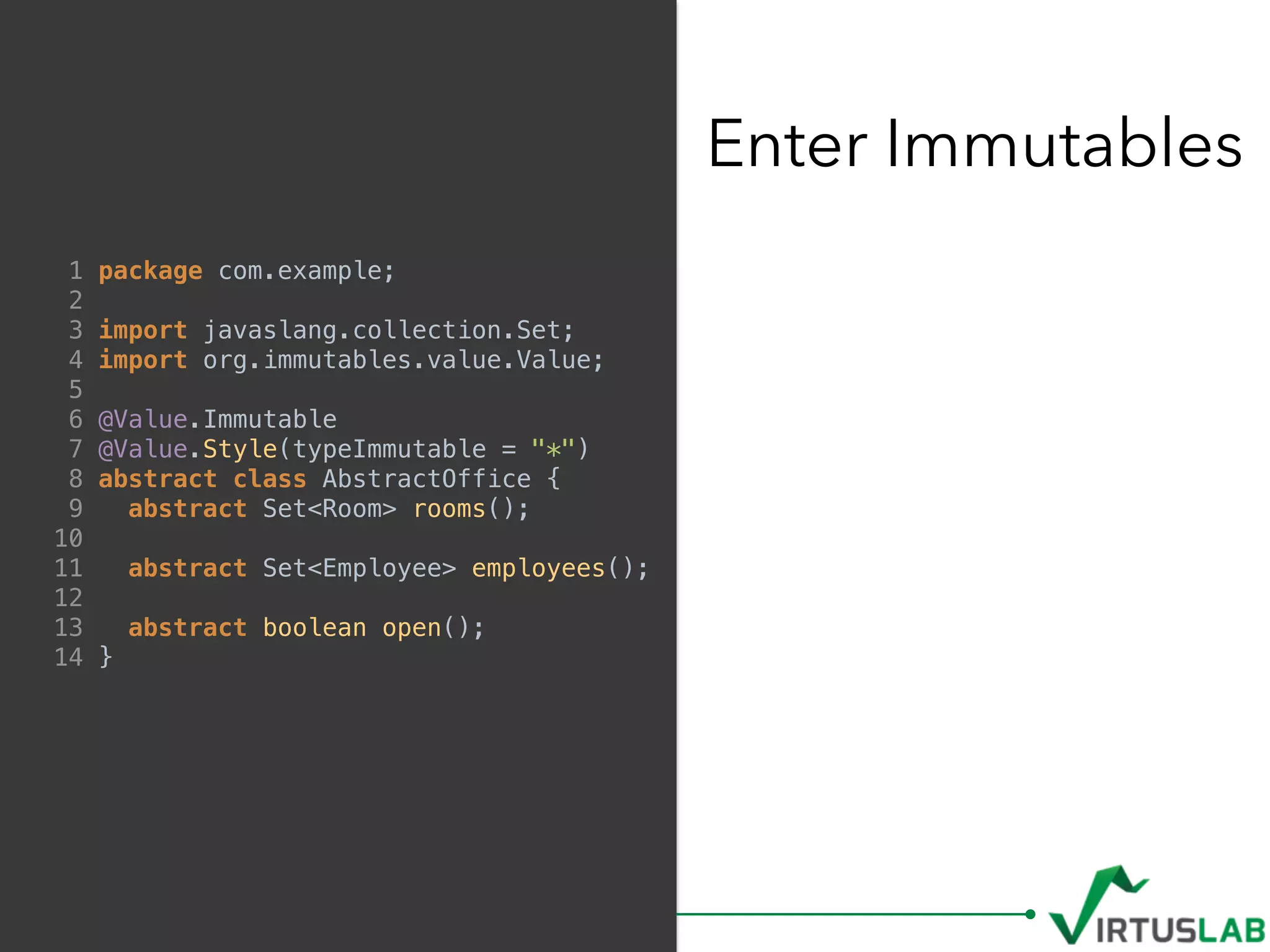
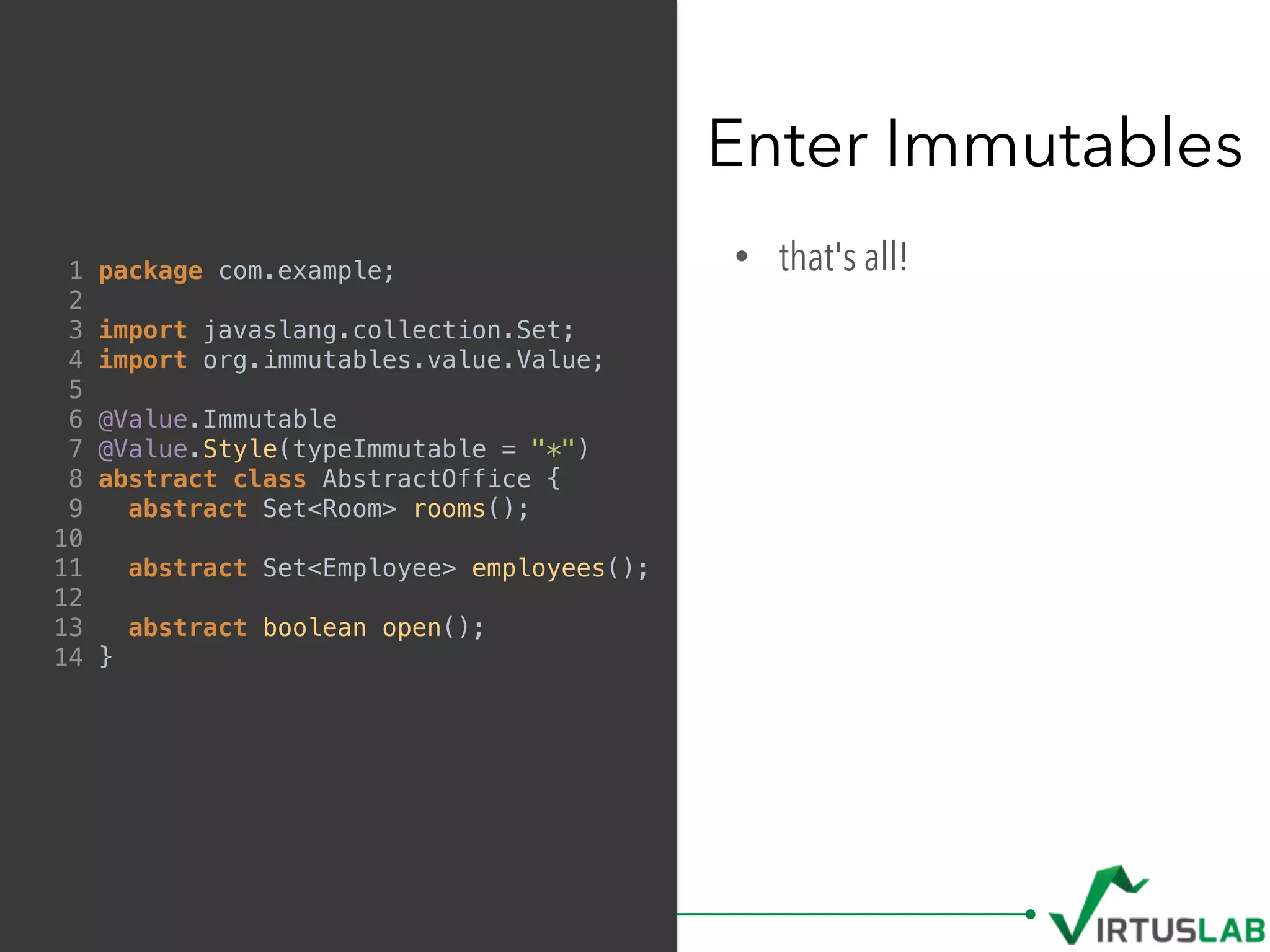
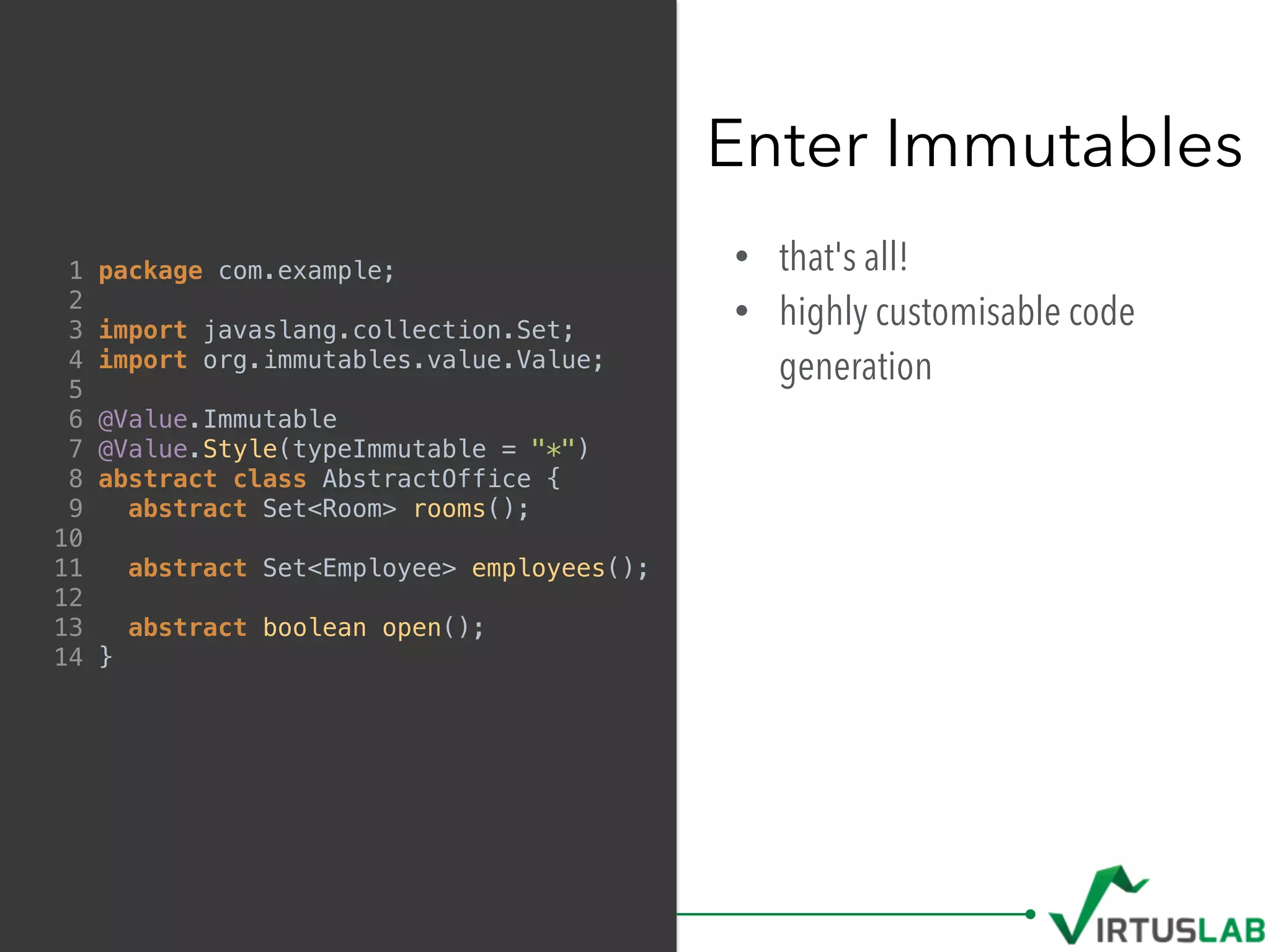
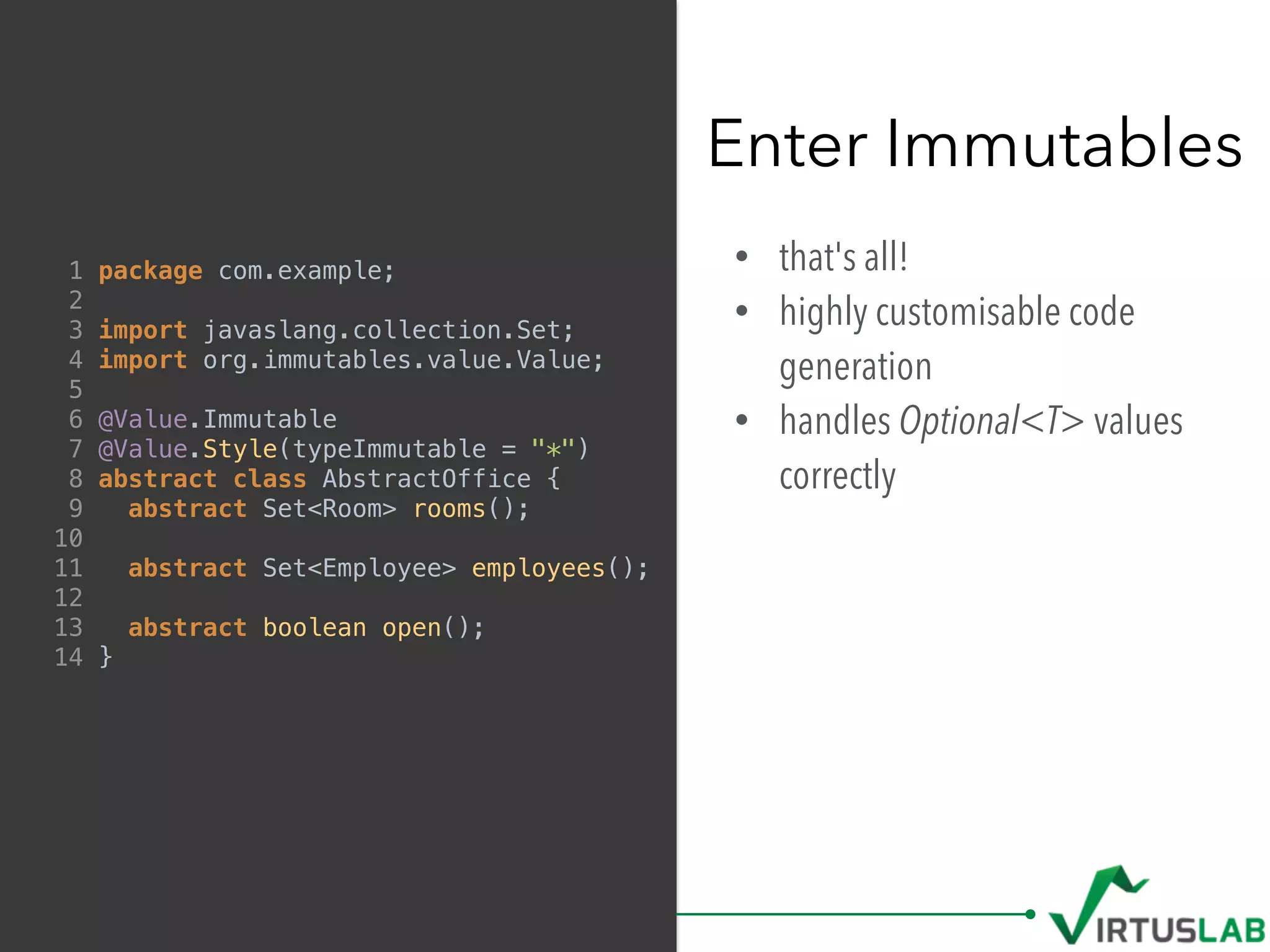
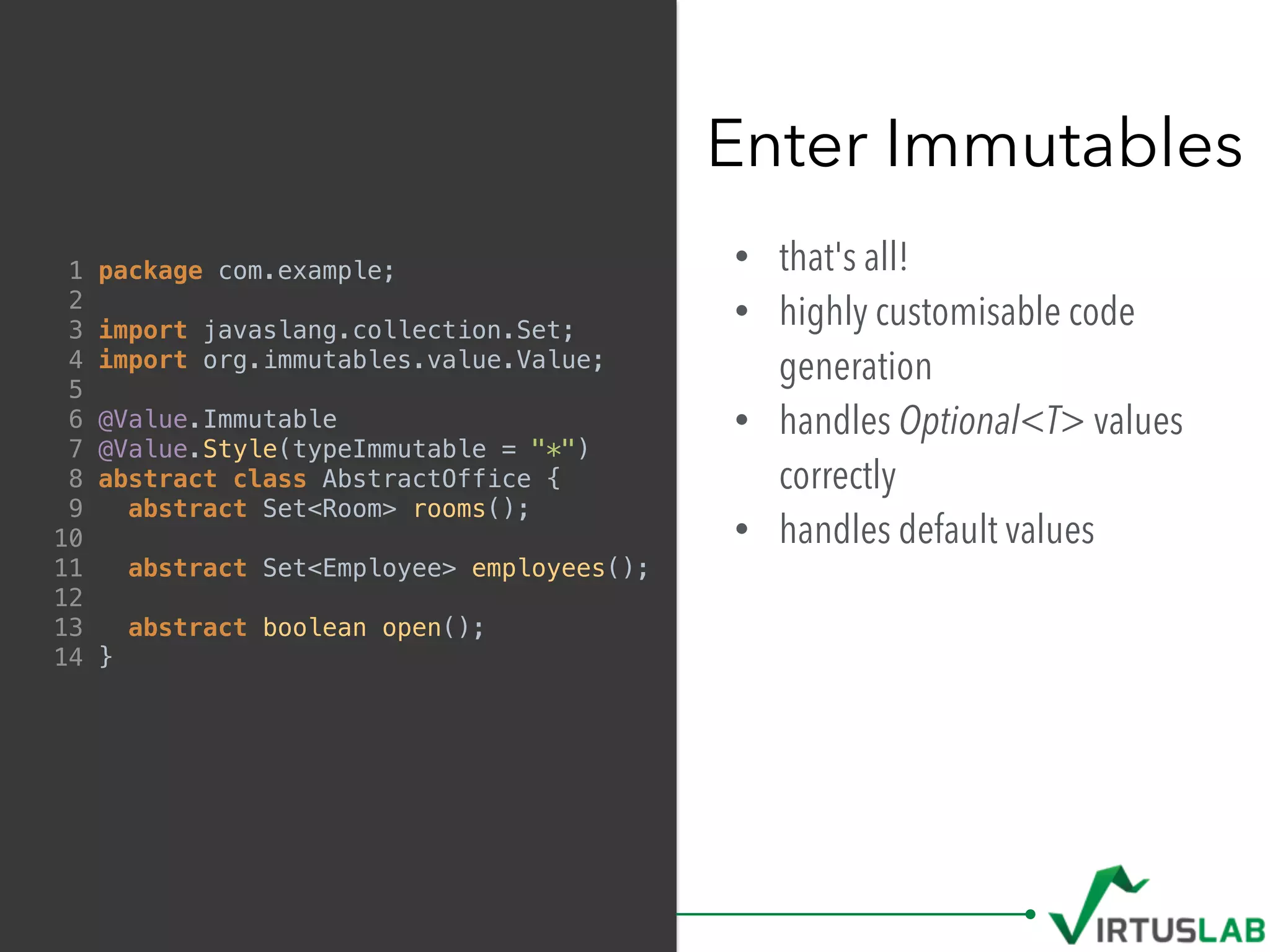
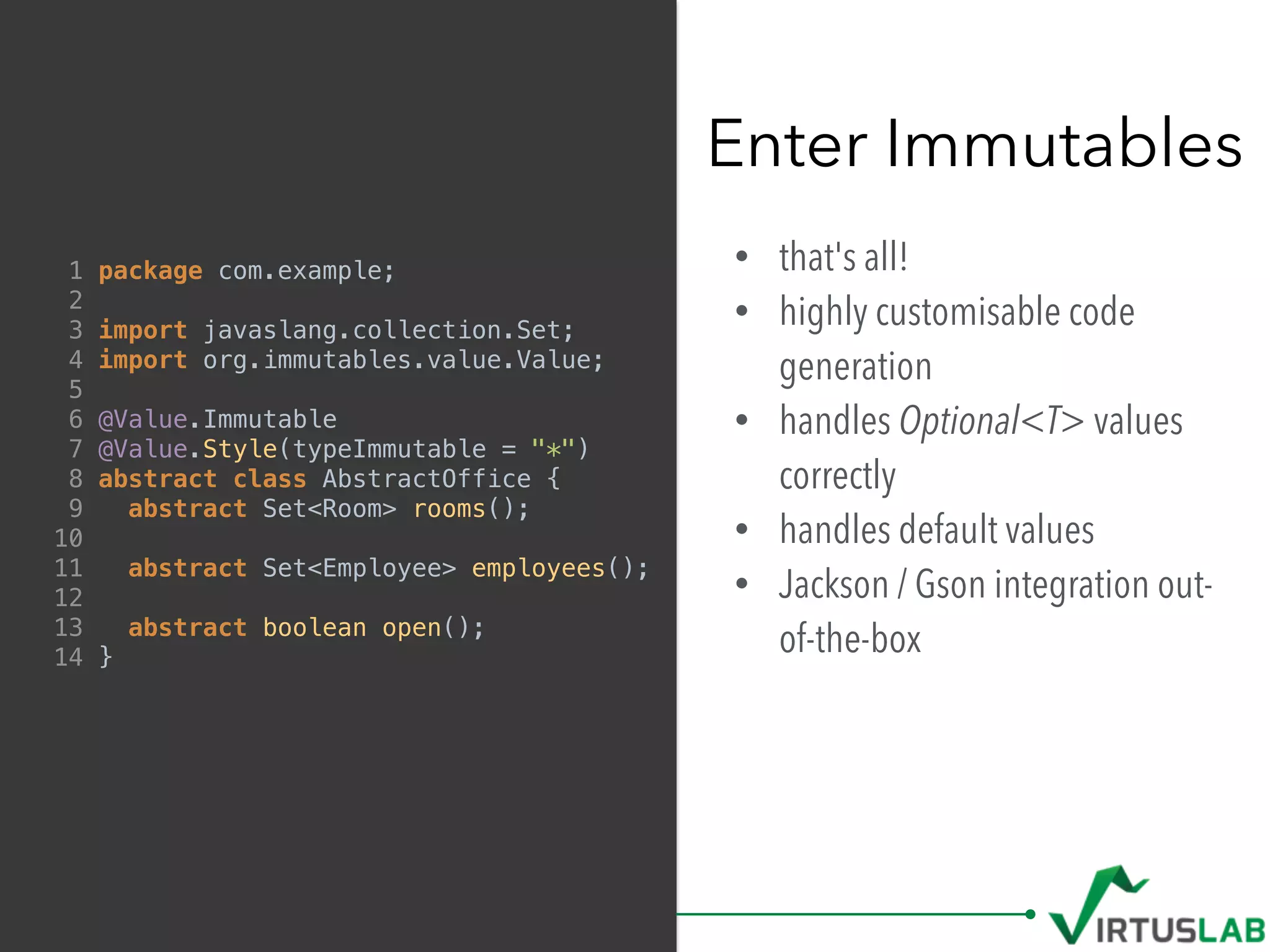
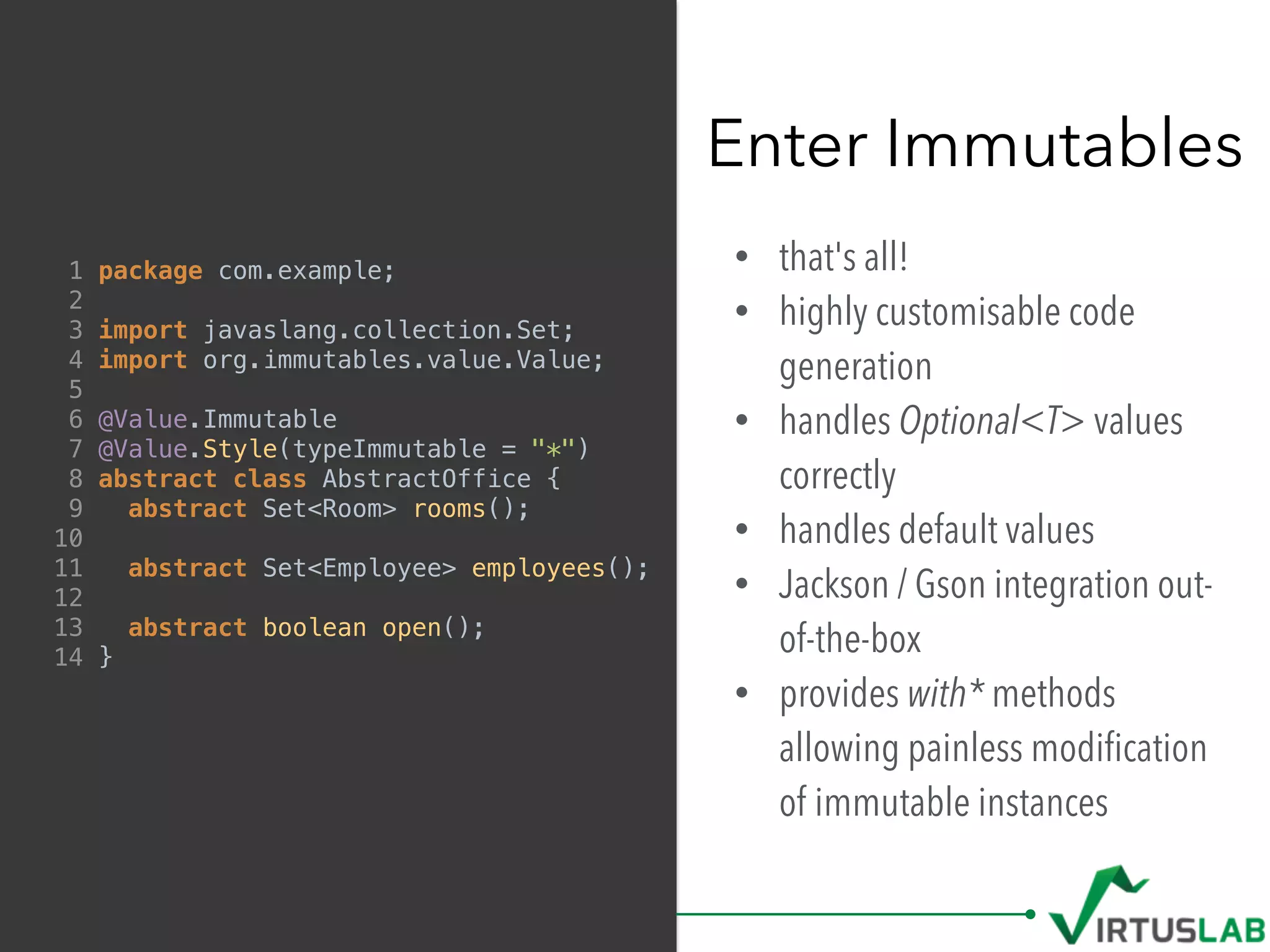
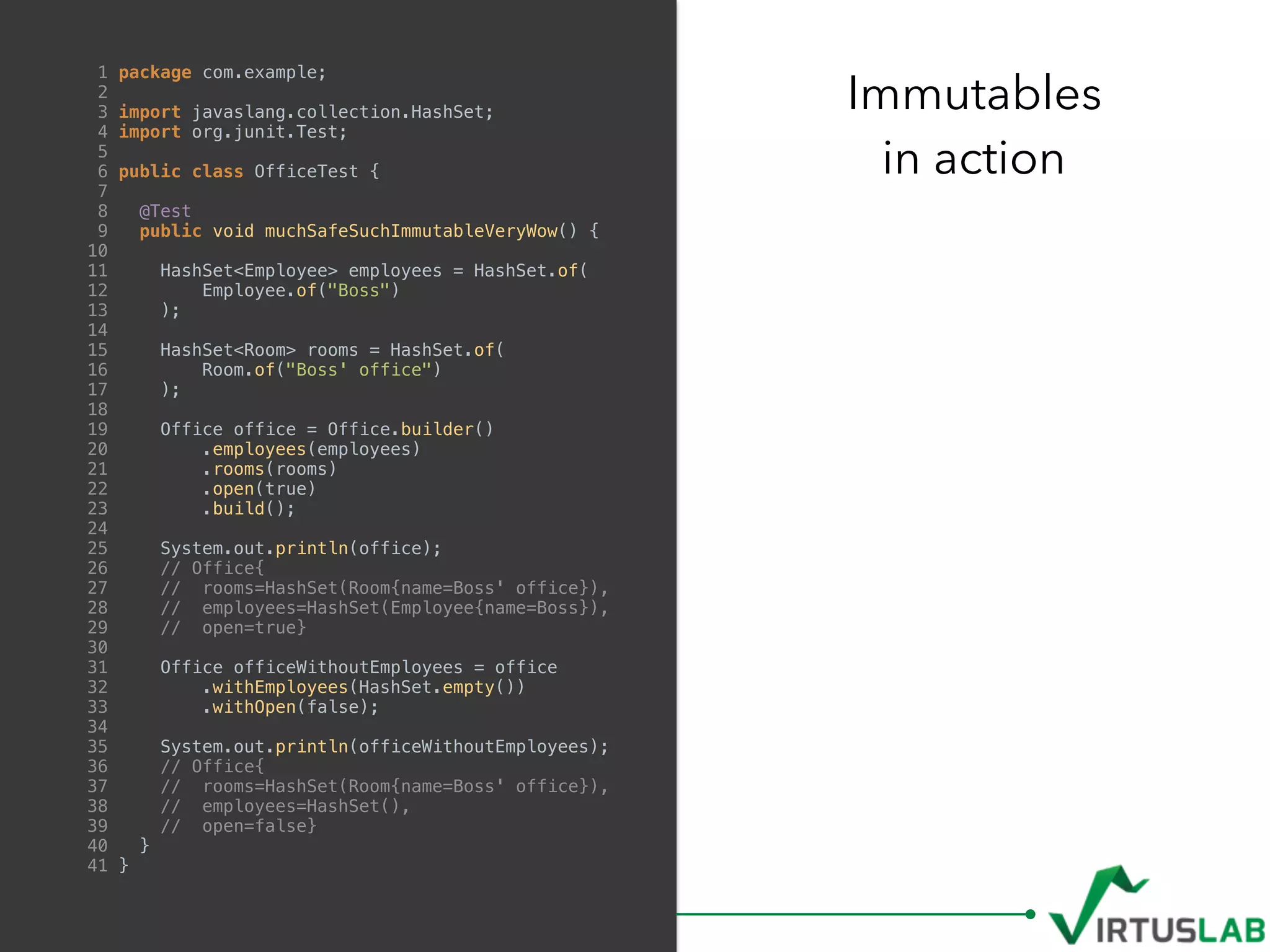
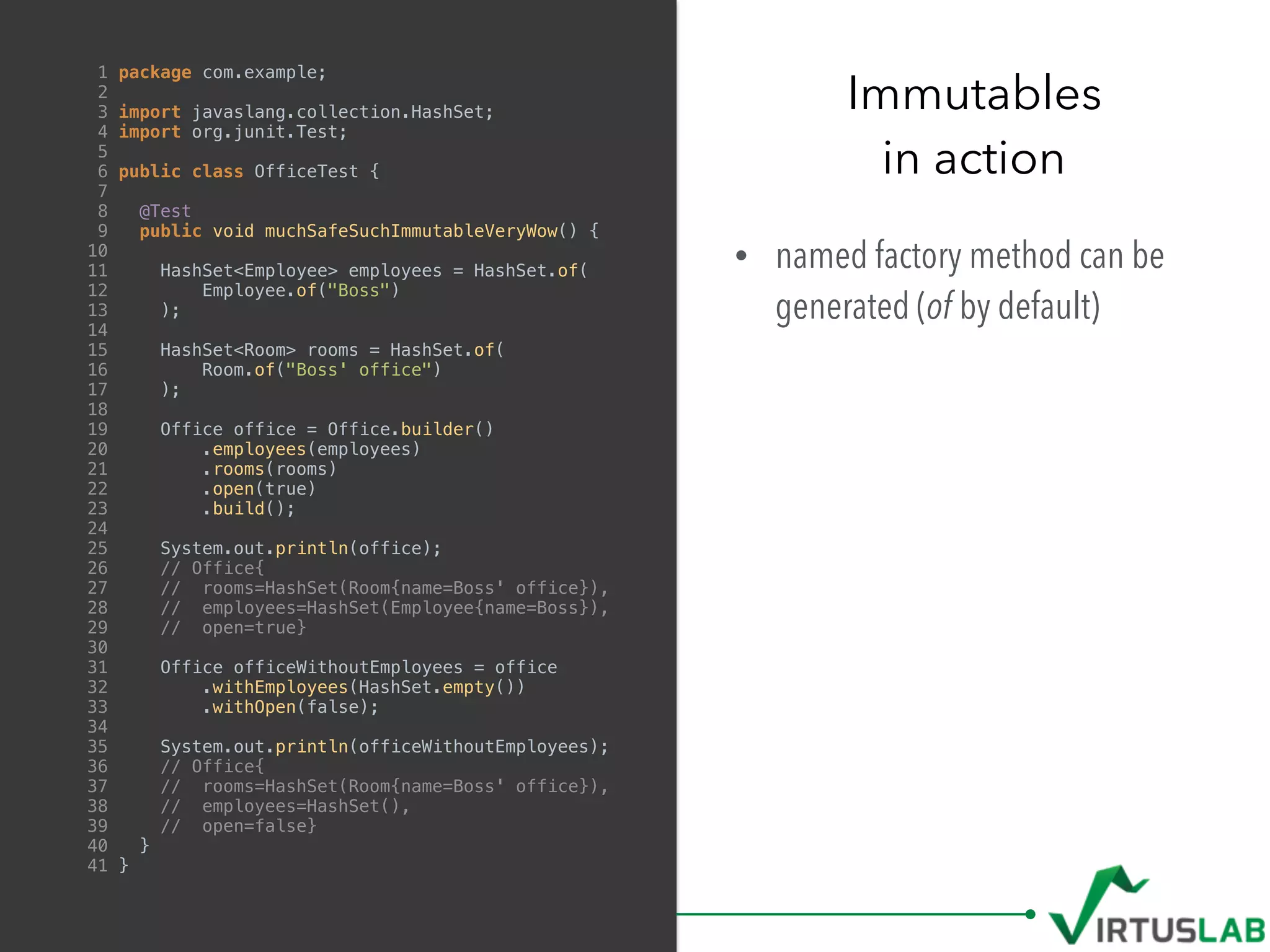
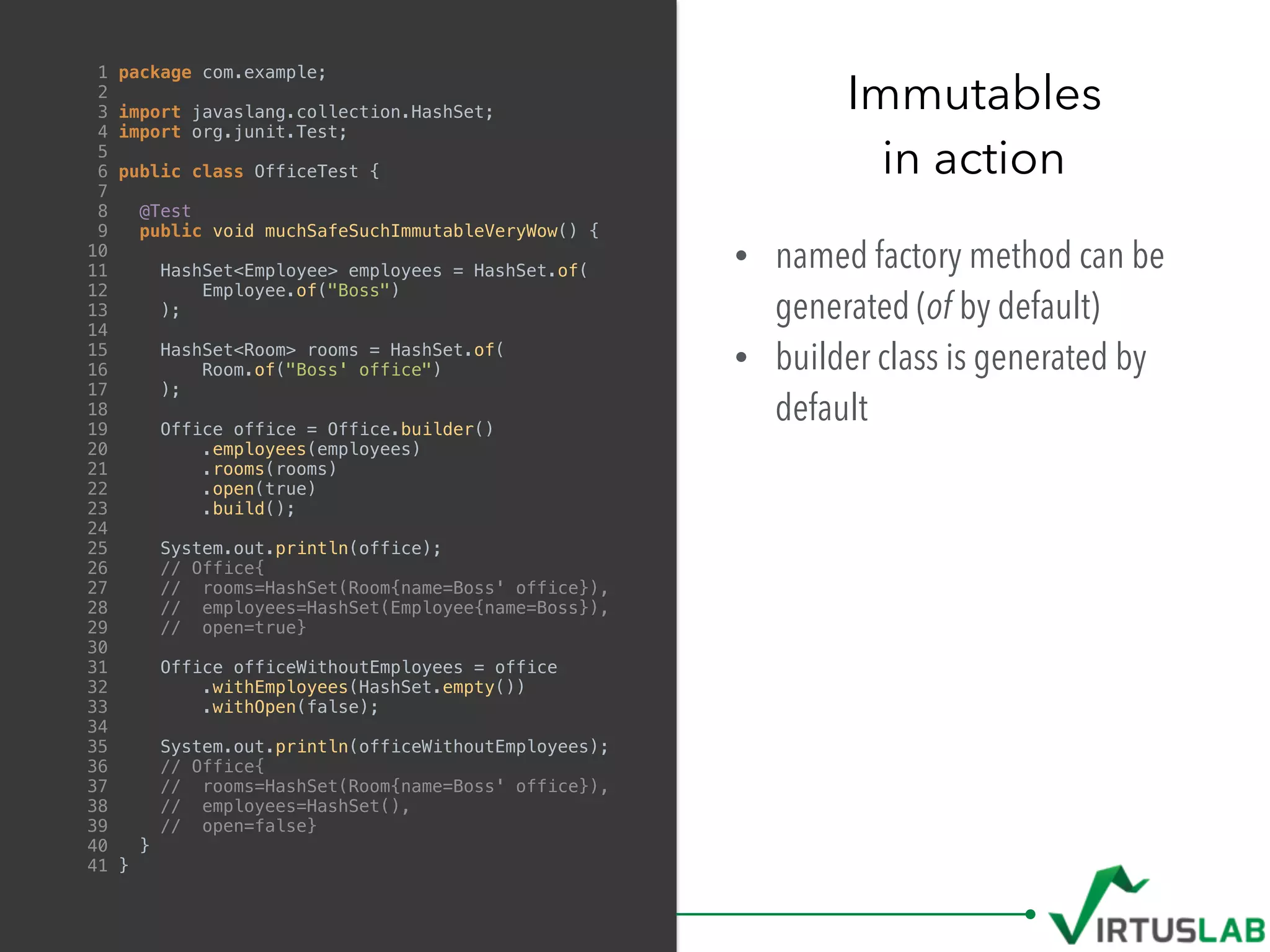
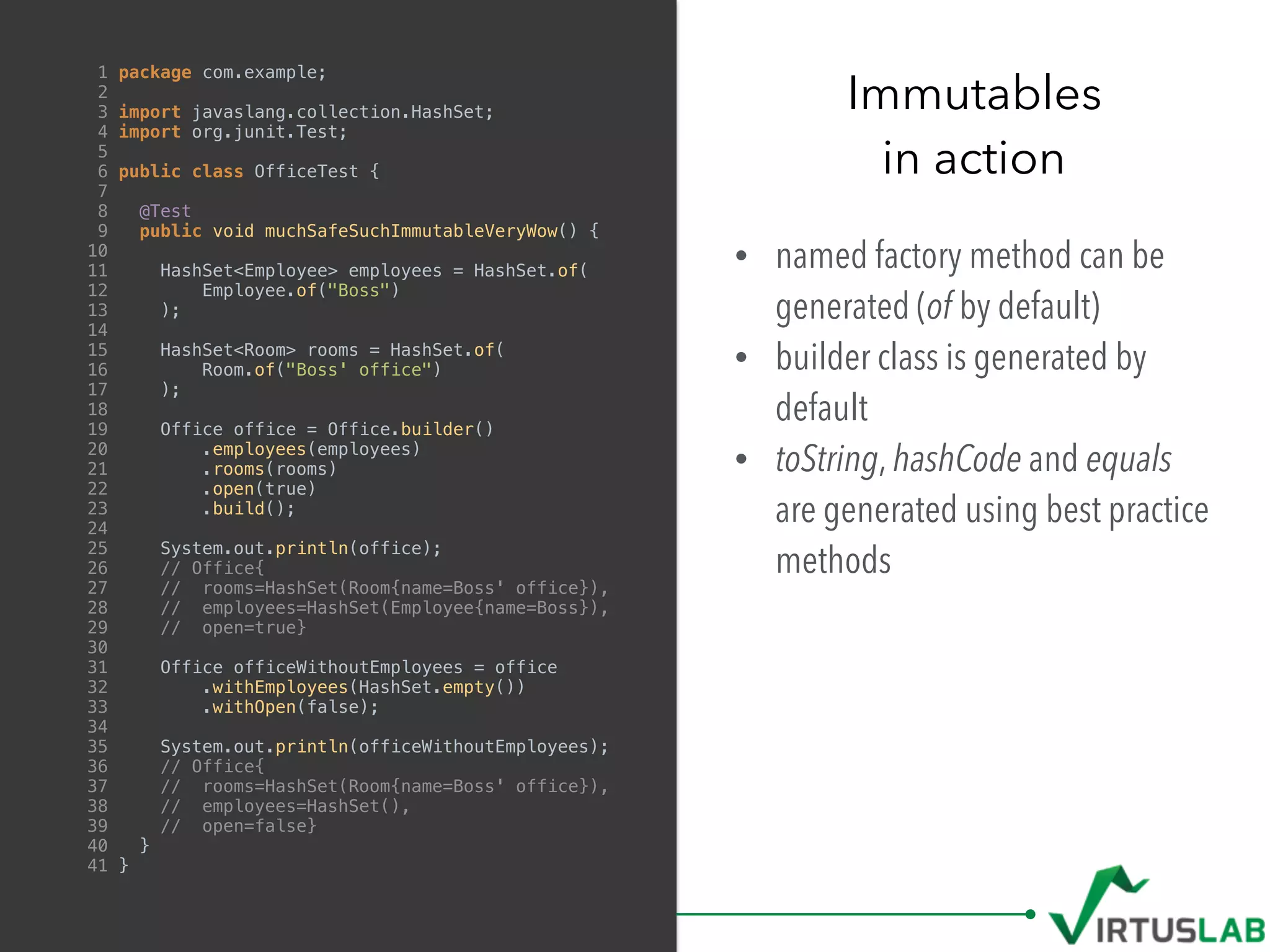
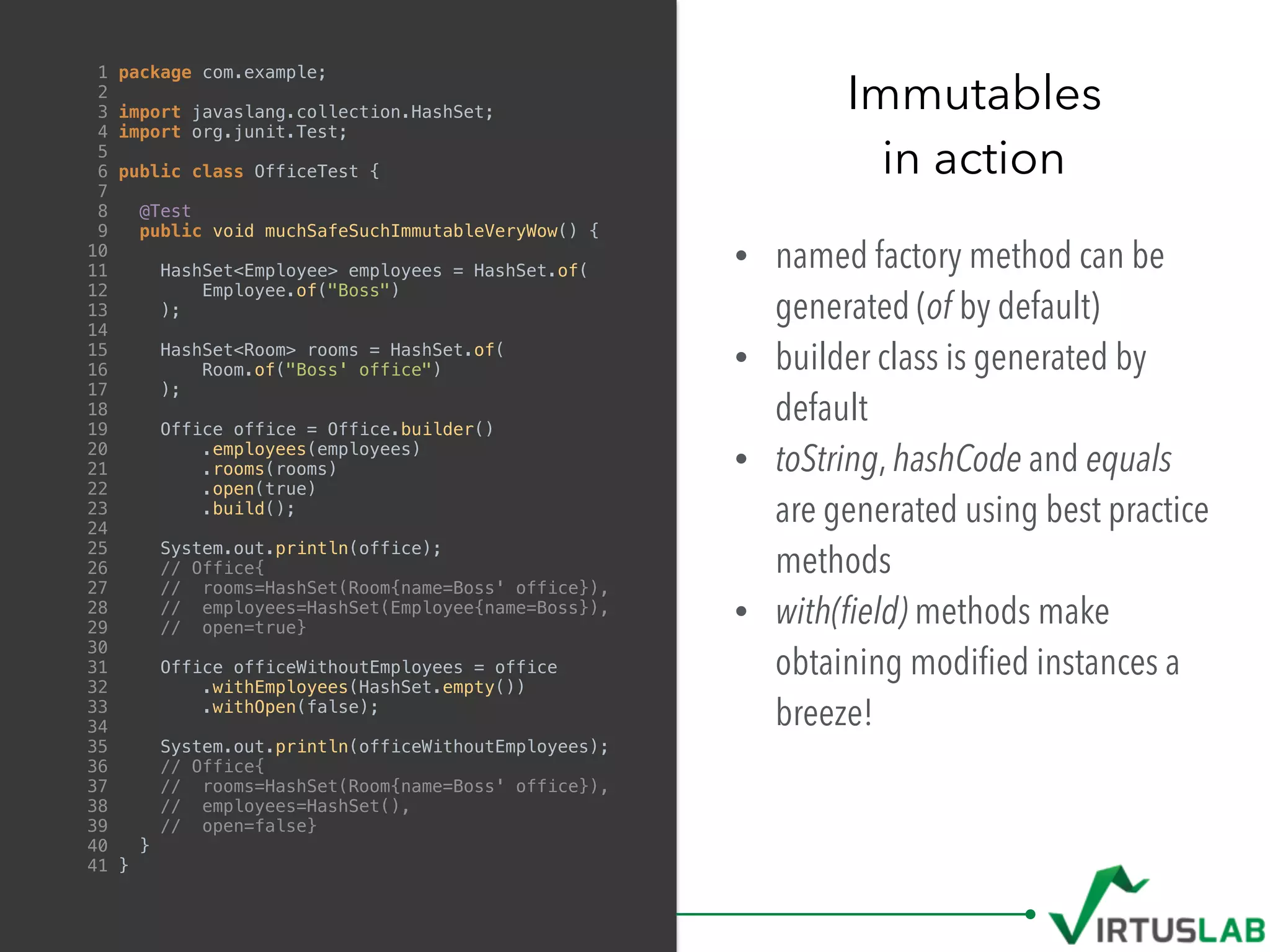
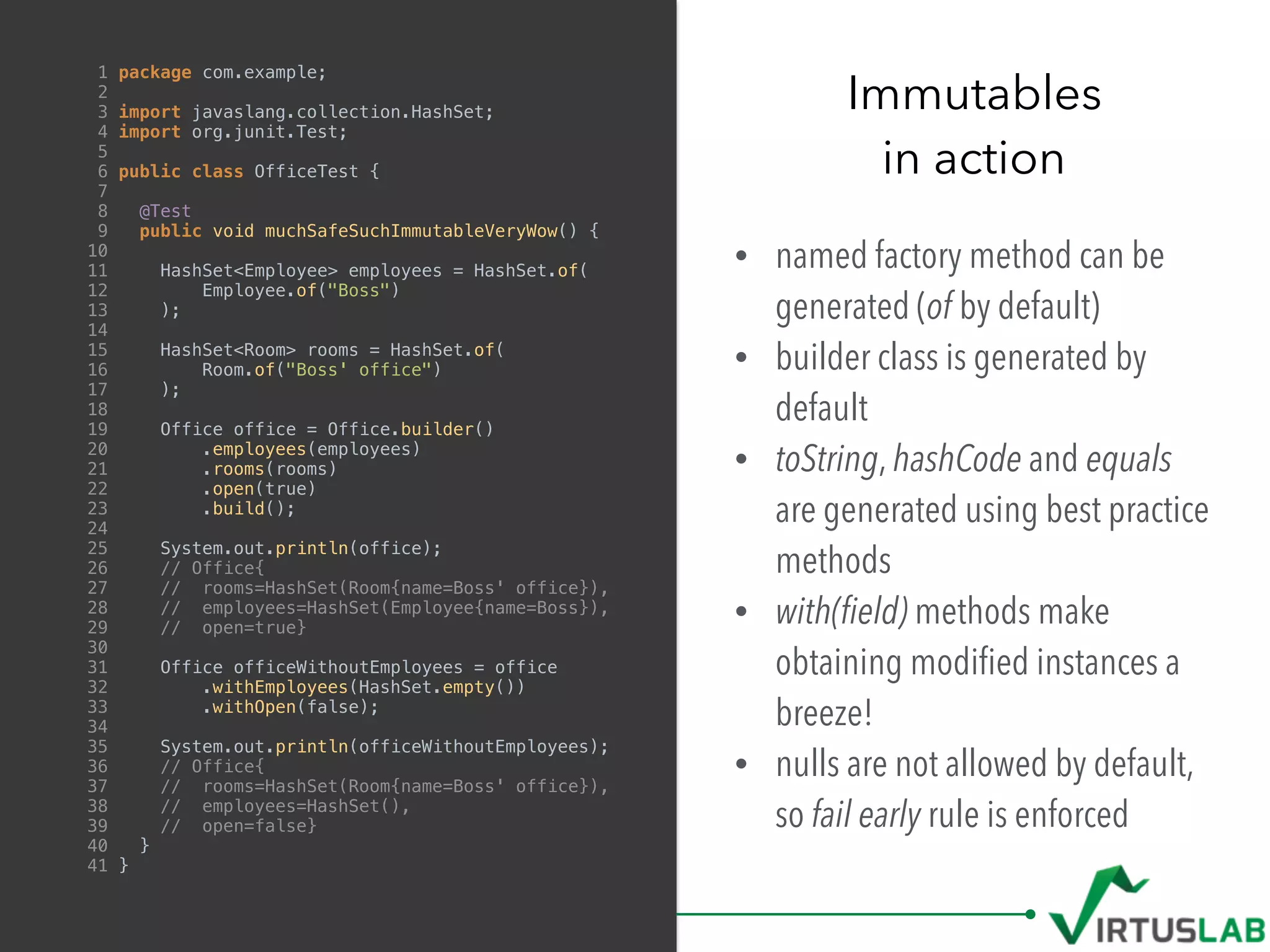

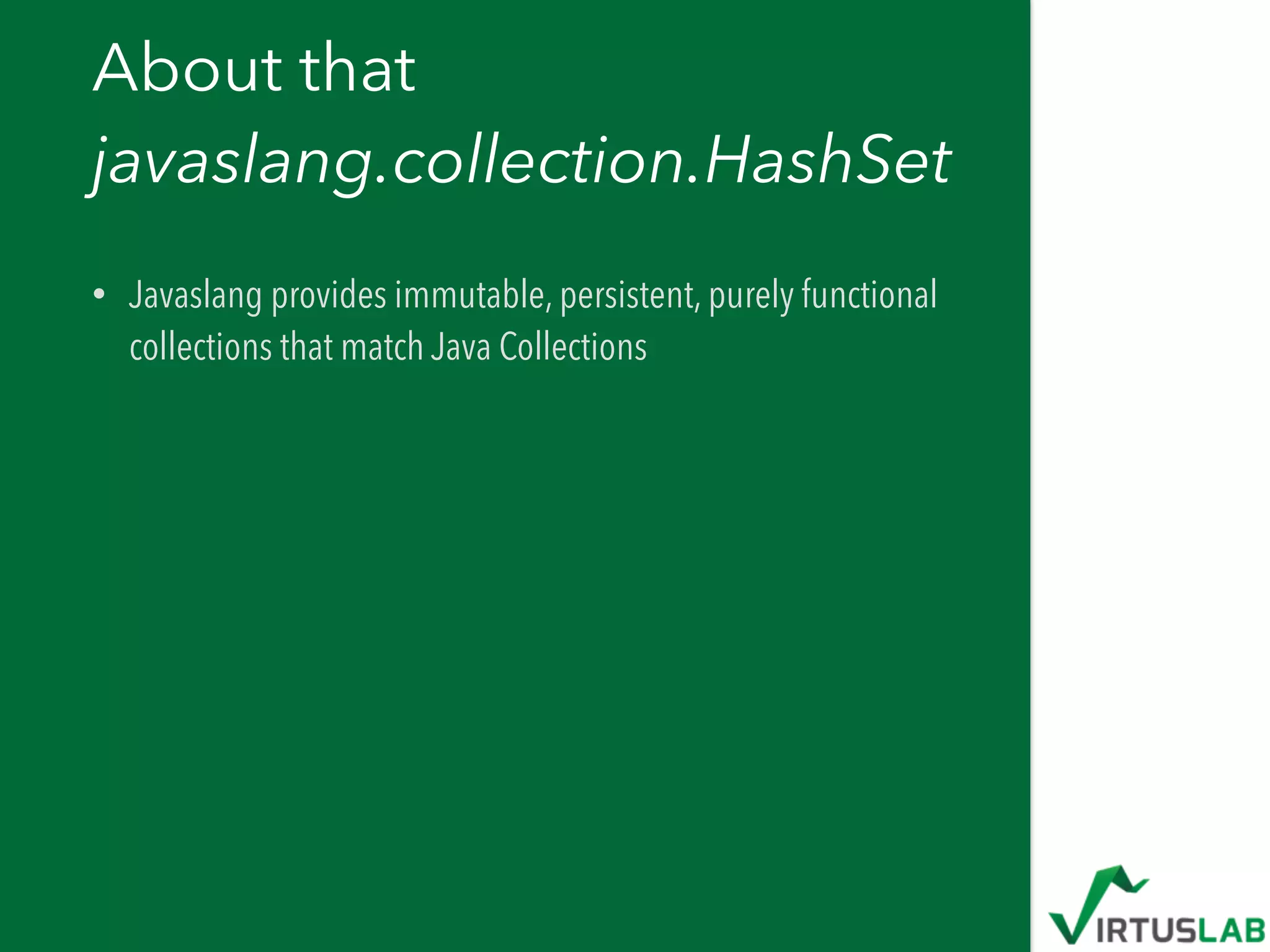
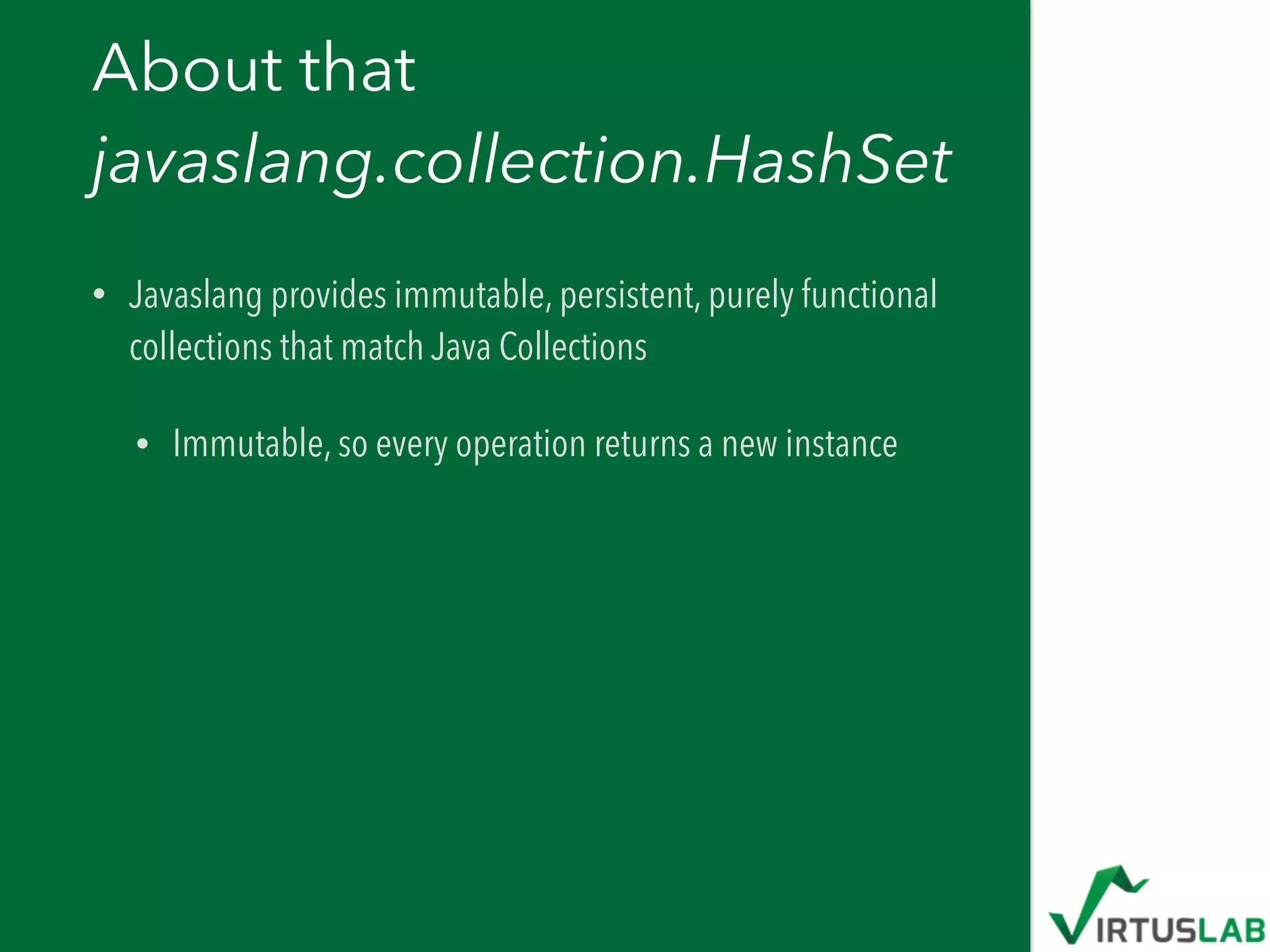
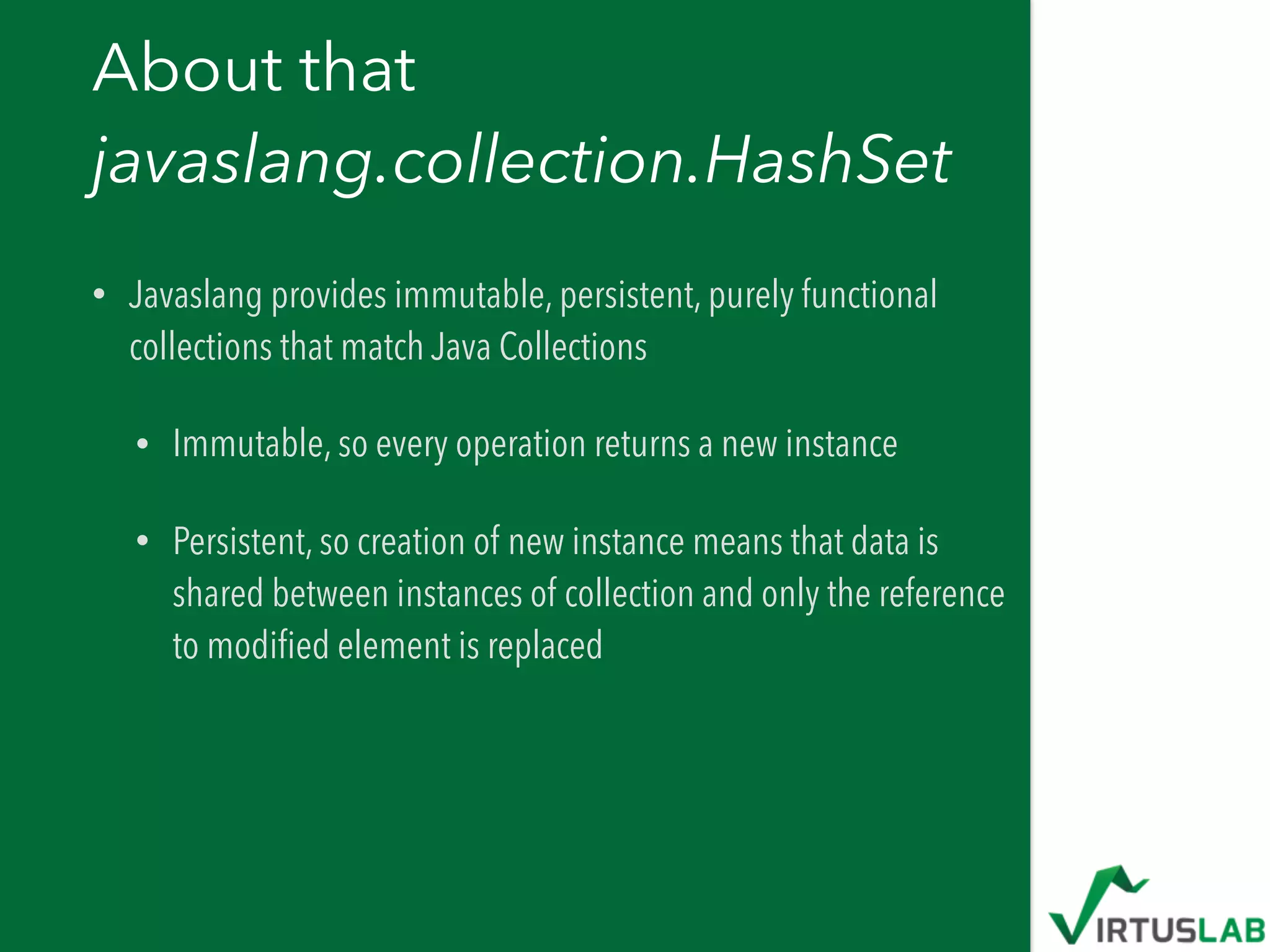
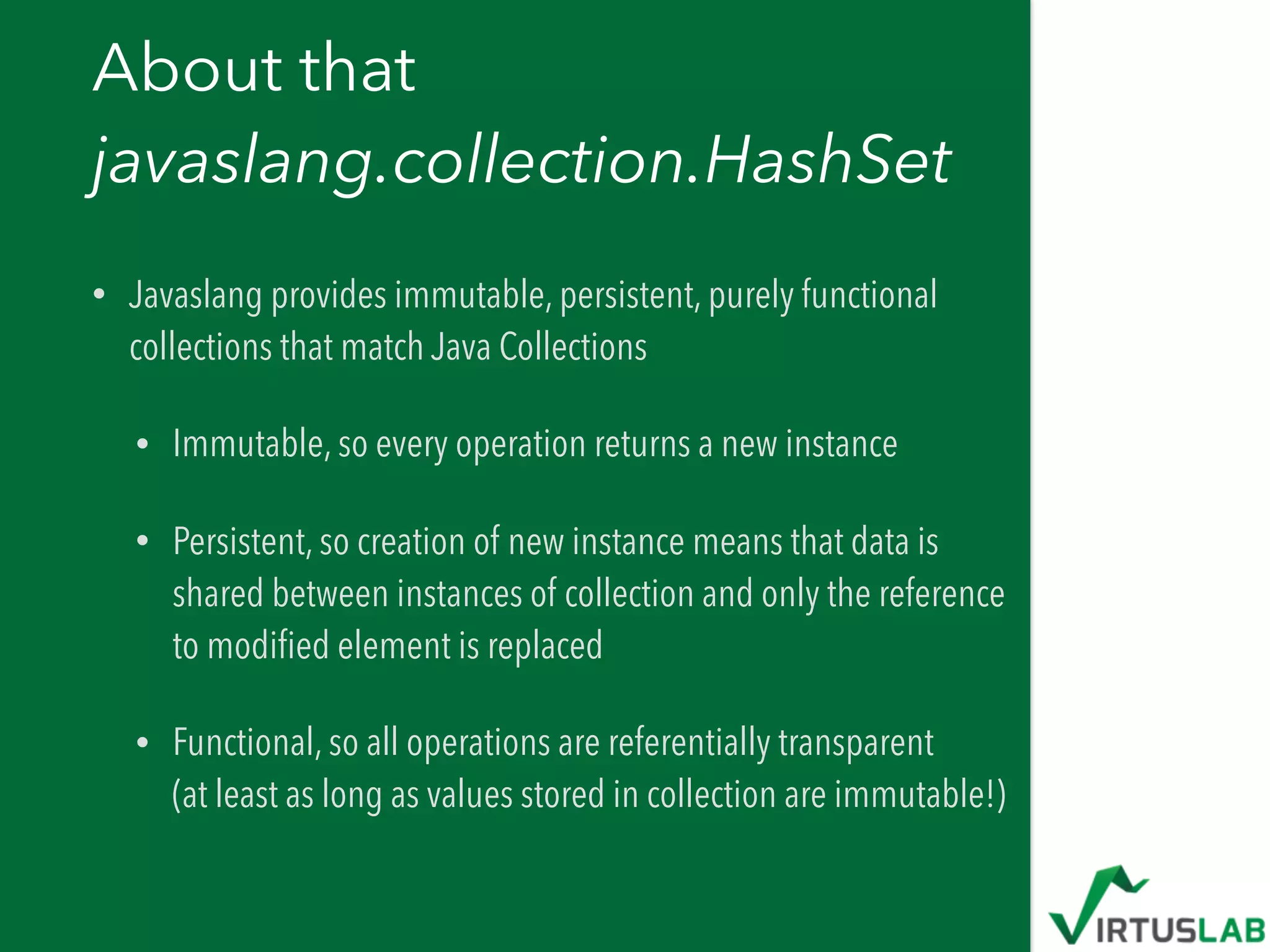
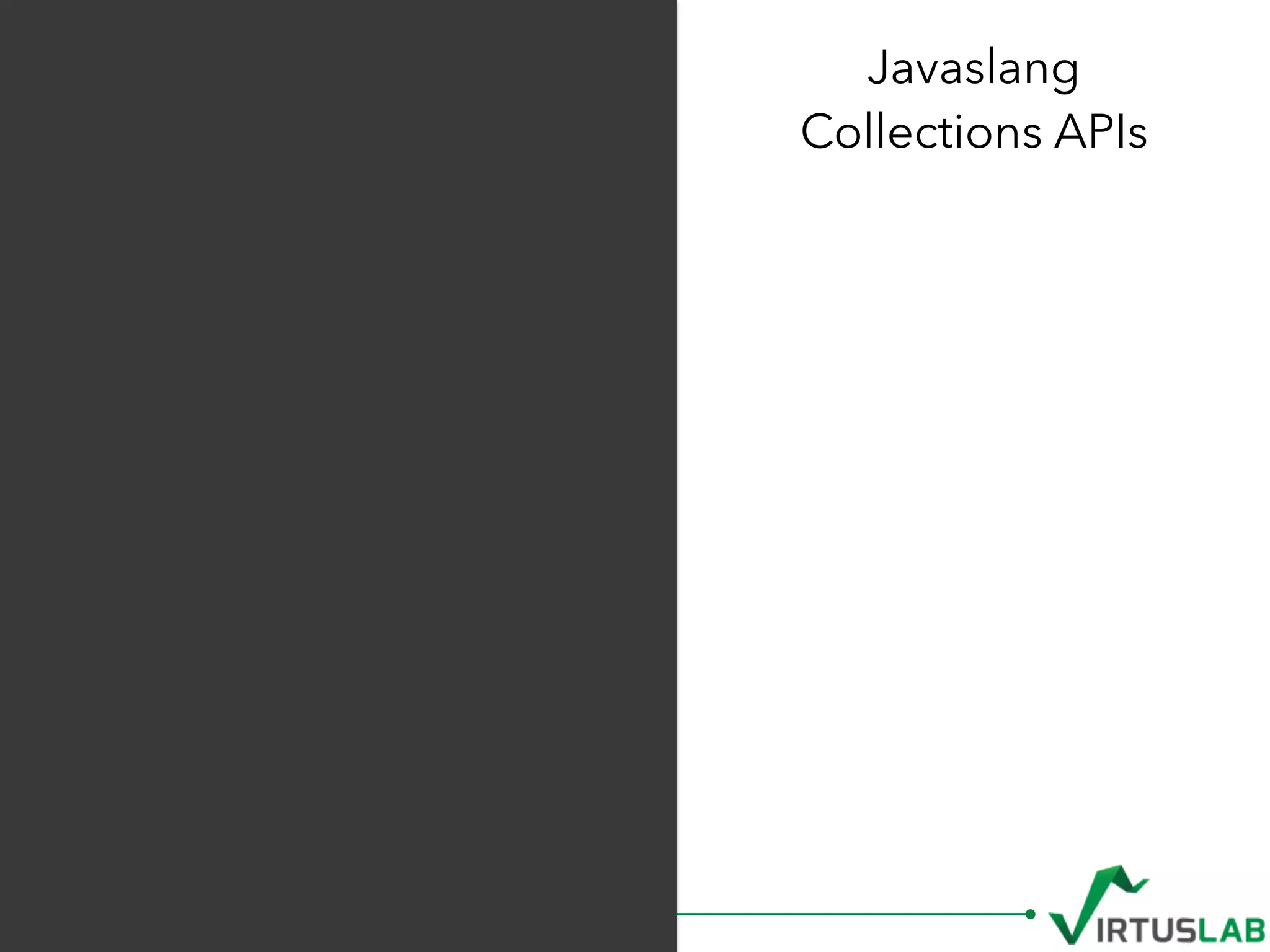
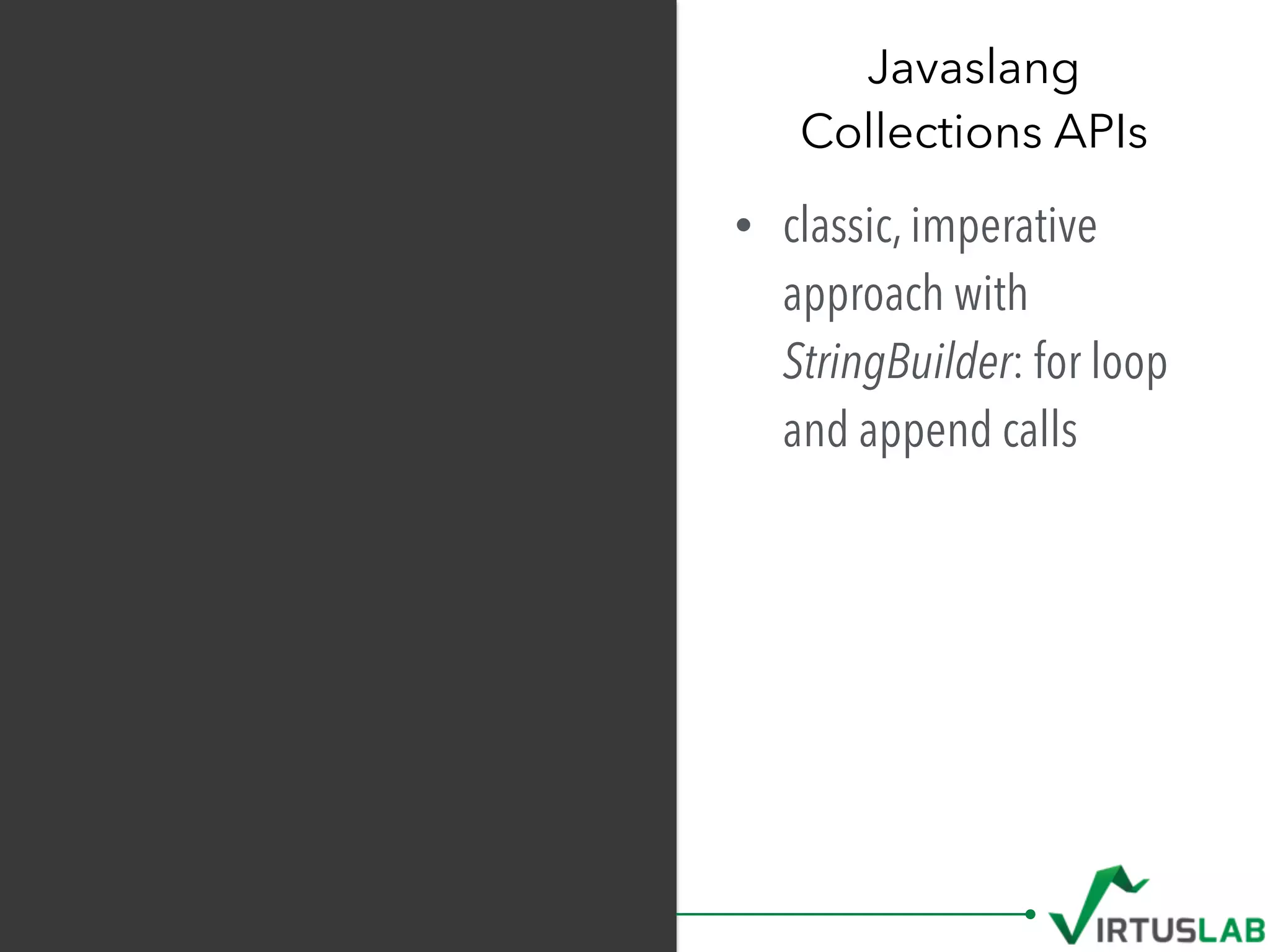
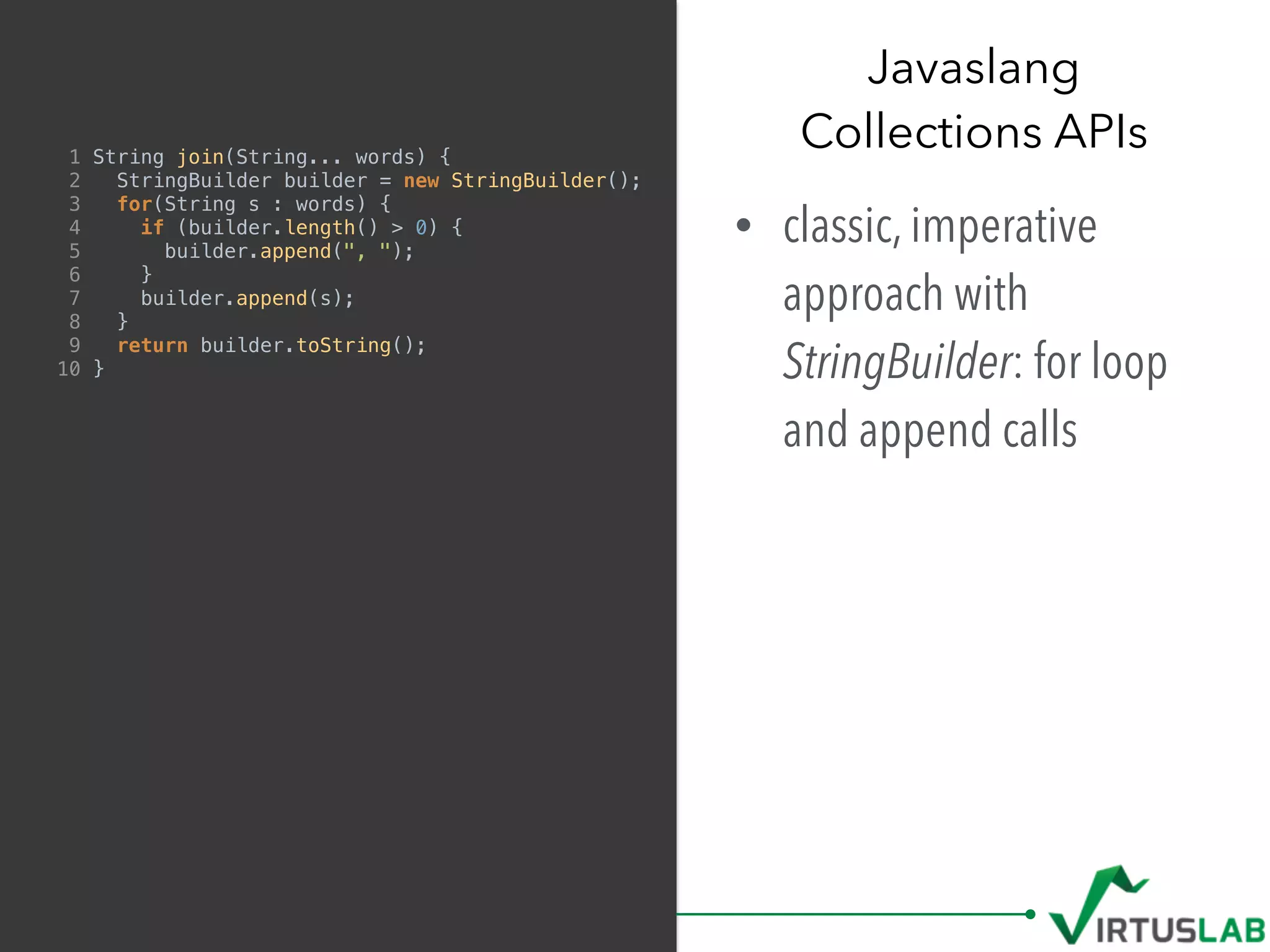
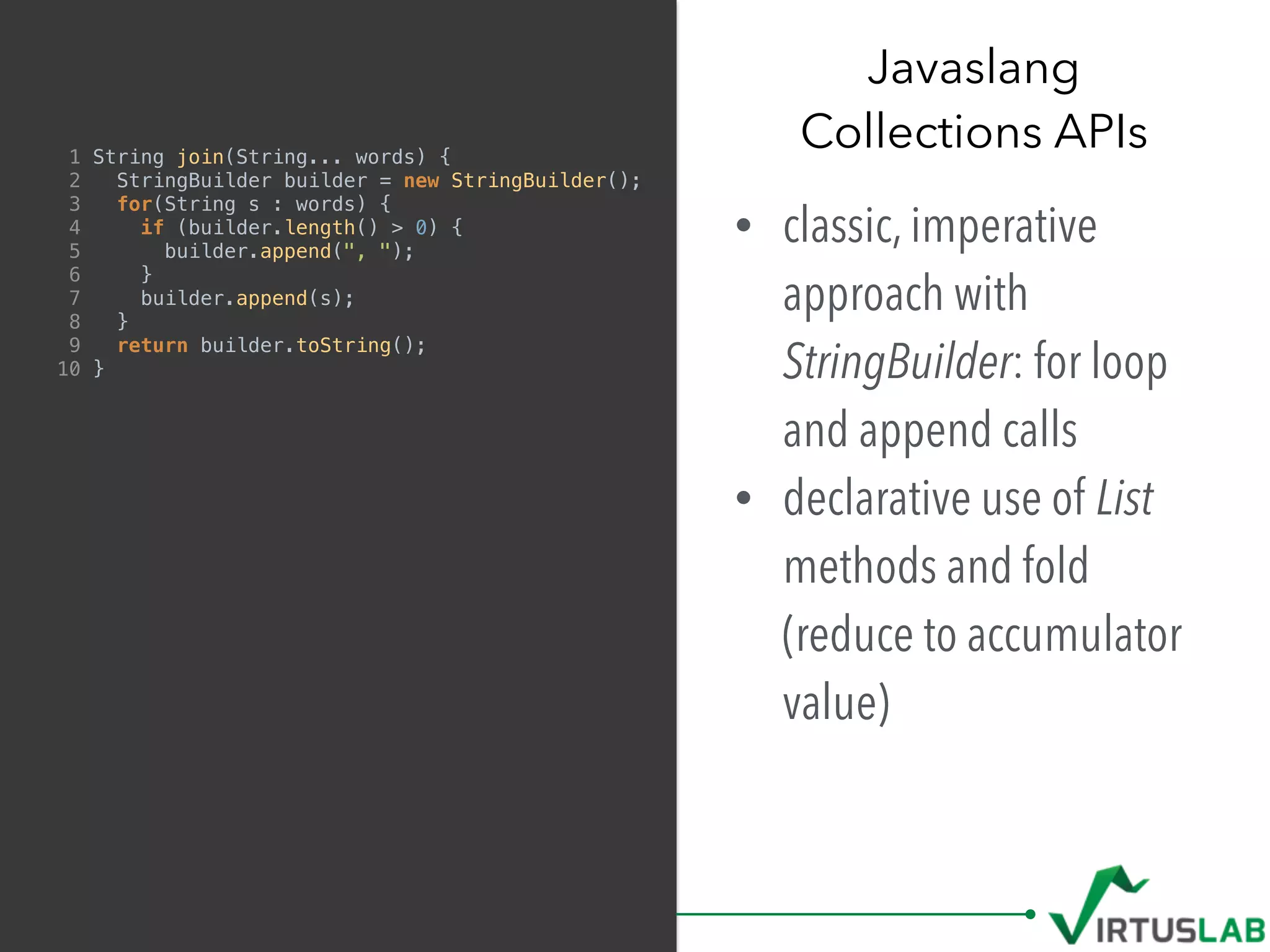
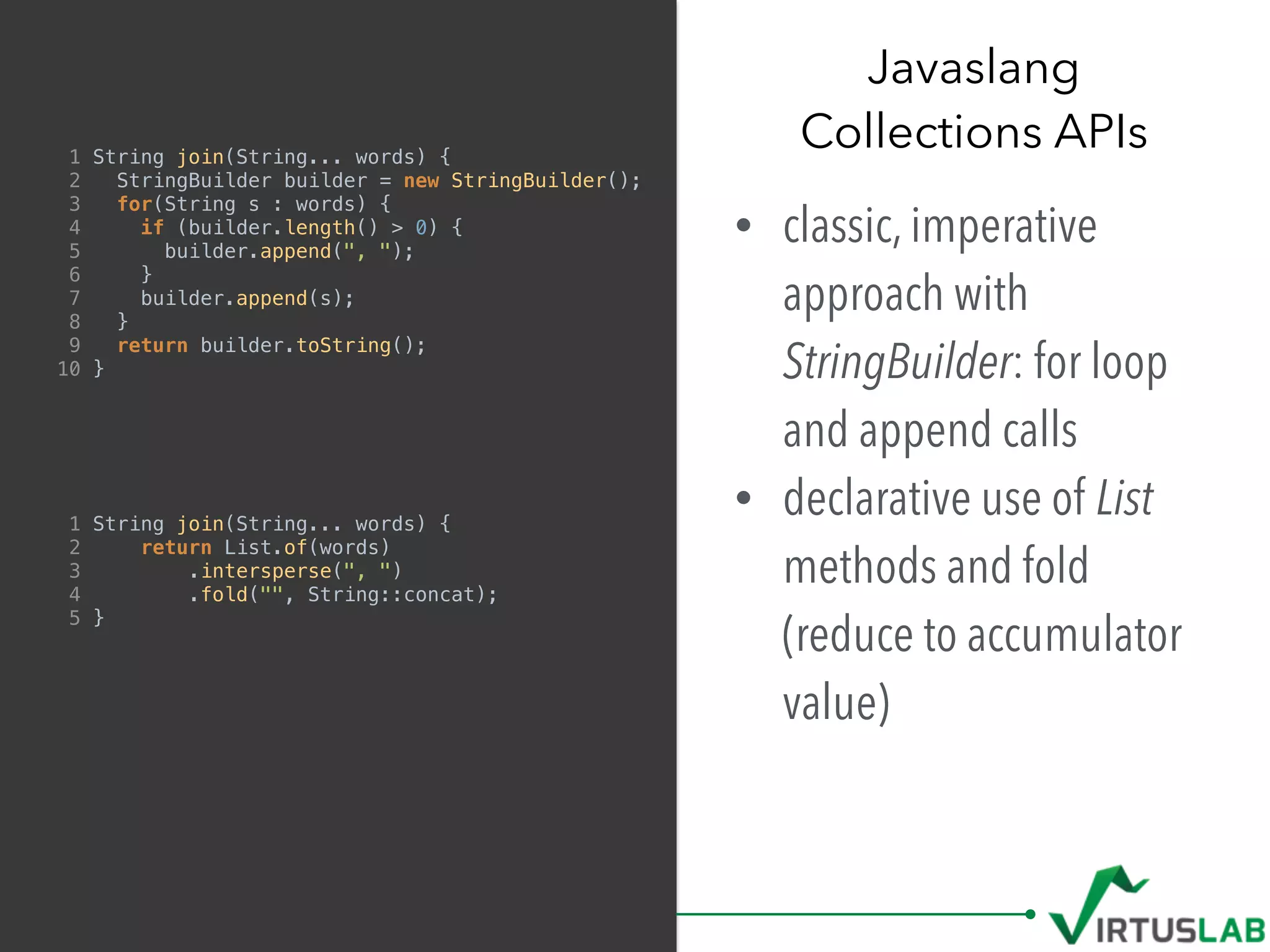
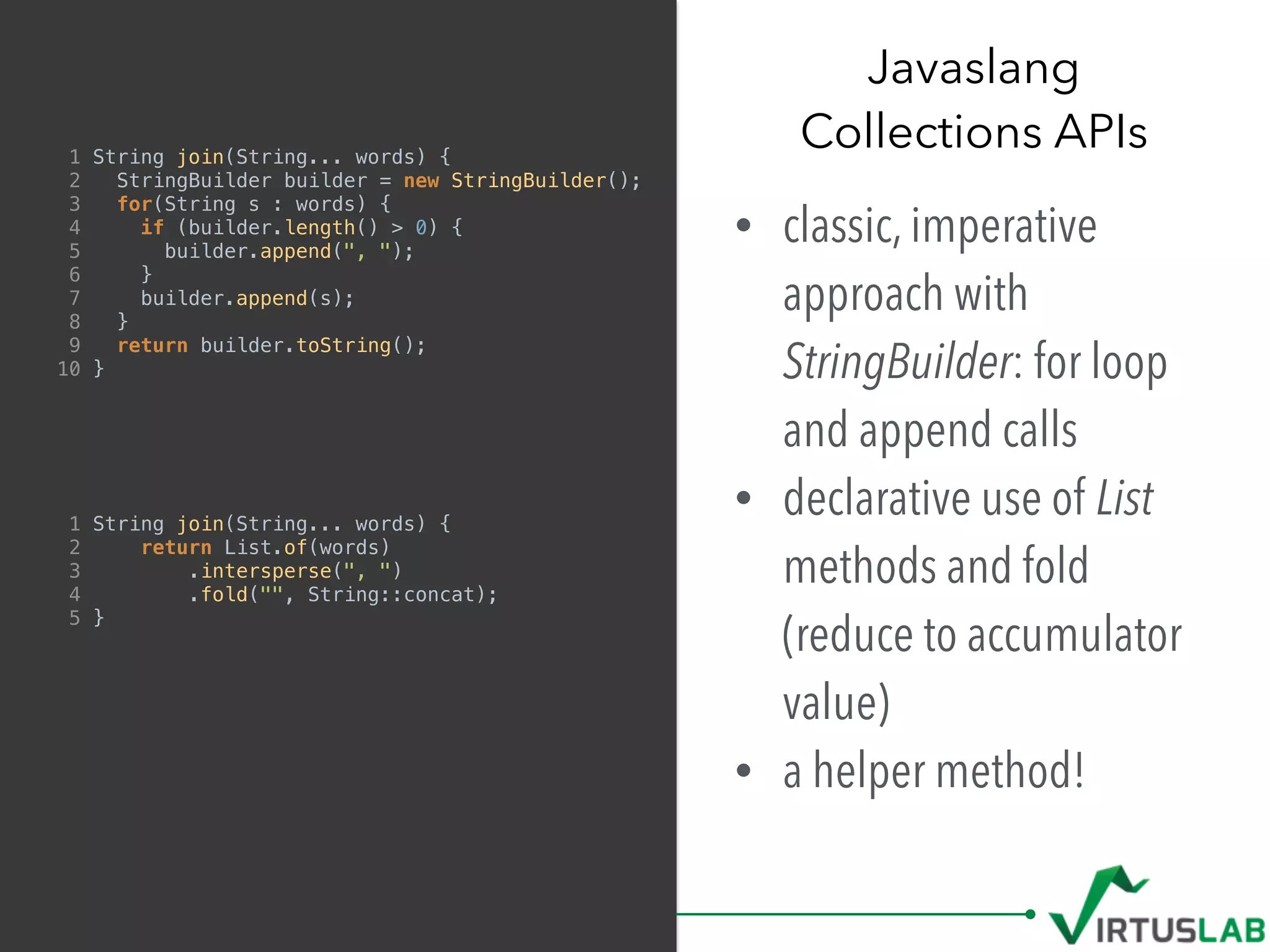
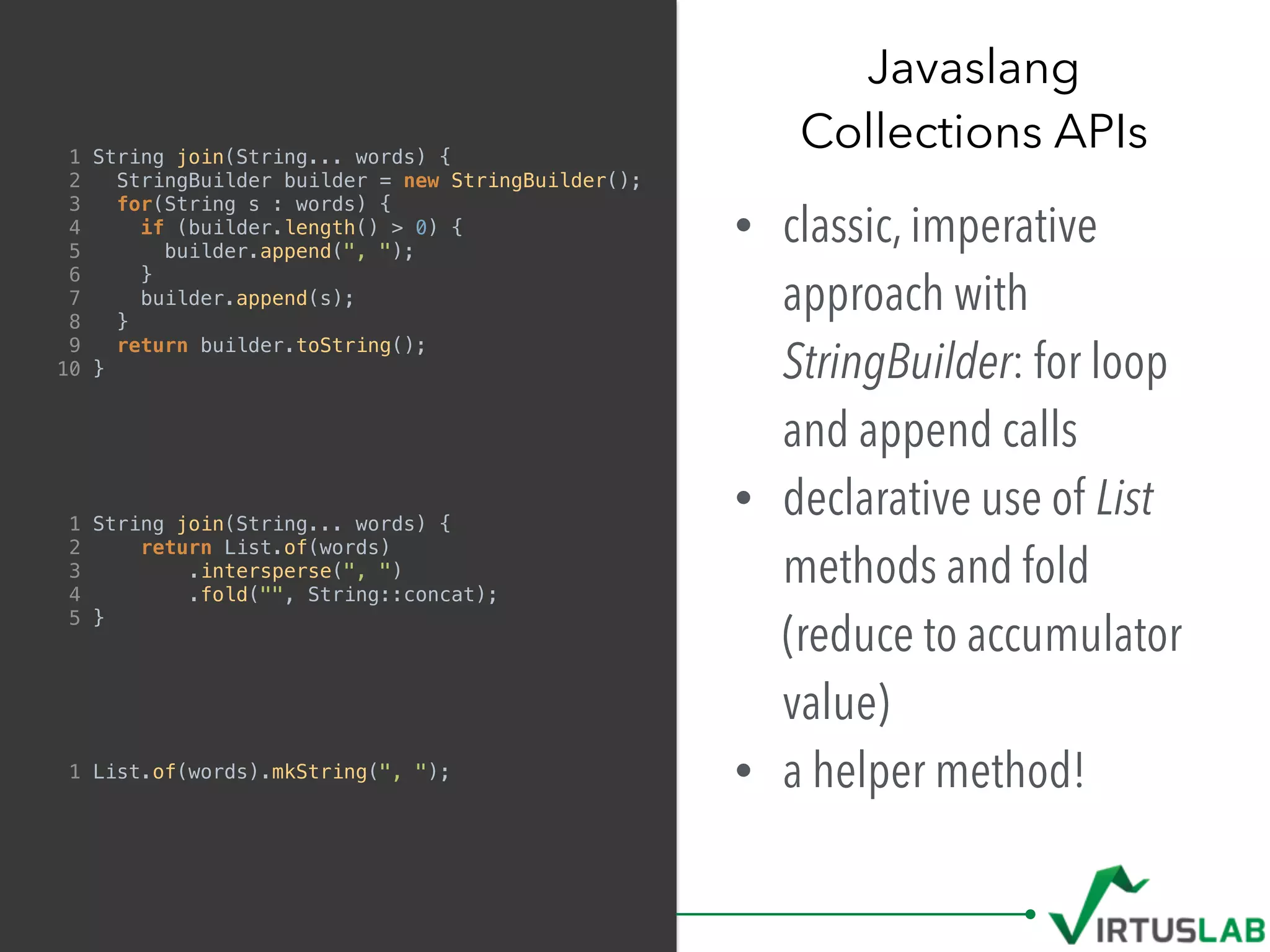
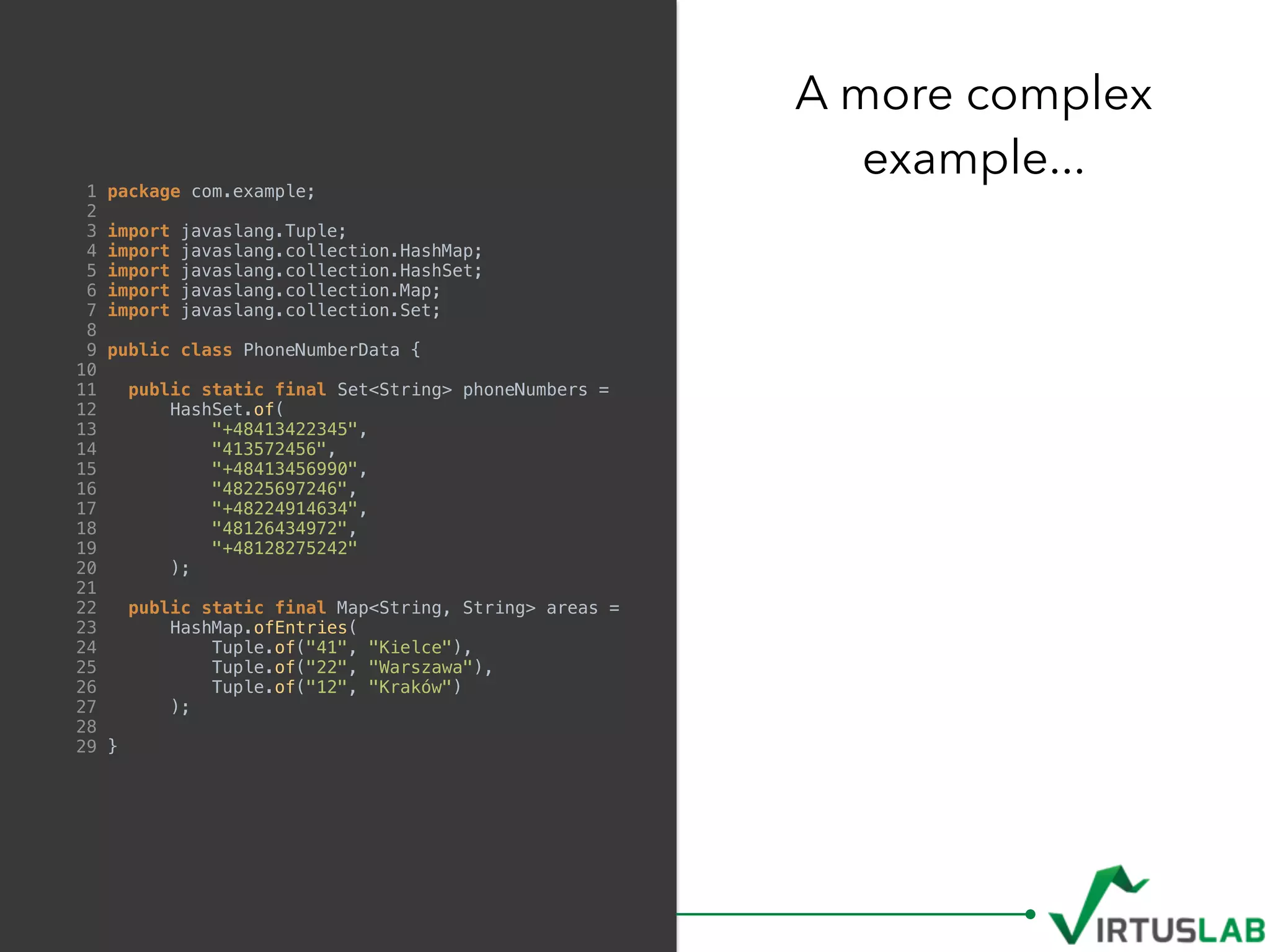
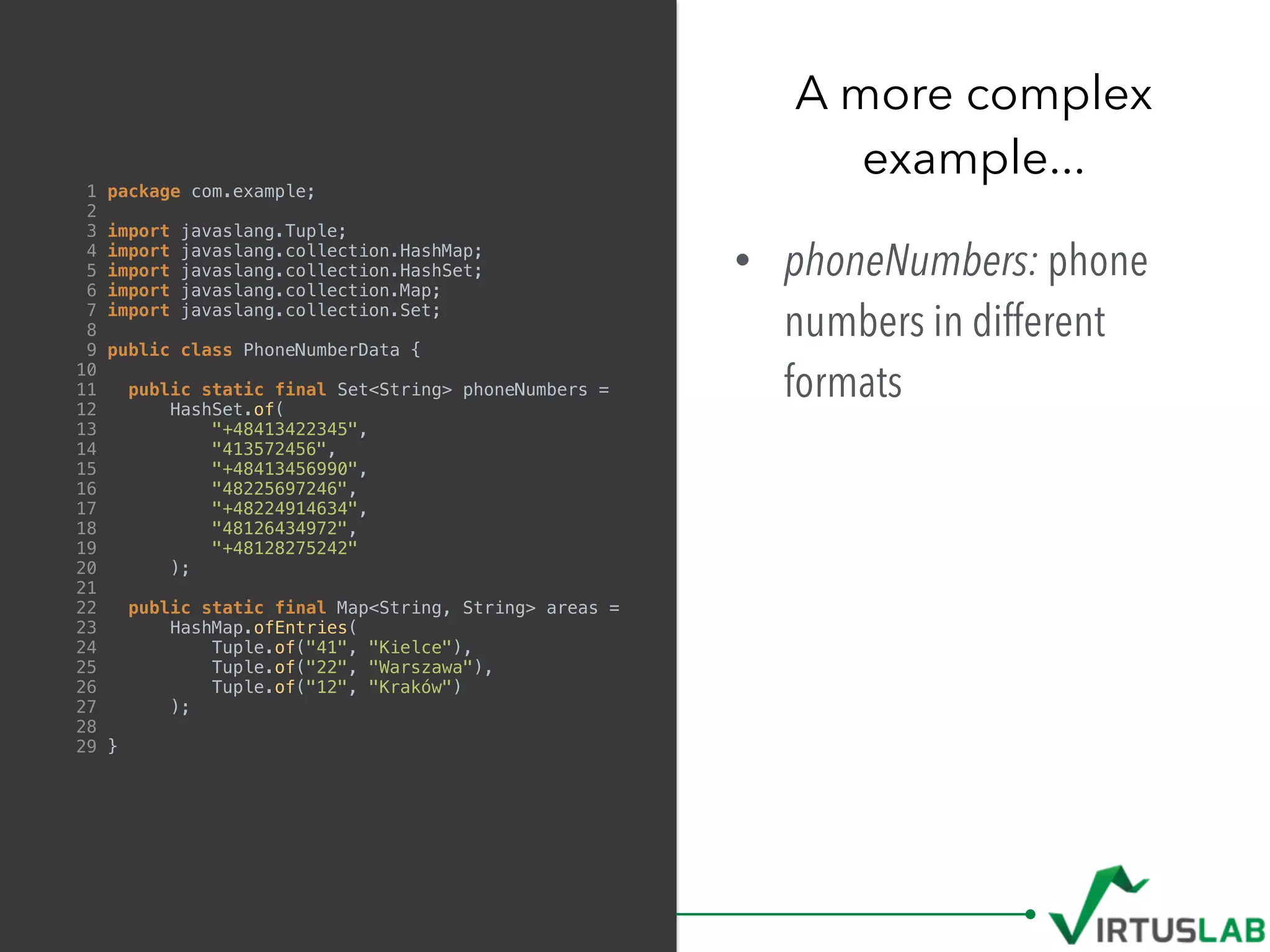
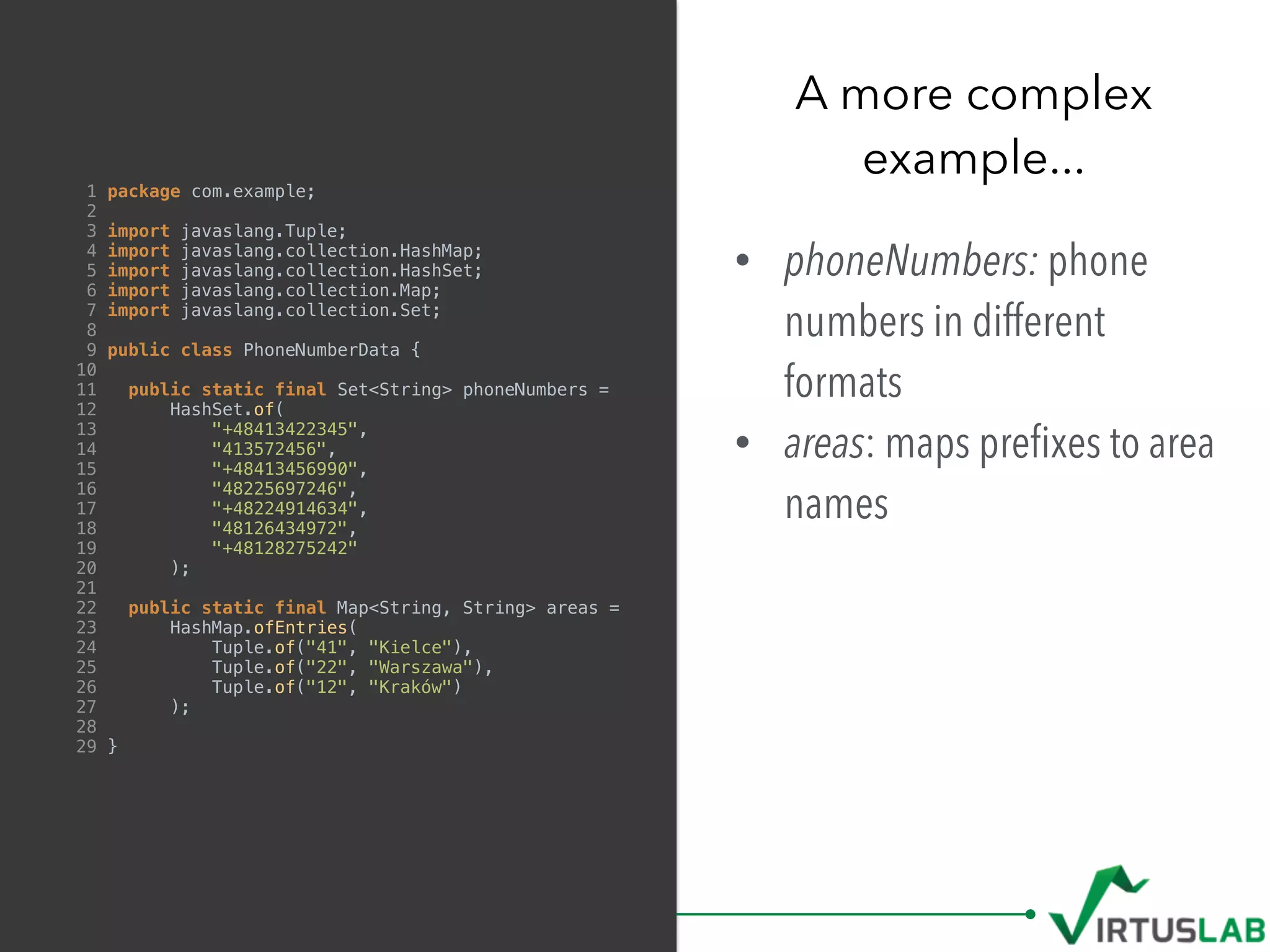
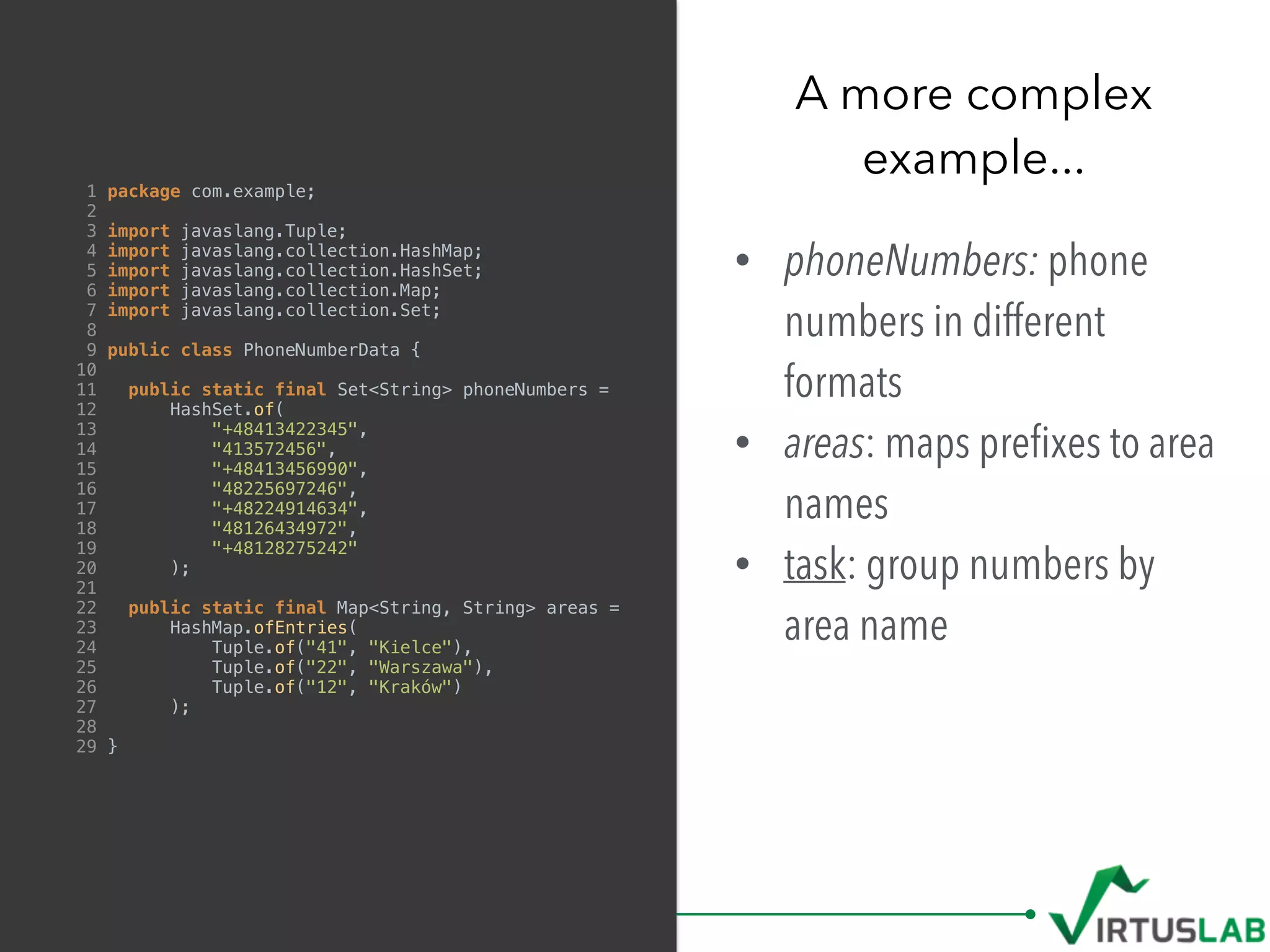
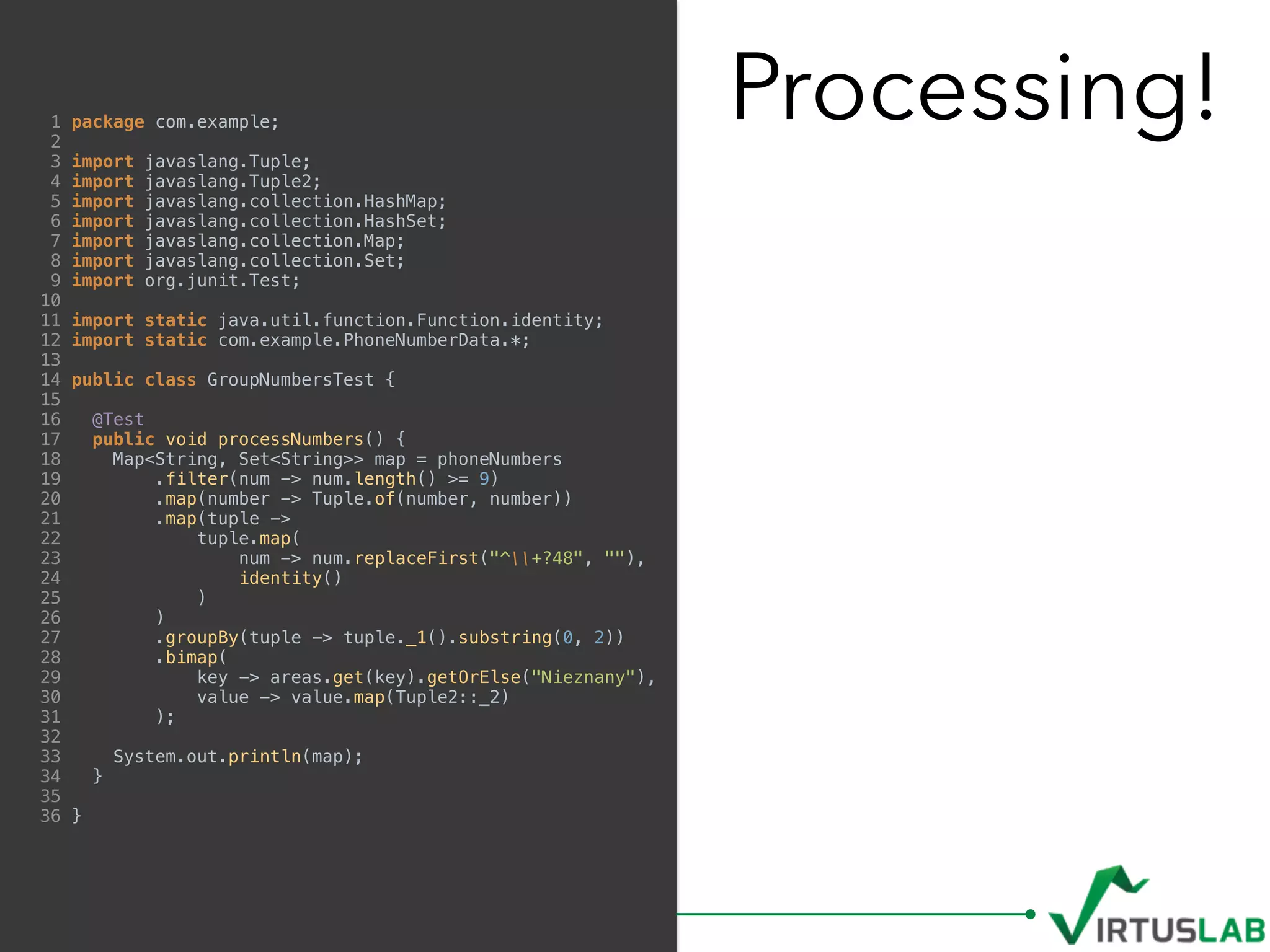
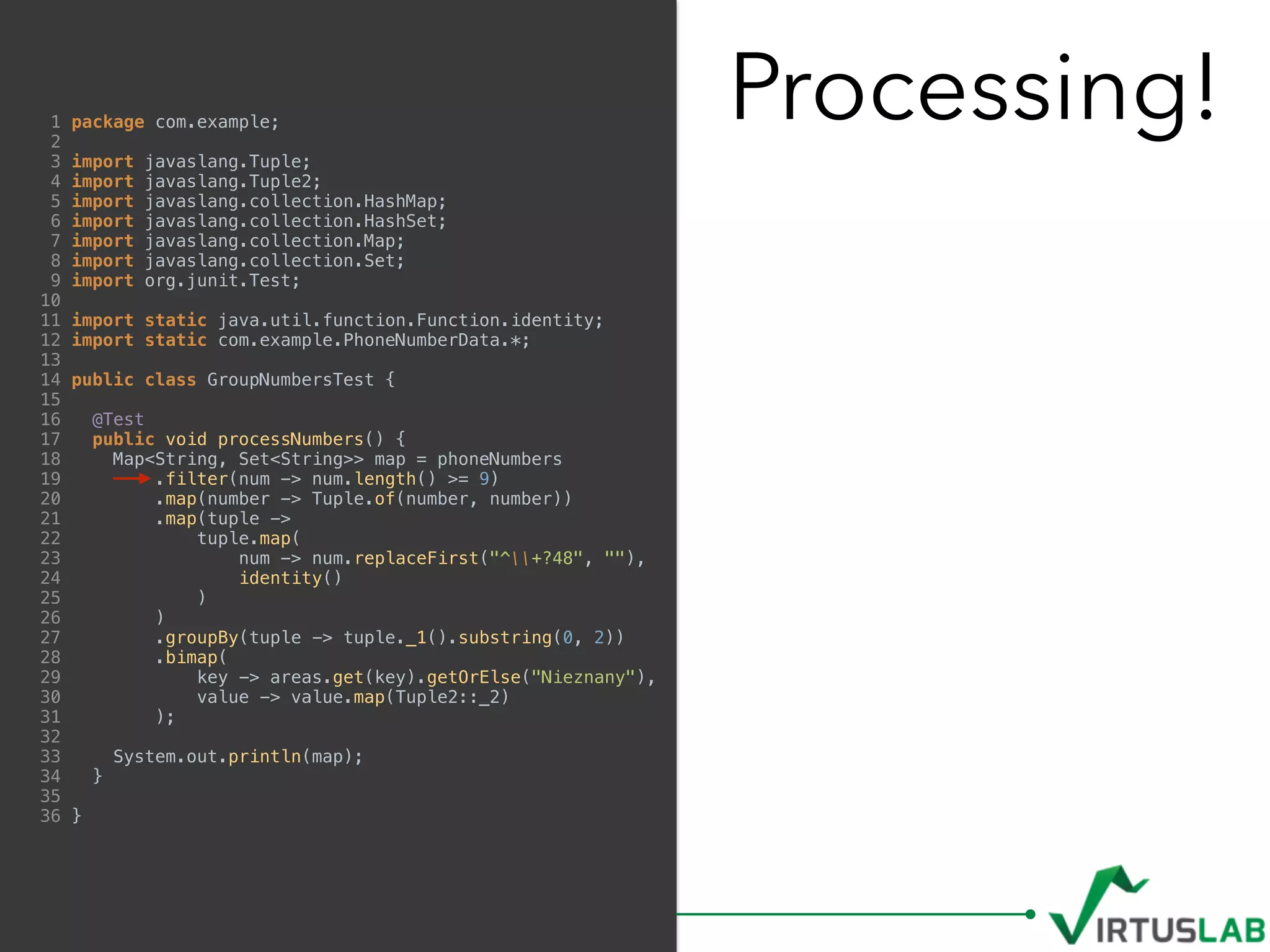
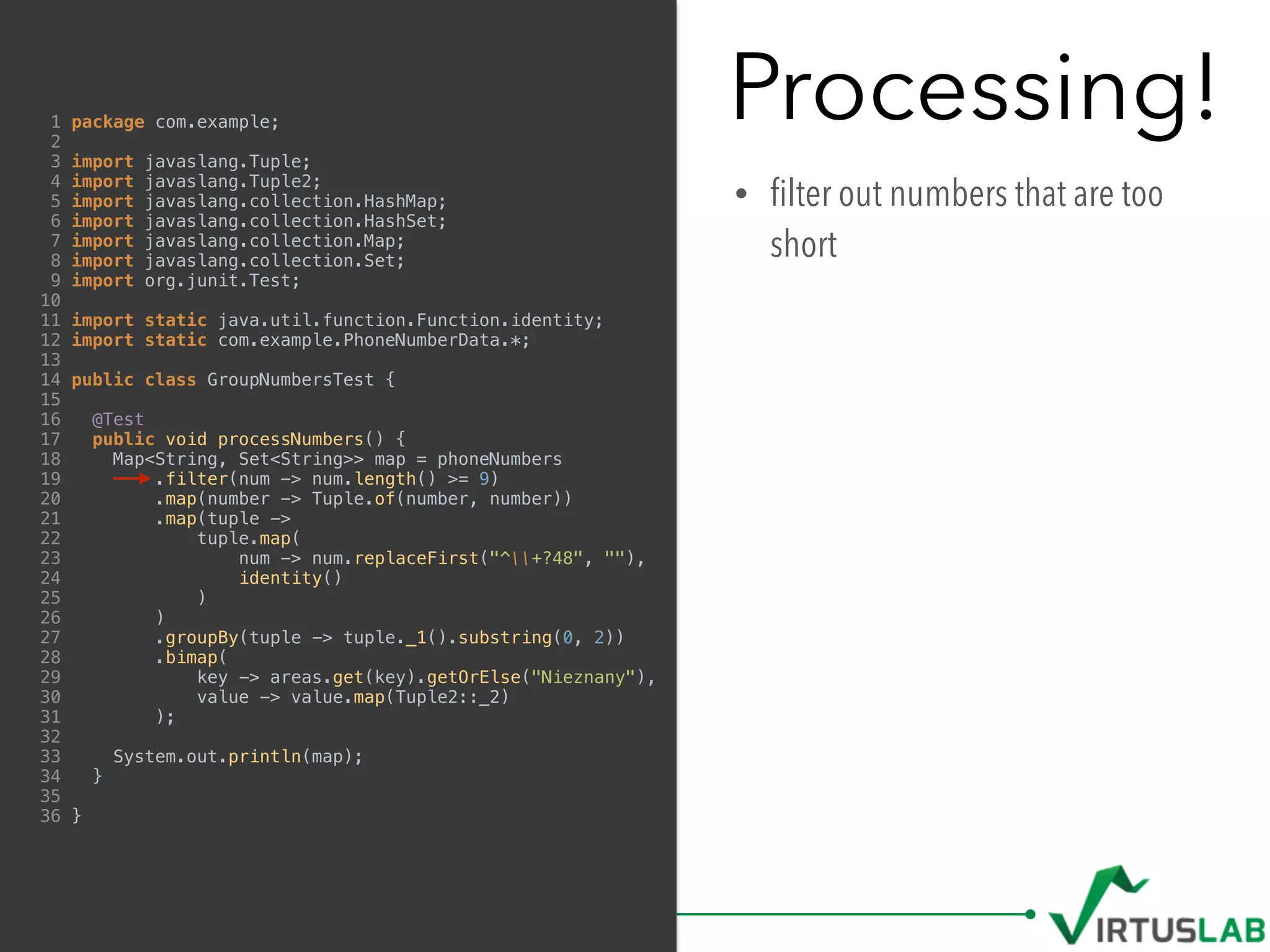
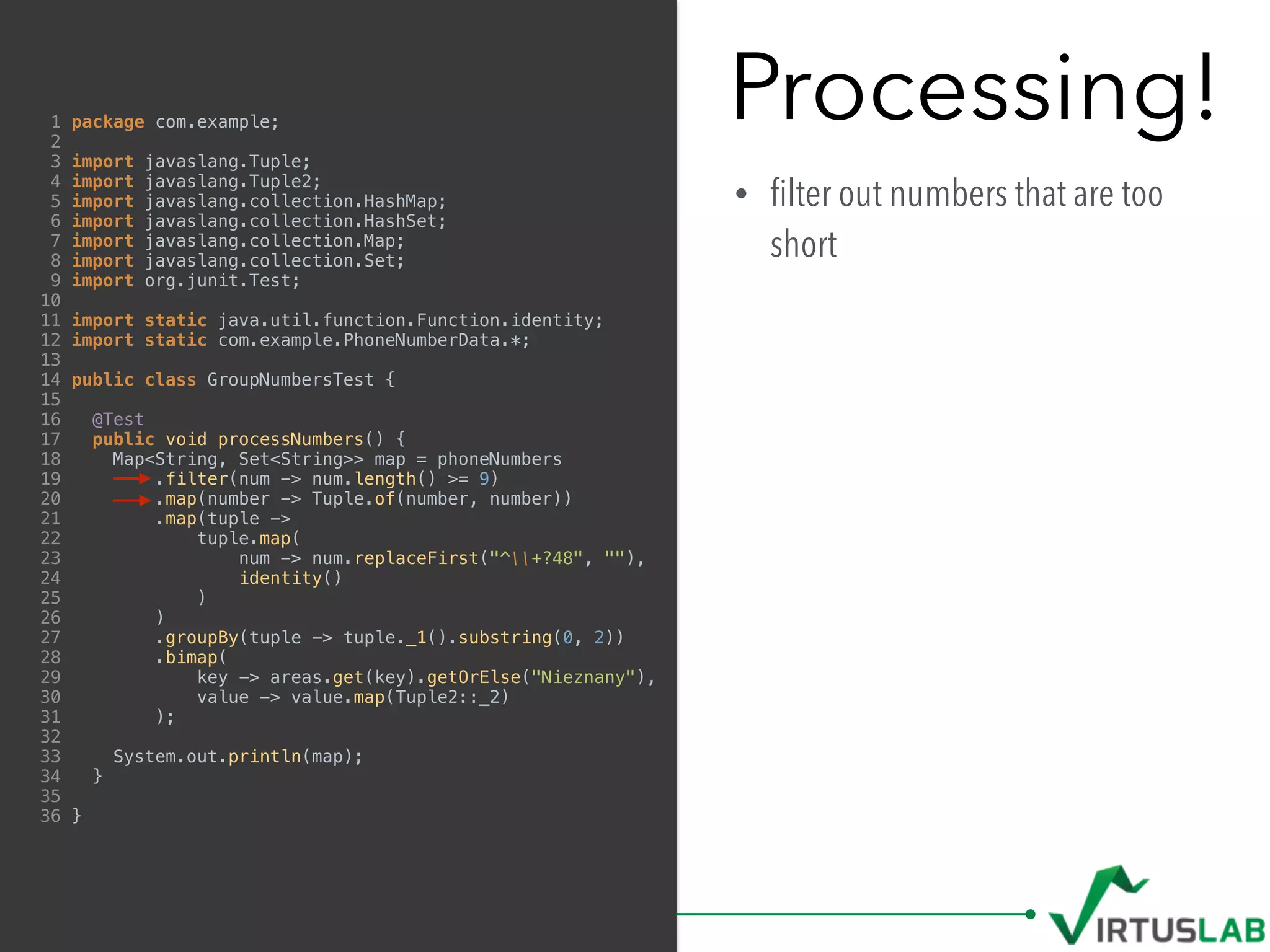
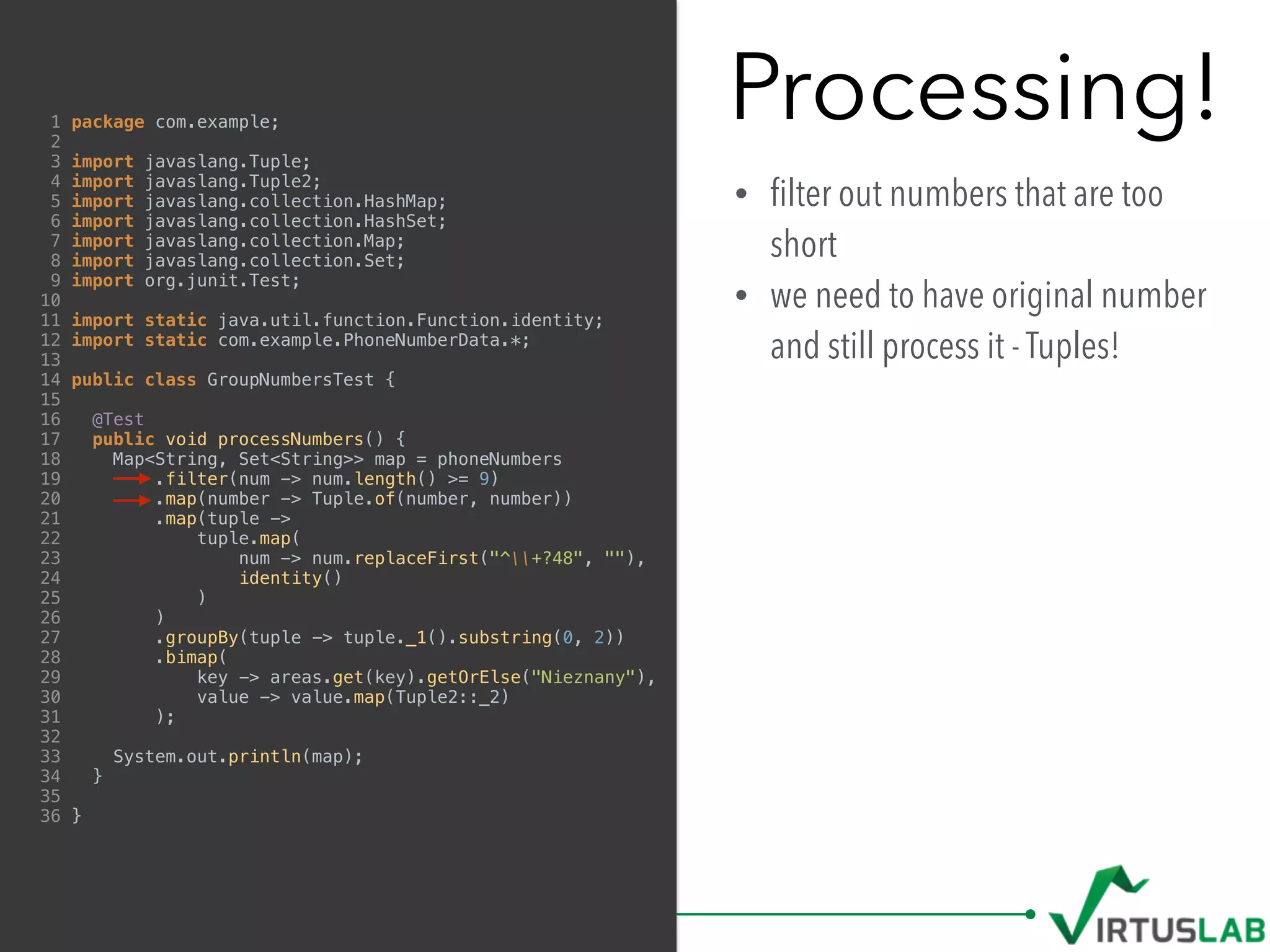
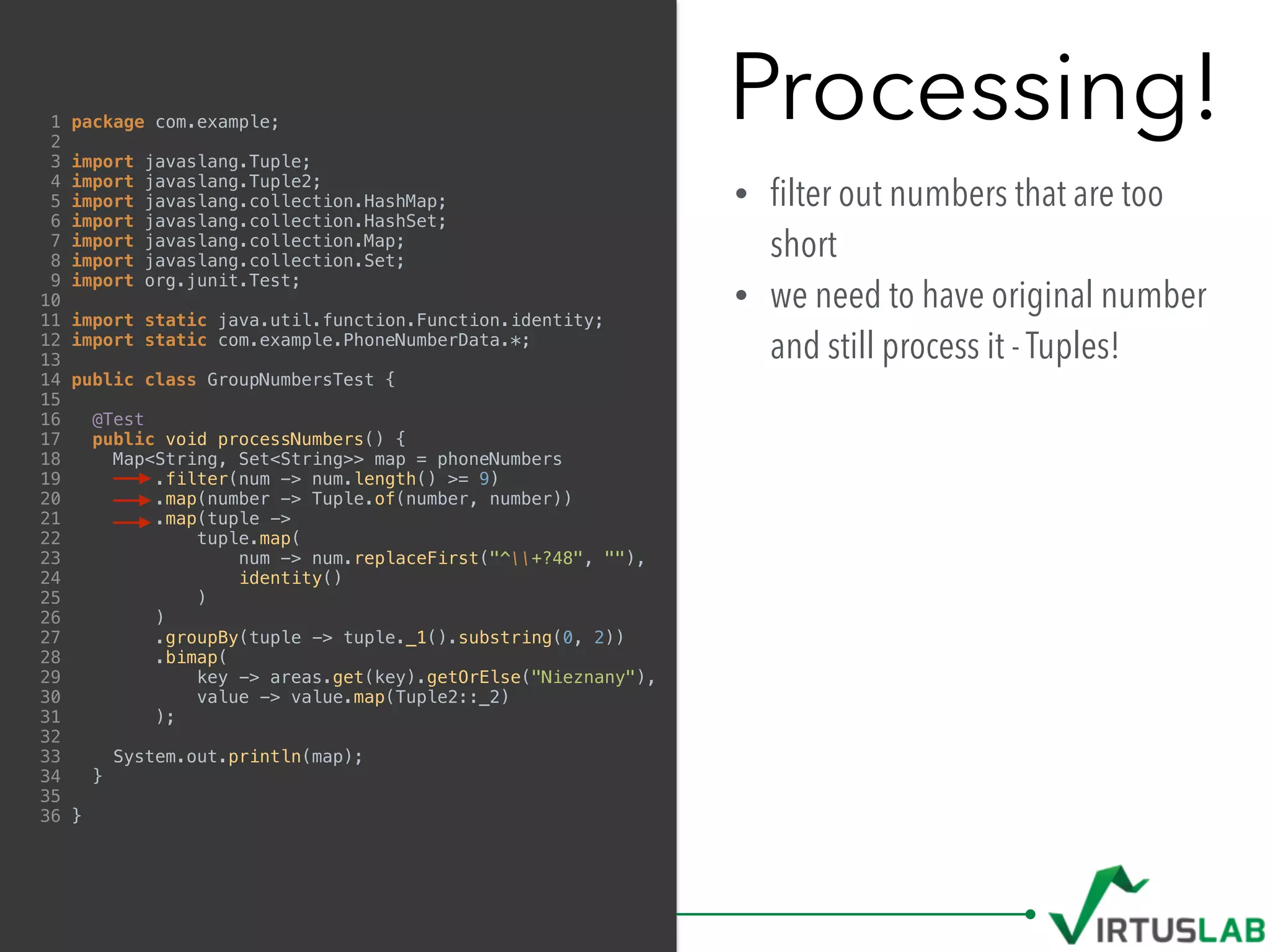
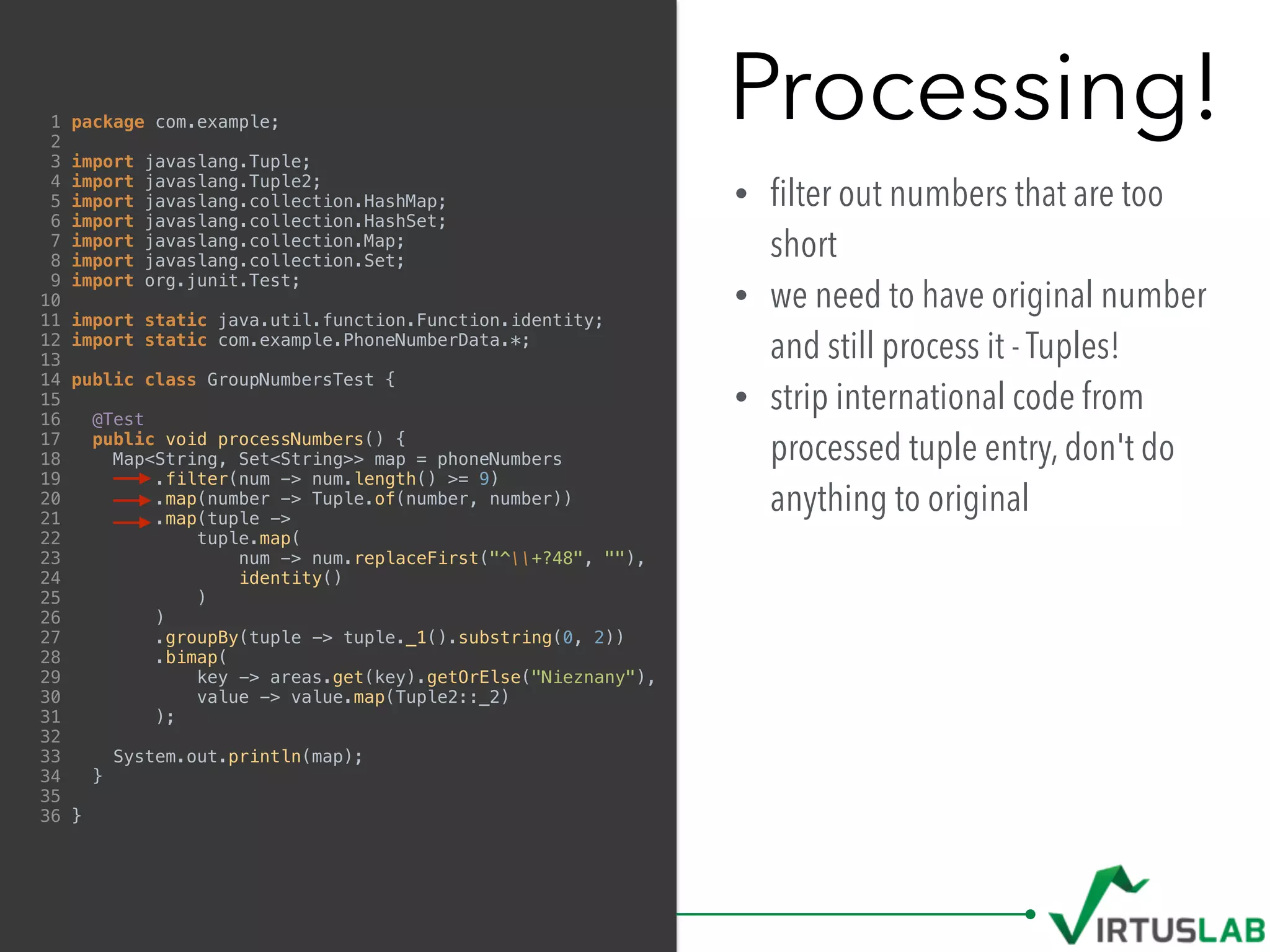
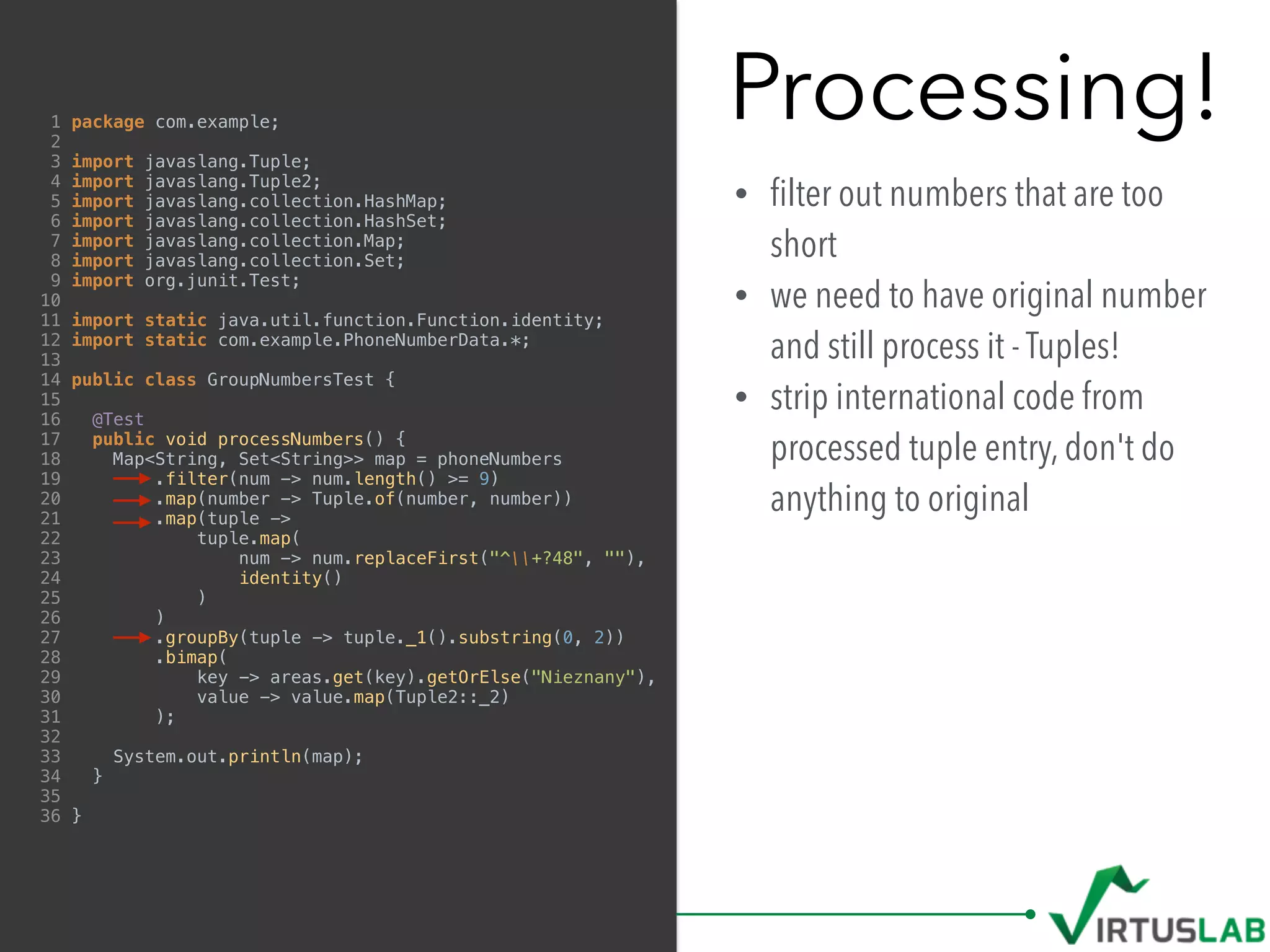
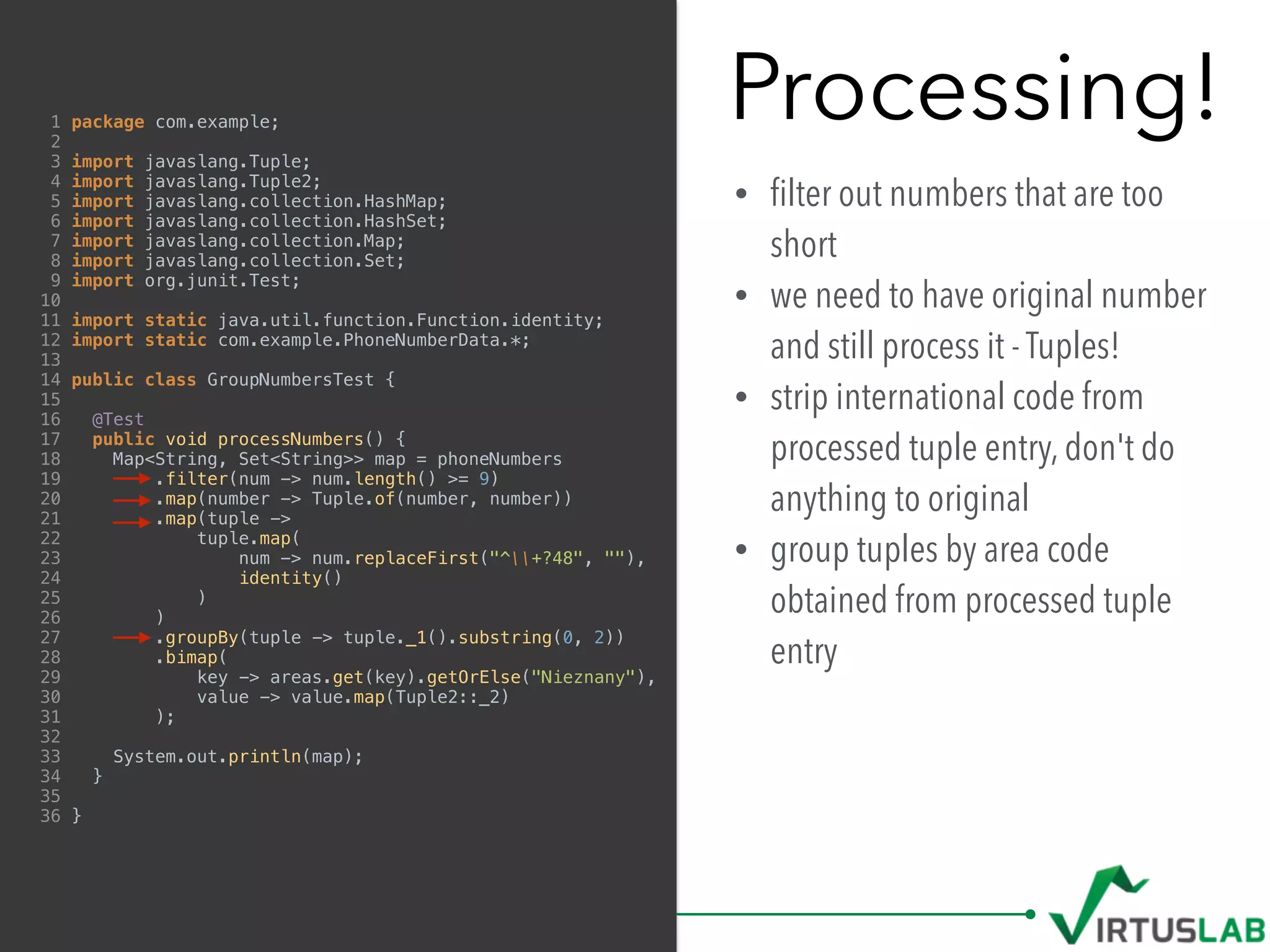
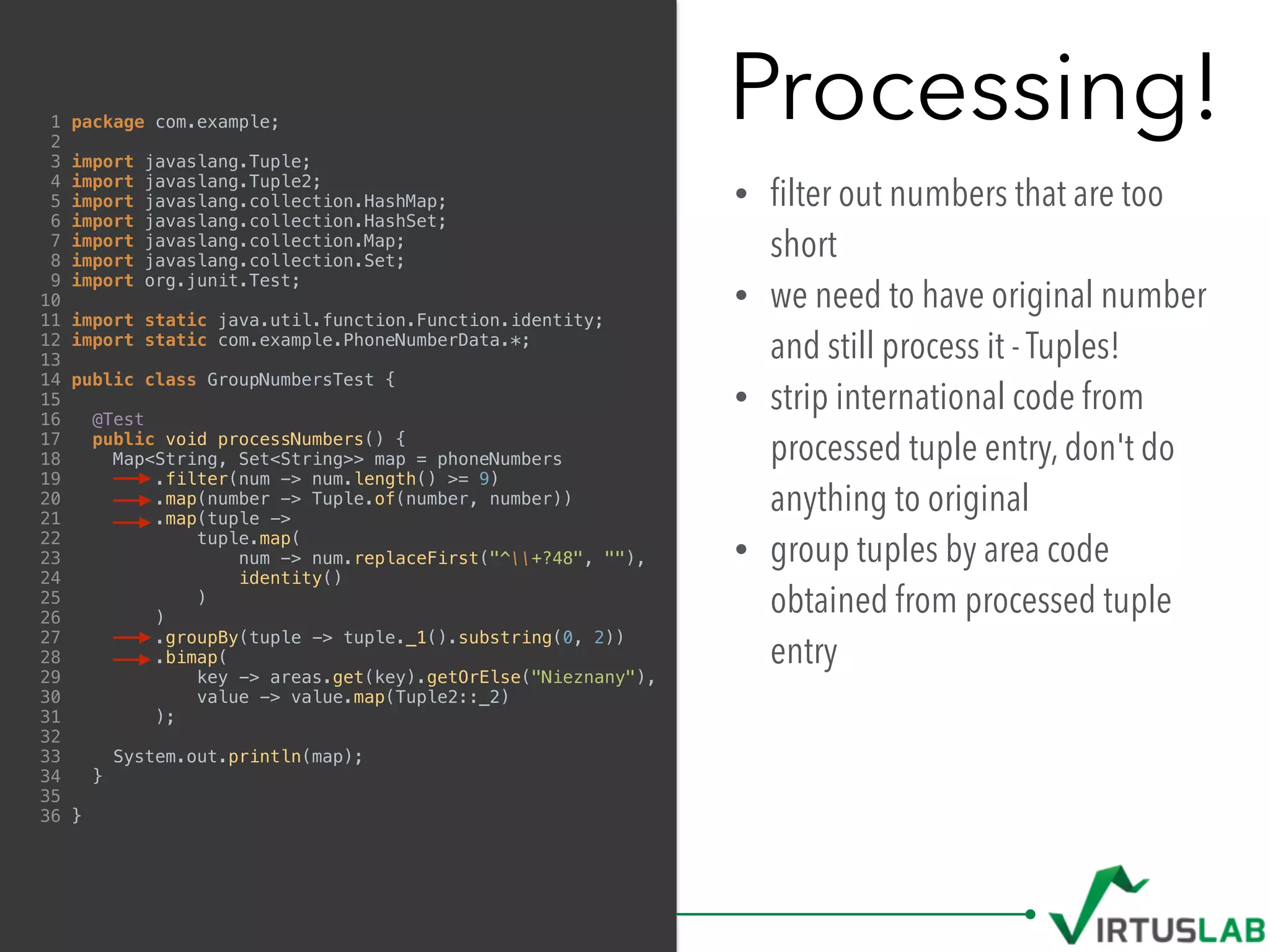
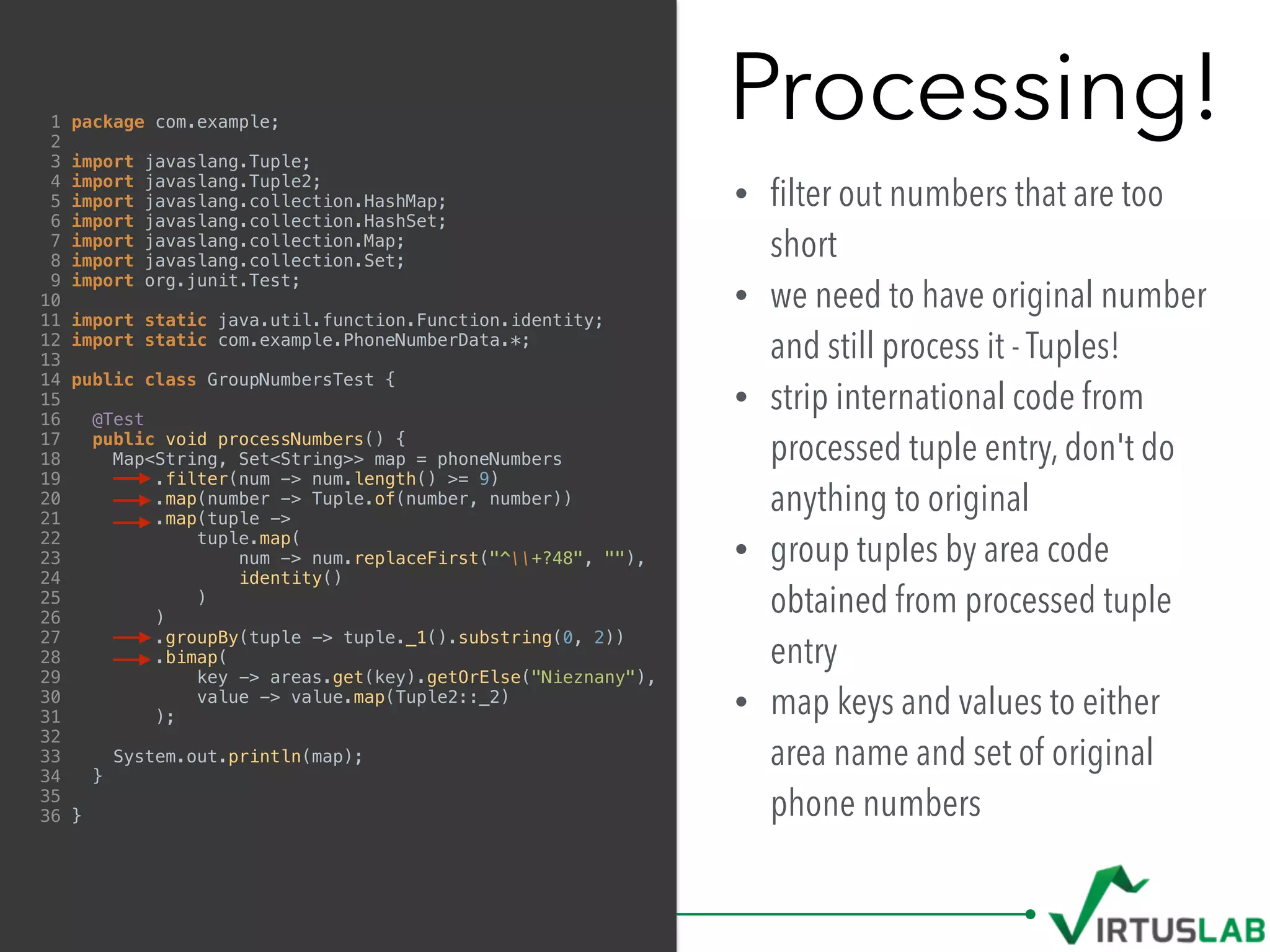

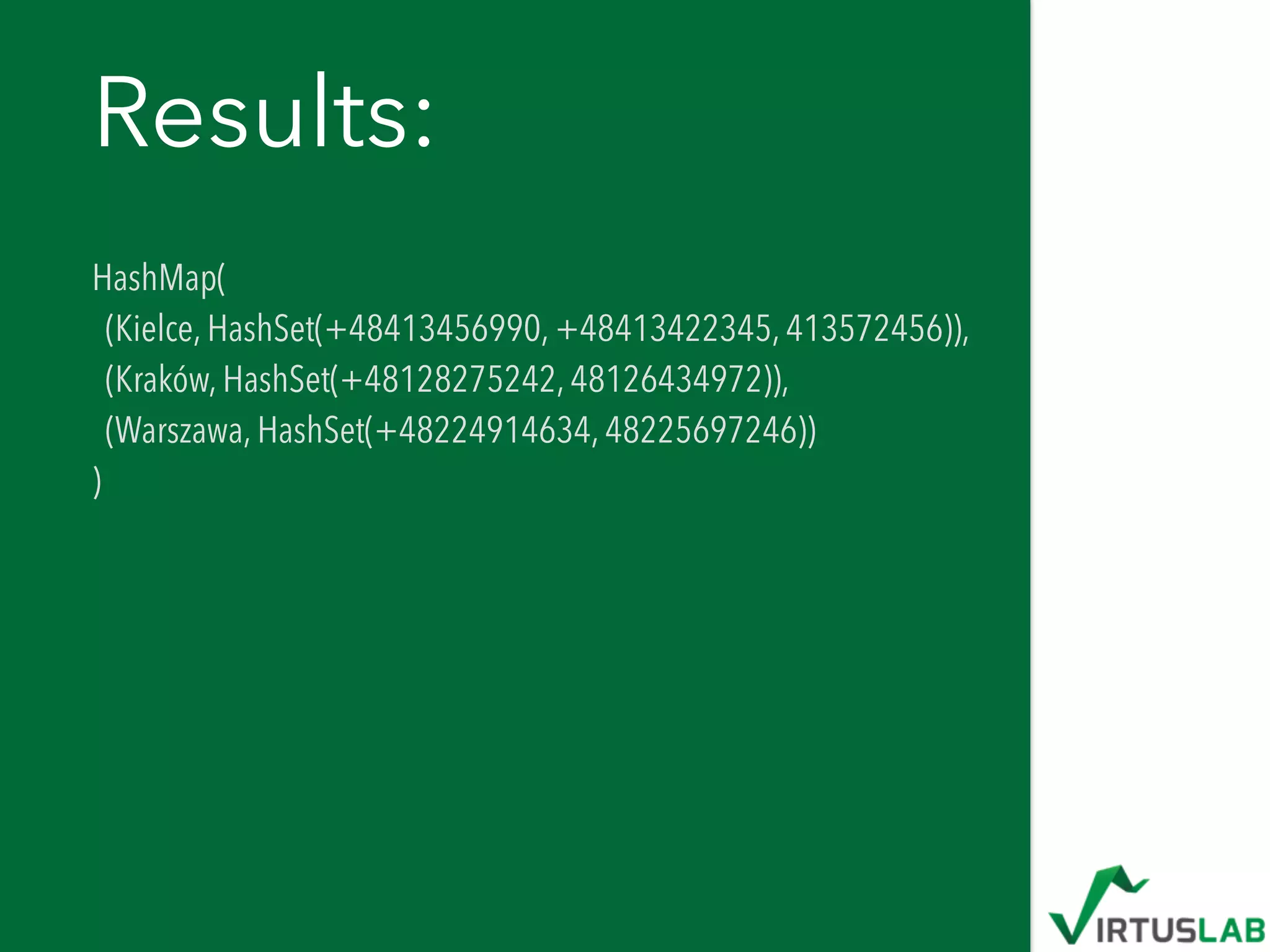
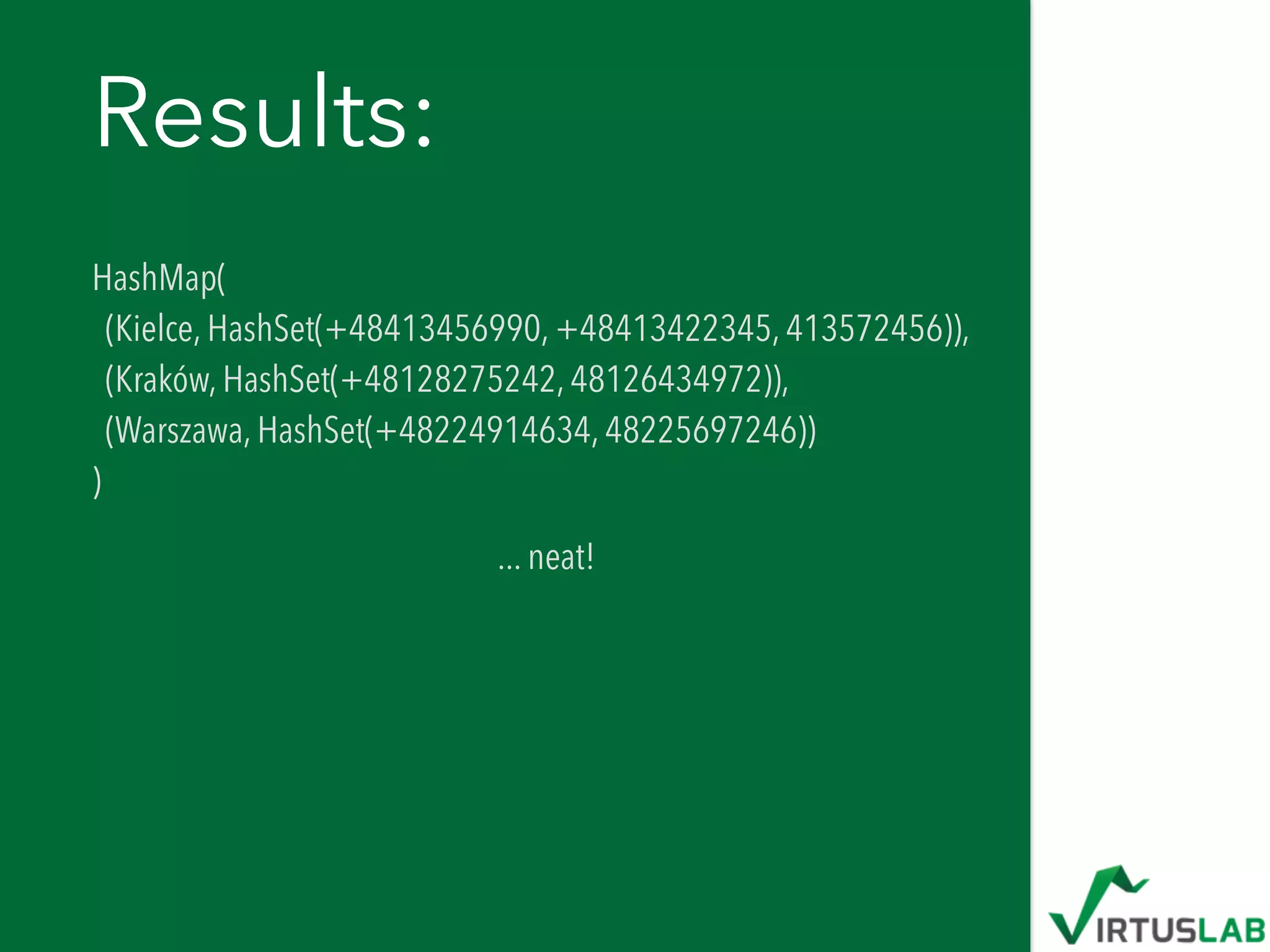
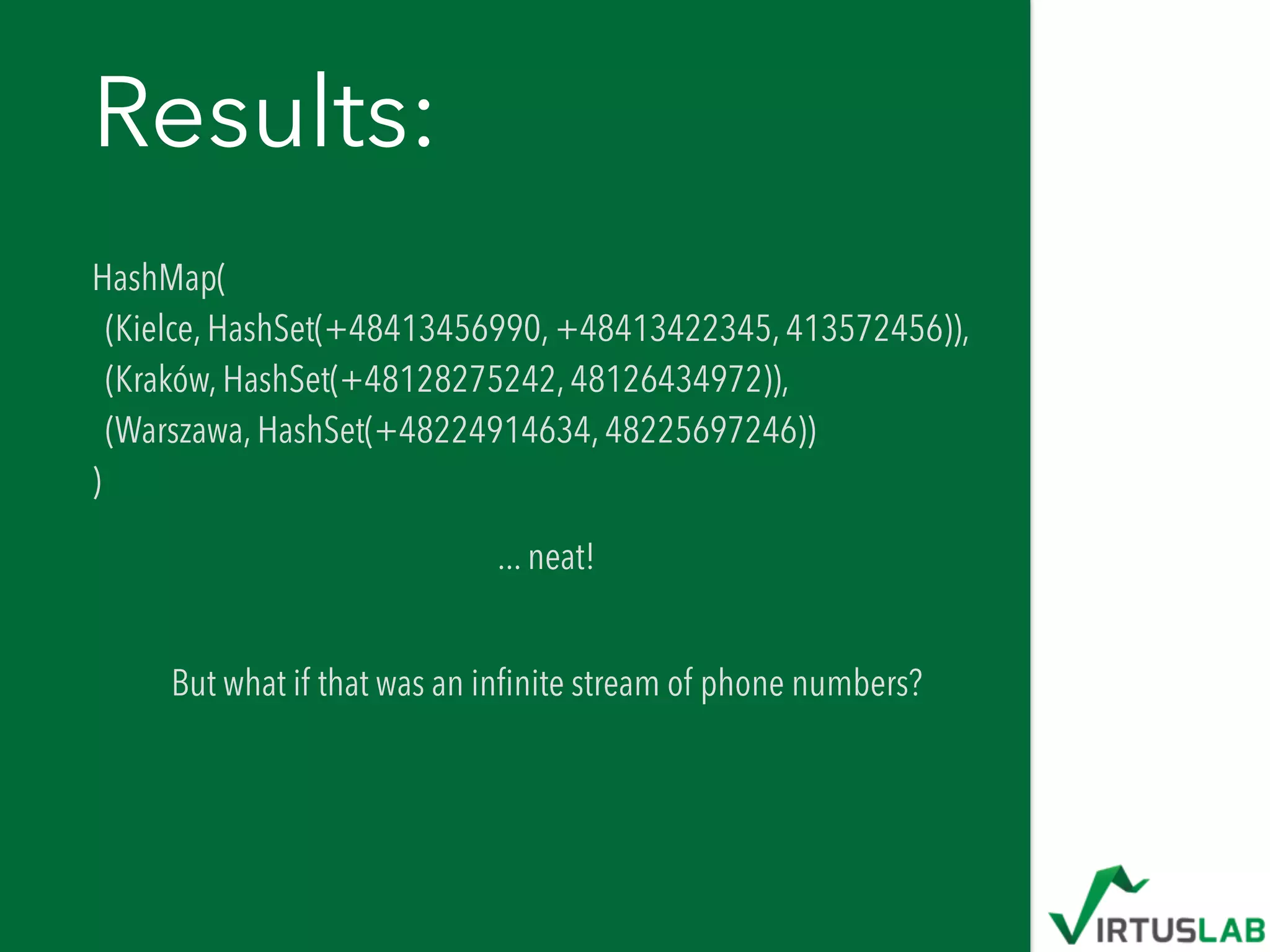
![1 package com.example;
2
3 import javaslang.Tuple;
4 import javaslang.collection.HashMap;
5 import javaslang.collection.Map;
6 import rx.Observable;
7
8 public class StreamingPhoneNumberData {
9
10 public static final Observable<String> phoneNumbers =
11 Observable.from(new String[]{
12 "+48413422345",
13 "413572456",
14 "+48413456990",
15 "48225697246",
16 "+48224914634",
17 "48126434972",
18 "+48128275242"
19 });
20
21 public static final Map<String, String> areas =
22 HashMap.ofEntries(
23 Tuple.of("41", "Kielce"),
24 Tuple.of("22", "Warszawa"),
25 Tuple.of("12", "Kraków")
26 );
27
28 }
Event streams
with RxJava](https://image.slidesharecdn.com/functionaljava8-170318115728/75/Functional-Java-8-Introduction-138-2048.jpg)
![1 package com.example;
2
3 import javaslang.Tuple;
4 import javaslang.collection.HashMap;
5 import javaslang.collection.Map;
6 import rx.Observable;
7
8 public class StreamingPhoneNumberData {
9
10 public static final Observable<String> phoneNumbers =
11 Observable.from(new String[]{
12 "+48413422345",
13 "413572456",
14 "+48413456990",
15 "48225697246",
16 "+48224914634",
17 "48126434972",
18 "+48128275242"
19 });
20
21 public static final Map<String, String> areas =
22 HashMap.ofEntries(
23 Tuple.of("41", "Kielce"),
24 Tuple.of("22", "Warszawa"),
25 Tuple.of("12", "Kraków")
26 );
27
28 }
Event streams
with RxJava](https://image.slidesharecdn.com/functionaljava8-170318115728/75/Functional-Java-8-Introduction-139-2048.jpg)
![1 package com.example;
2
3 import javaslang.Tuple;
4 import javaslang.collection.HashMap;
5 import javaslang.collection.Map;
6 import rx.Observable;
7
8 public class StreamingPhoneNumberData {
9
10 public static final Observable<String> phoneNumbers =
11 Observable.from(new String[]{
12 "+48413422345",
13 "413572456",
14 "+48413456990",
15 "48225697246",
16 "+48224914634",
17 "48126434972",
18 "+48128275242"
19 });
20
21 public static final Map<String, String> areas =
22 HashMap.ofEntries(
23 Tuple.of("41", "Kielce"),
24 Tuple.of("22", "Warszawa"),
25 Tuple.of("12", "Kraków")
26 );
27
28 }
Event streams
with RxJava
• Observable<T> is
a 0 .. n collection of
events (potentially
infinite!)](https://image.slidesharecdn.com/functionaljava8-170318115728/75/Functional-Java-8-Introduction-140-2048.jpg)
